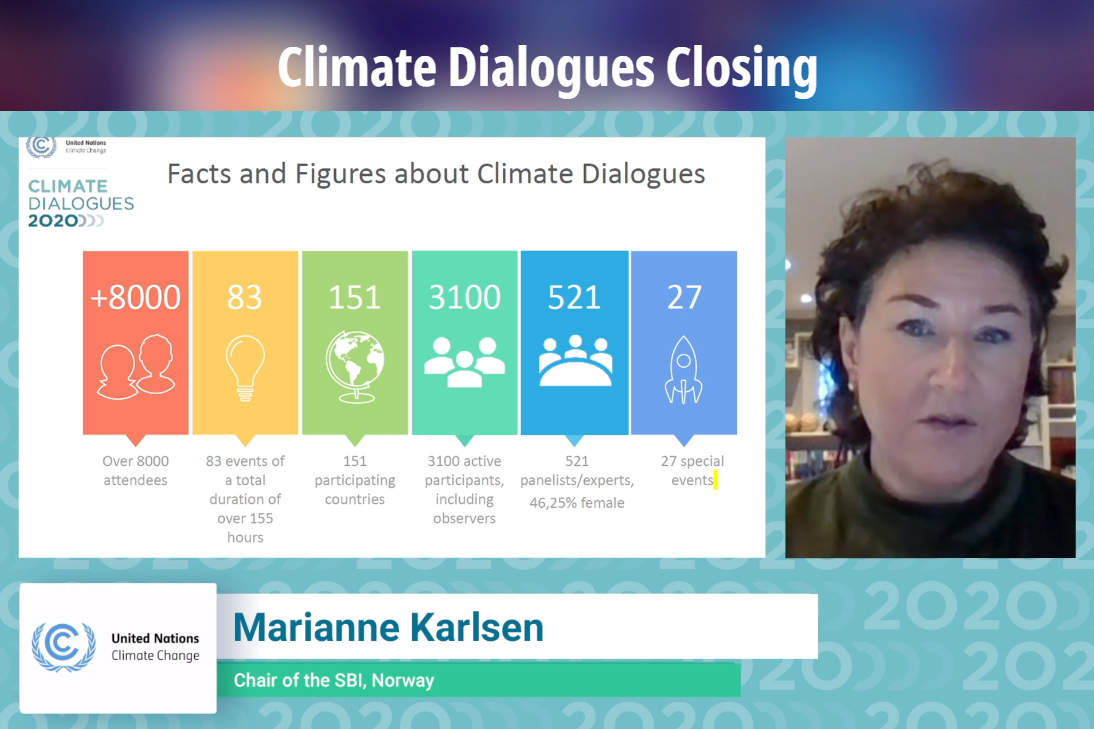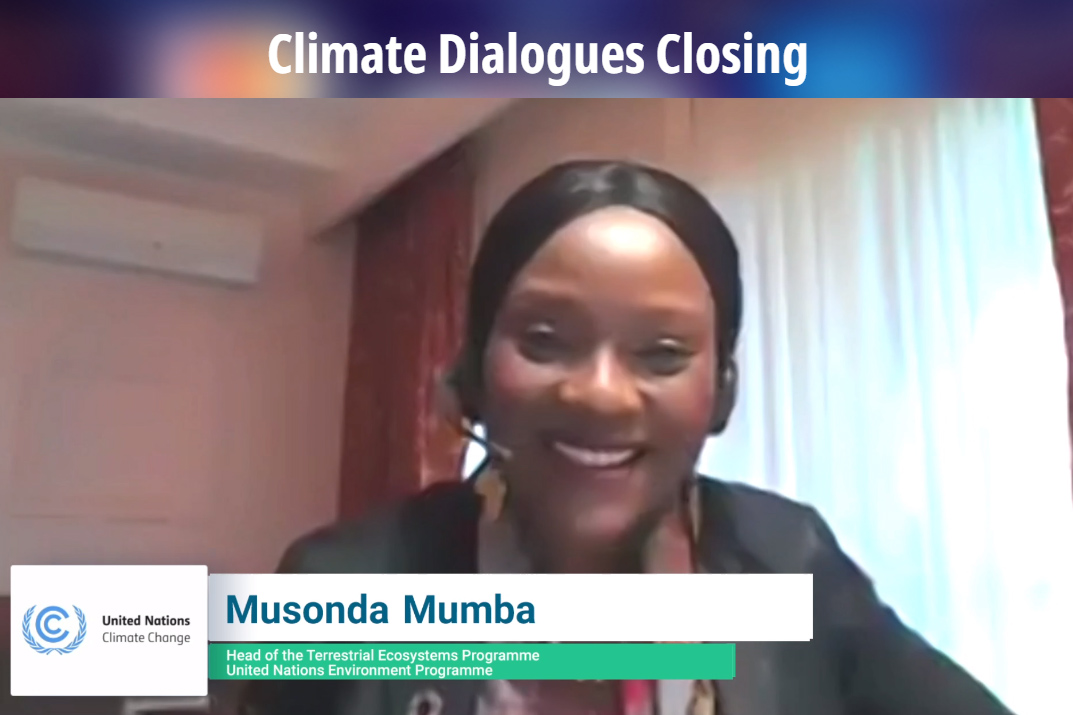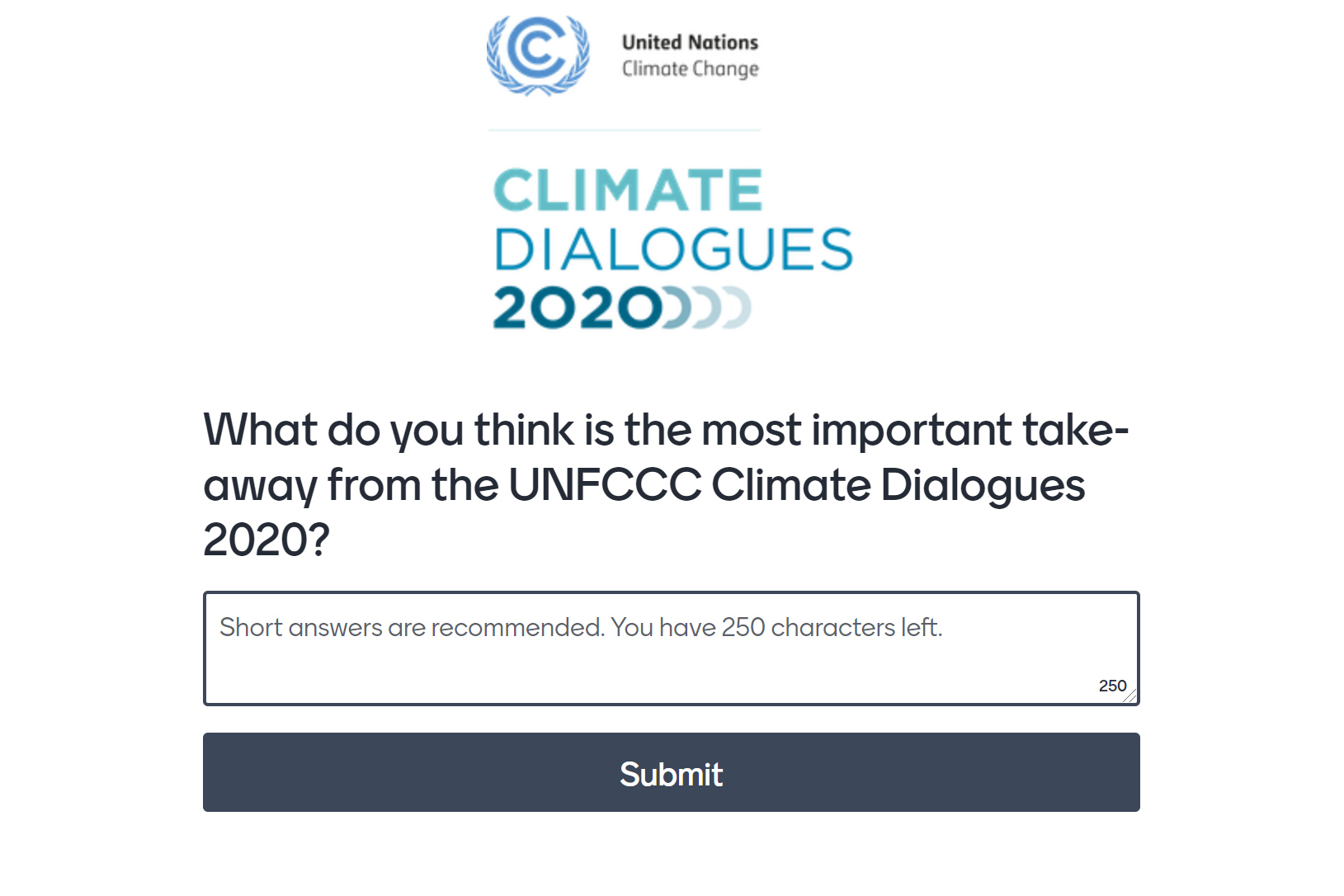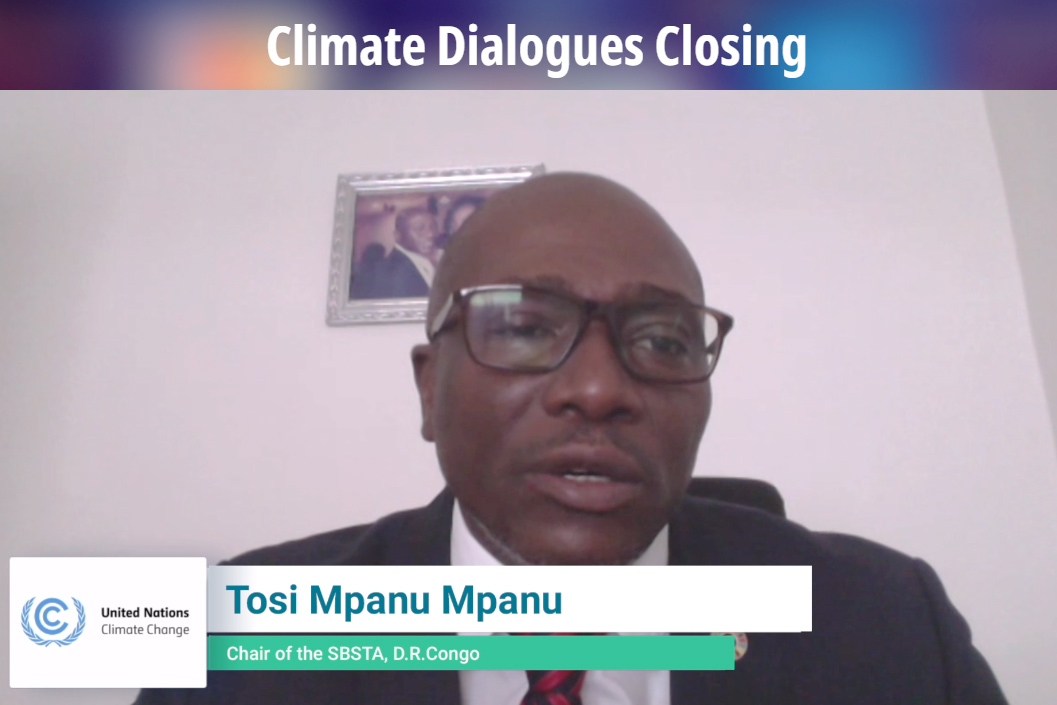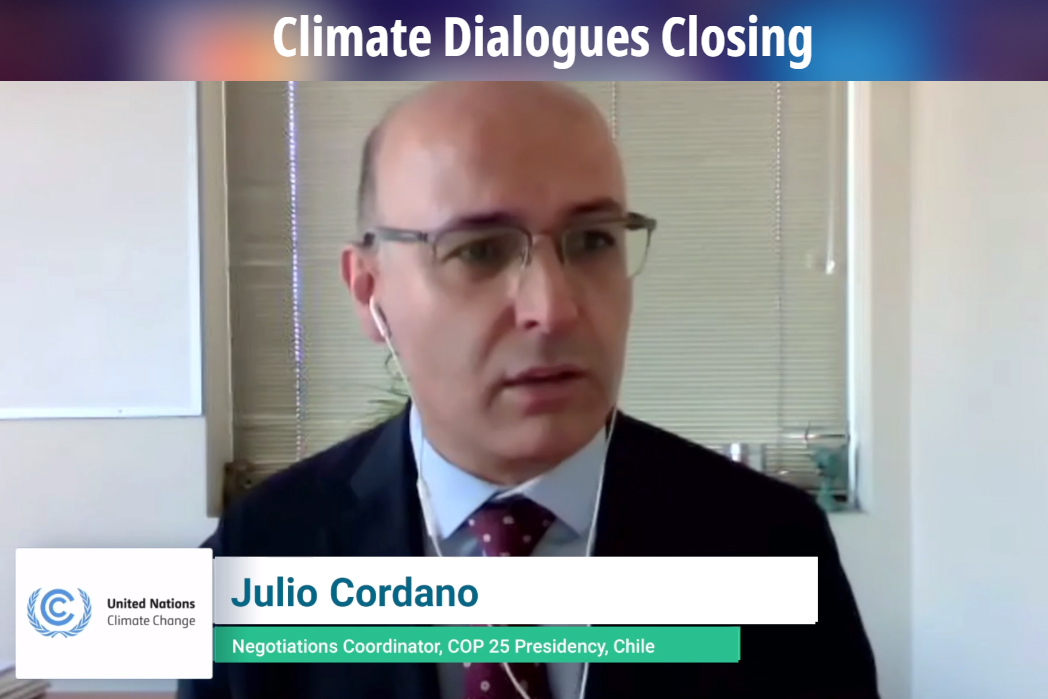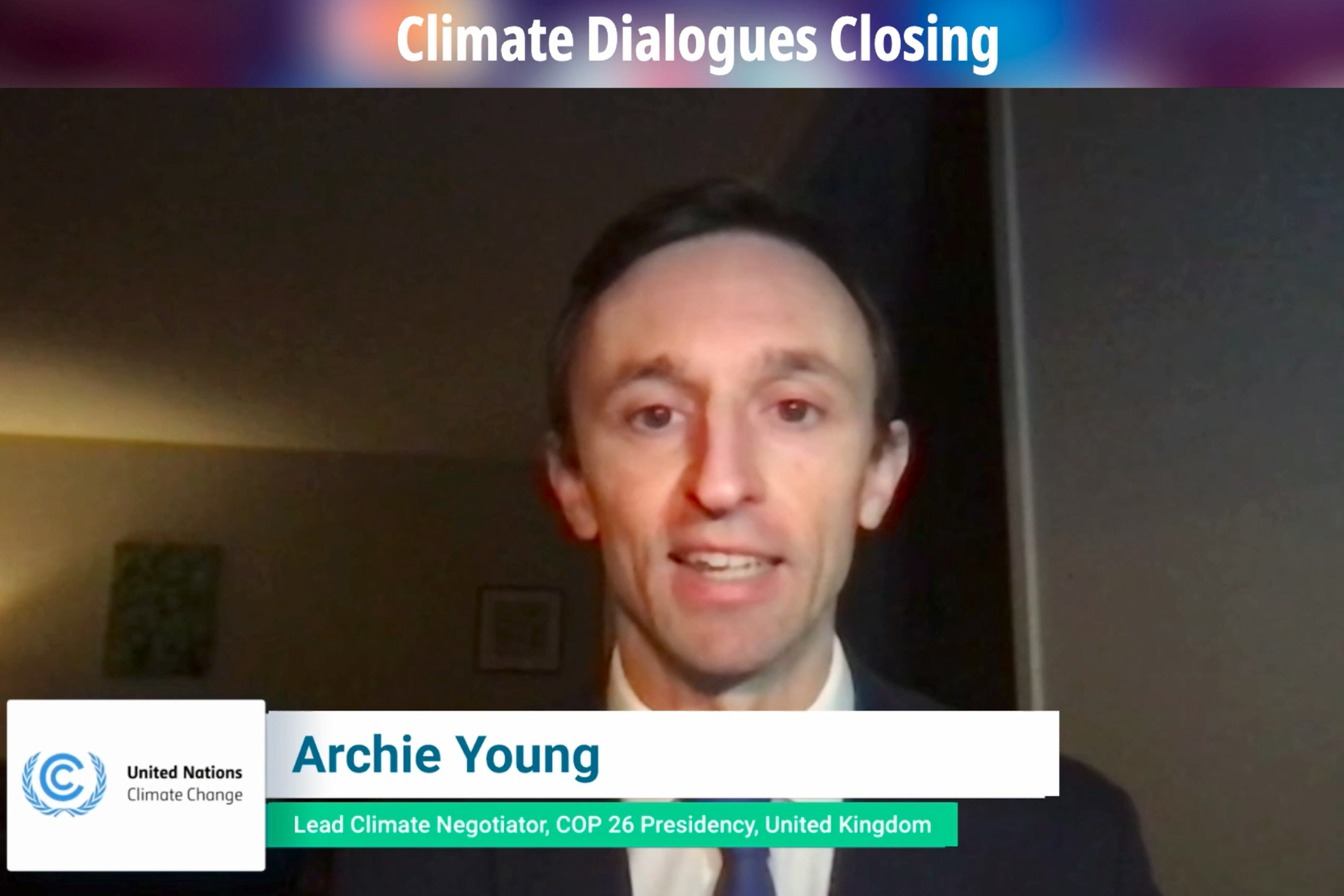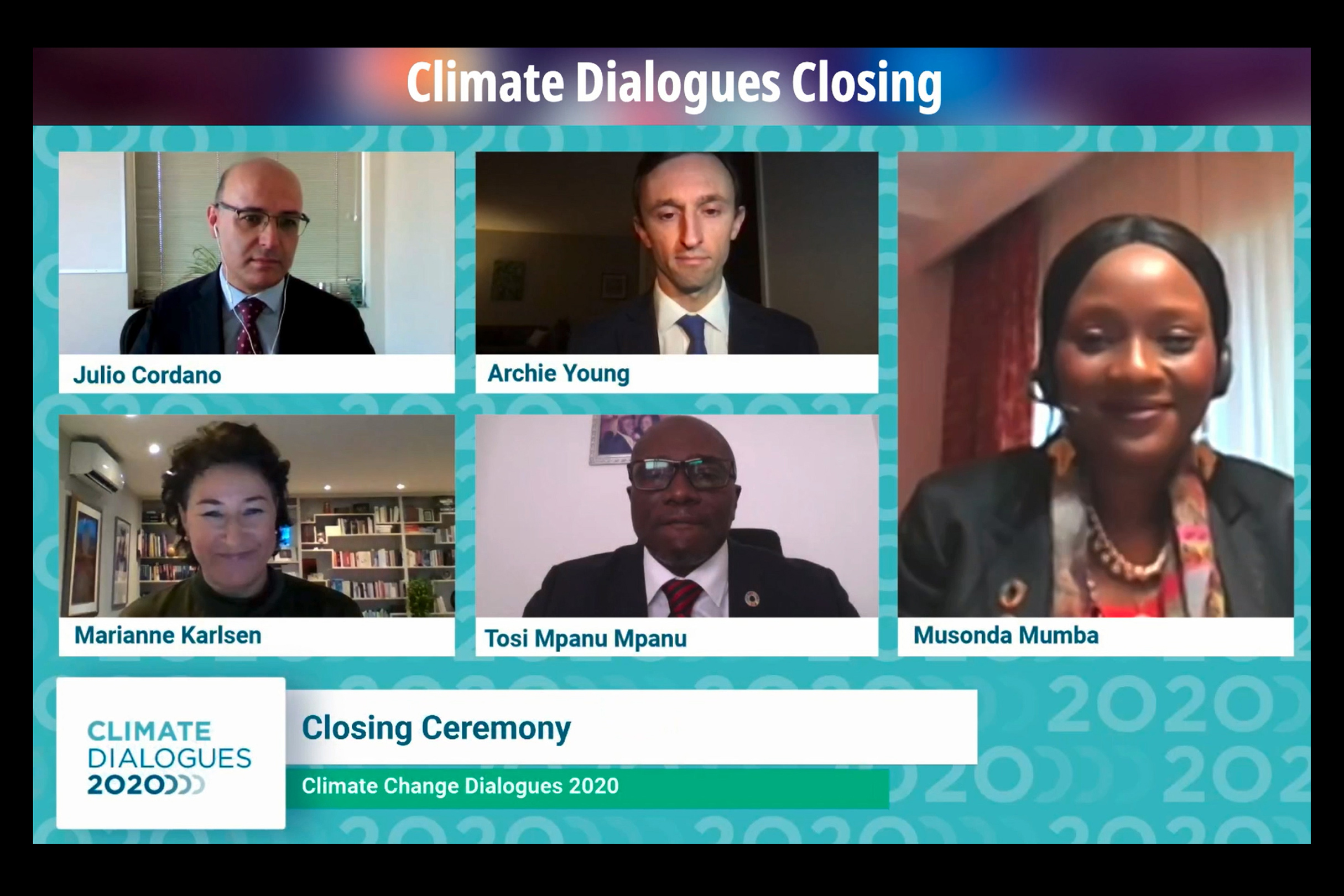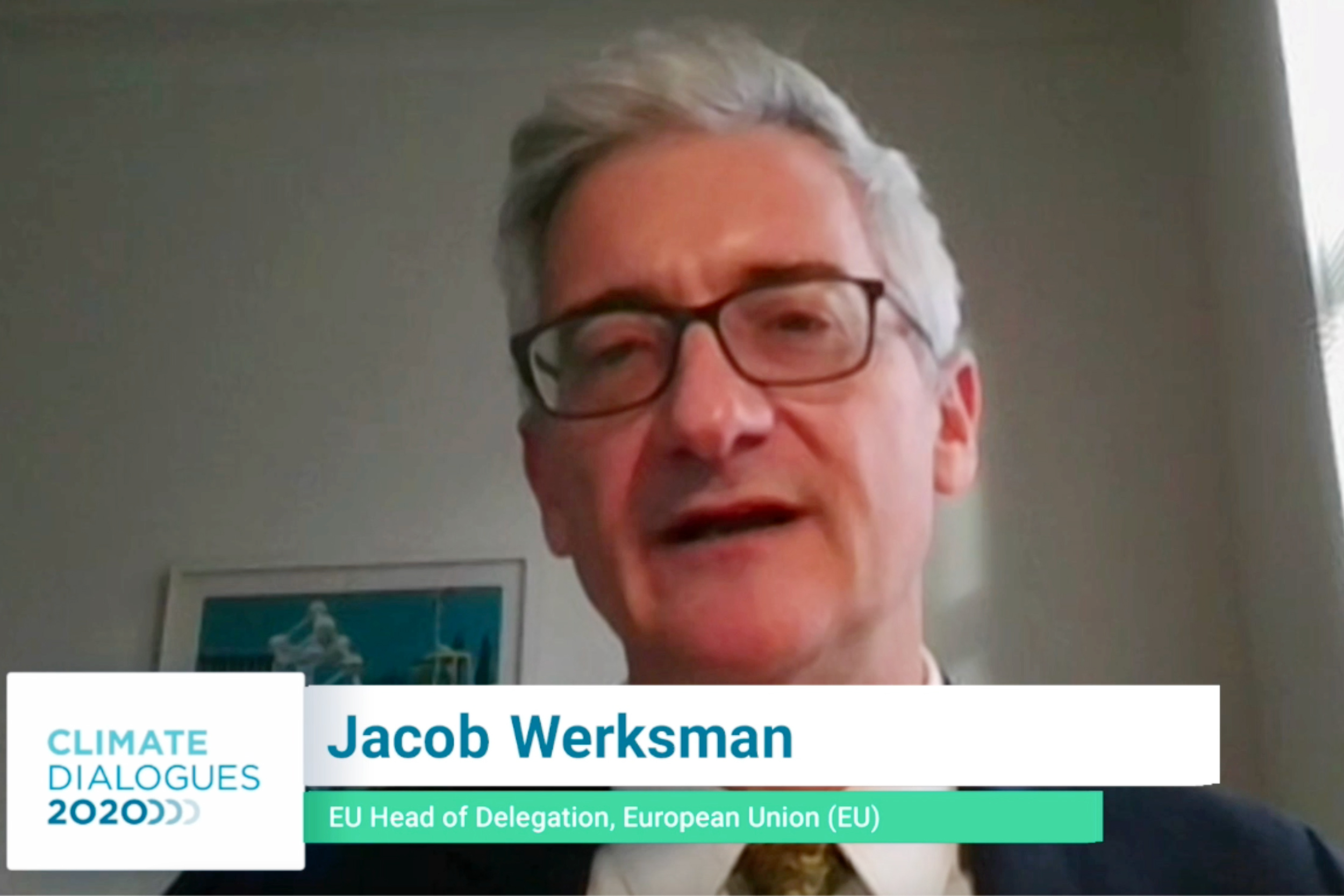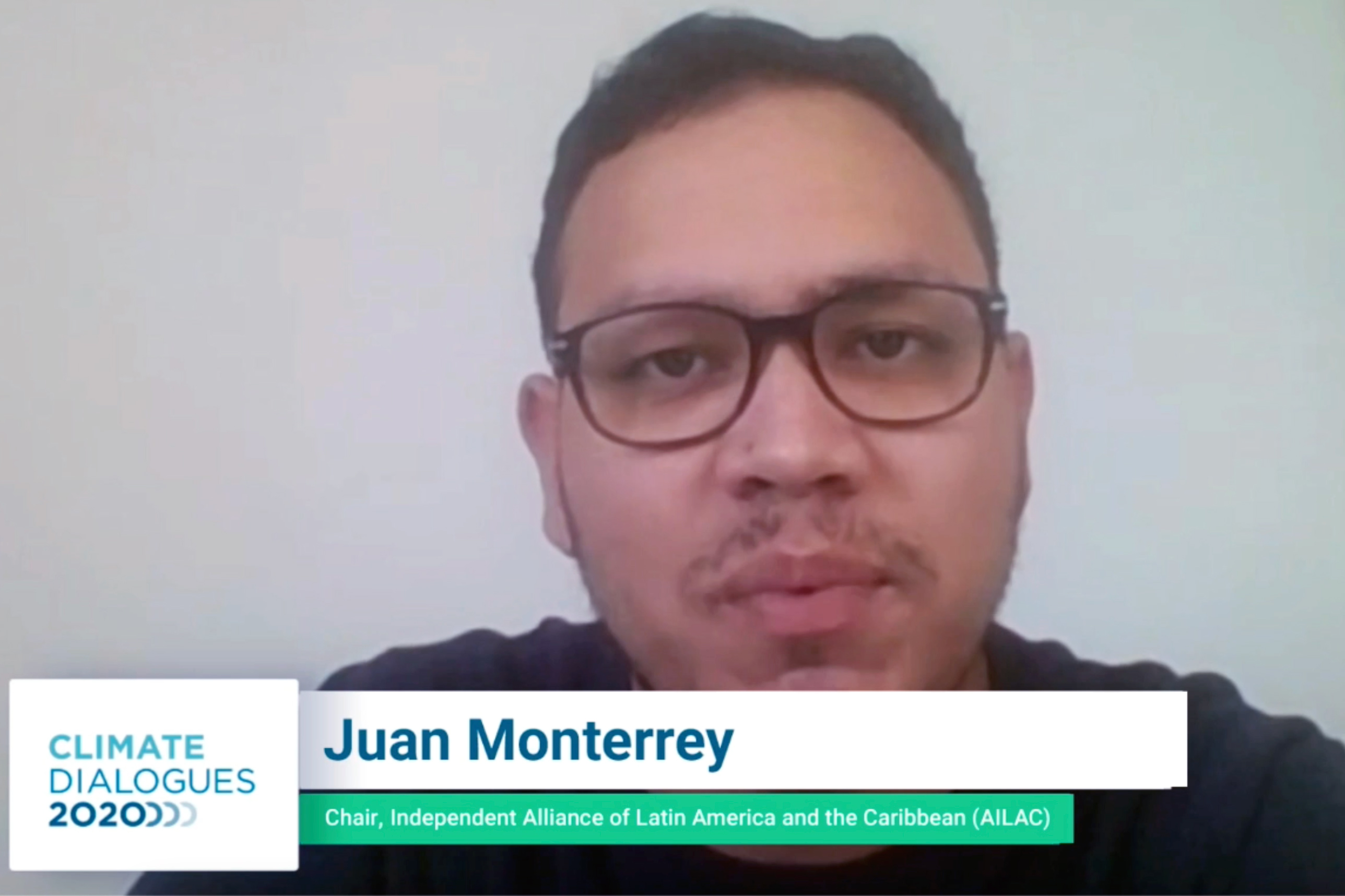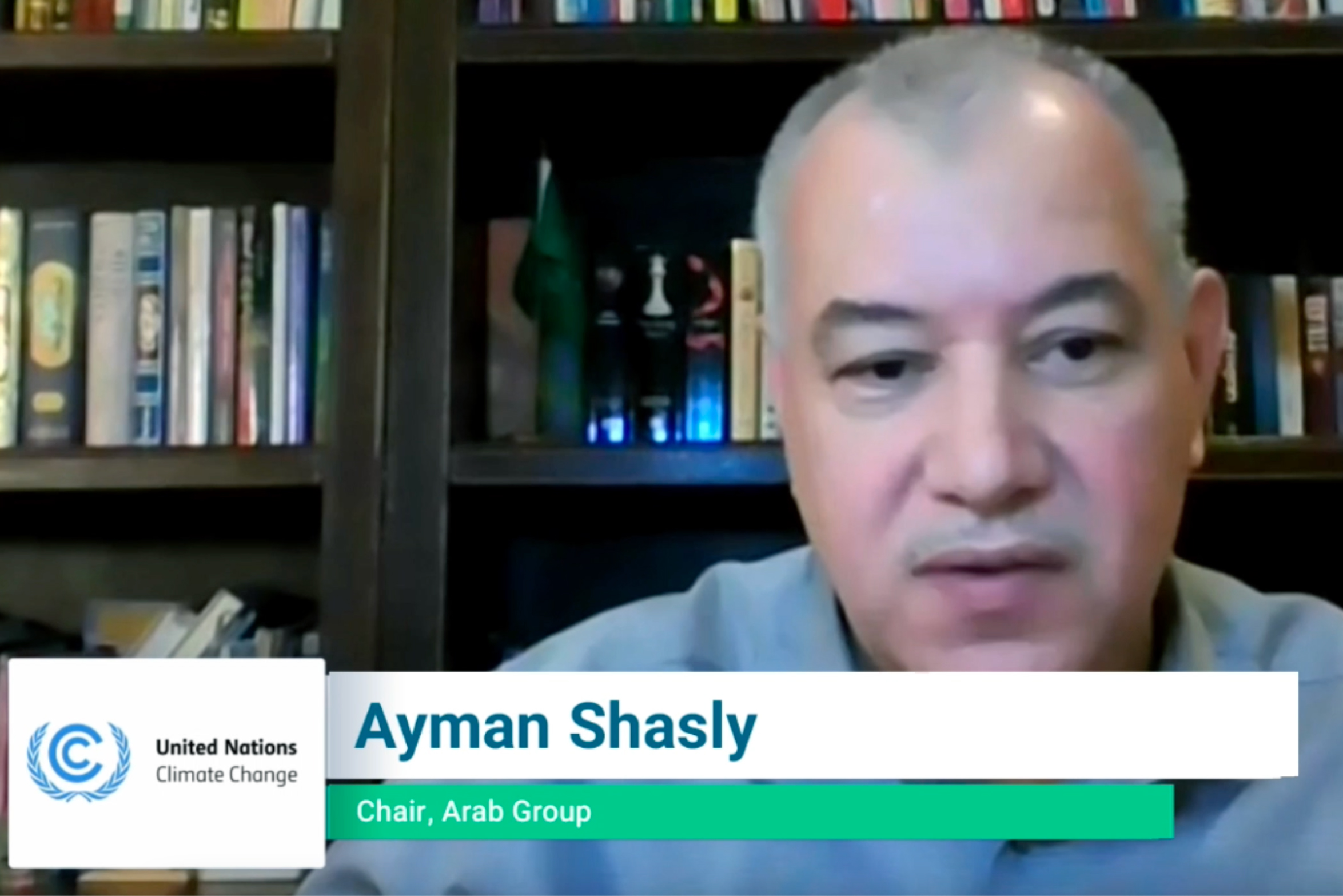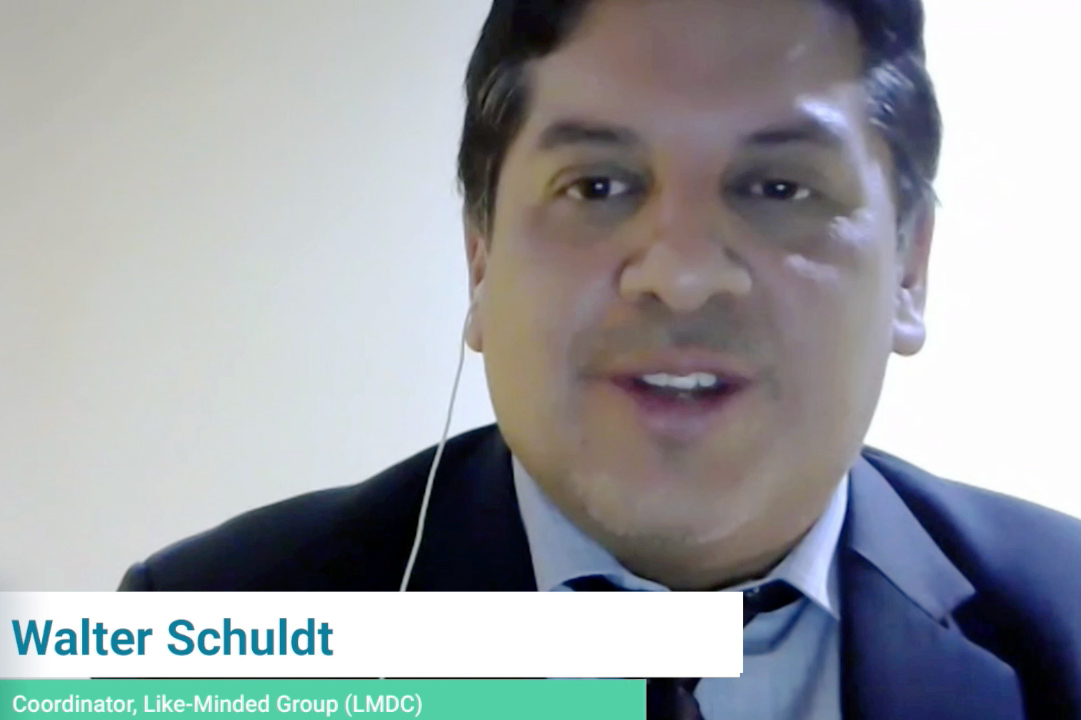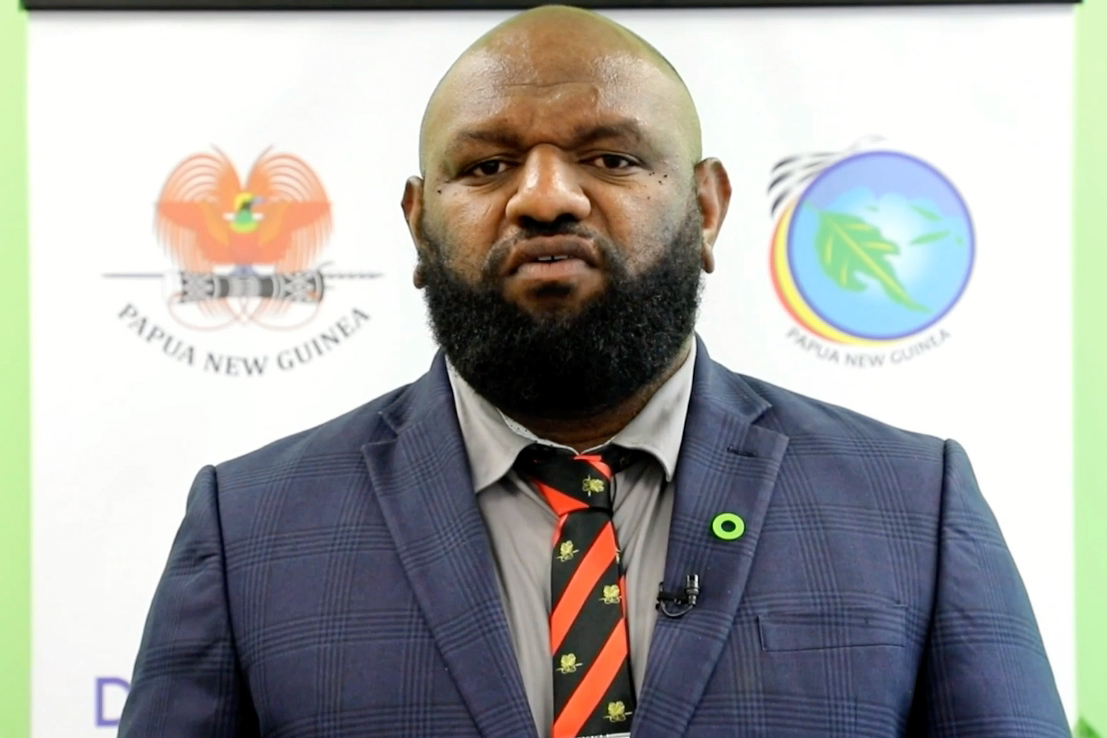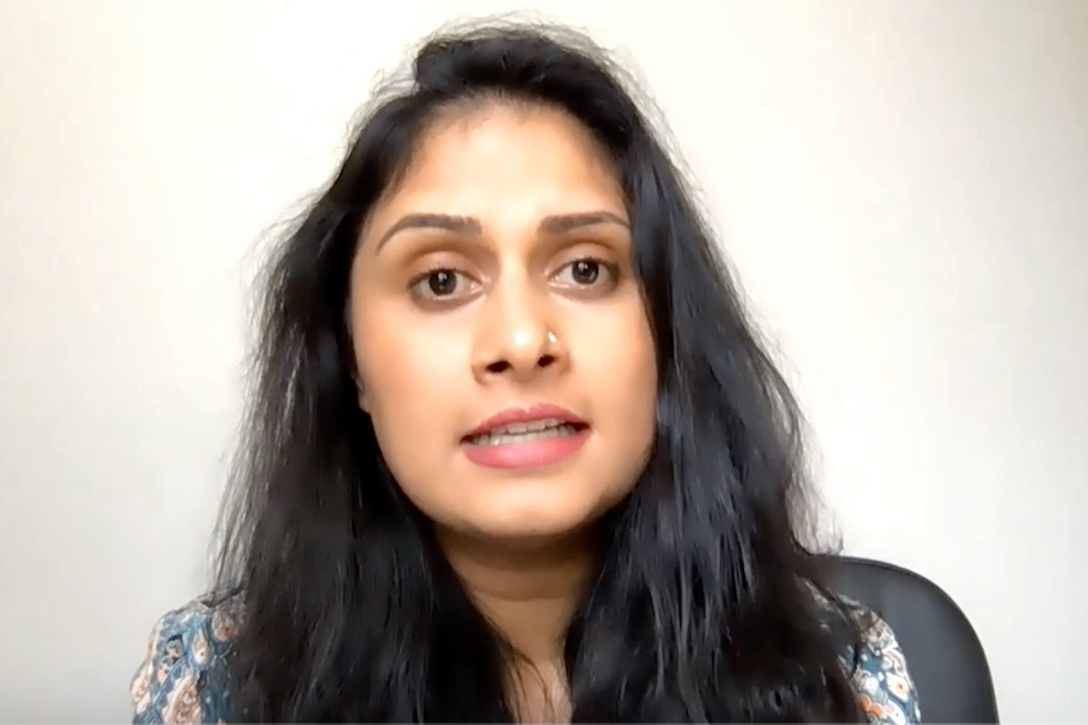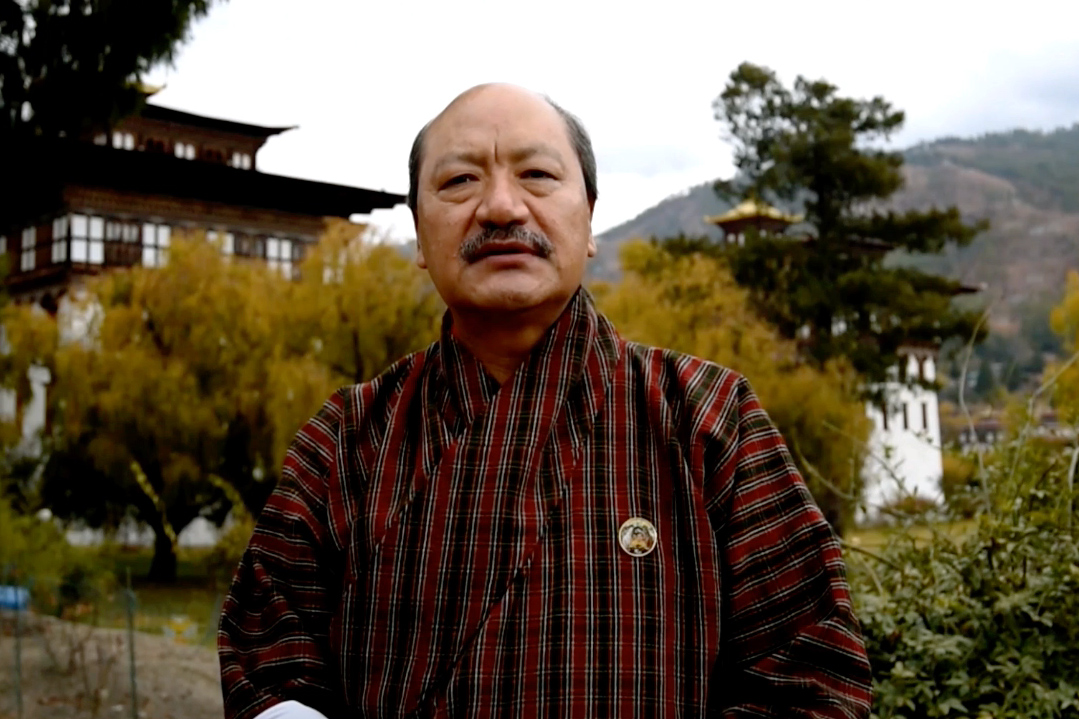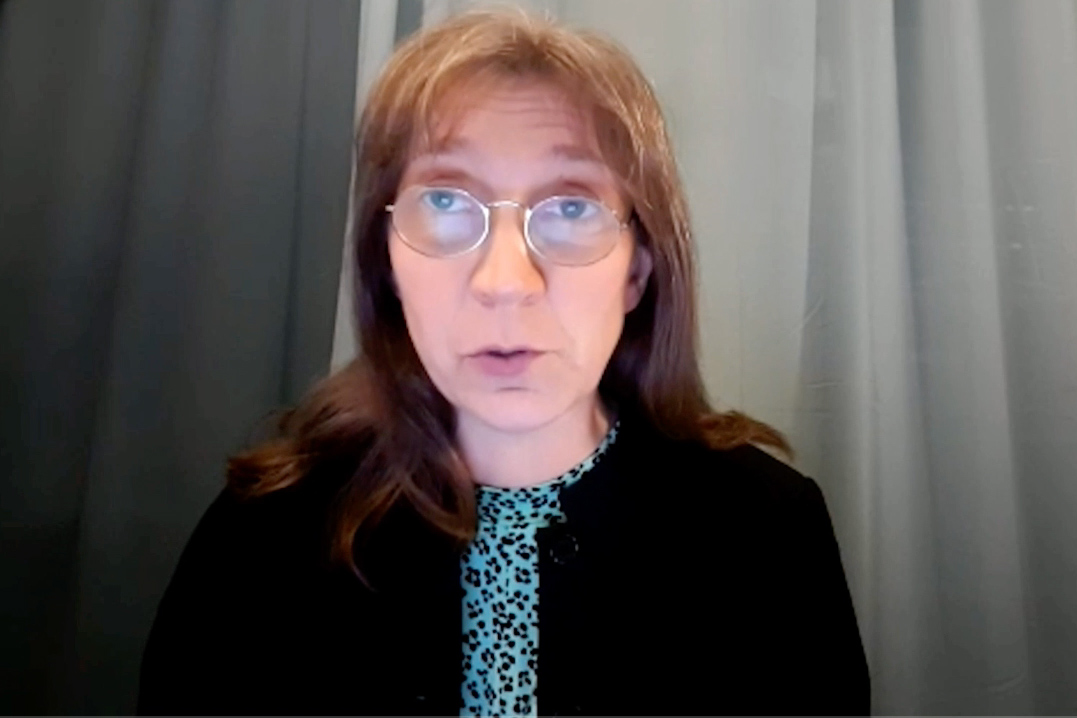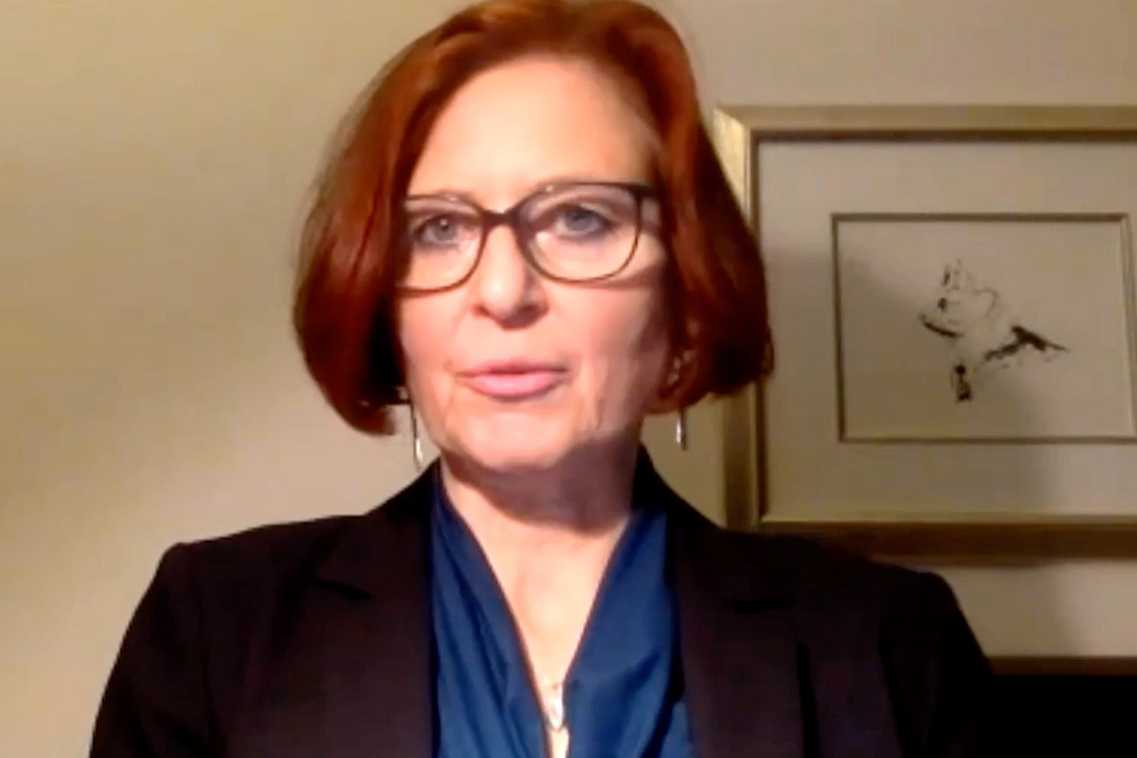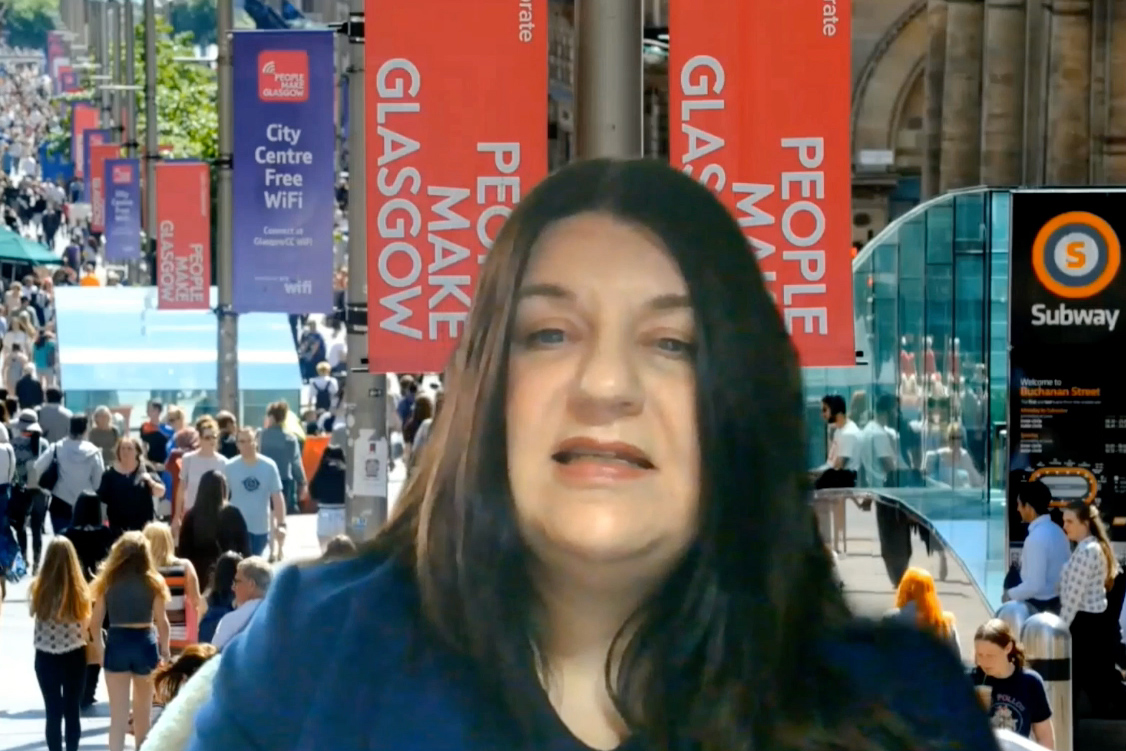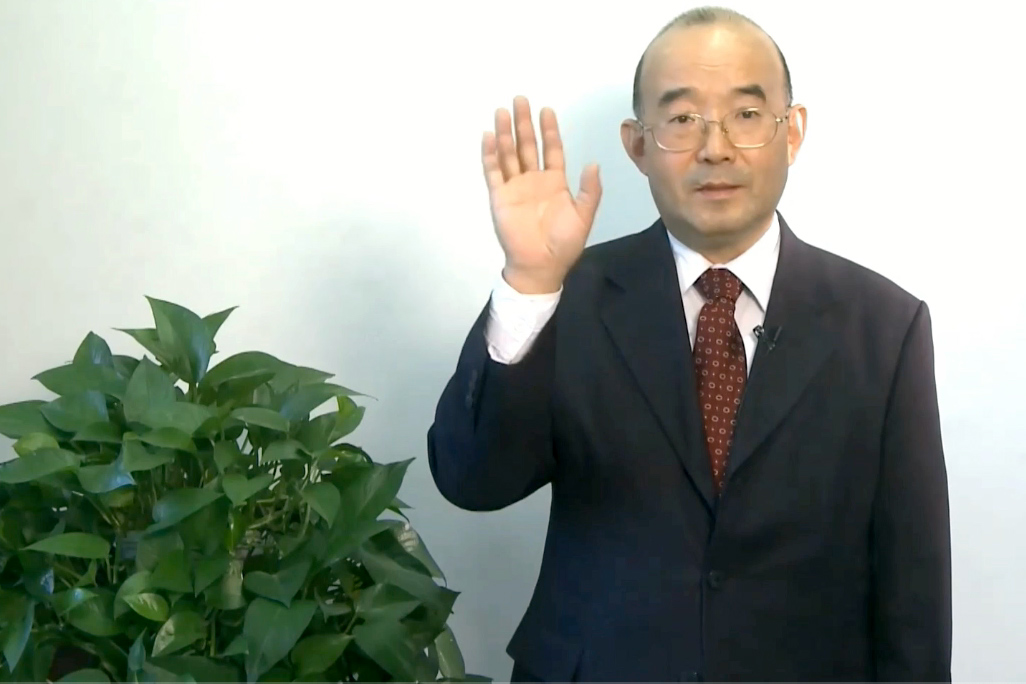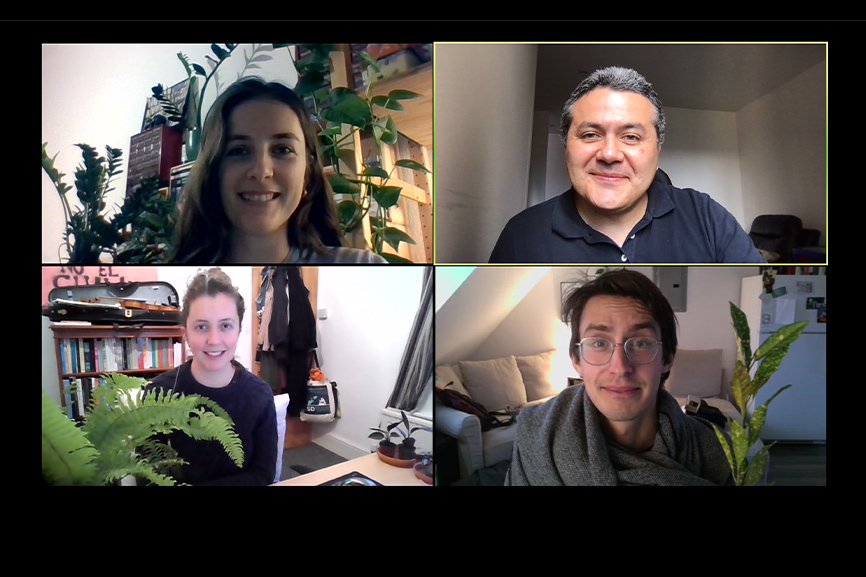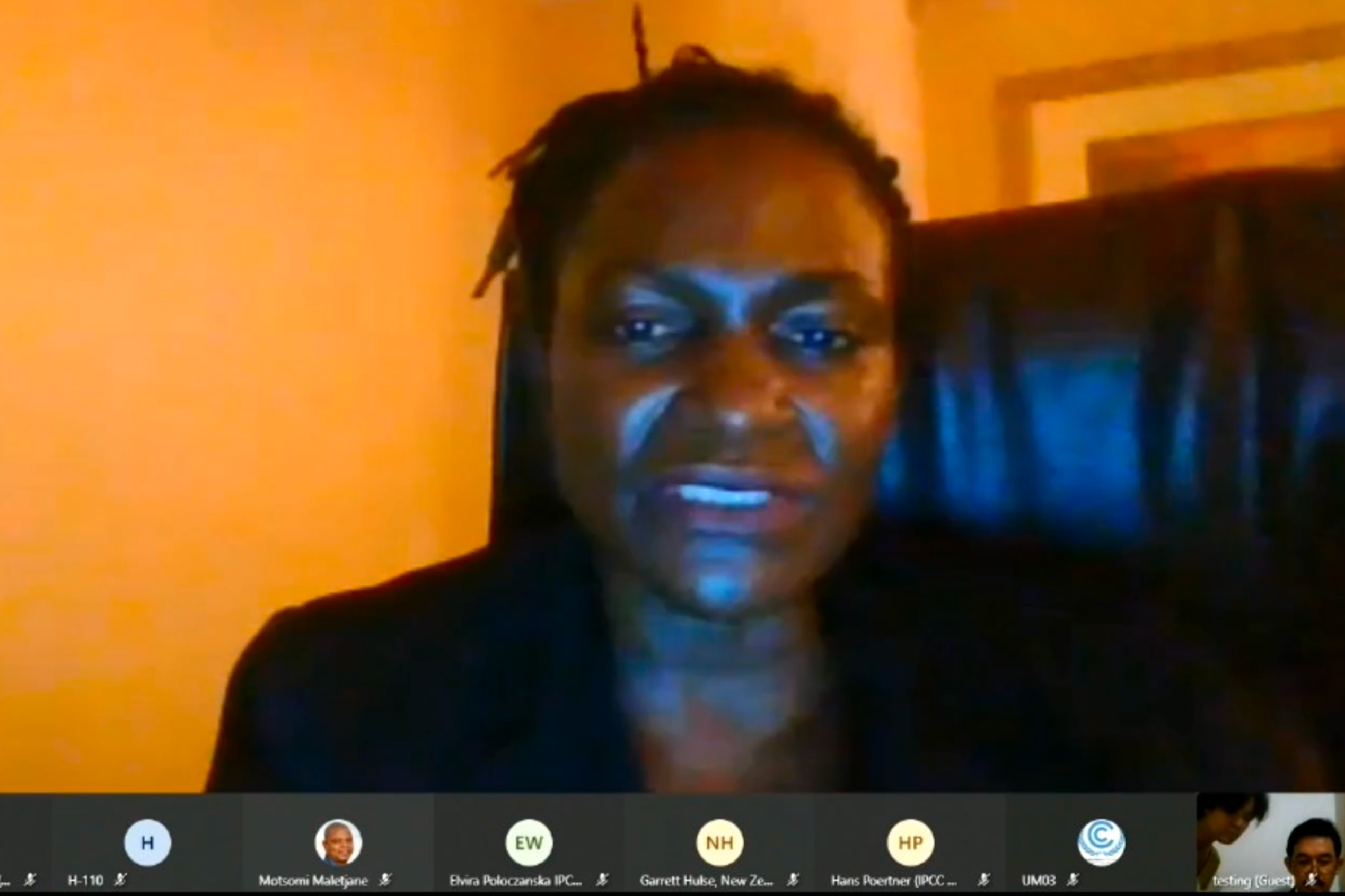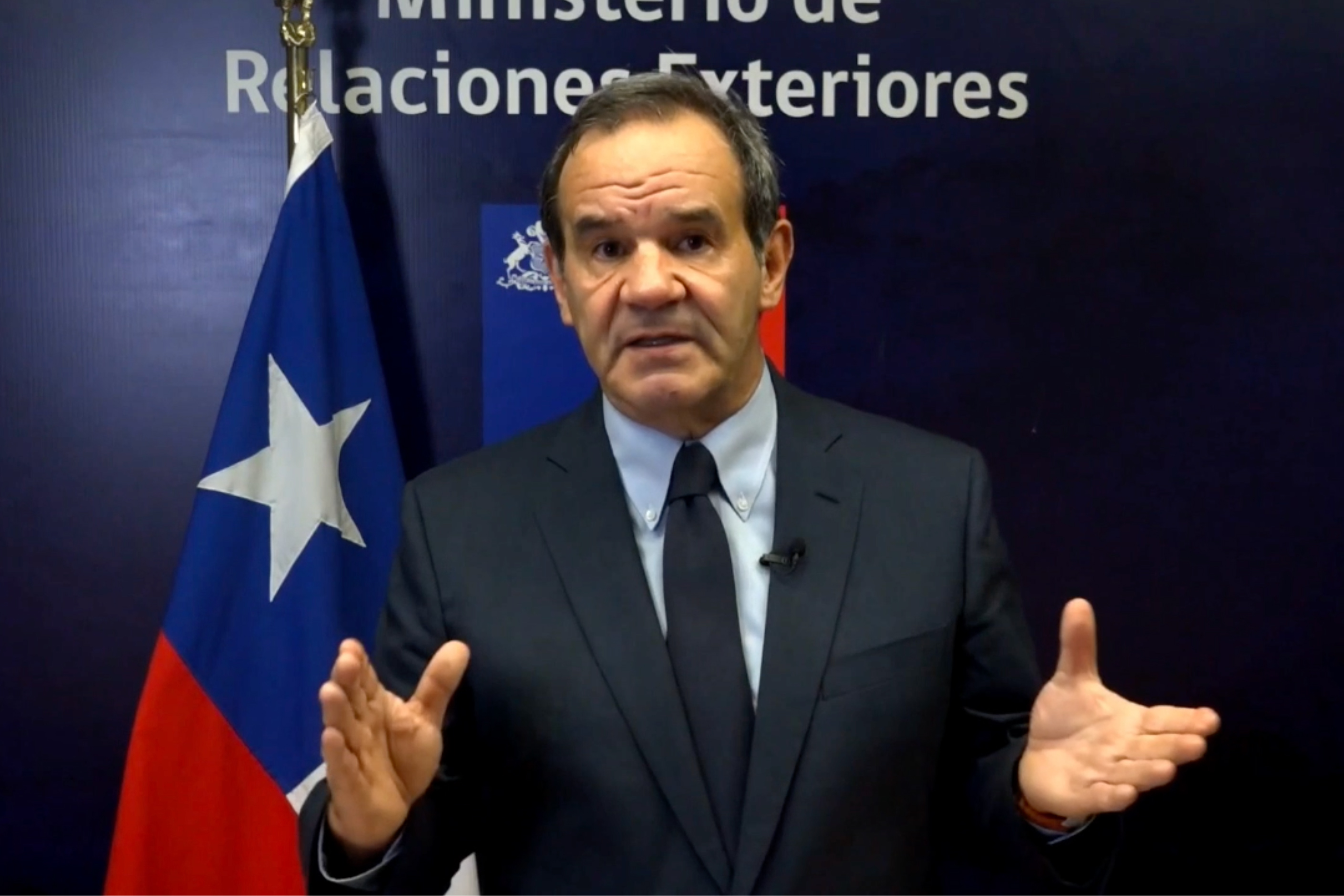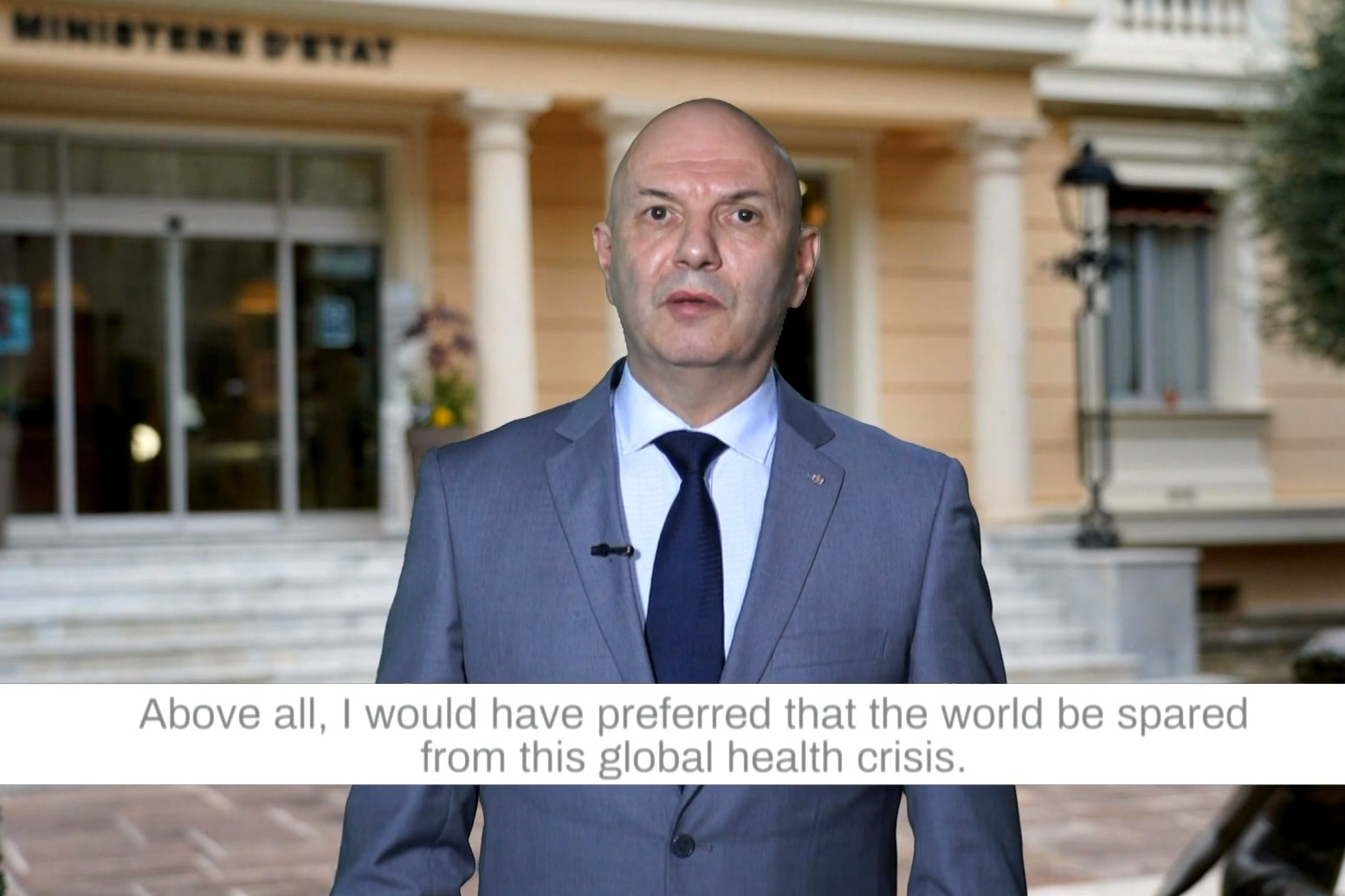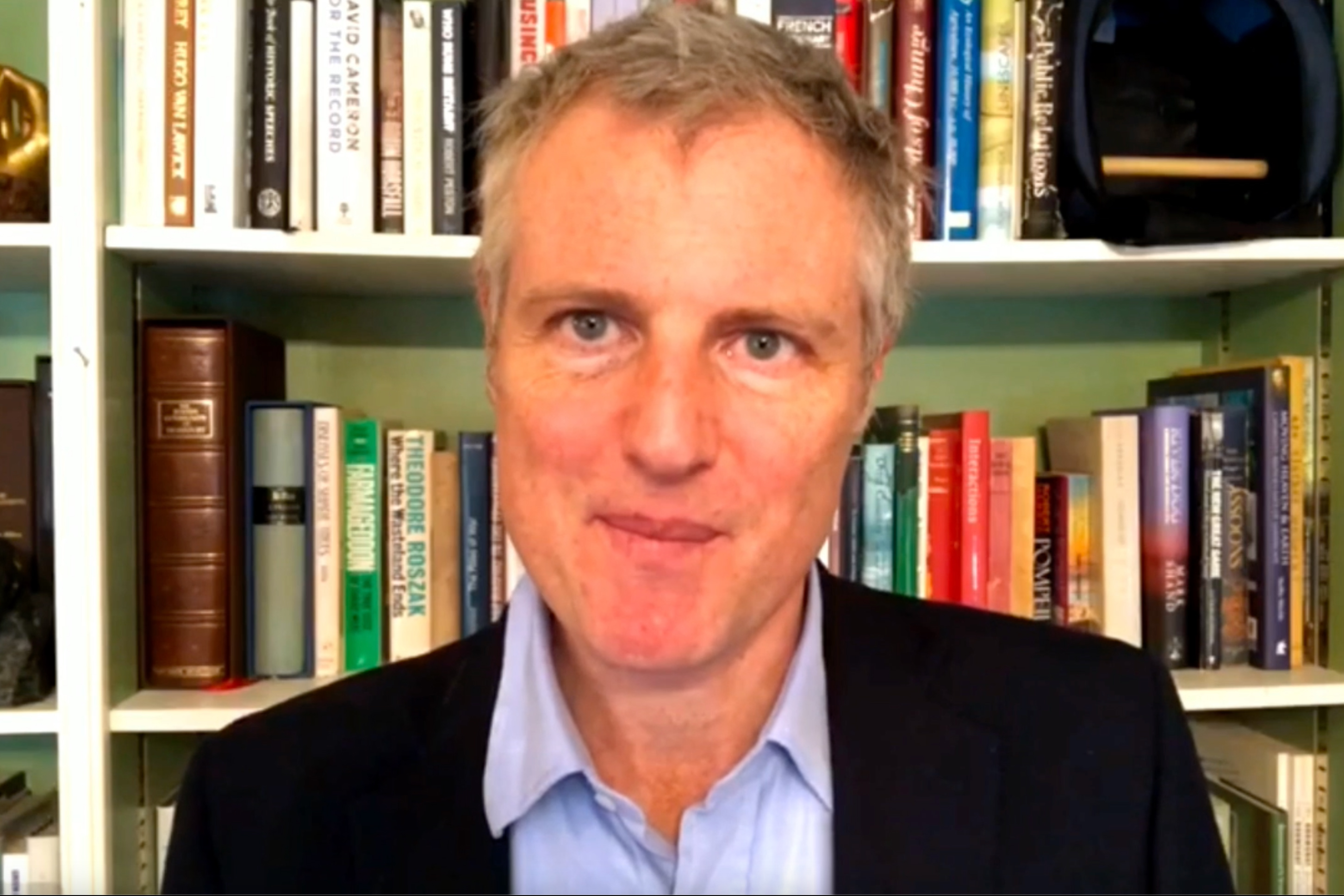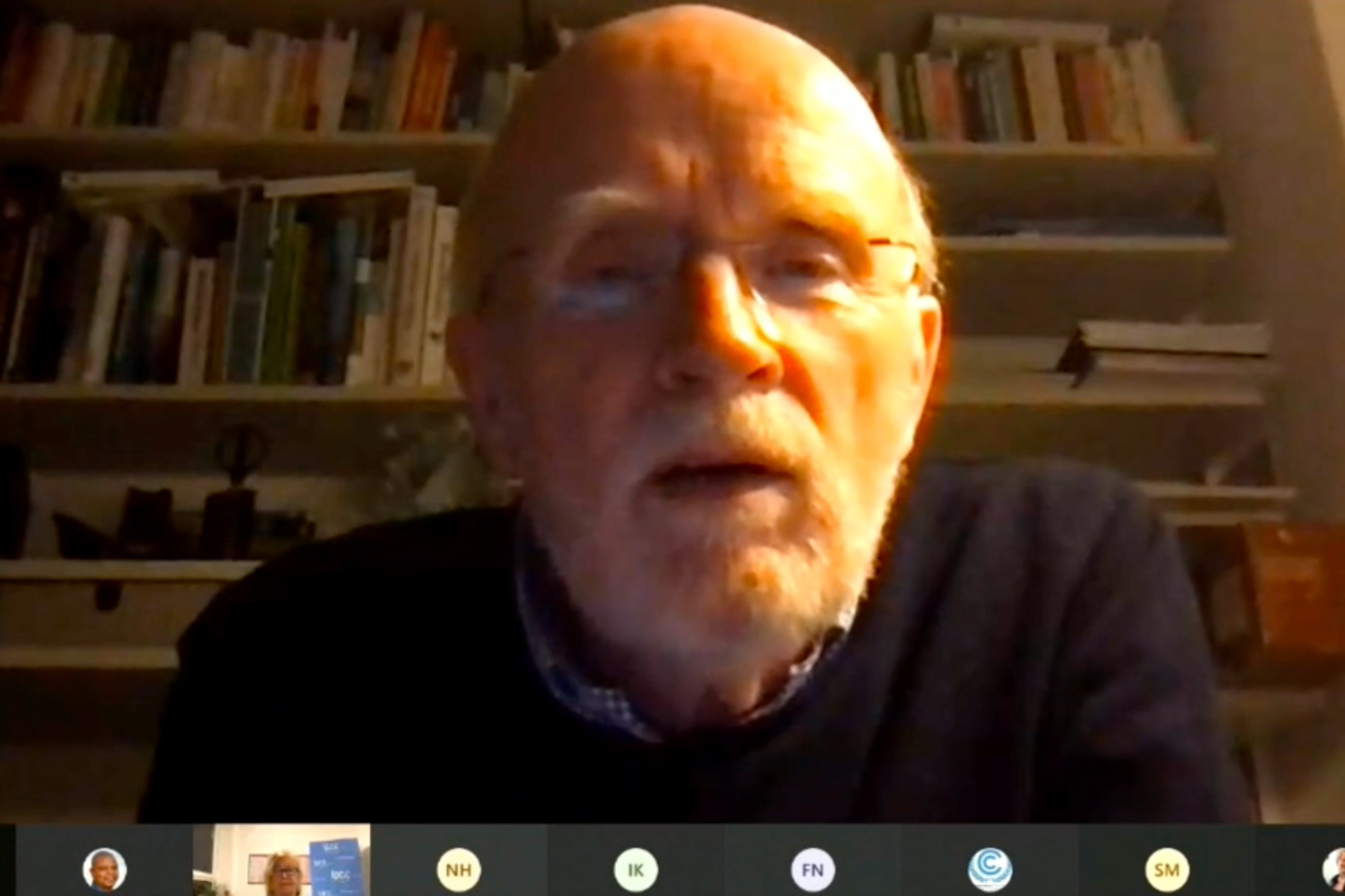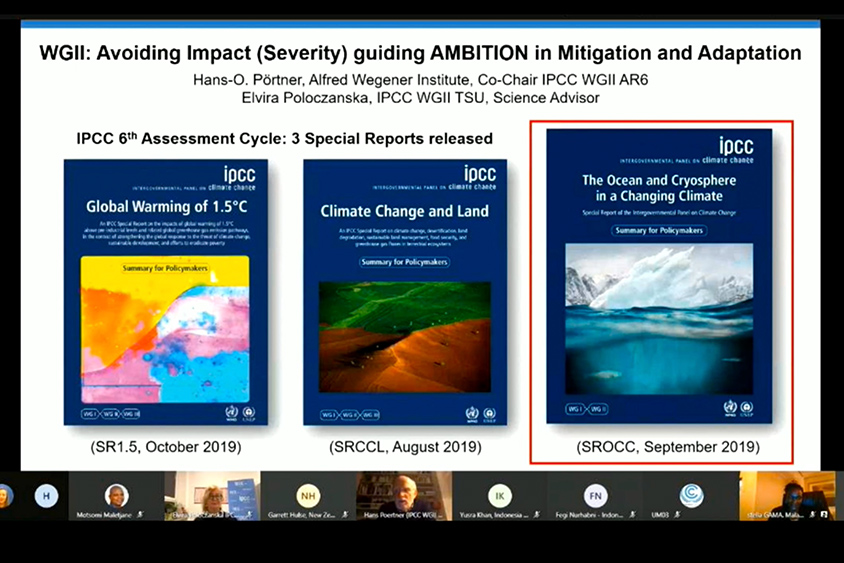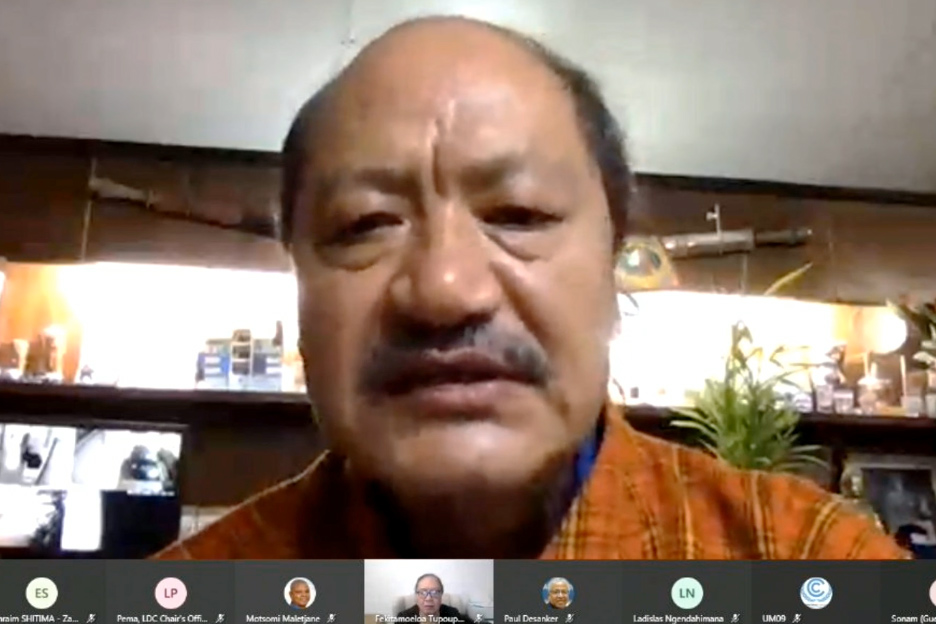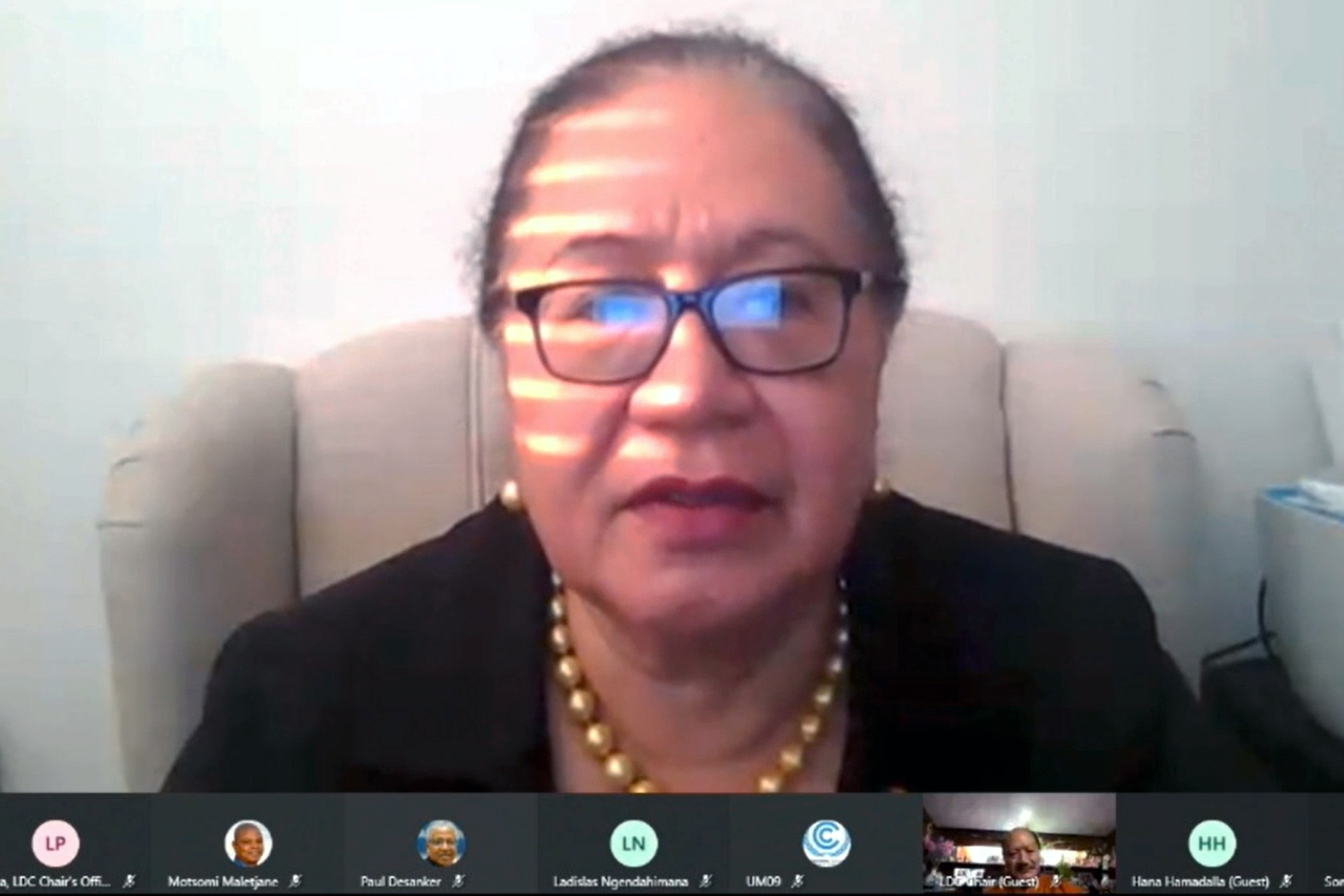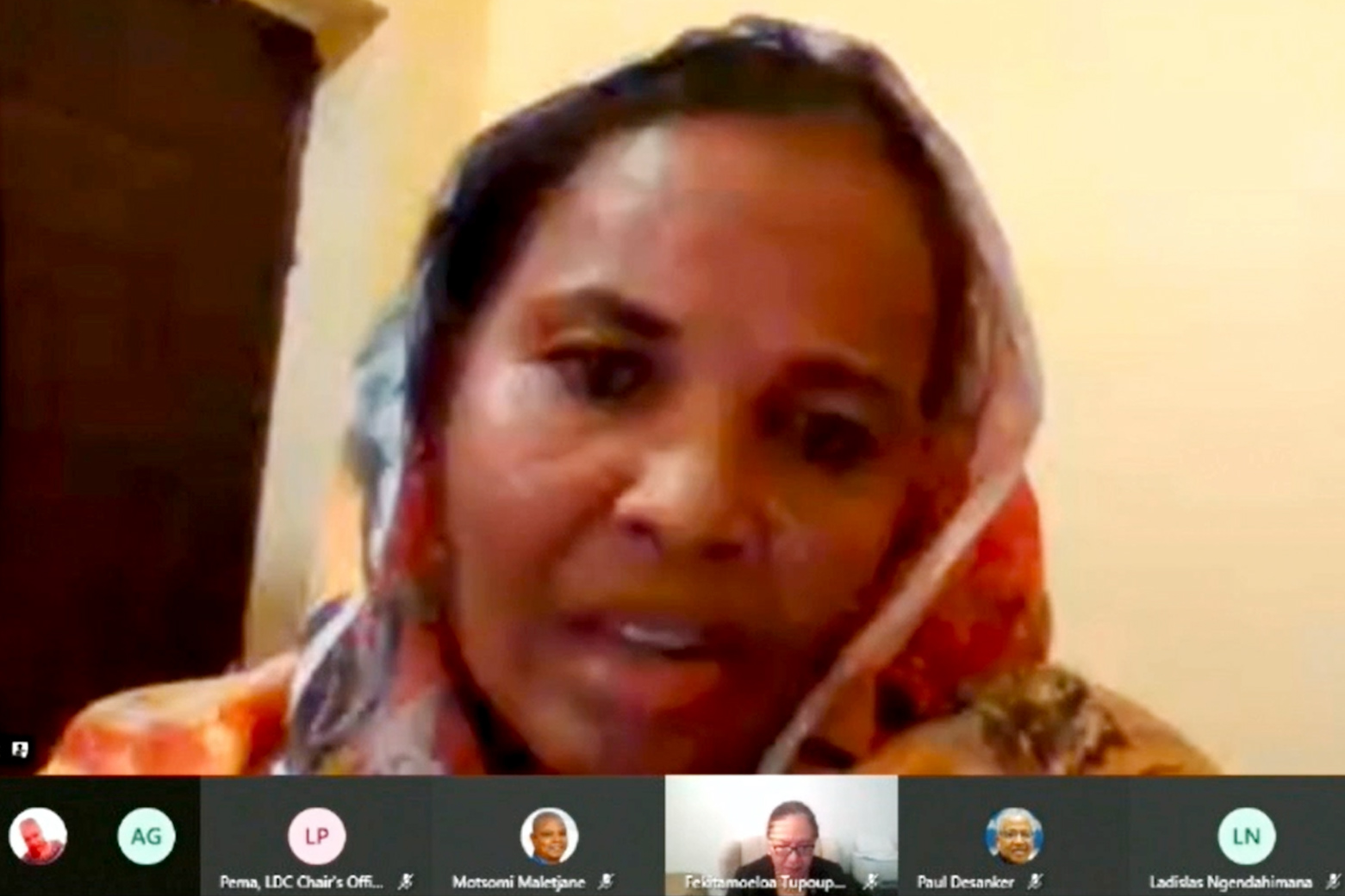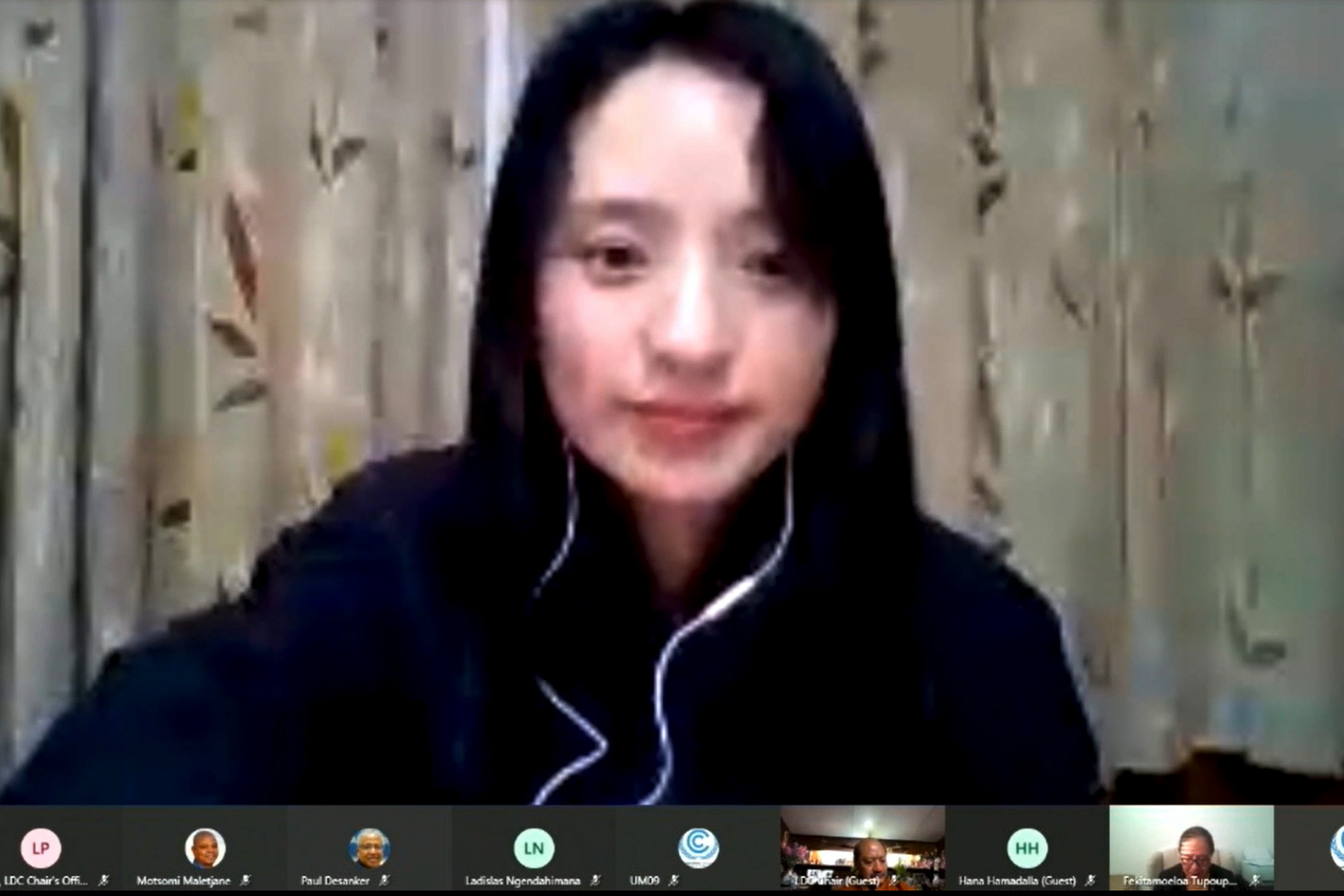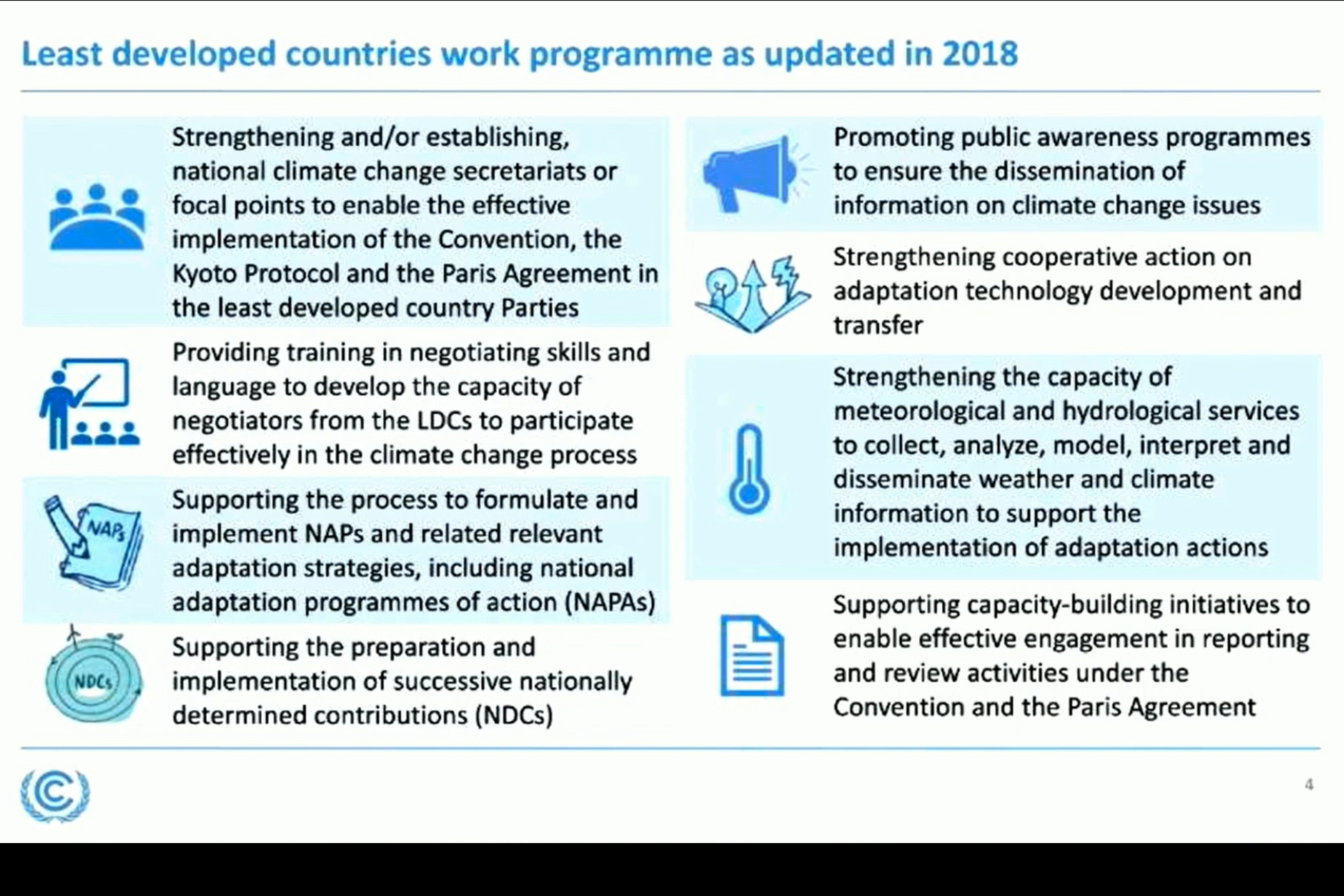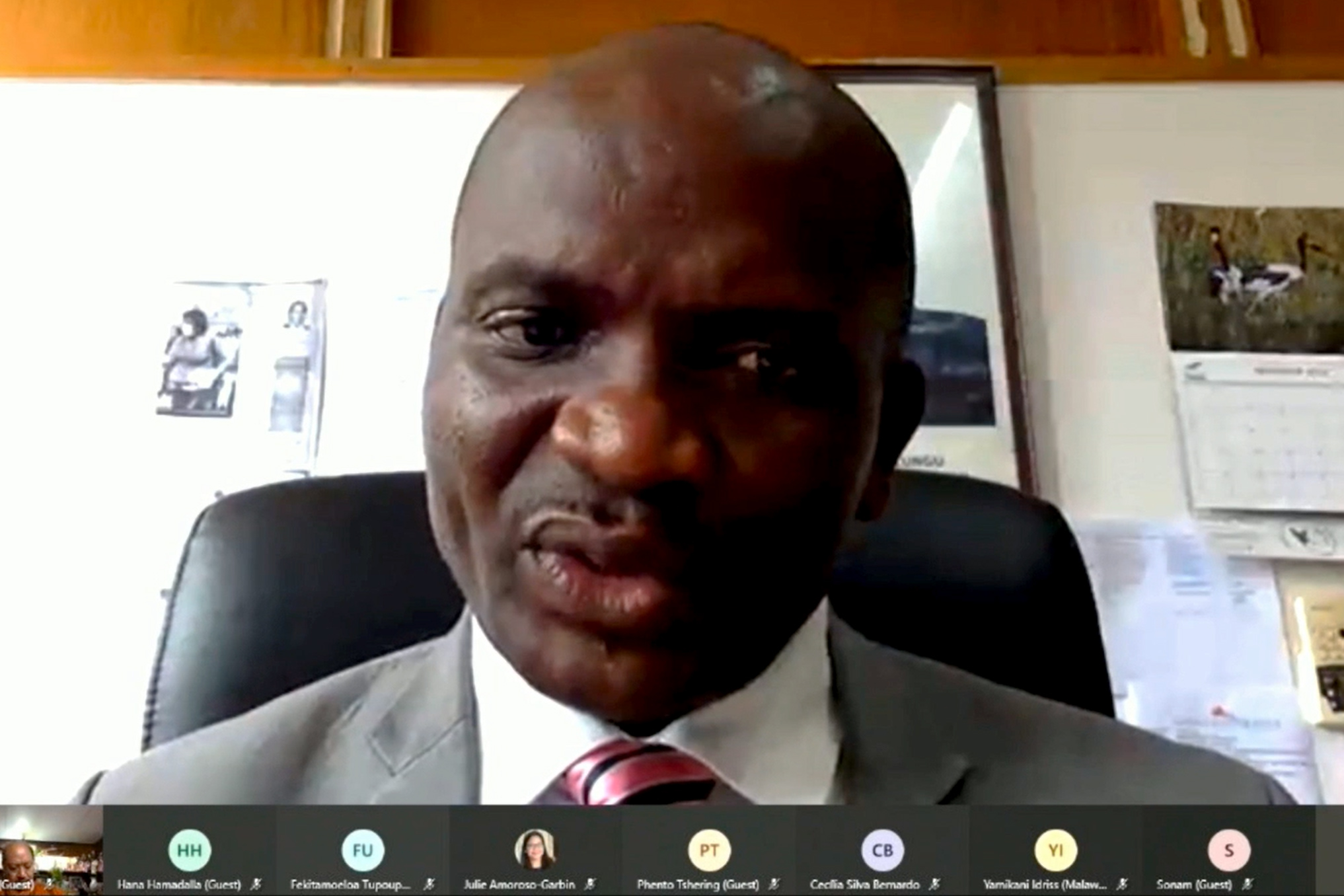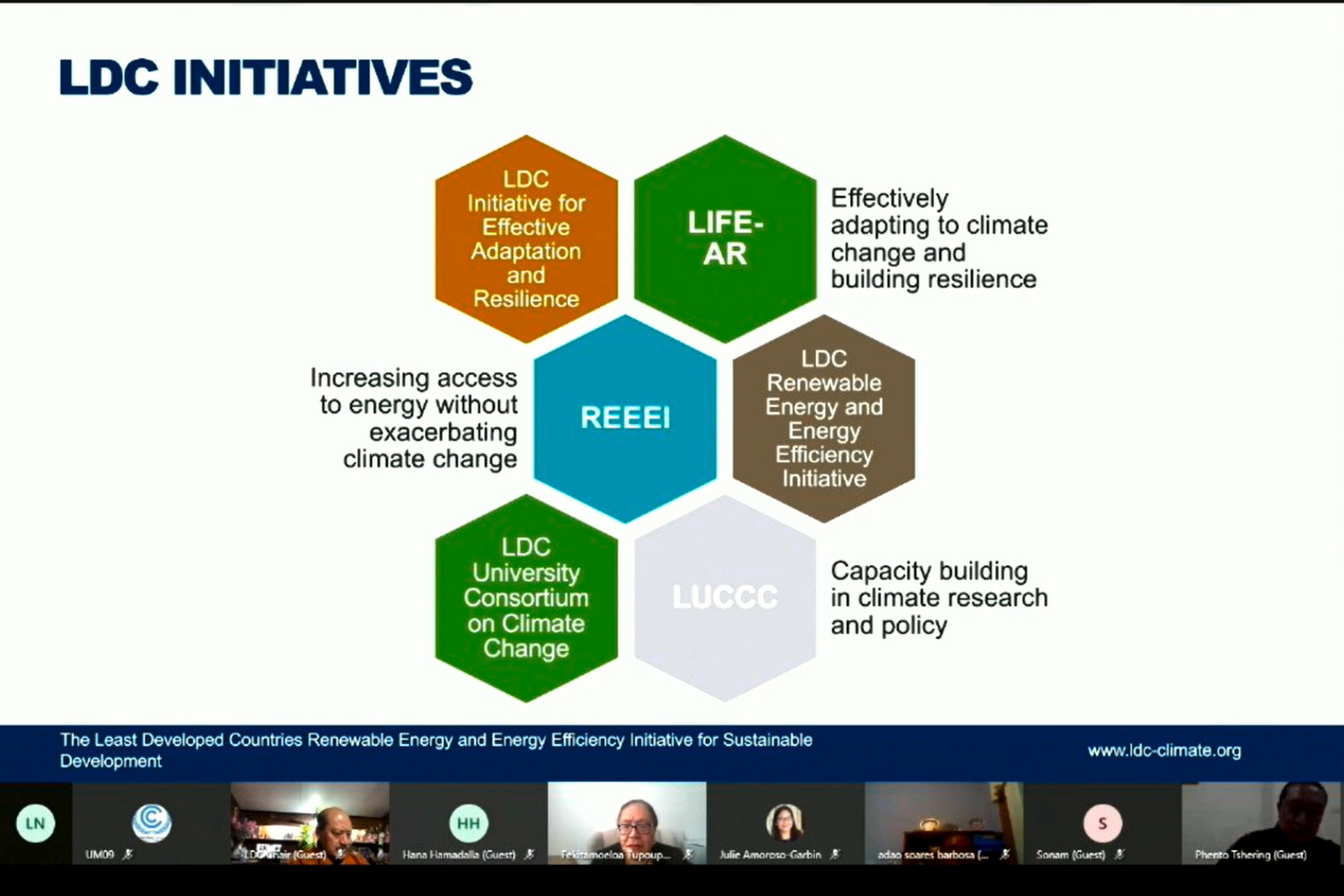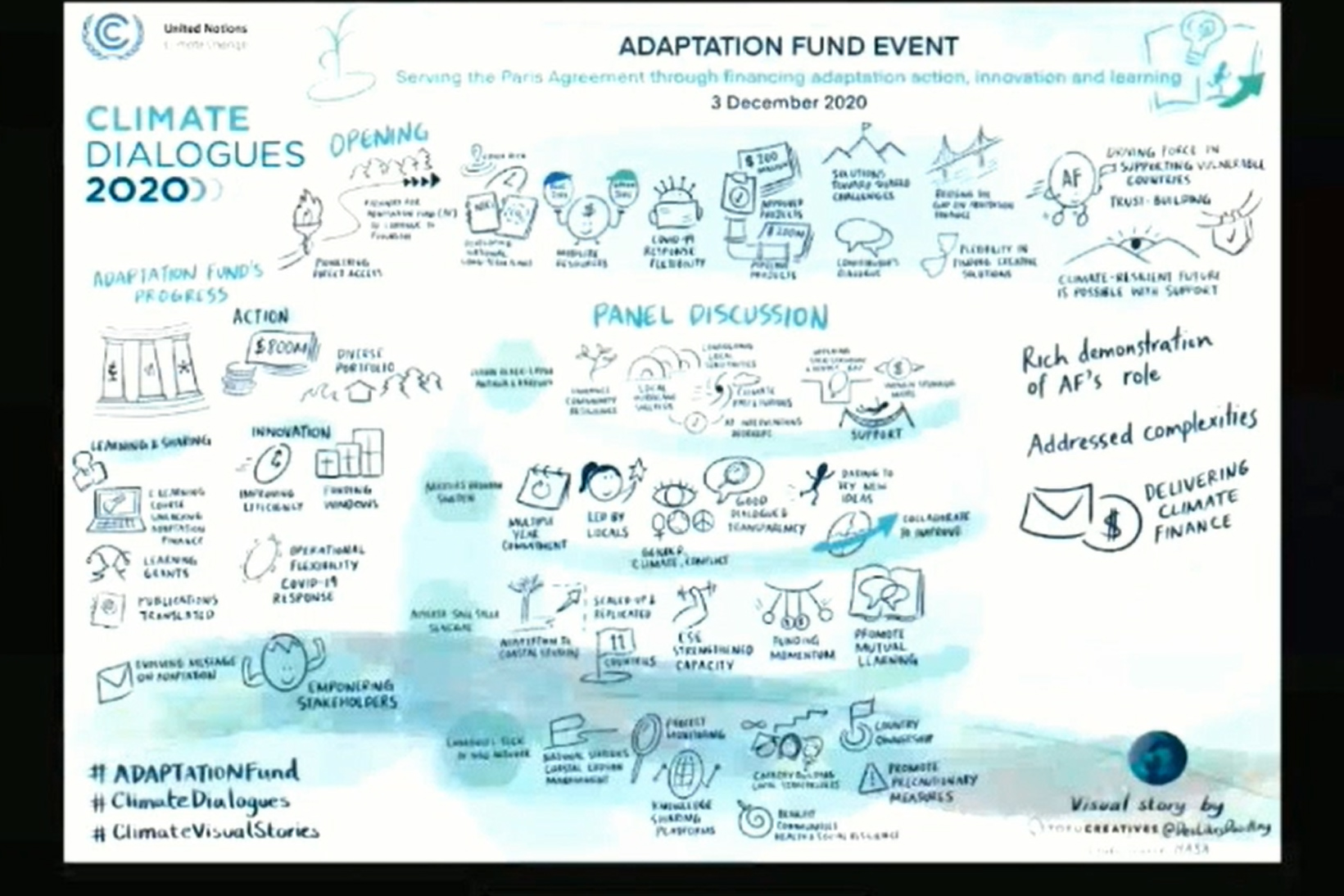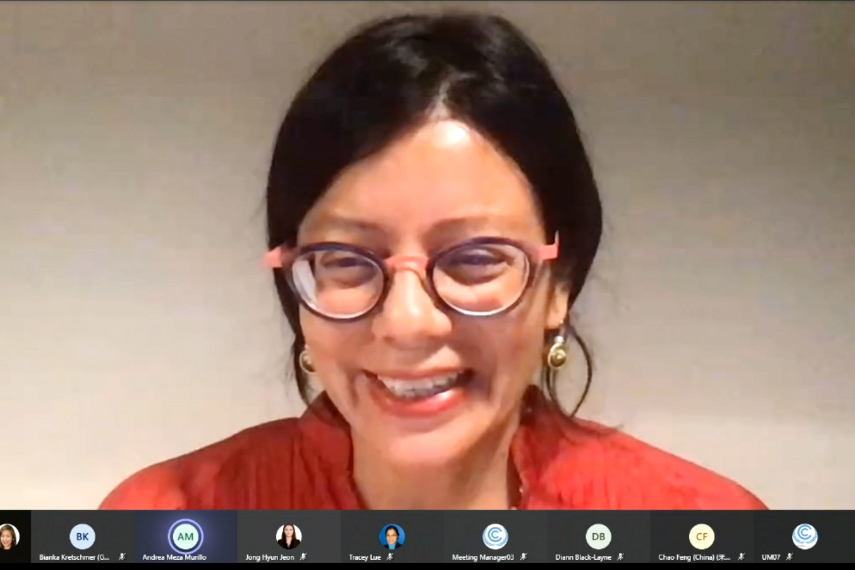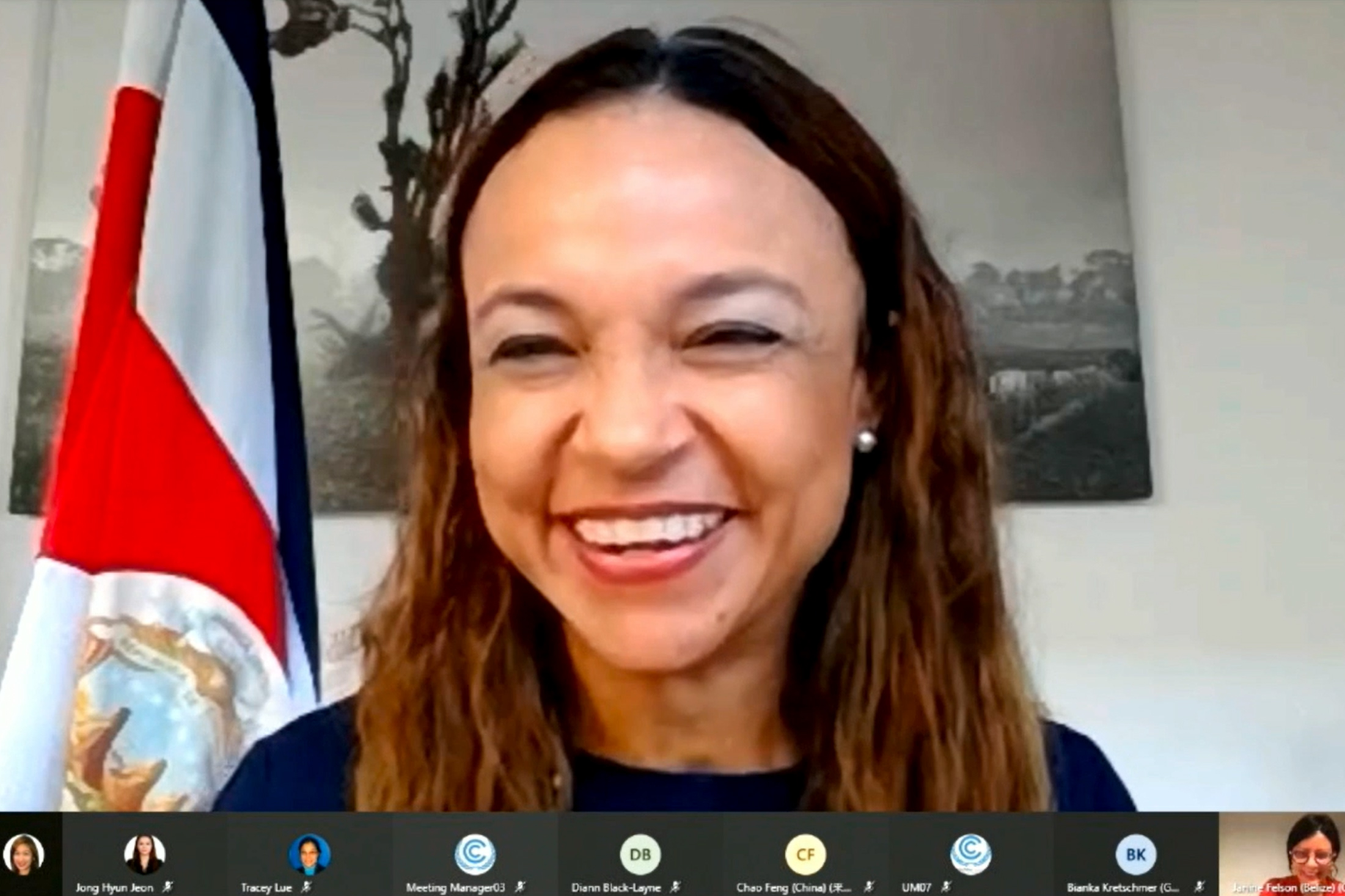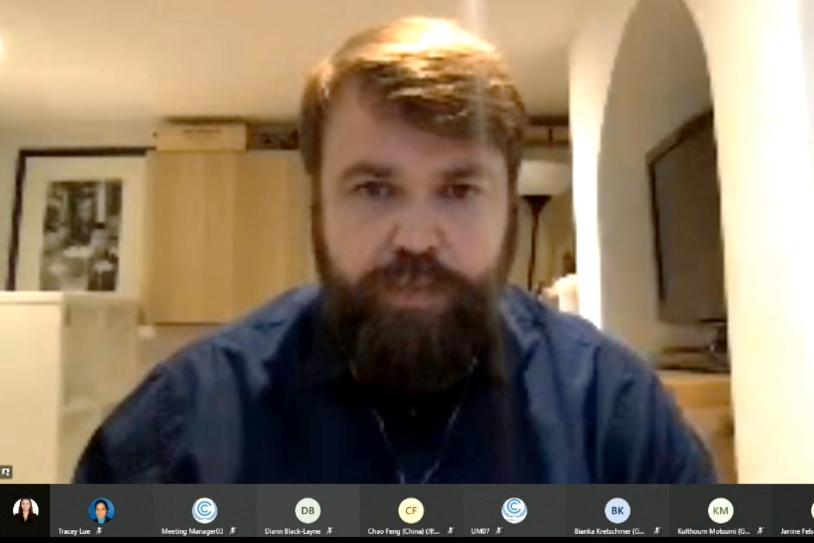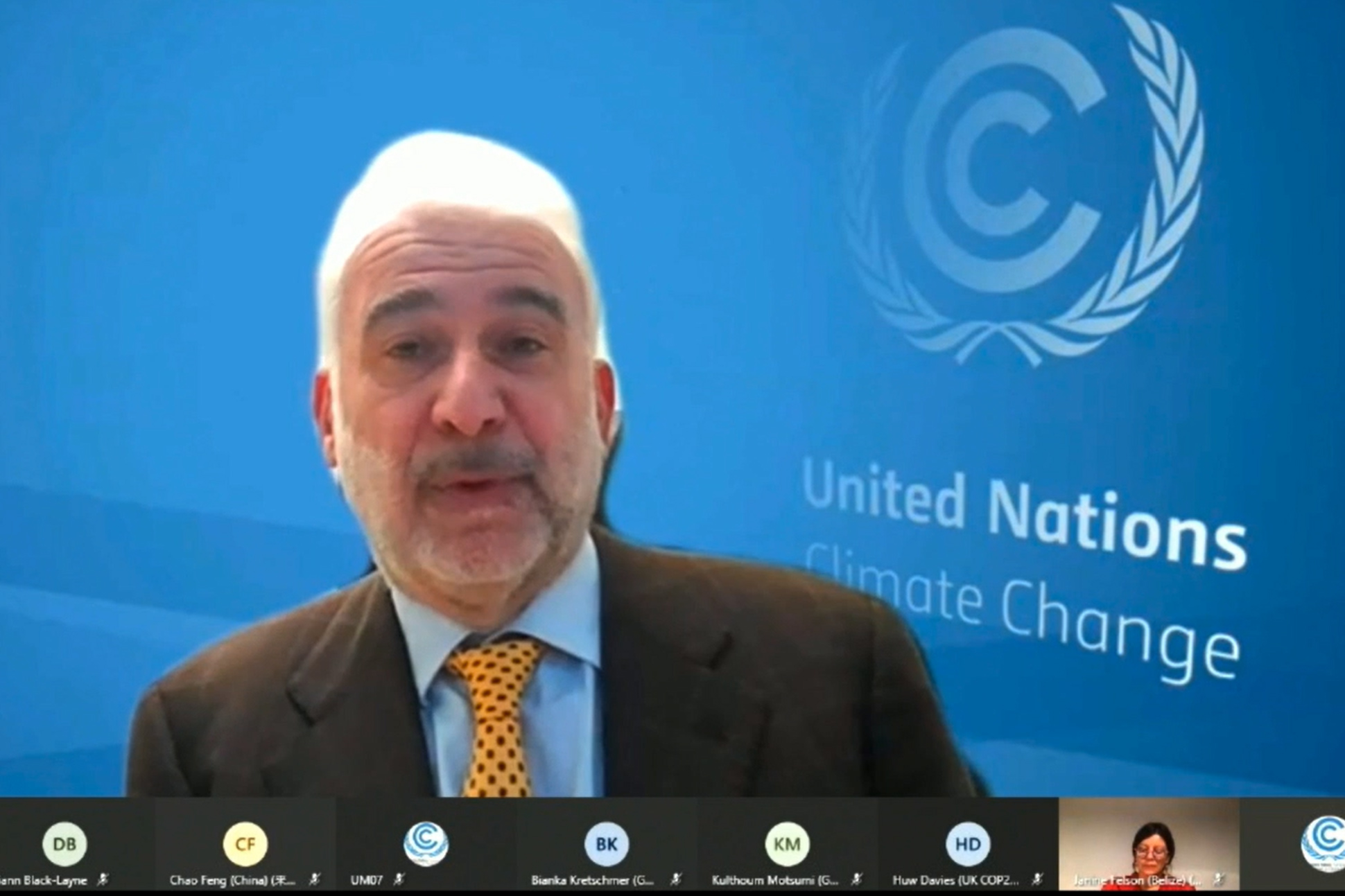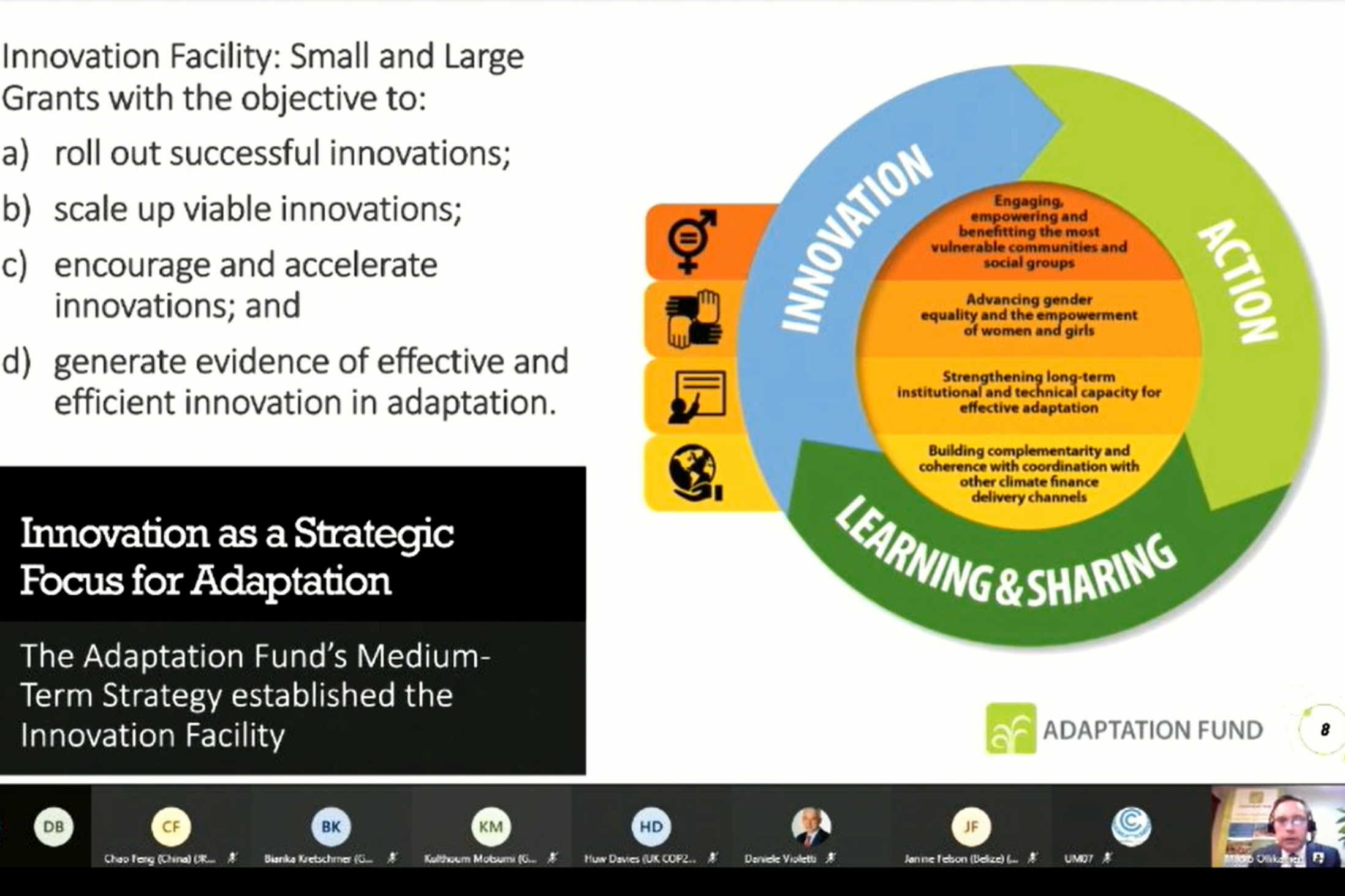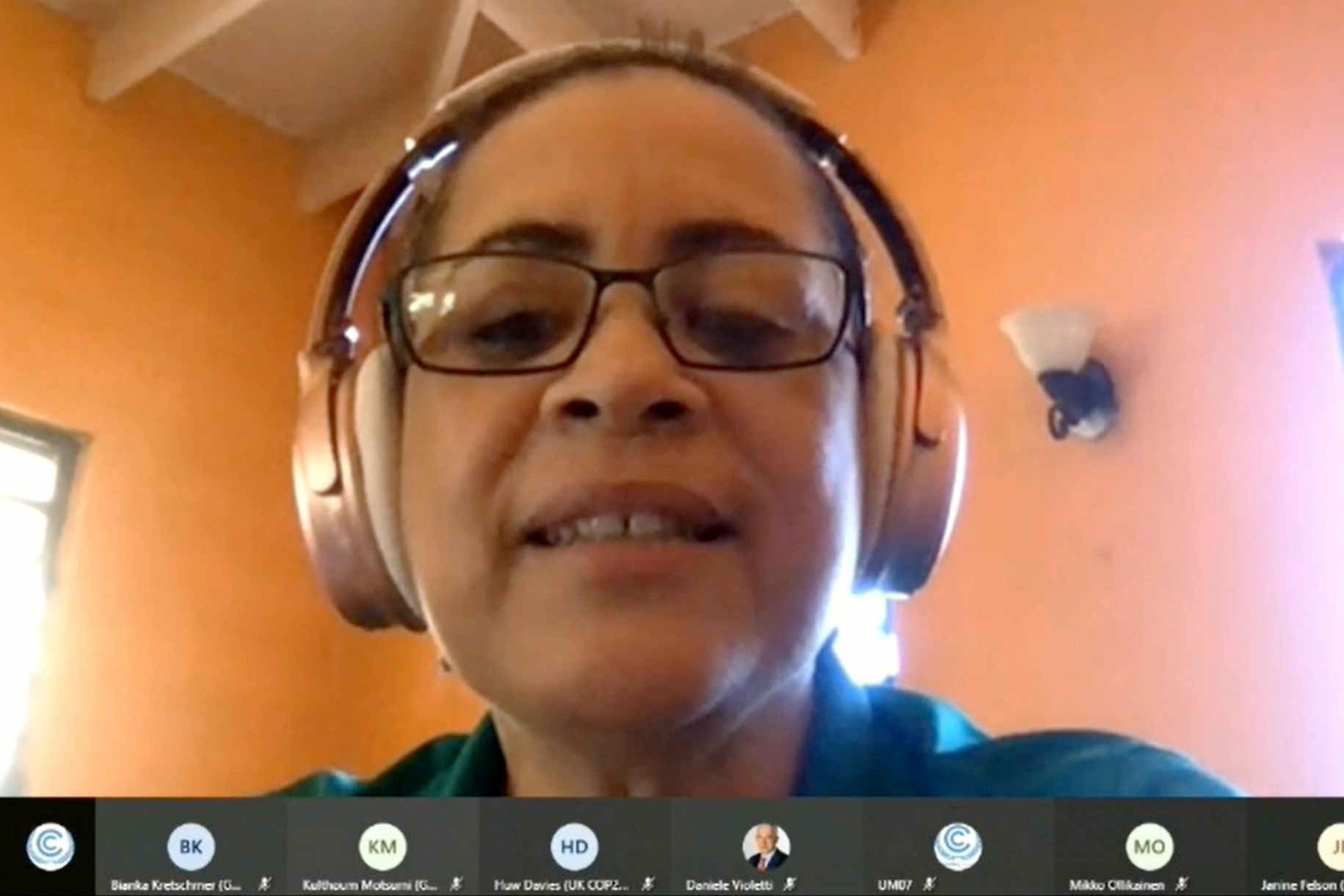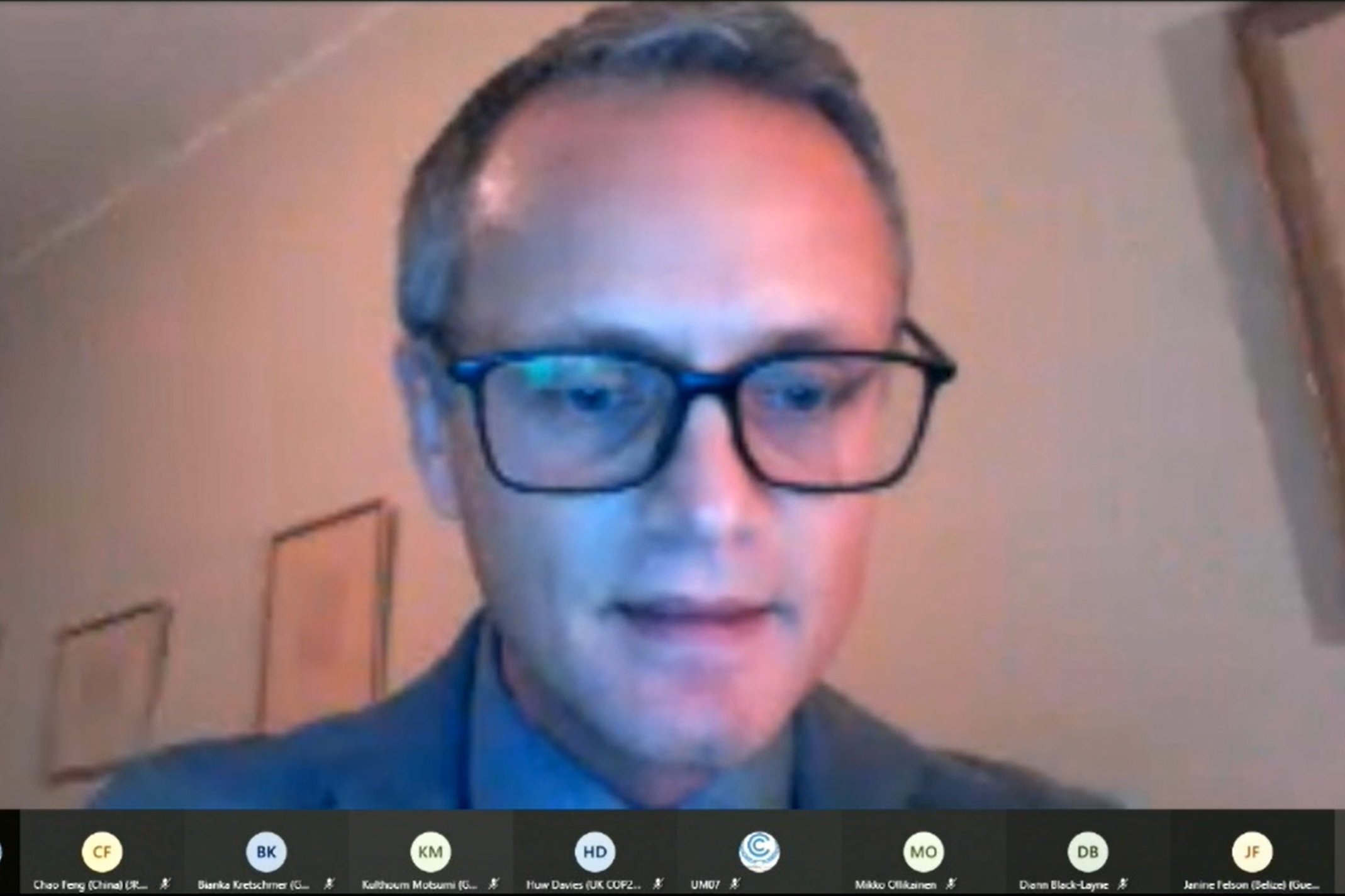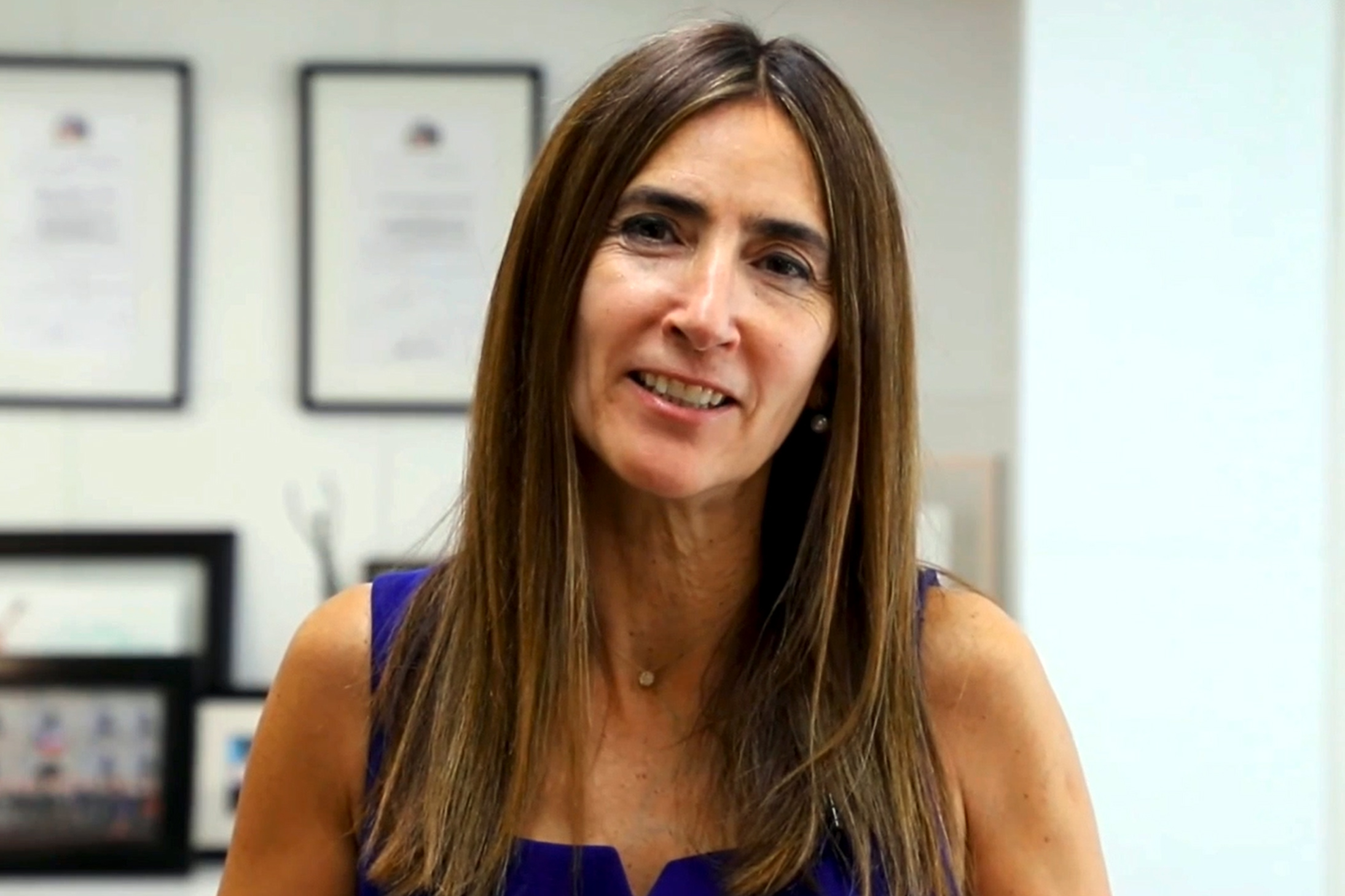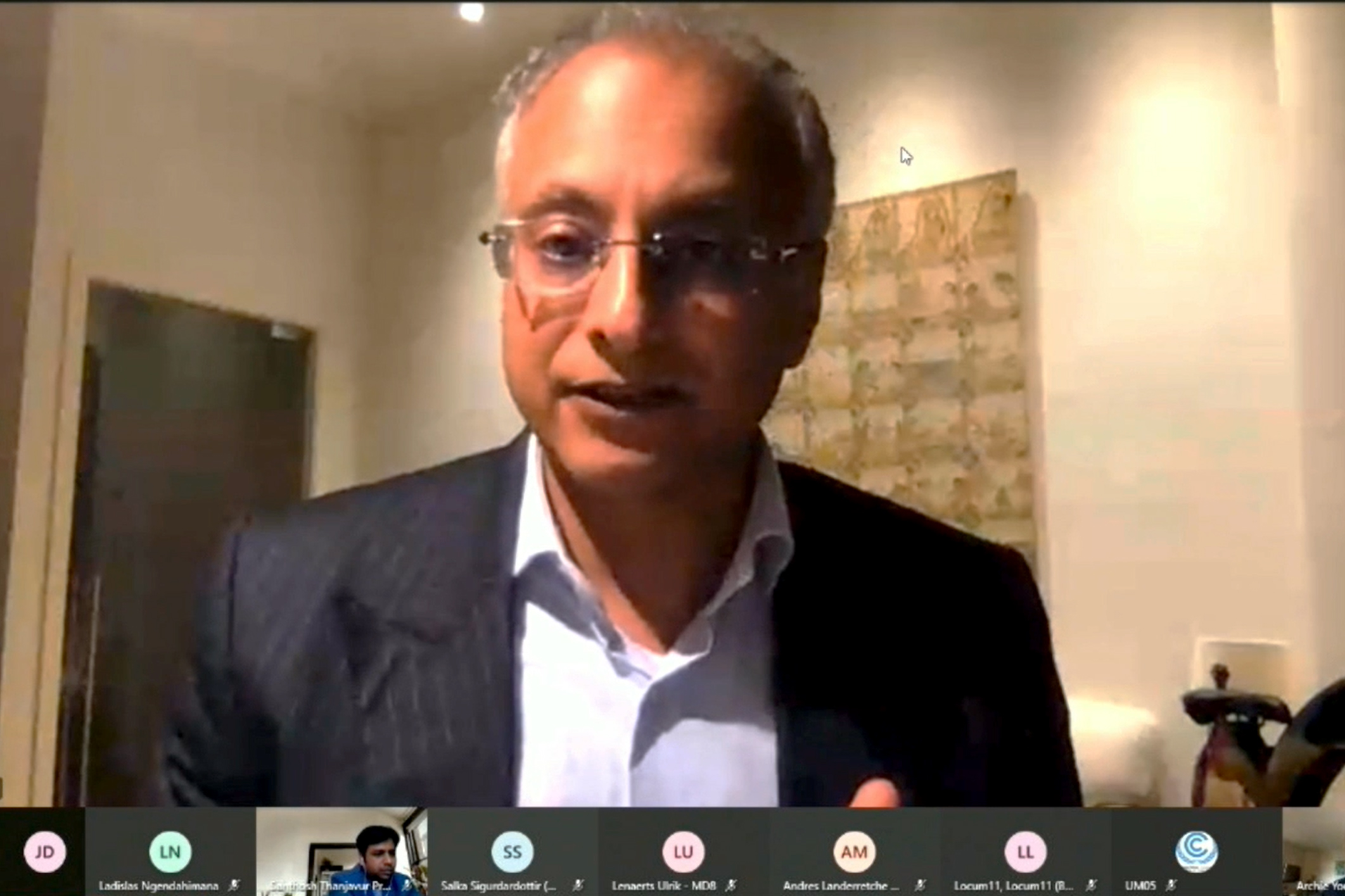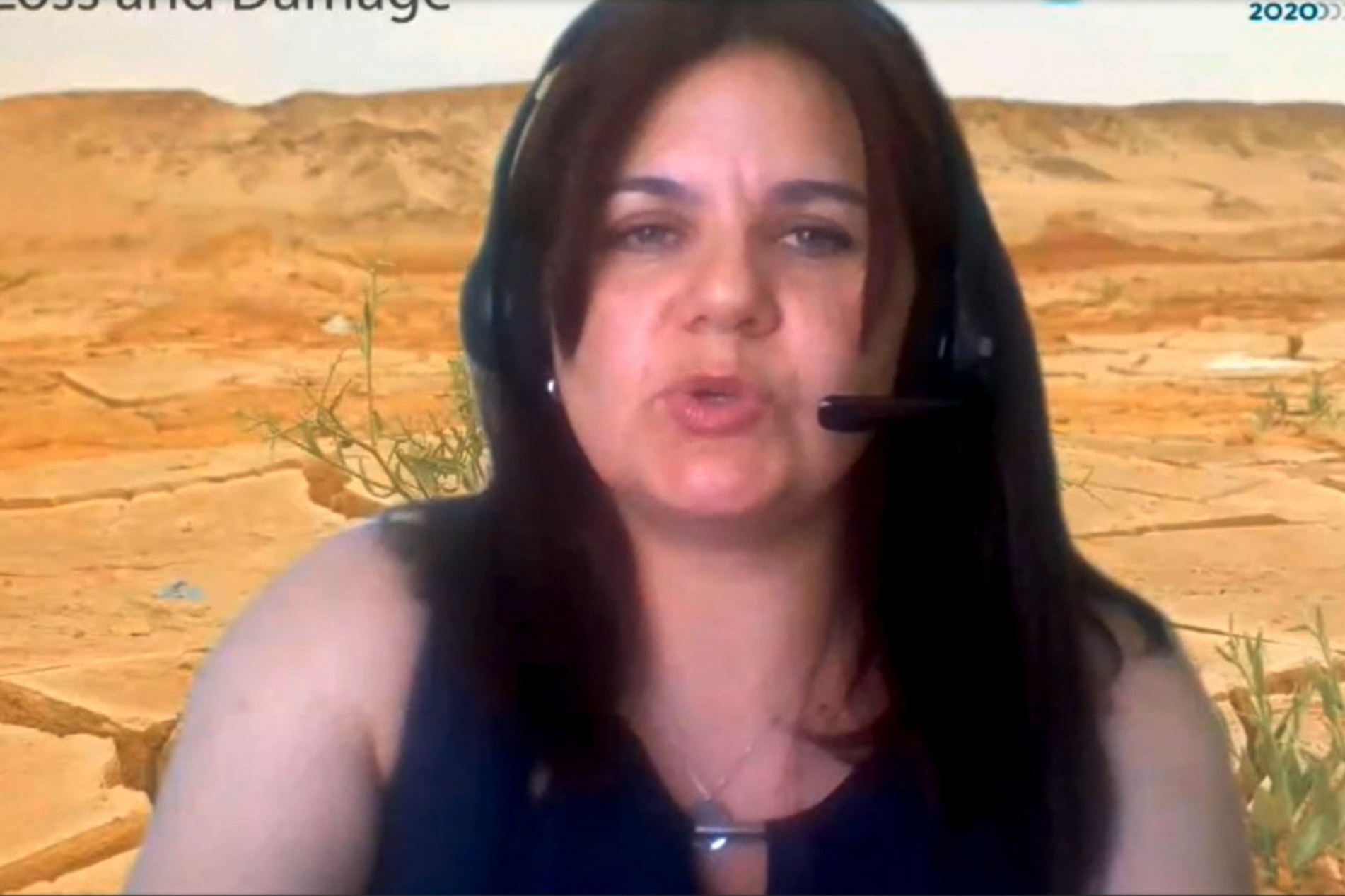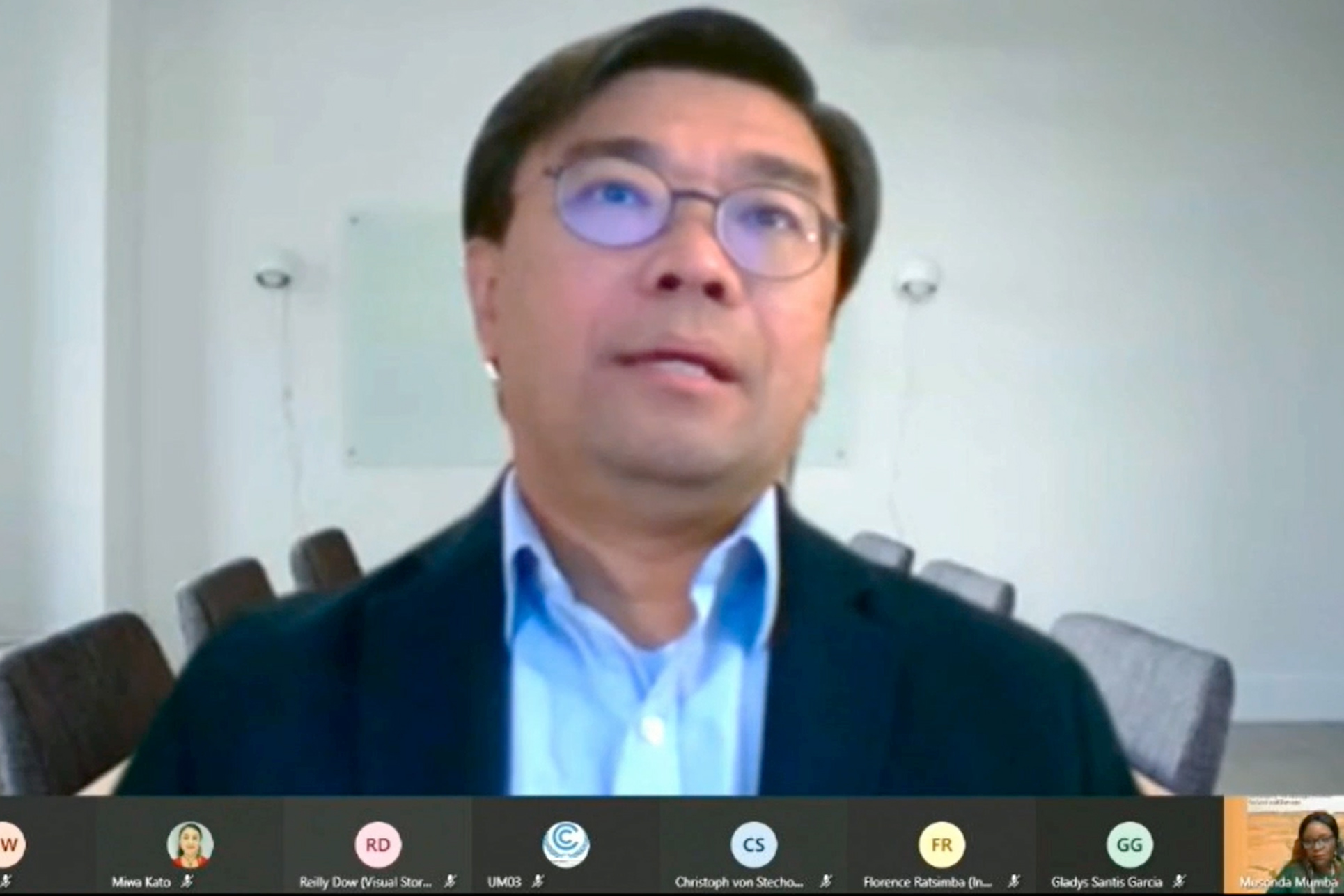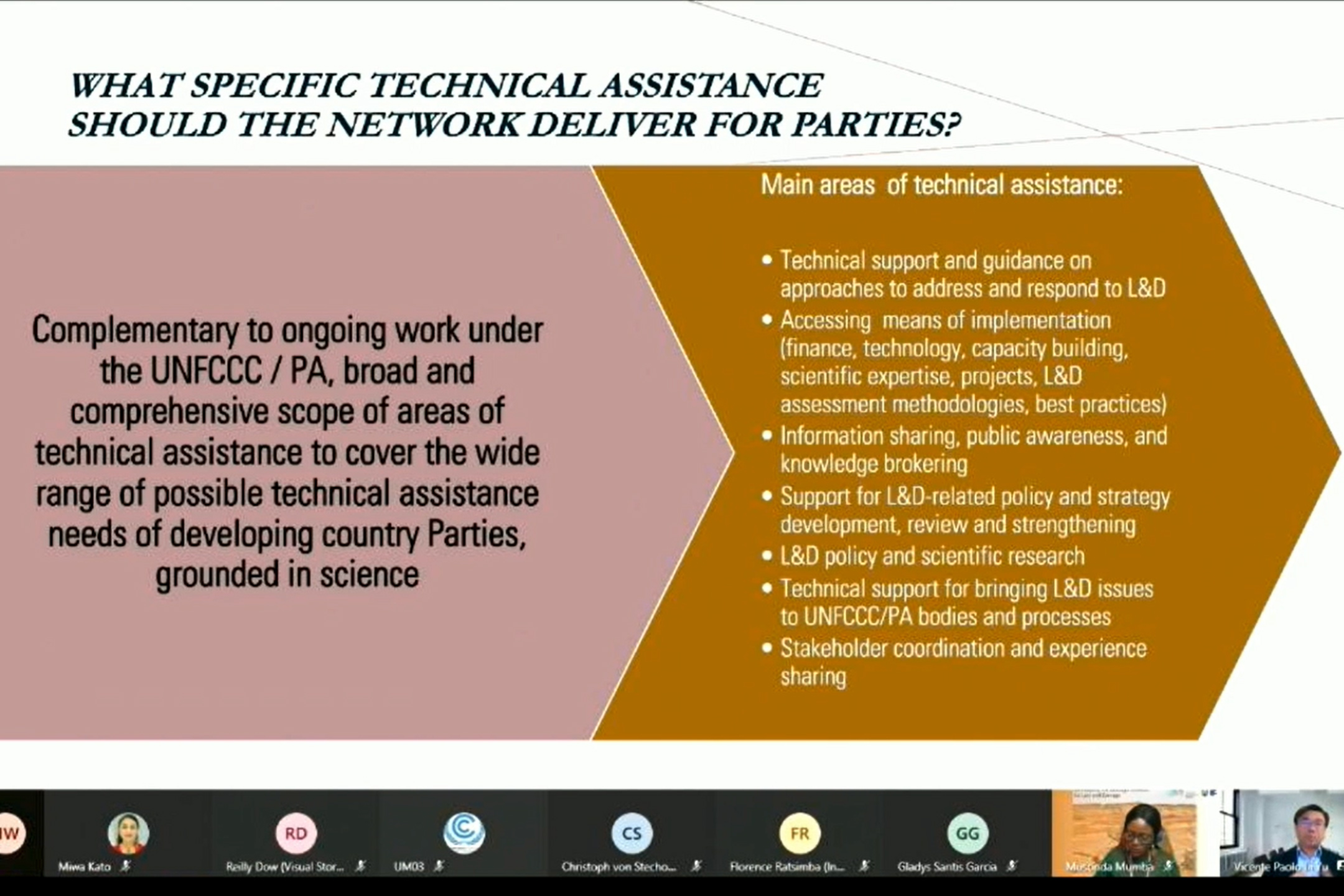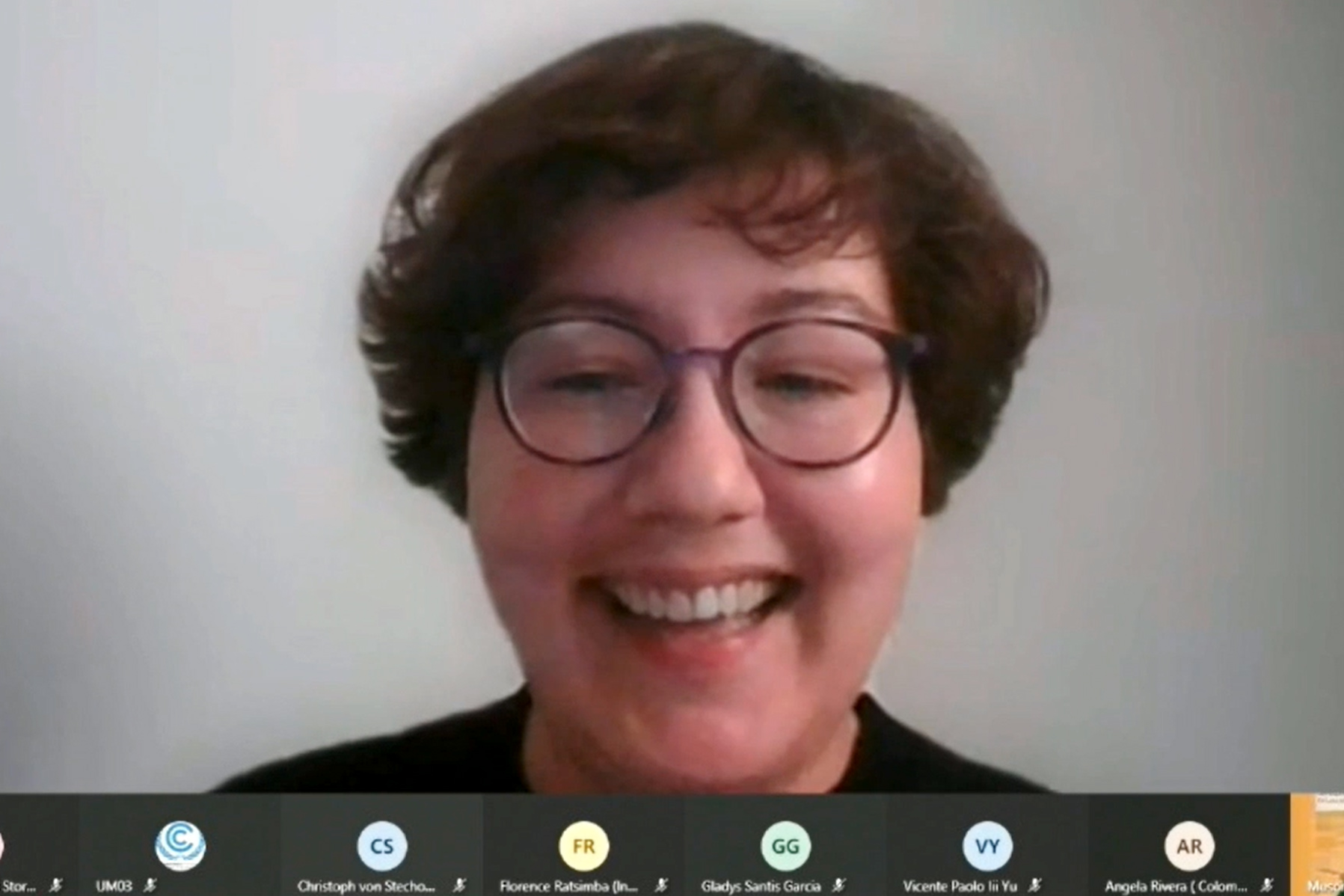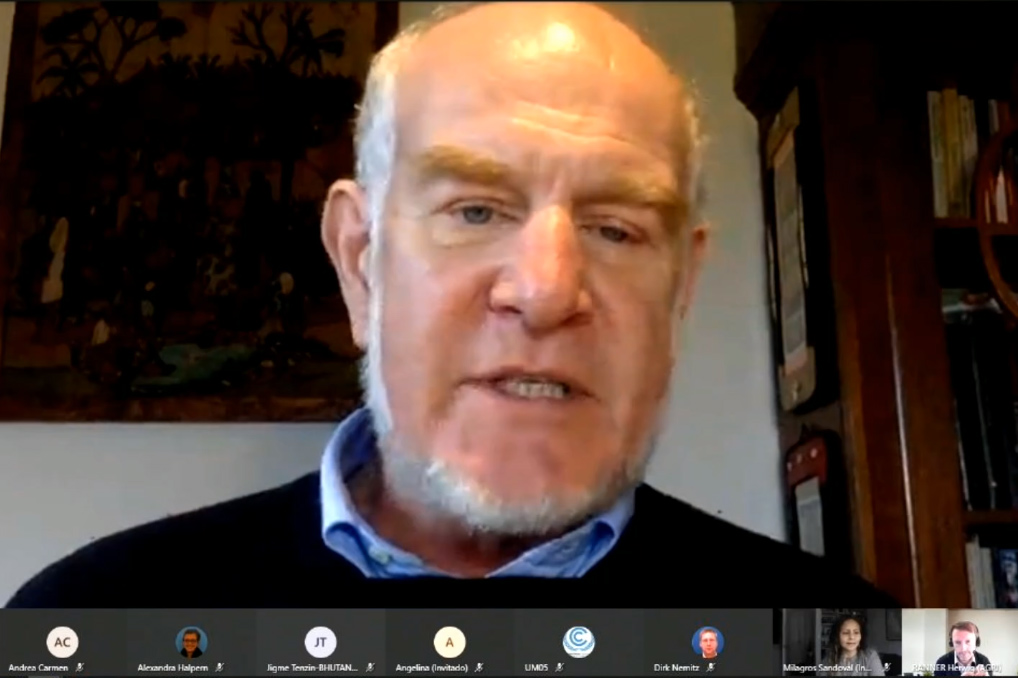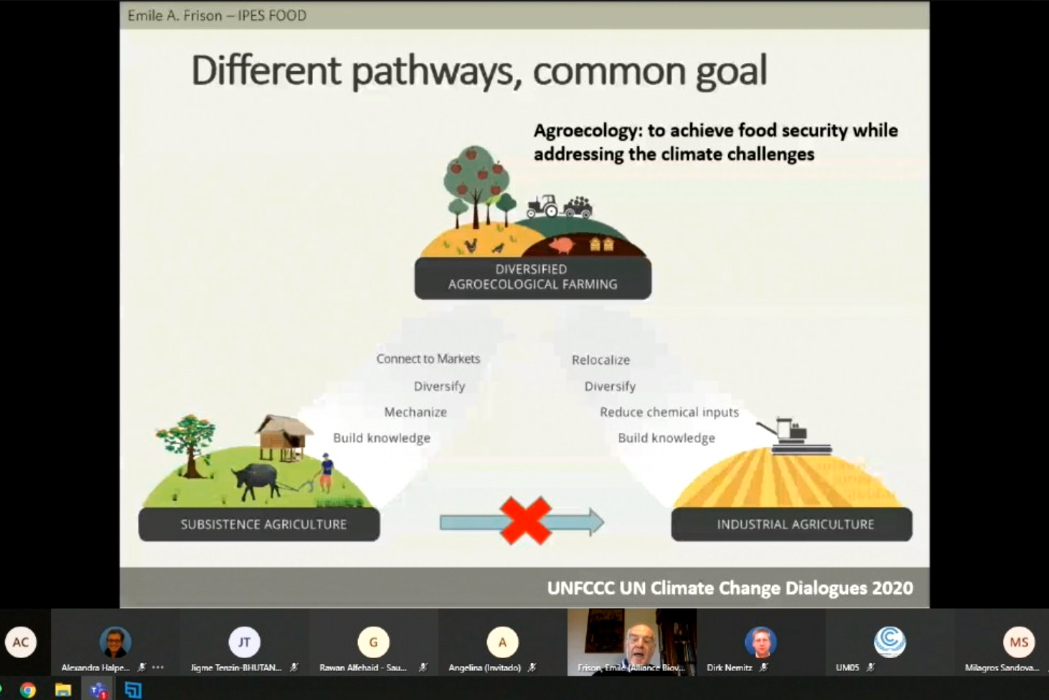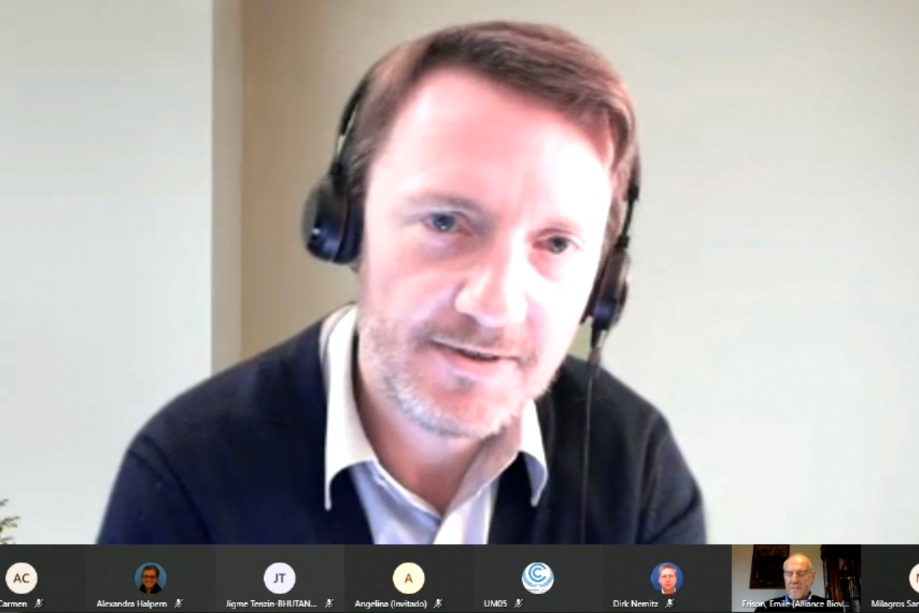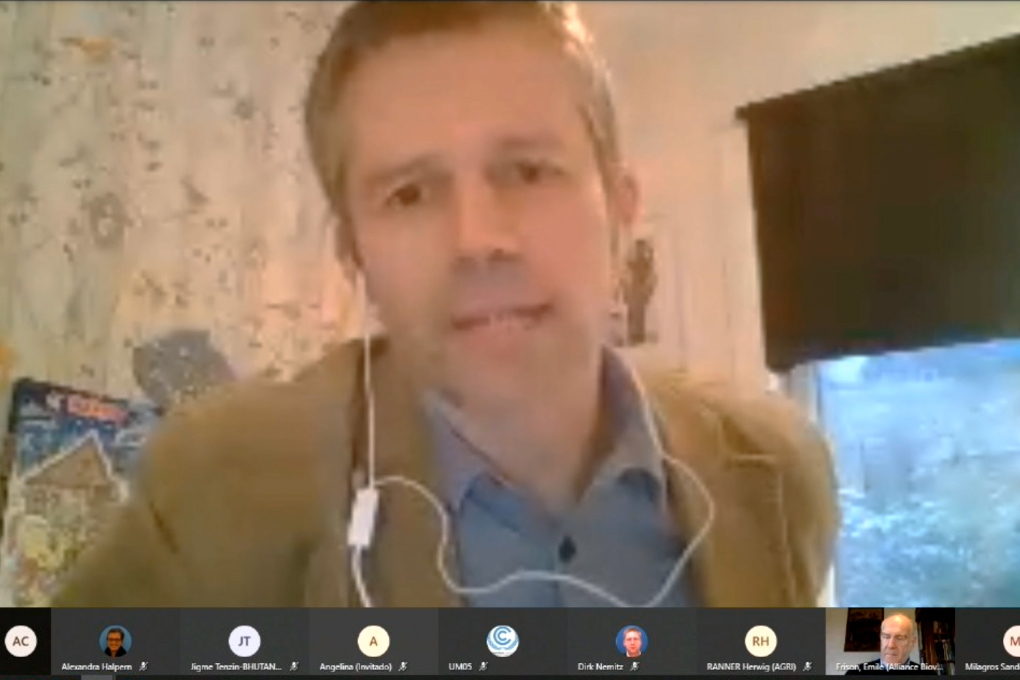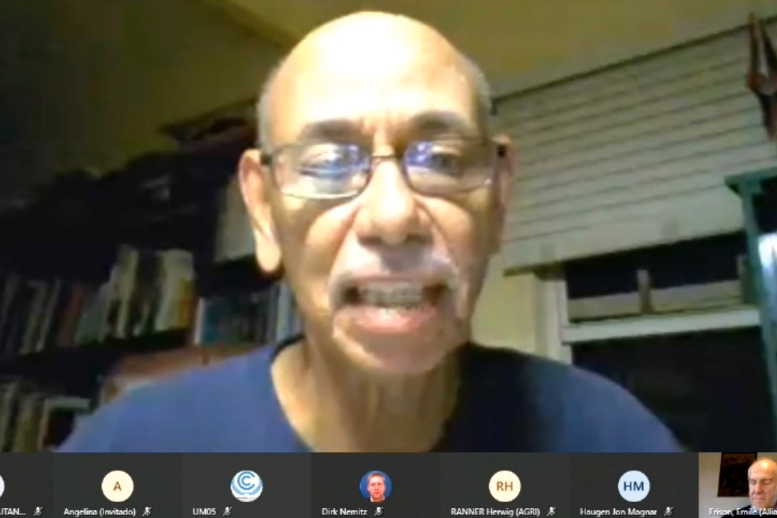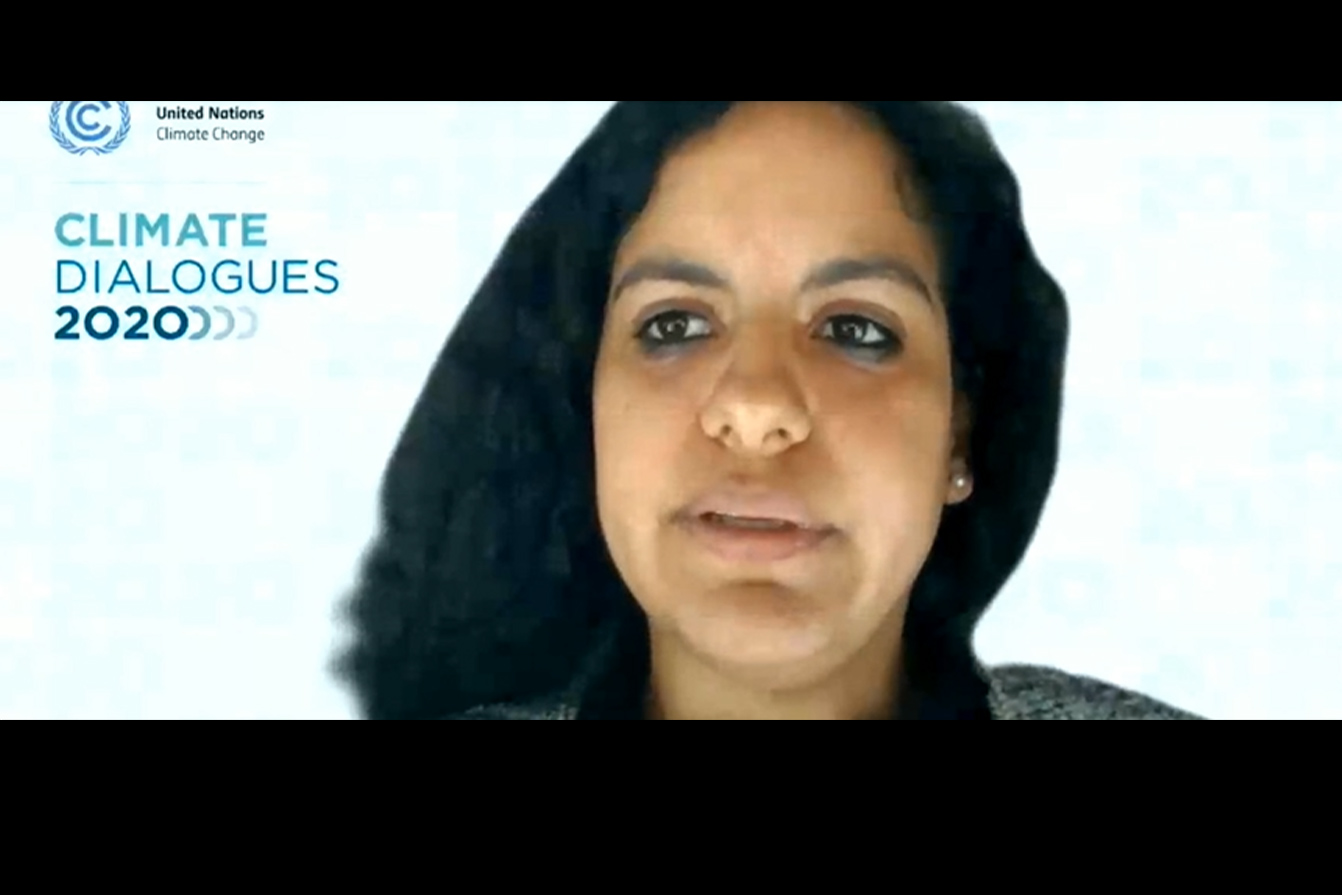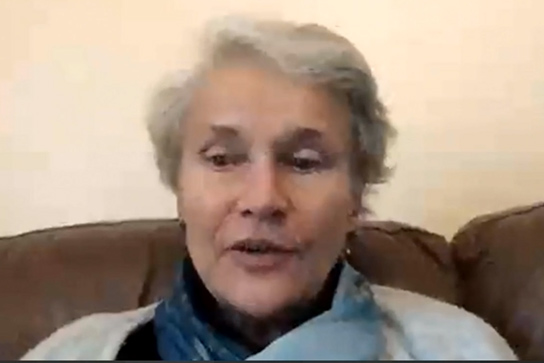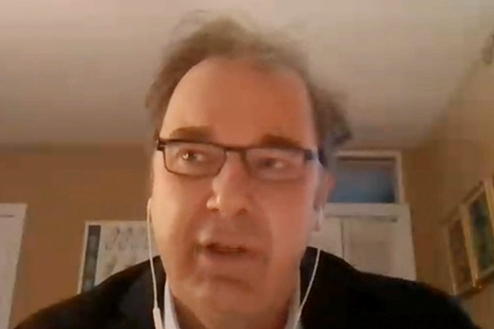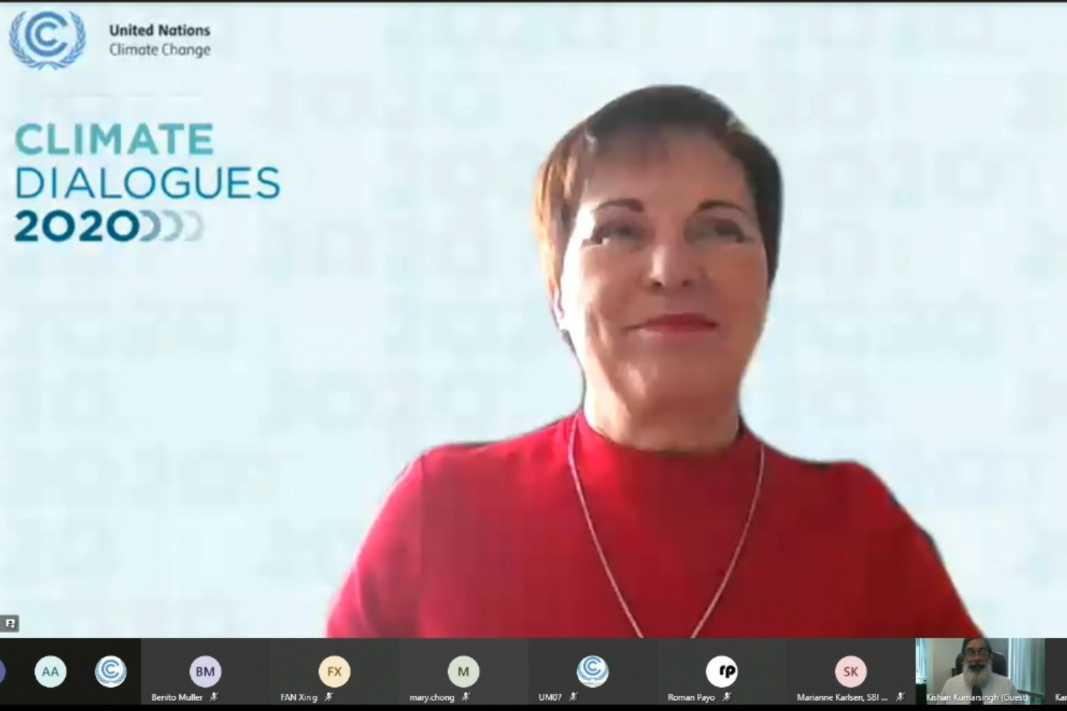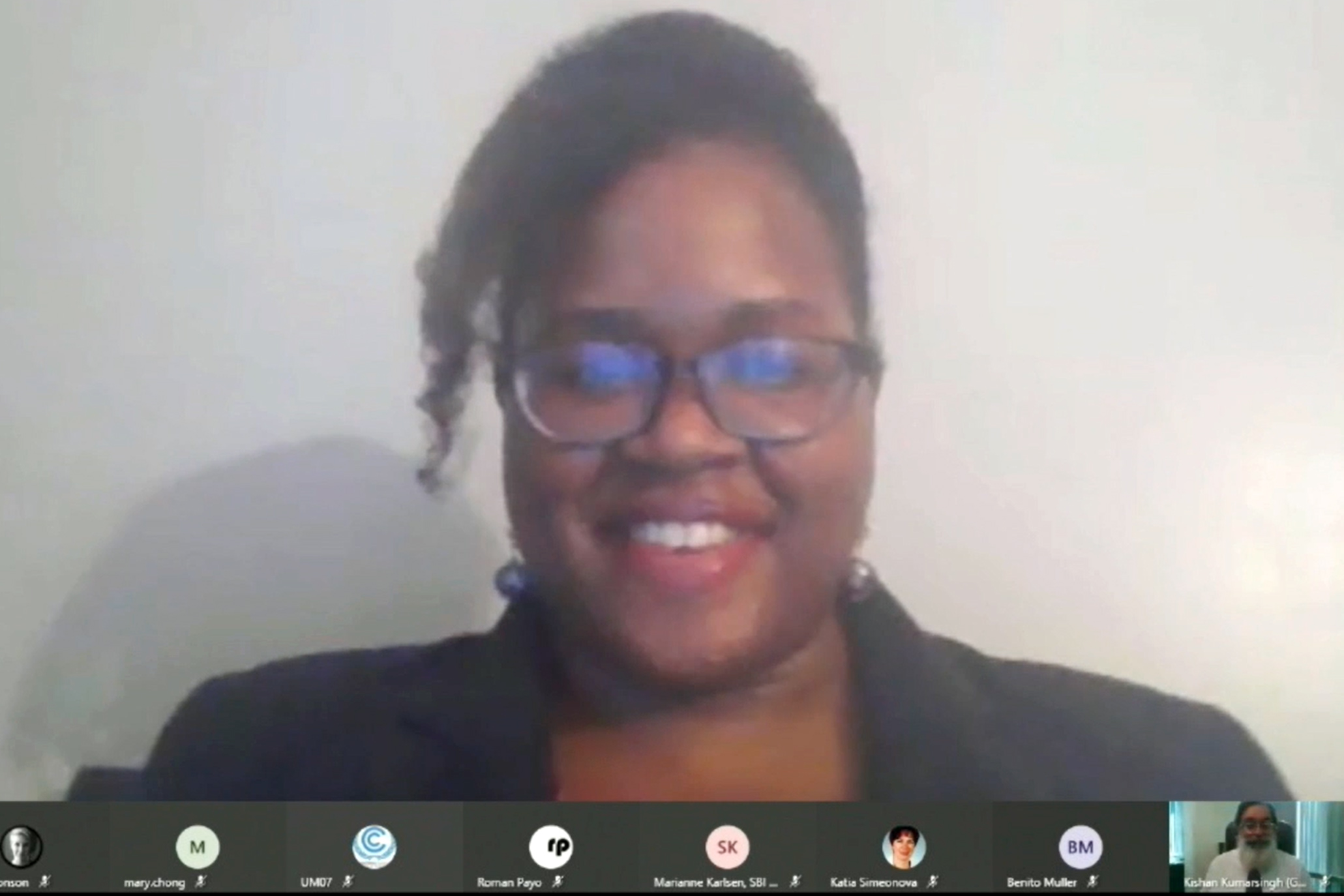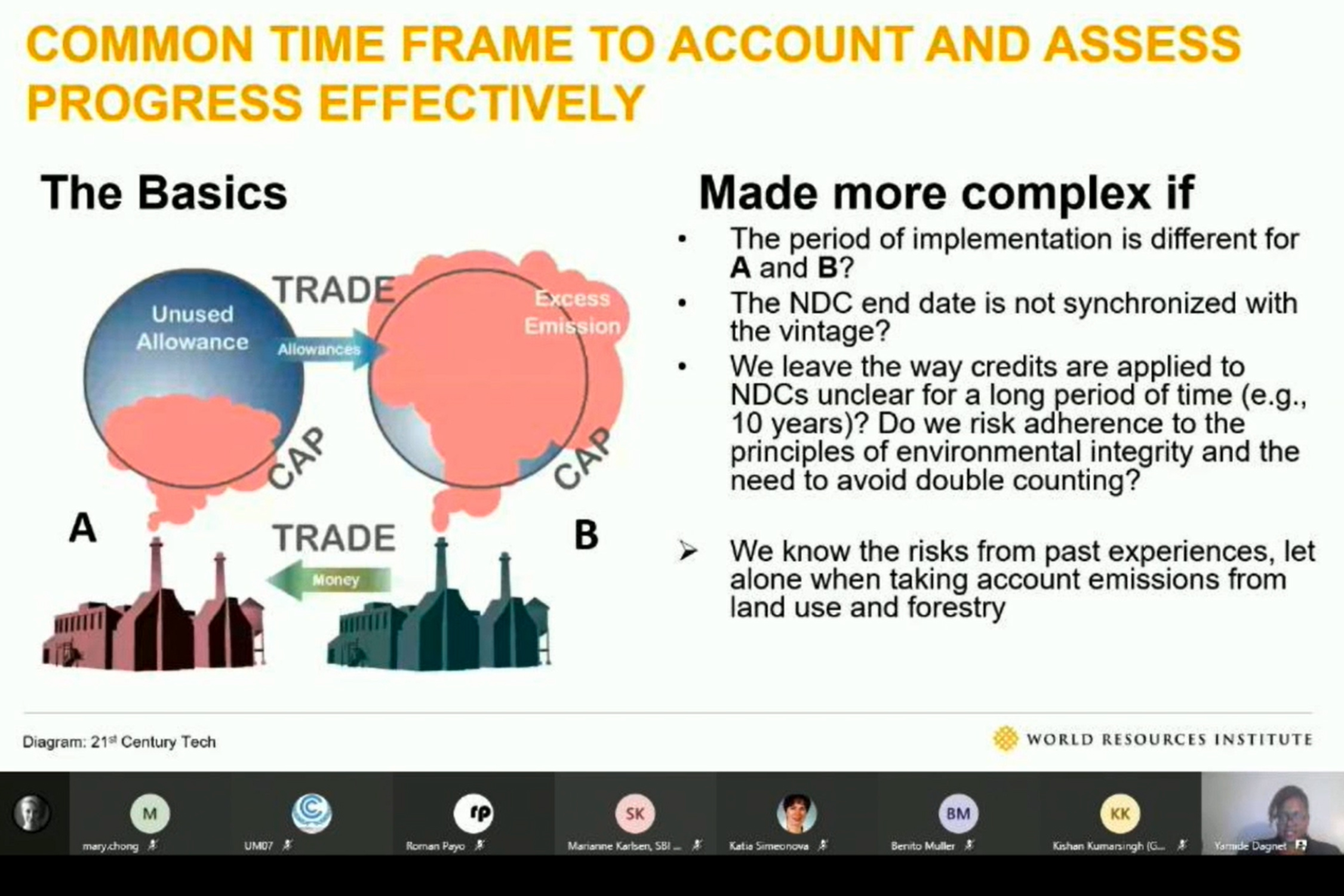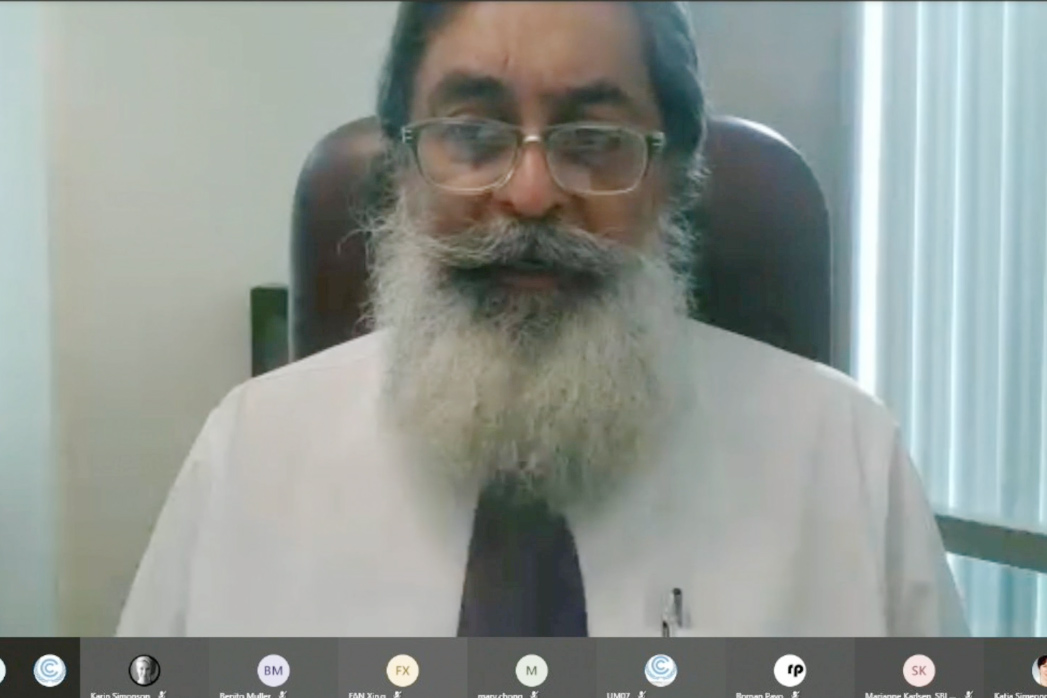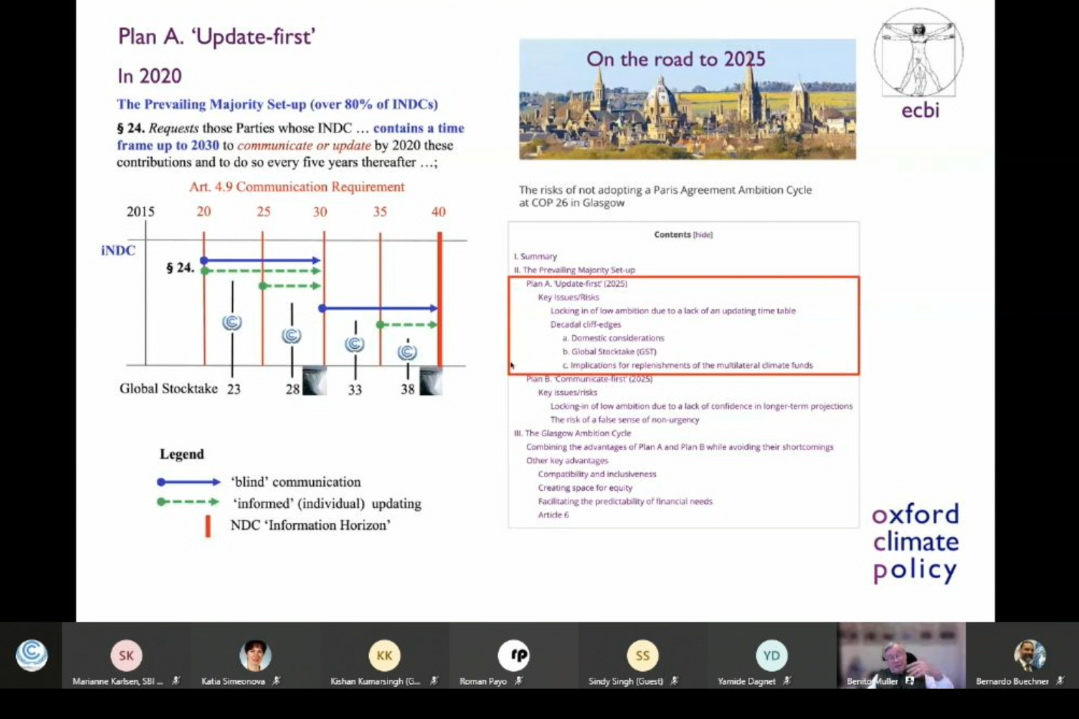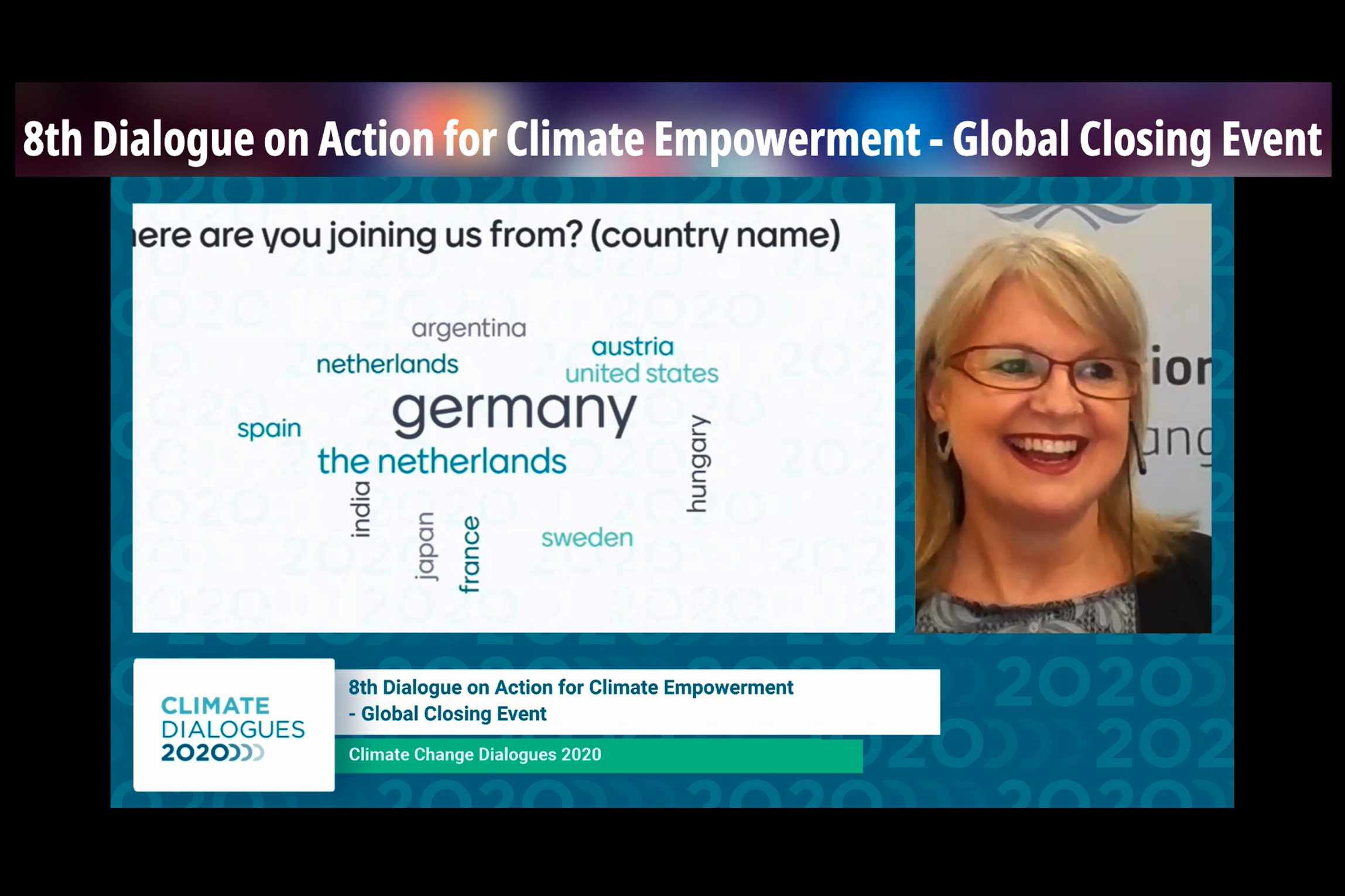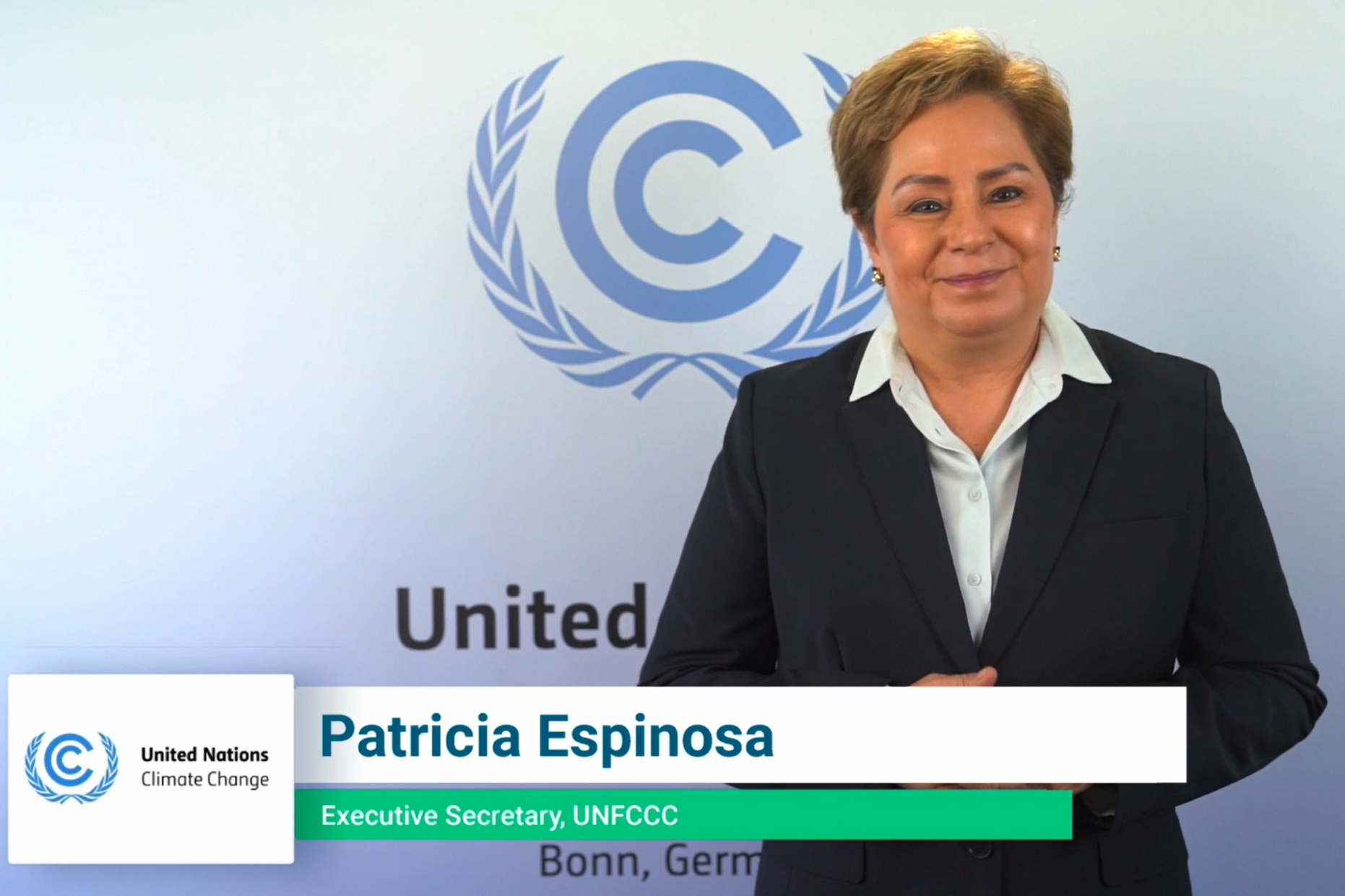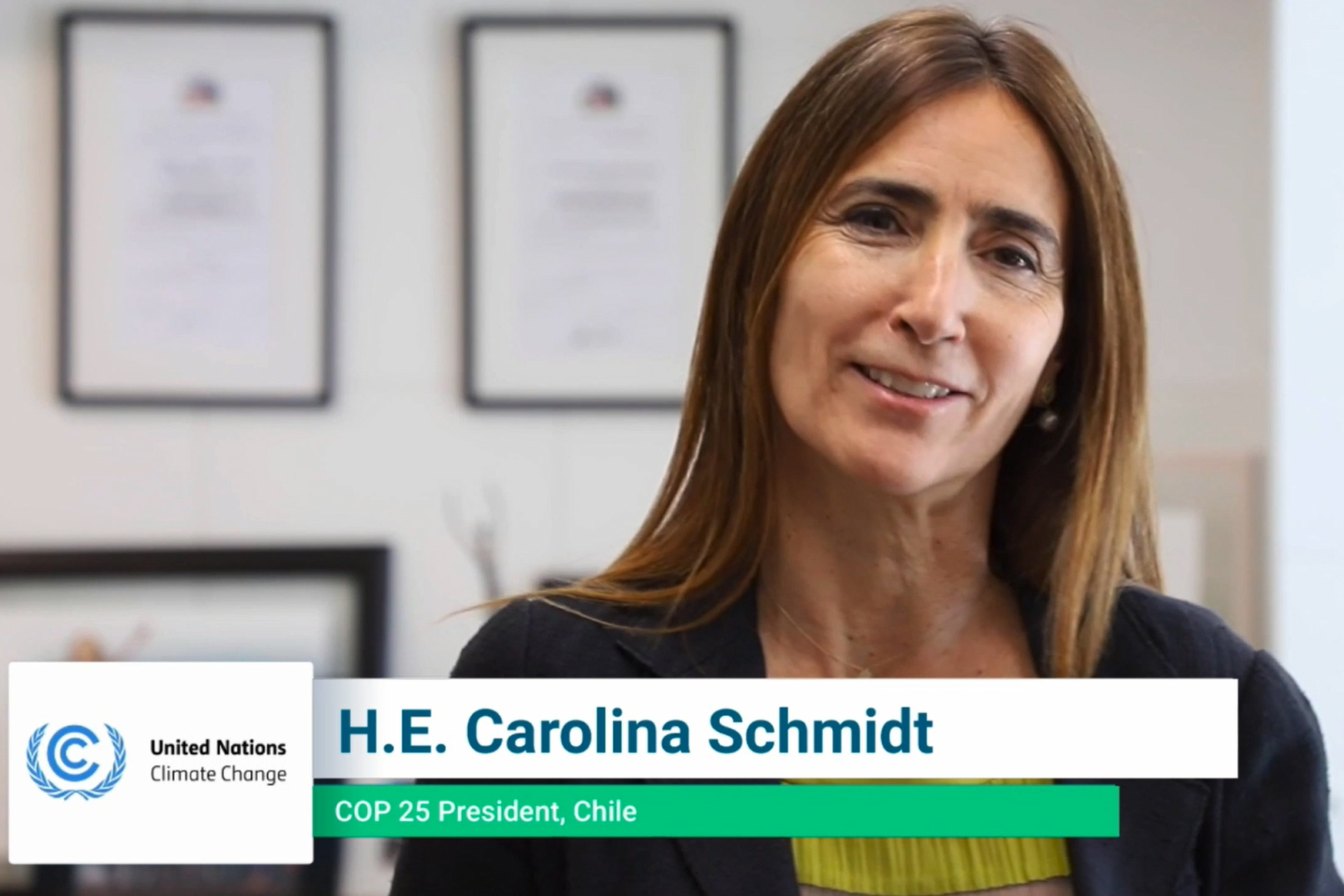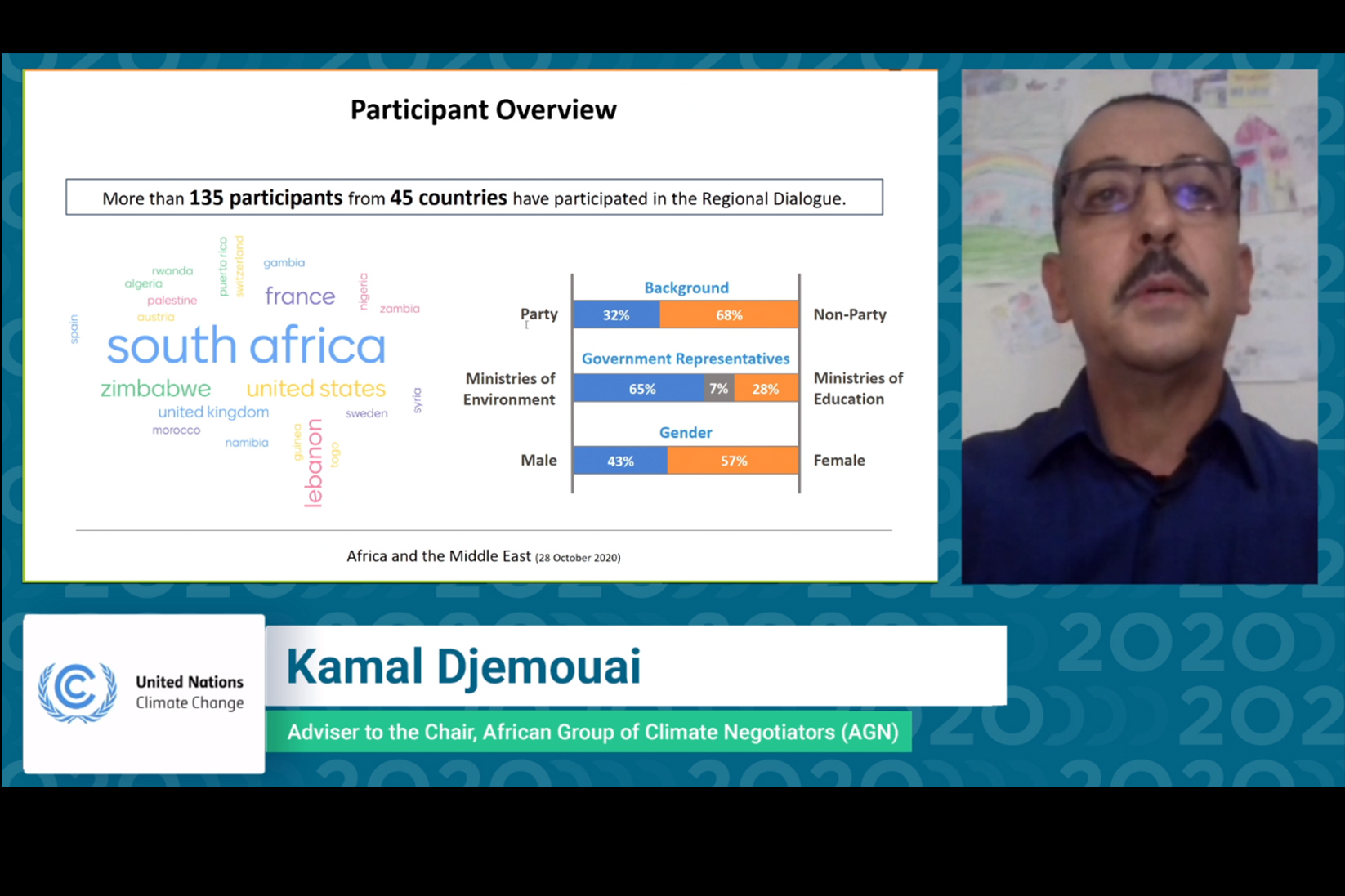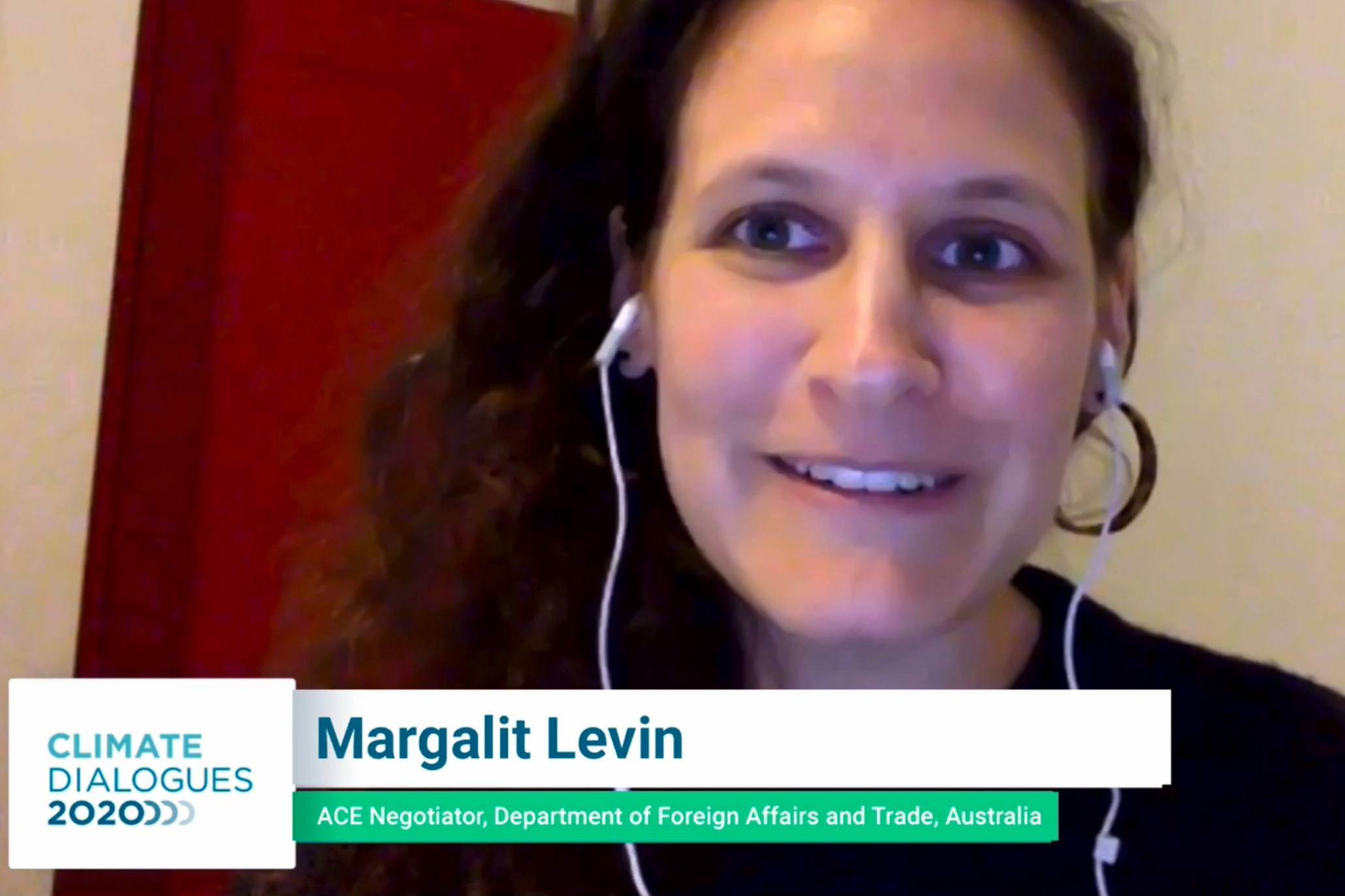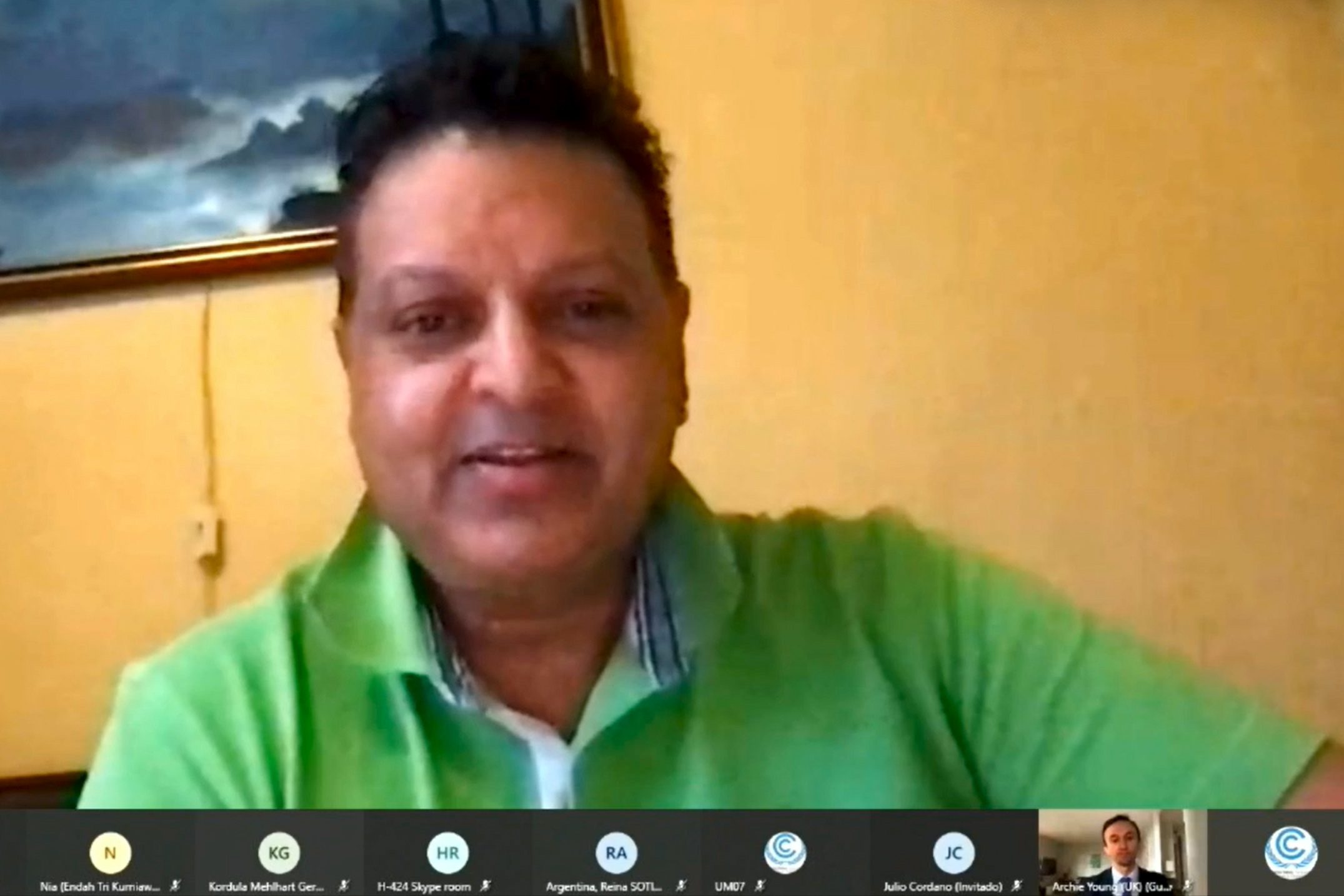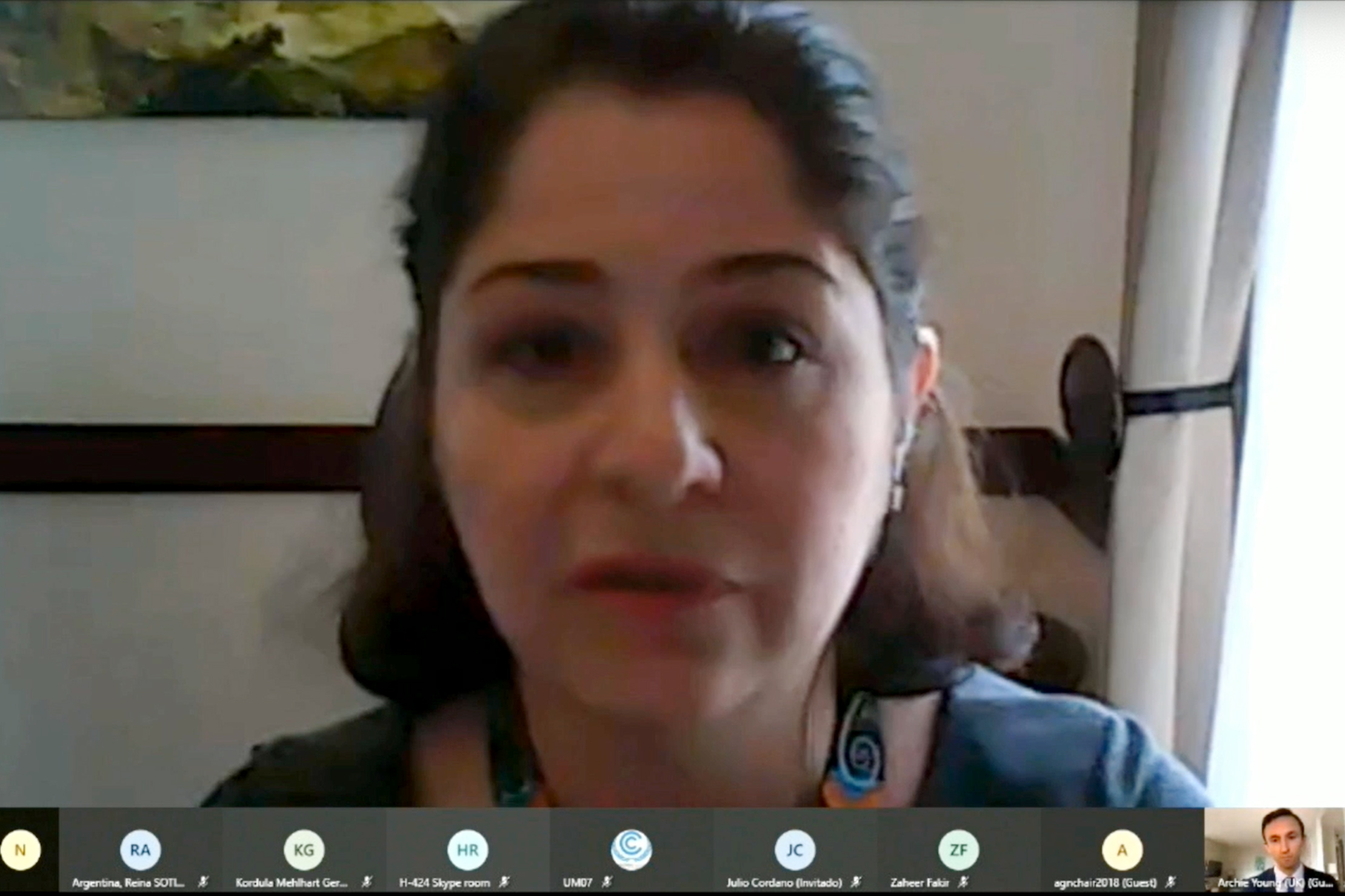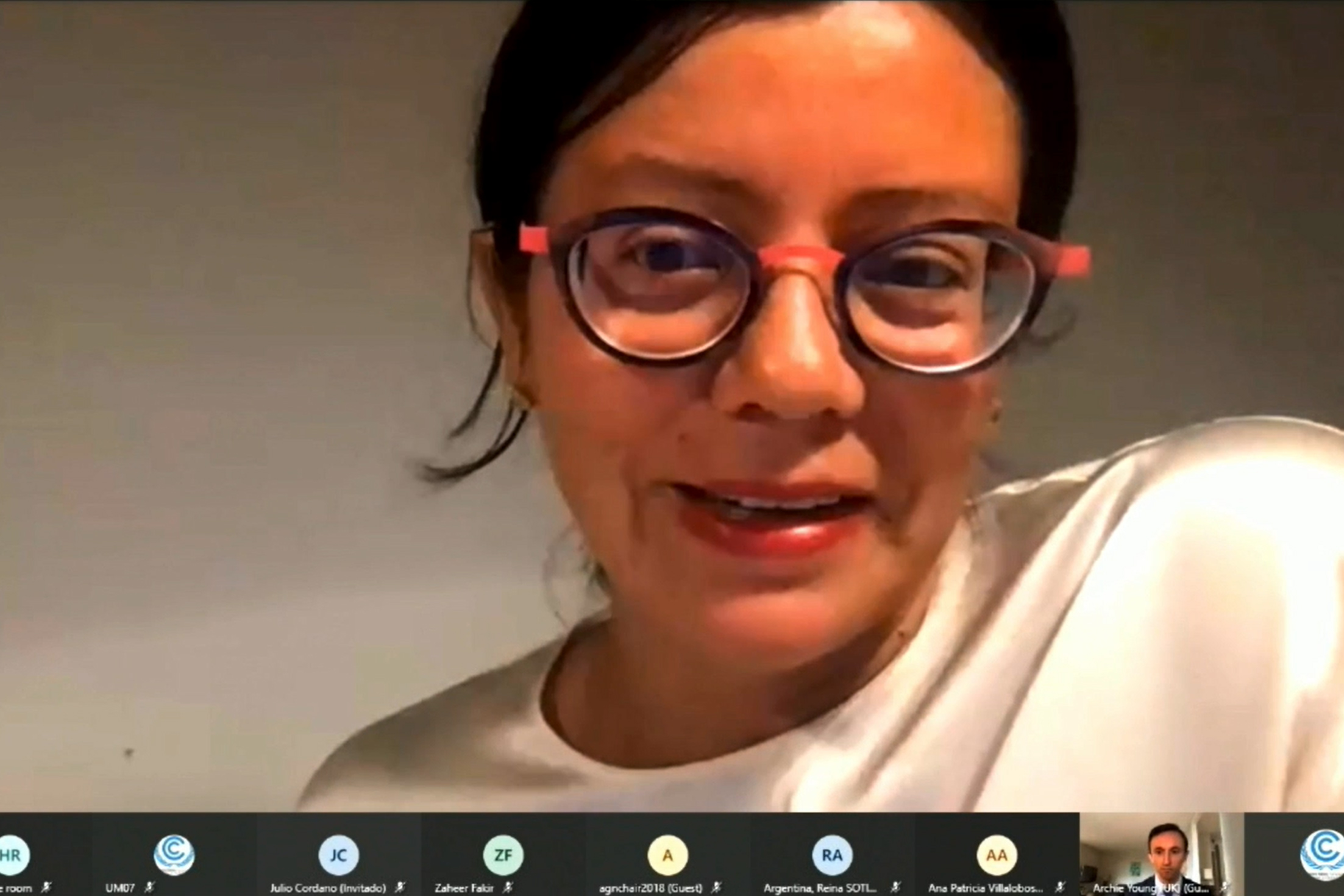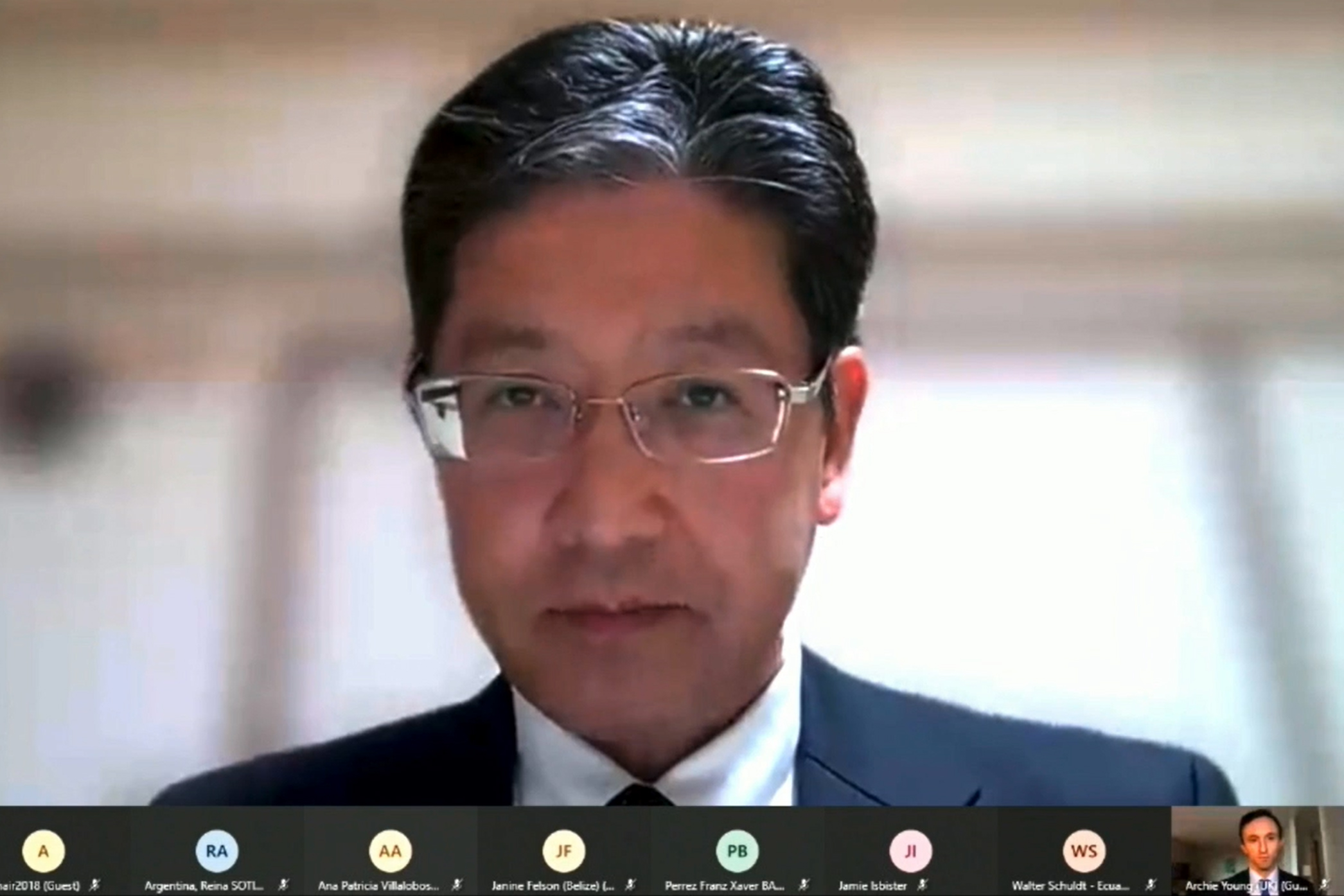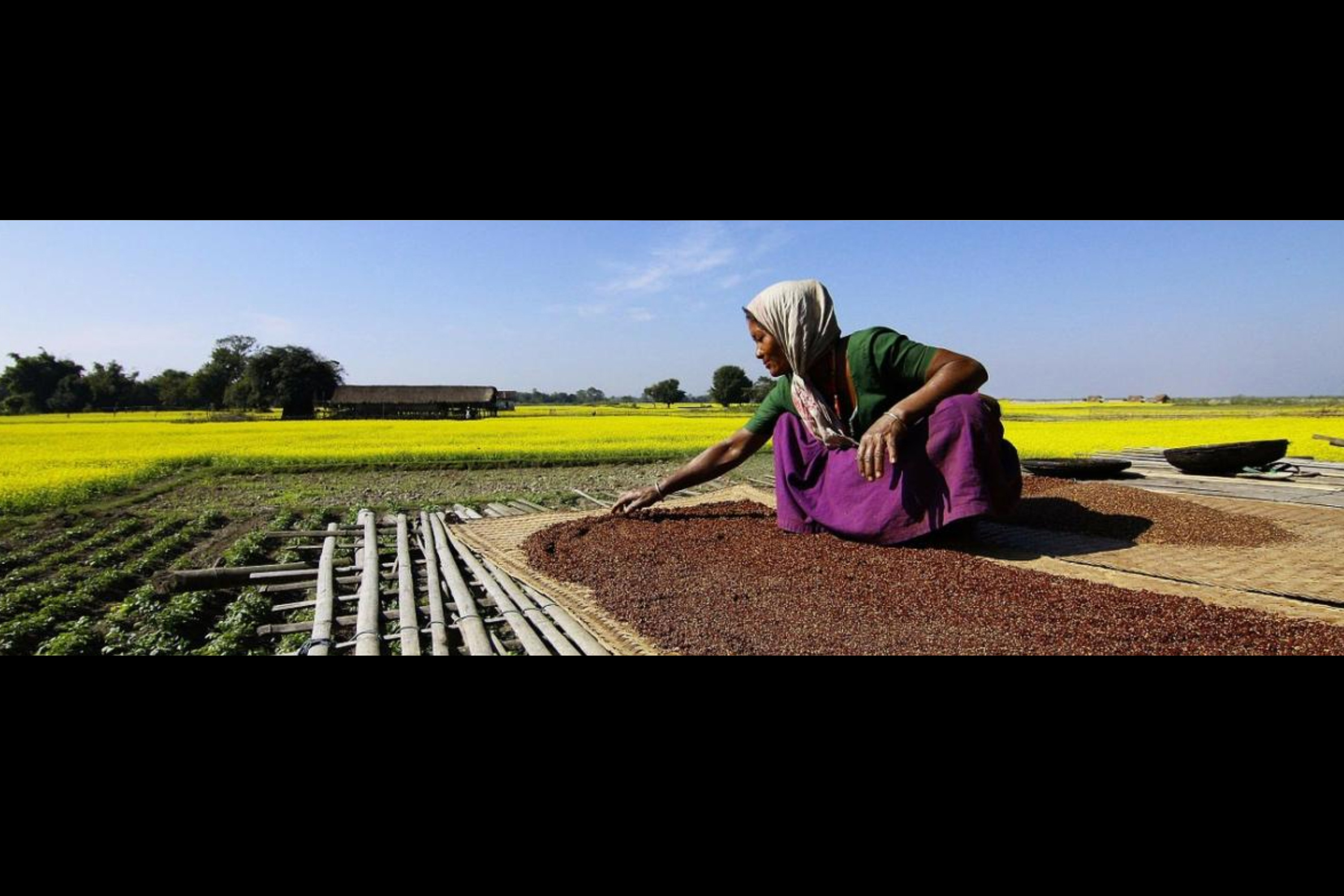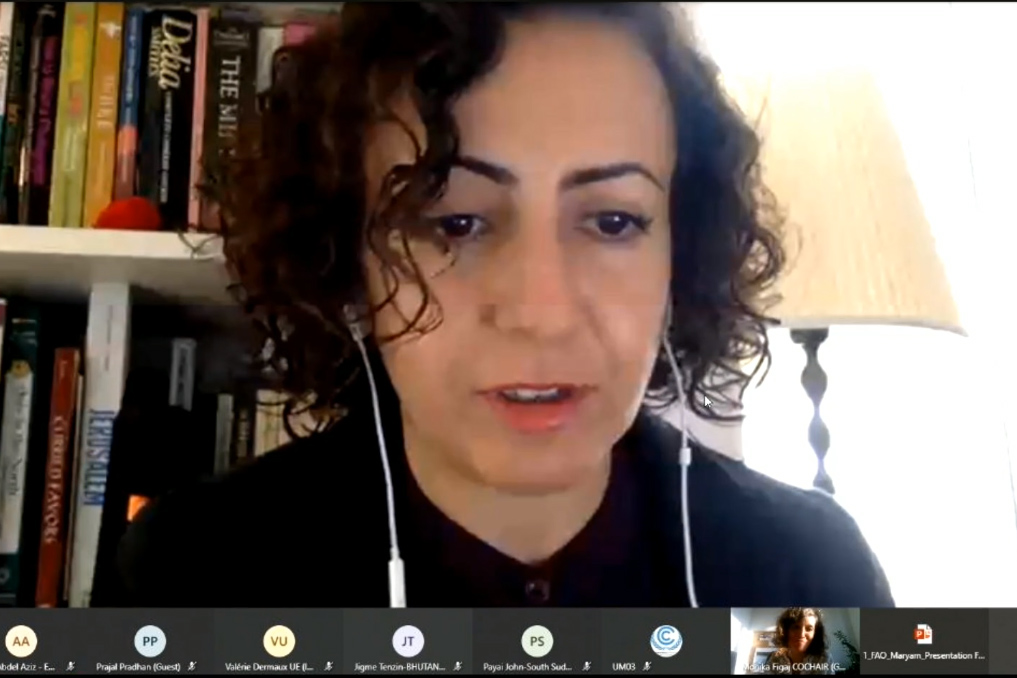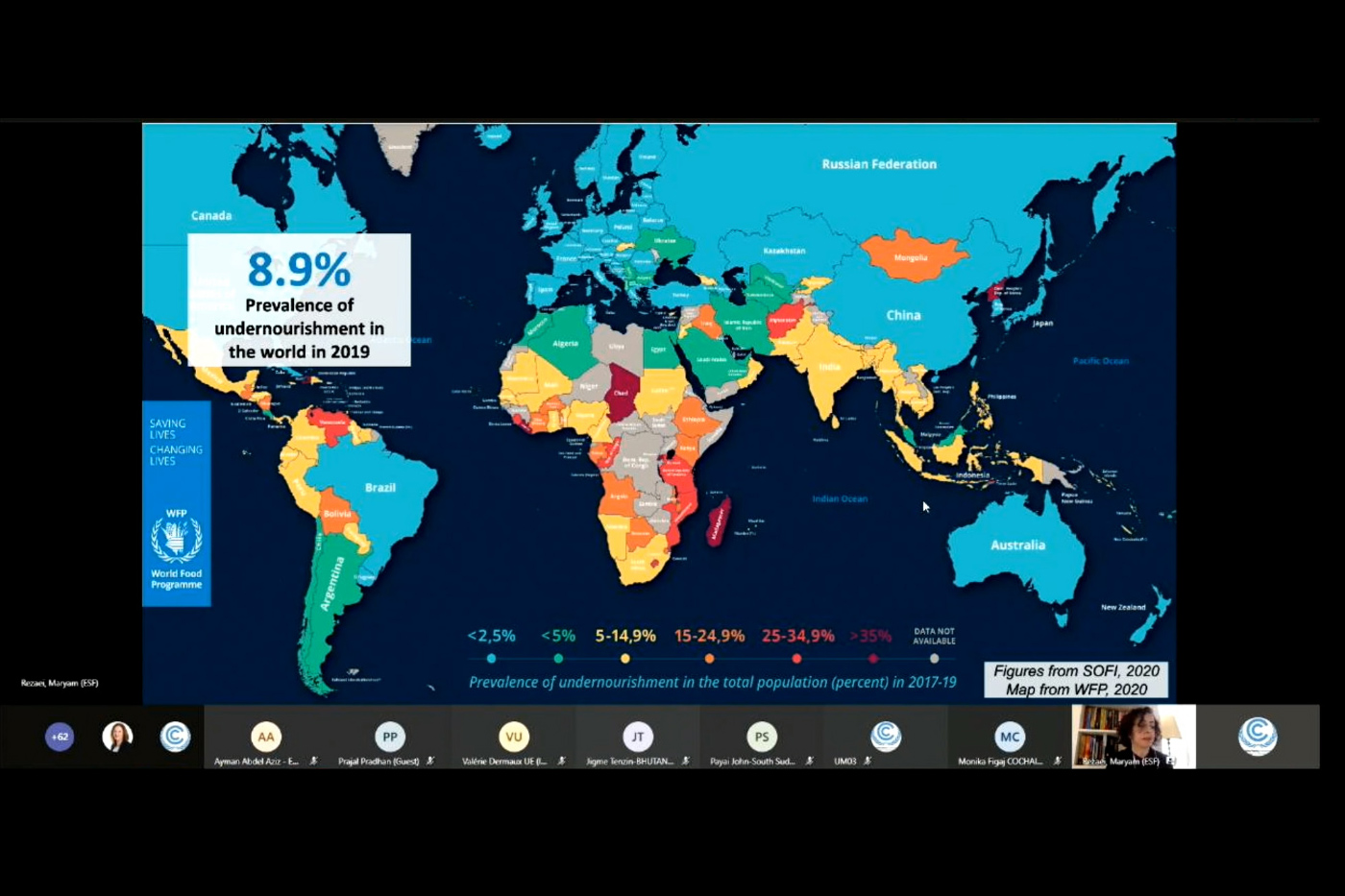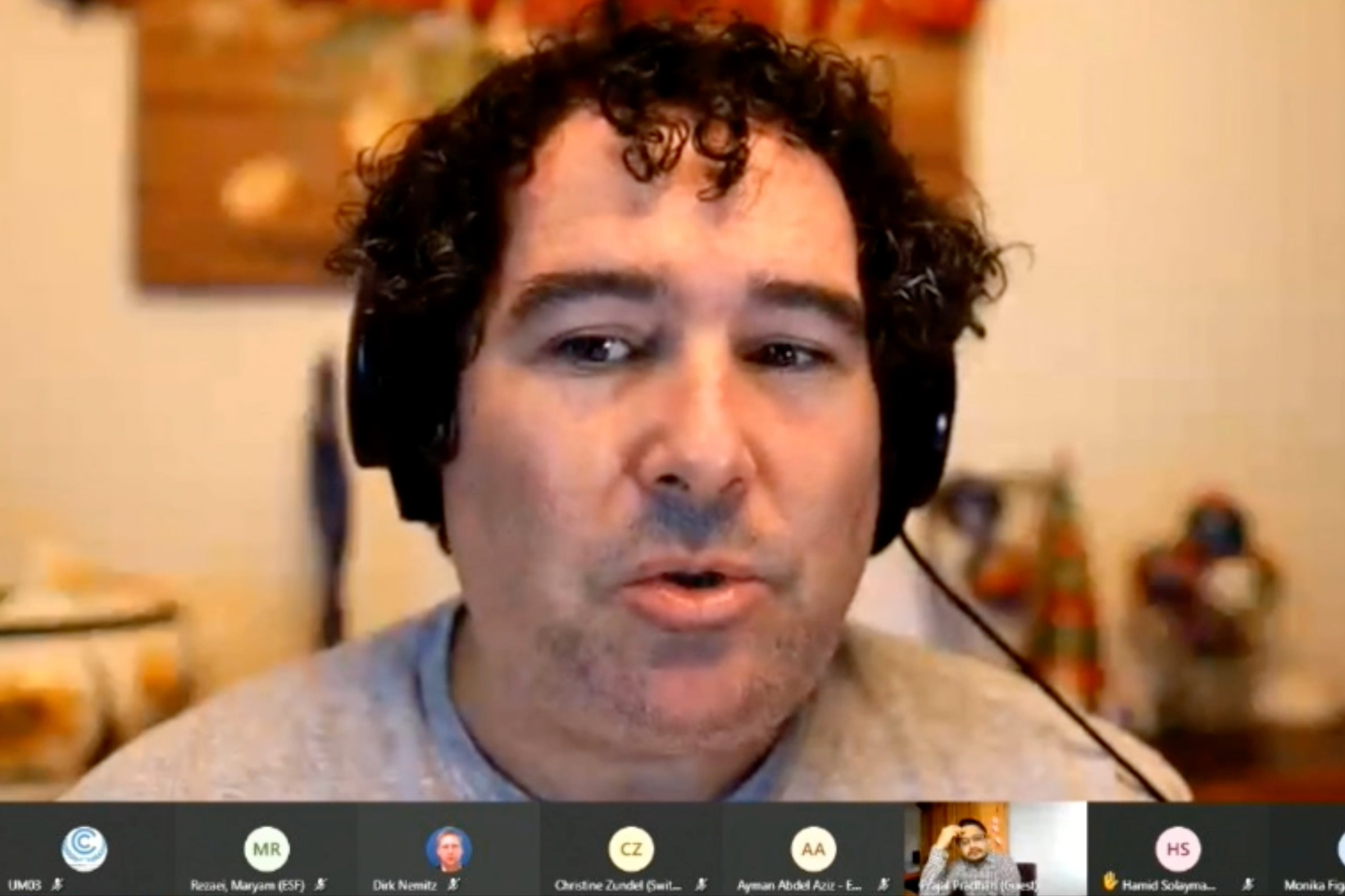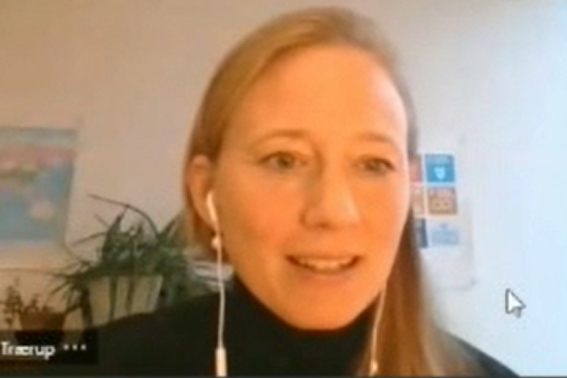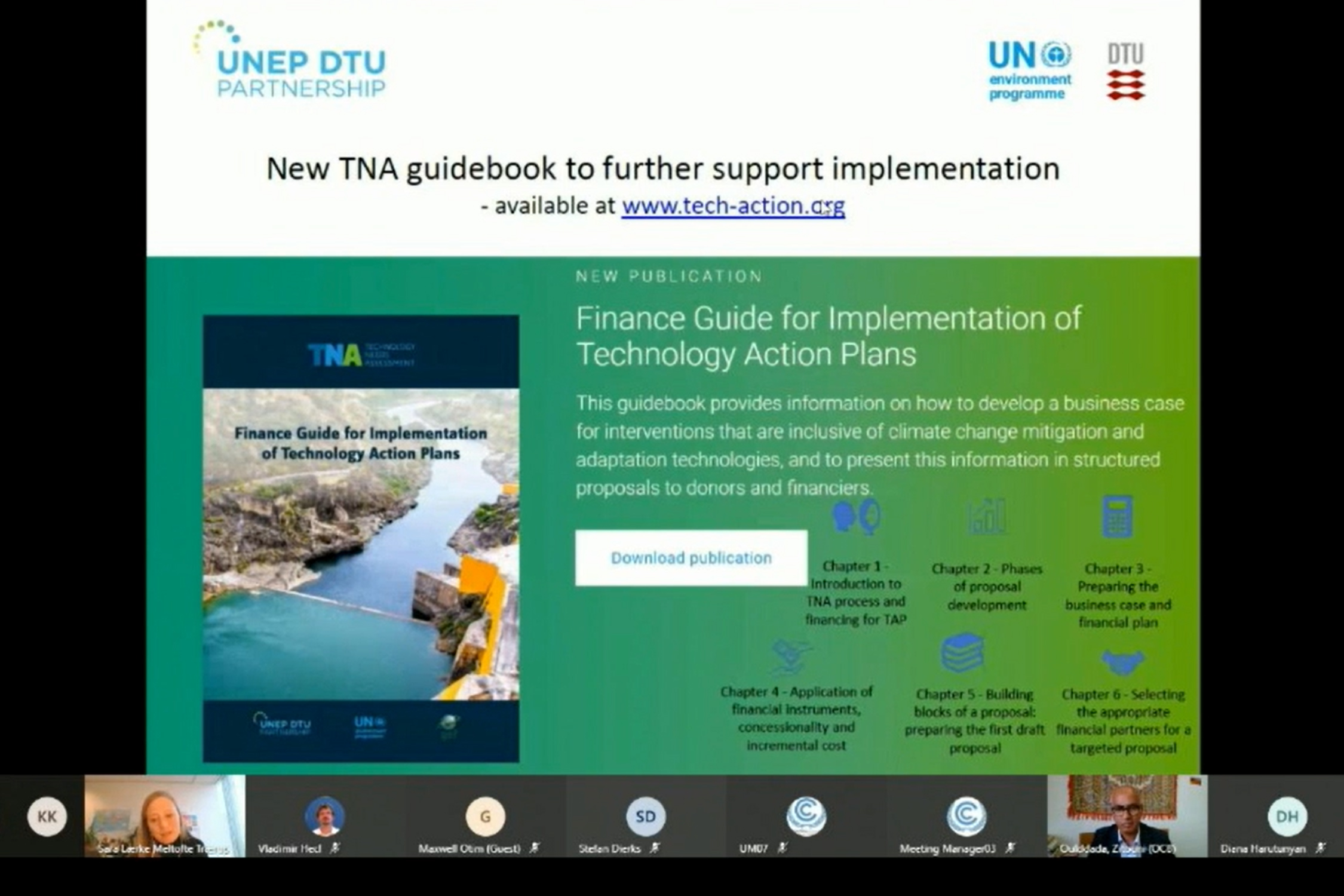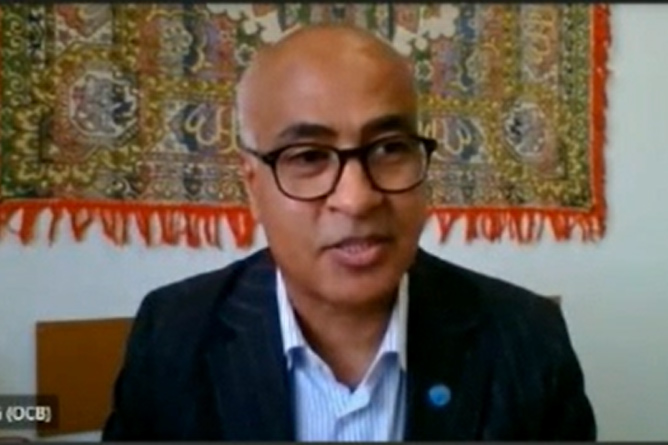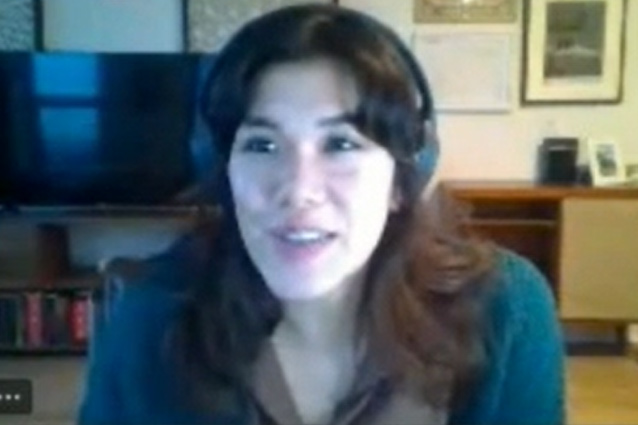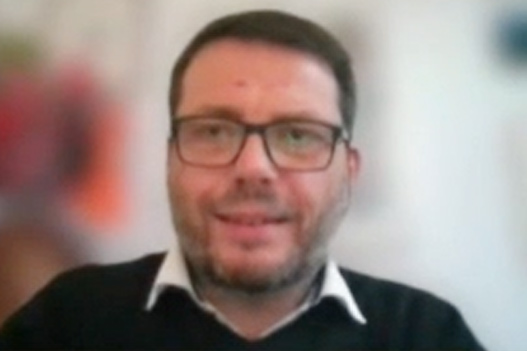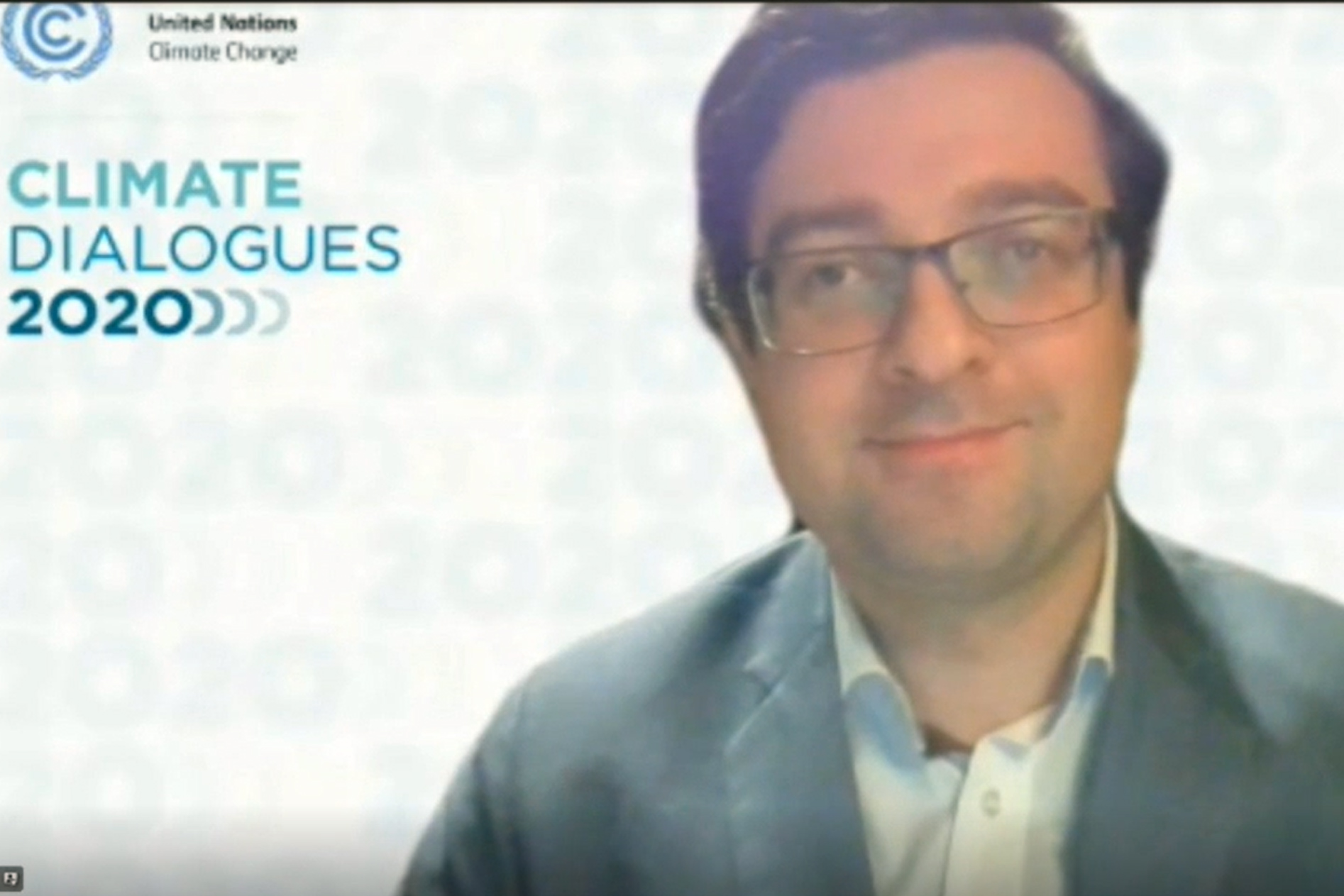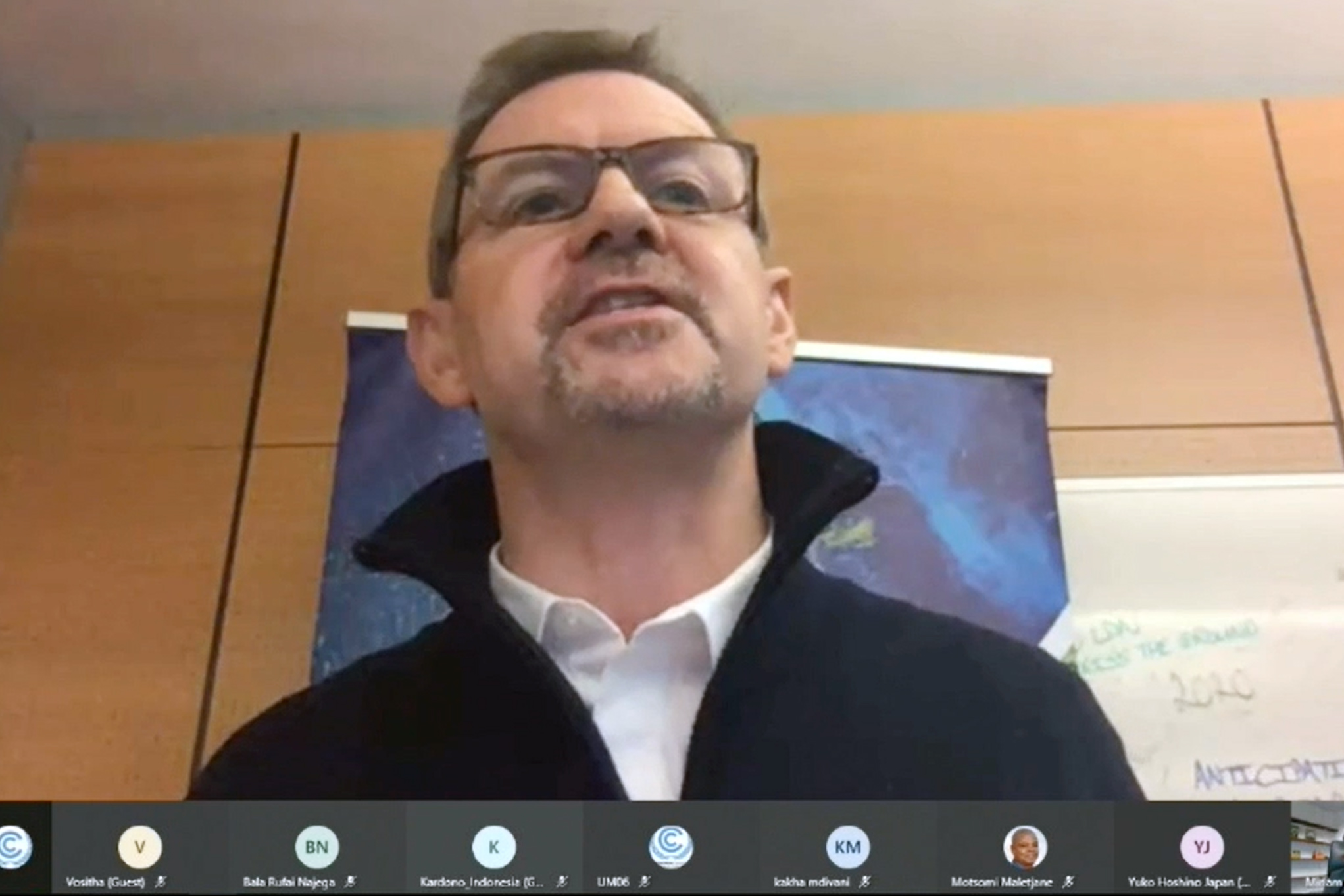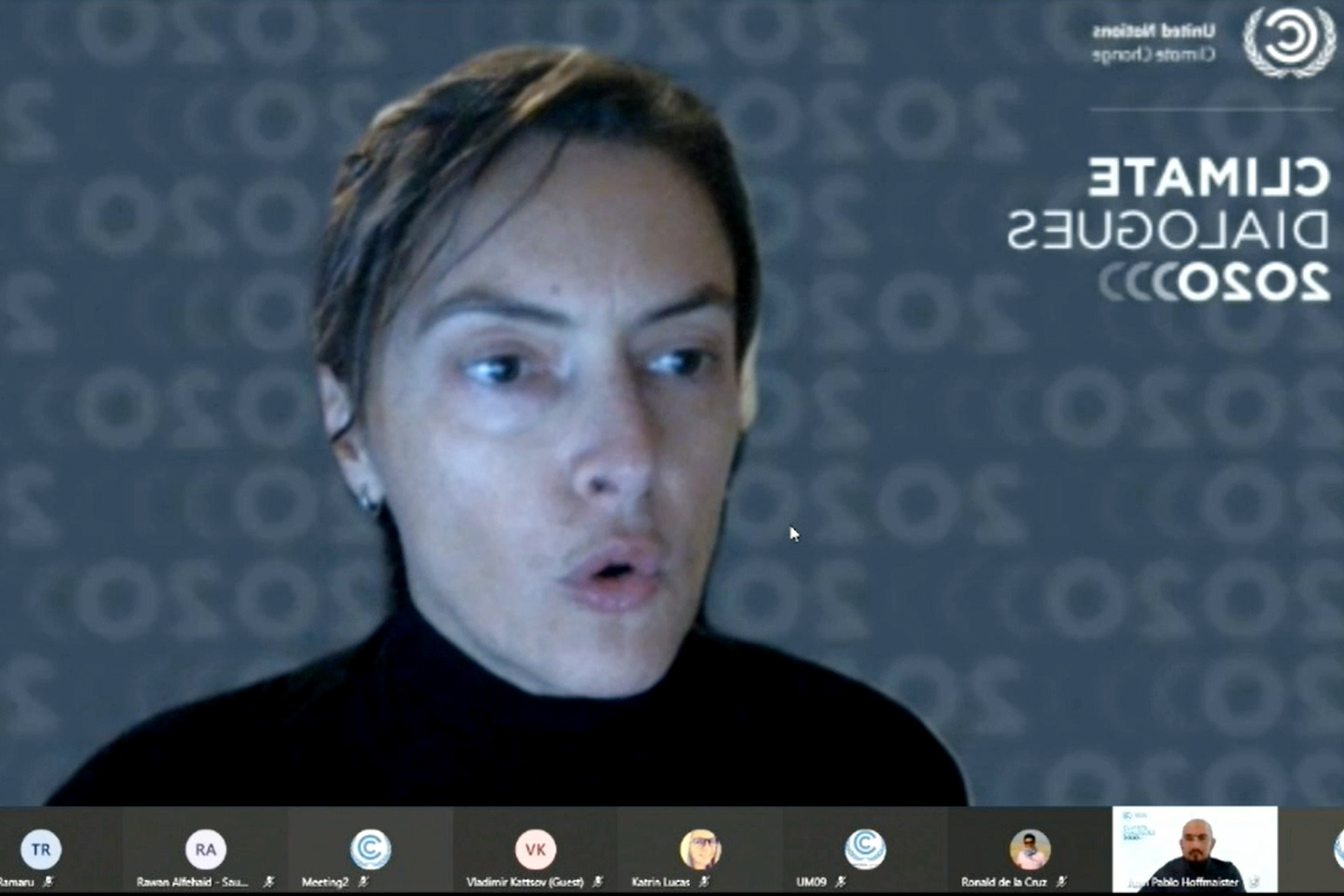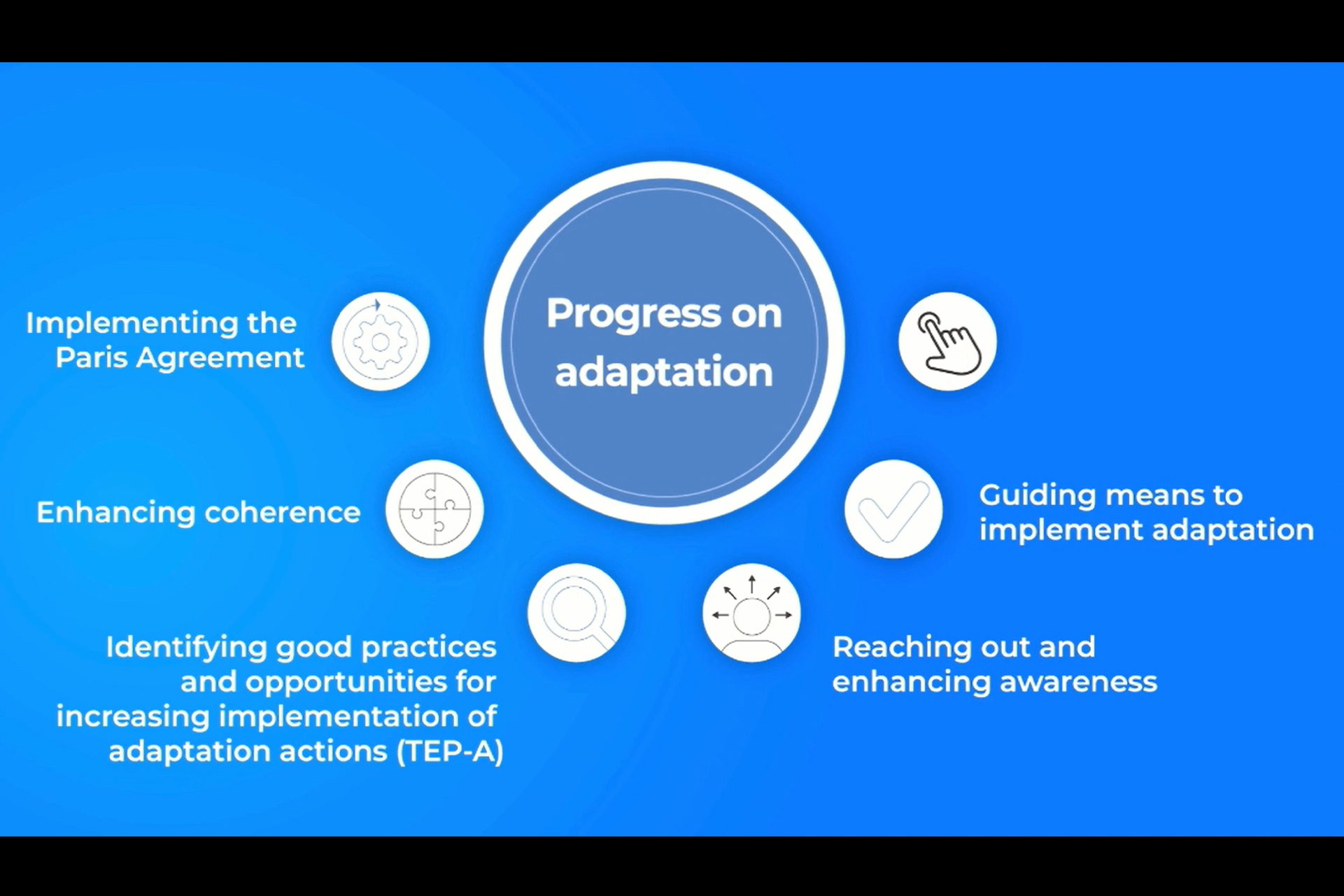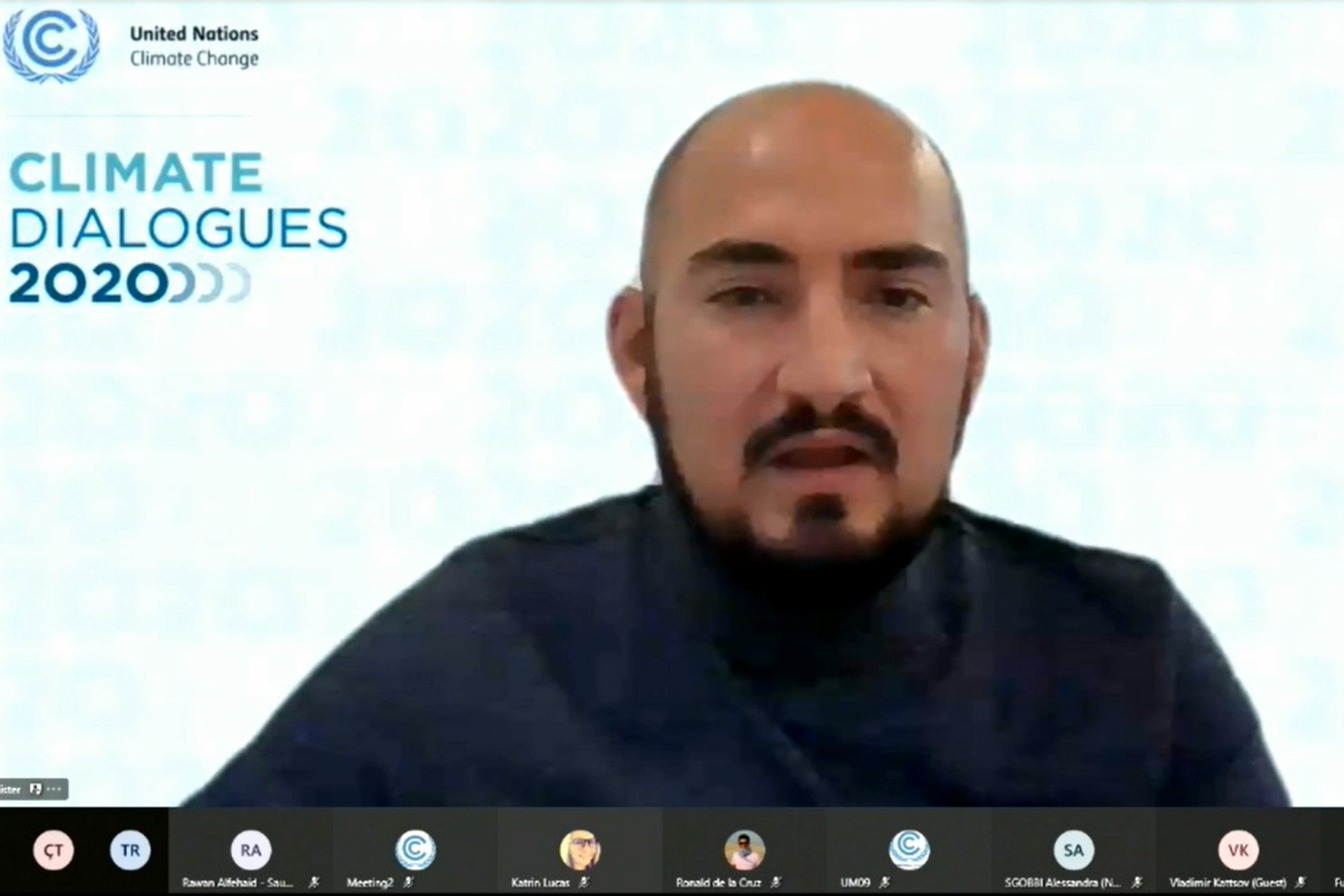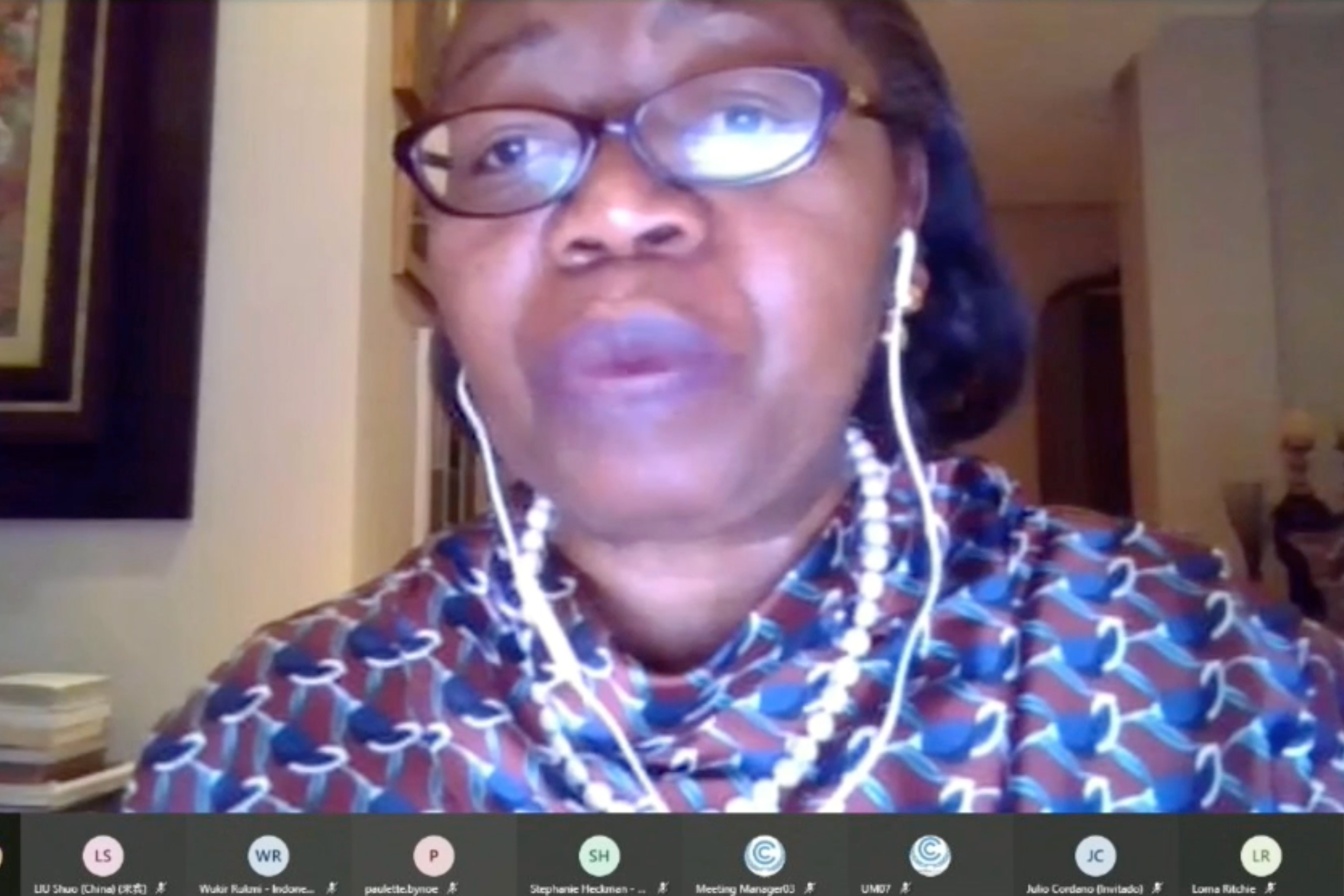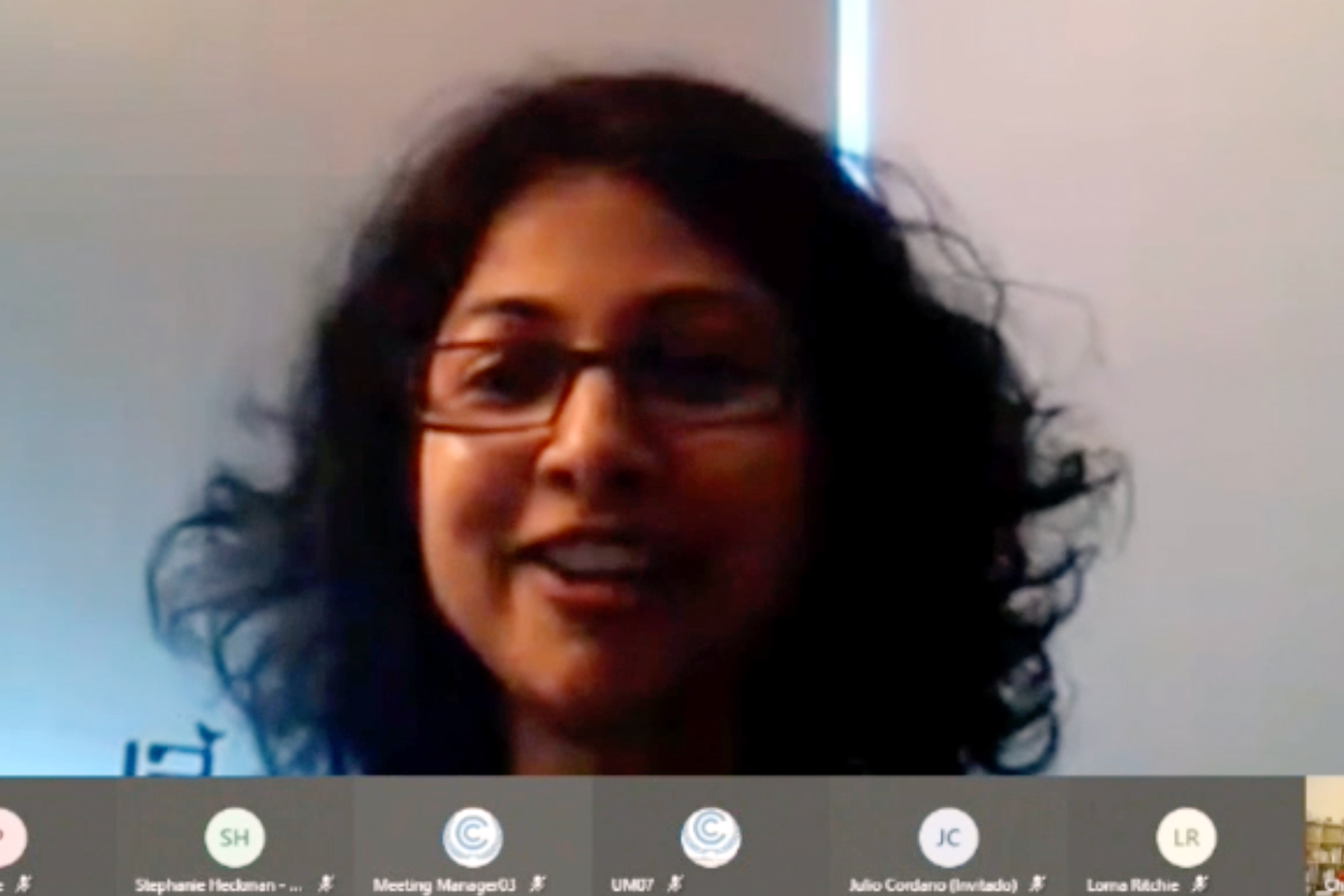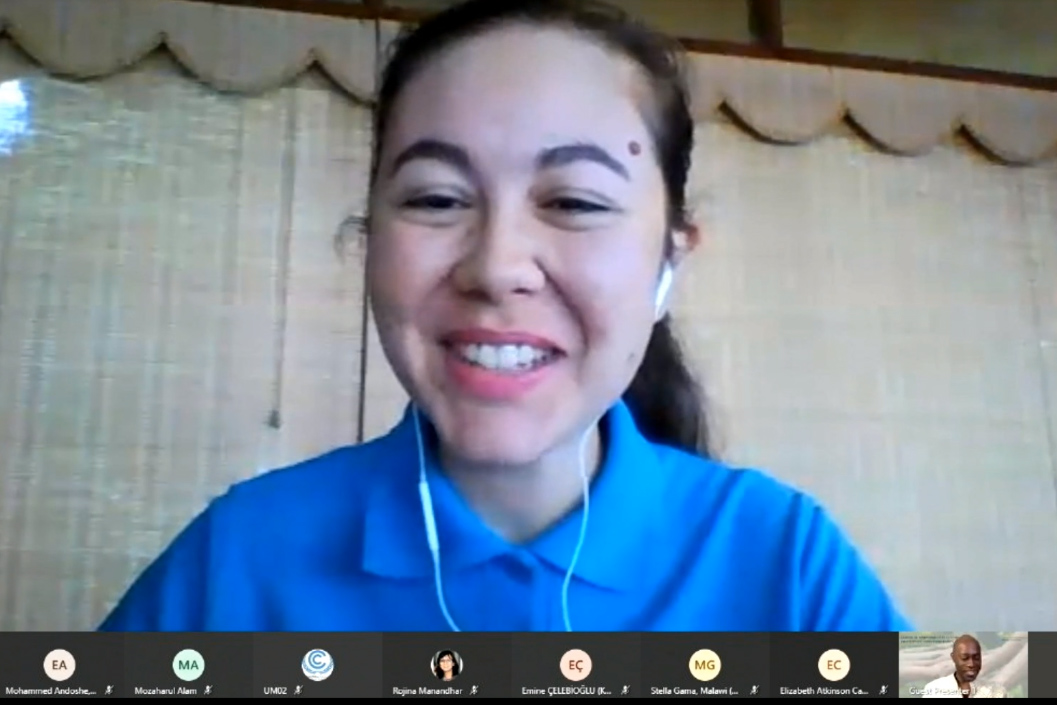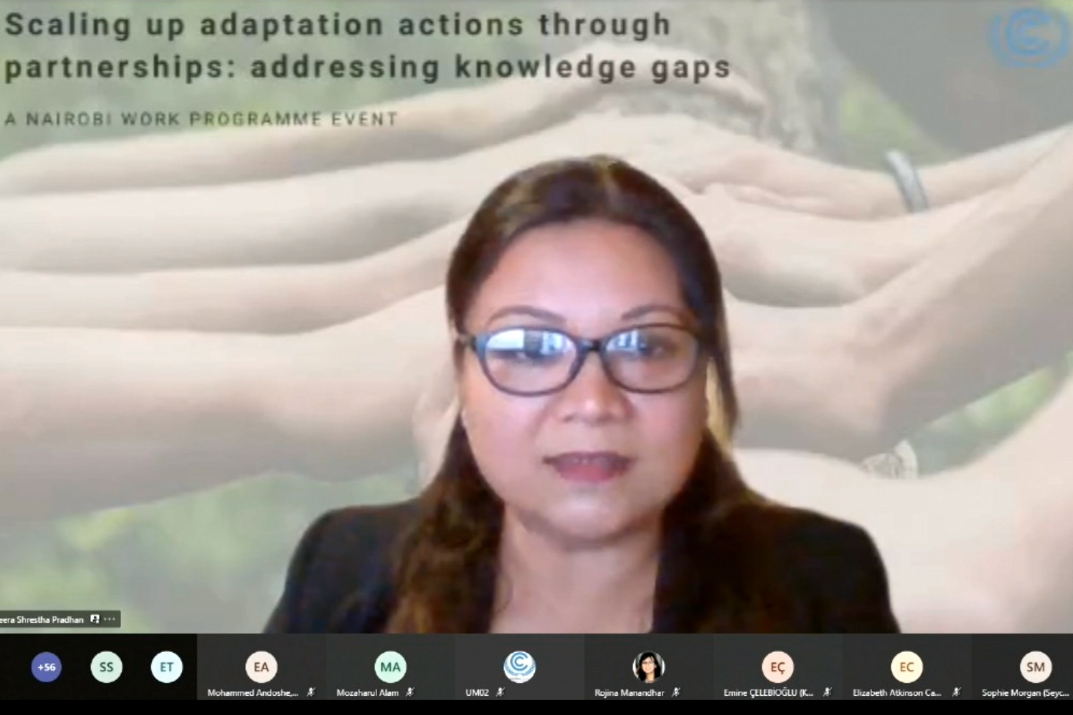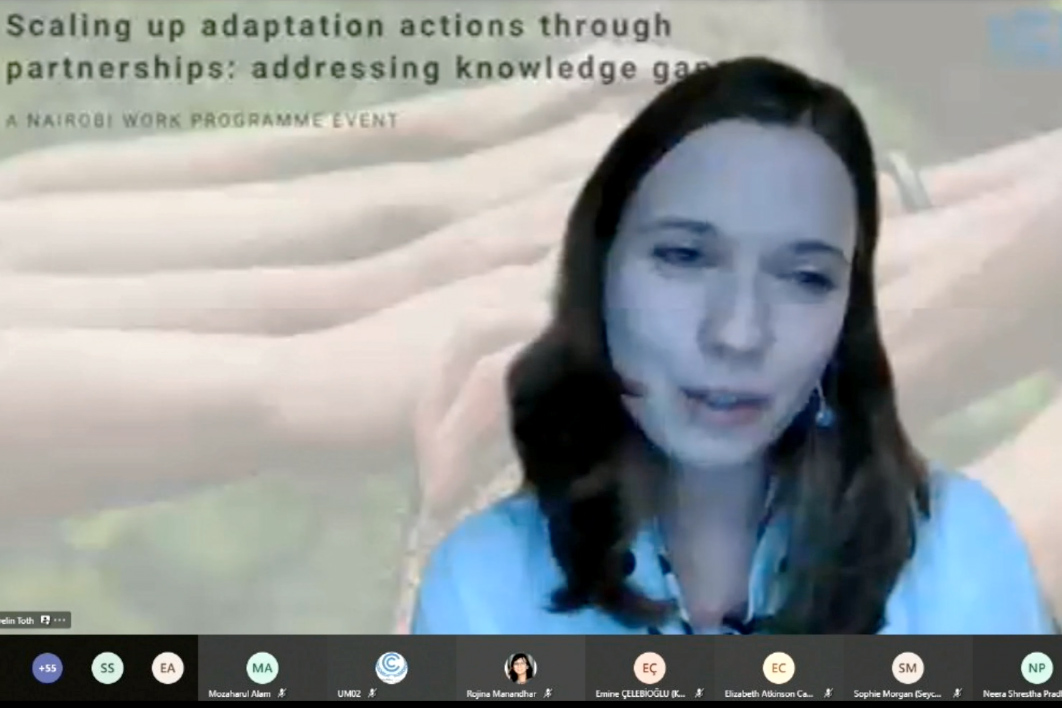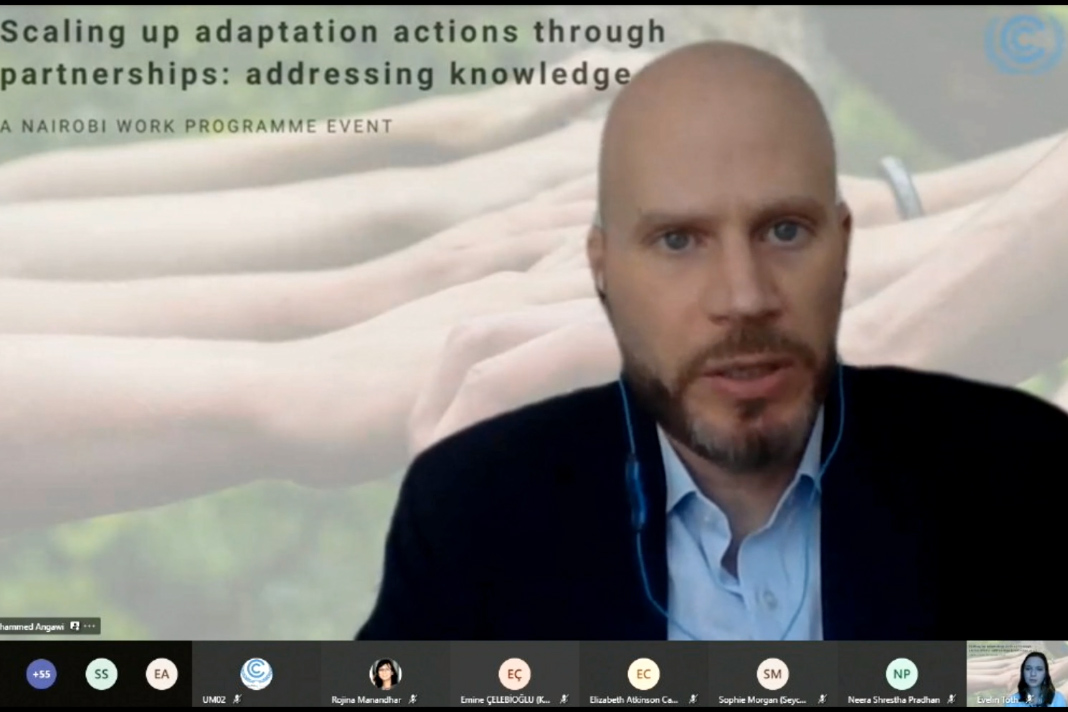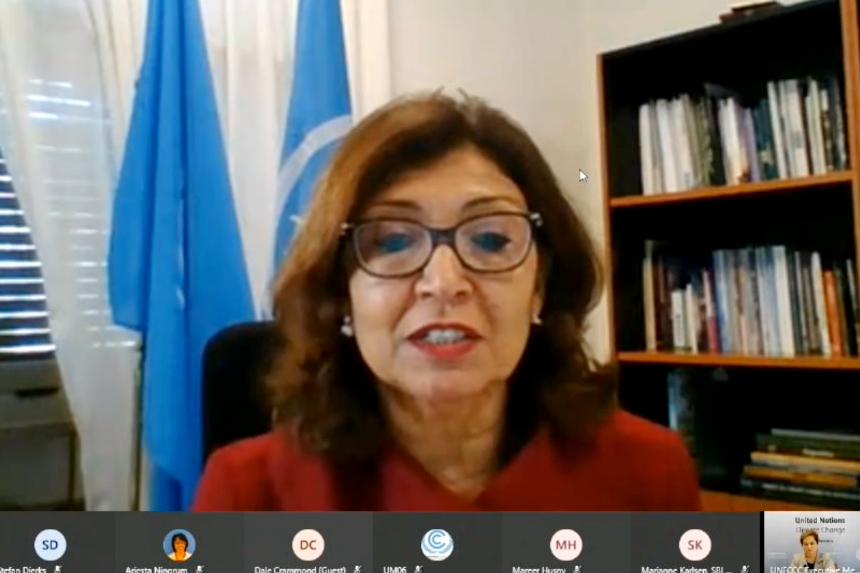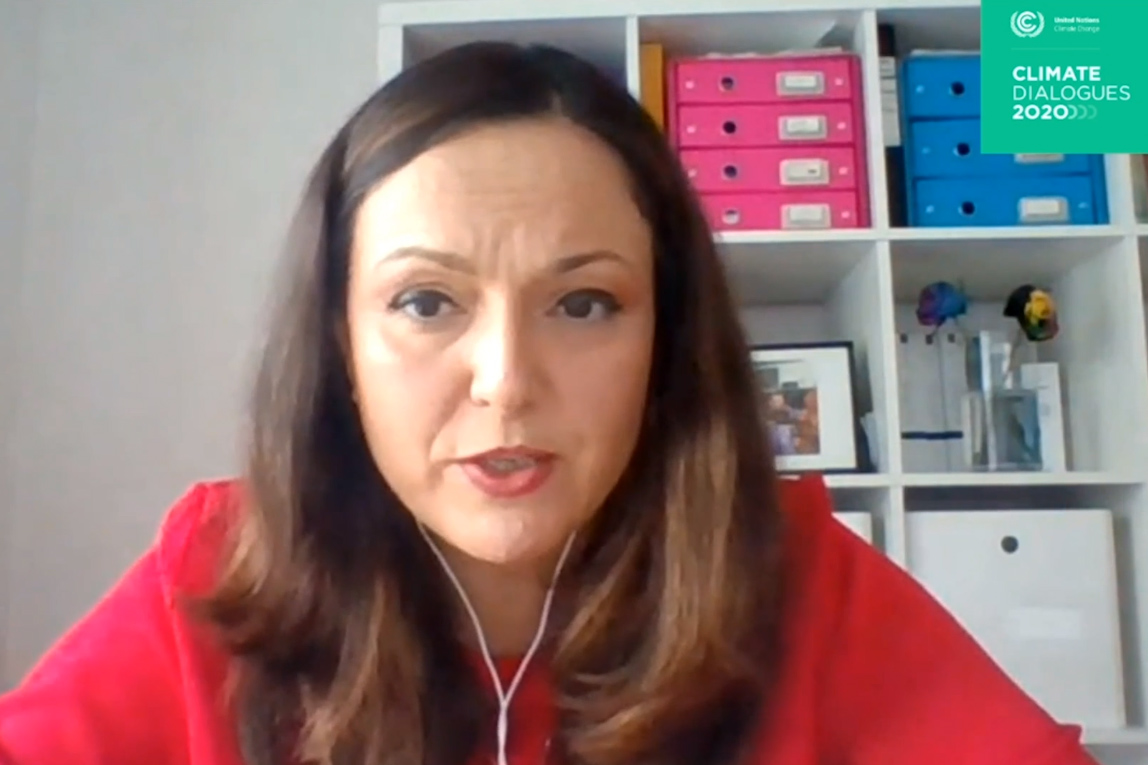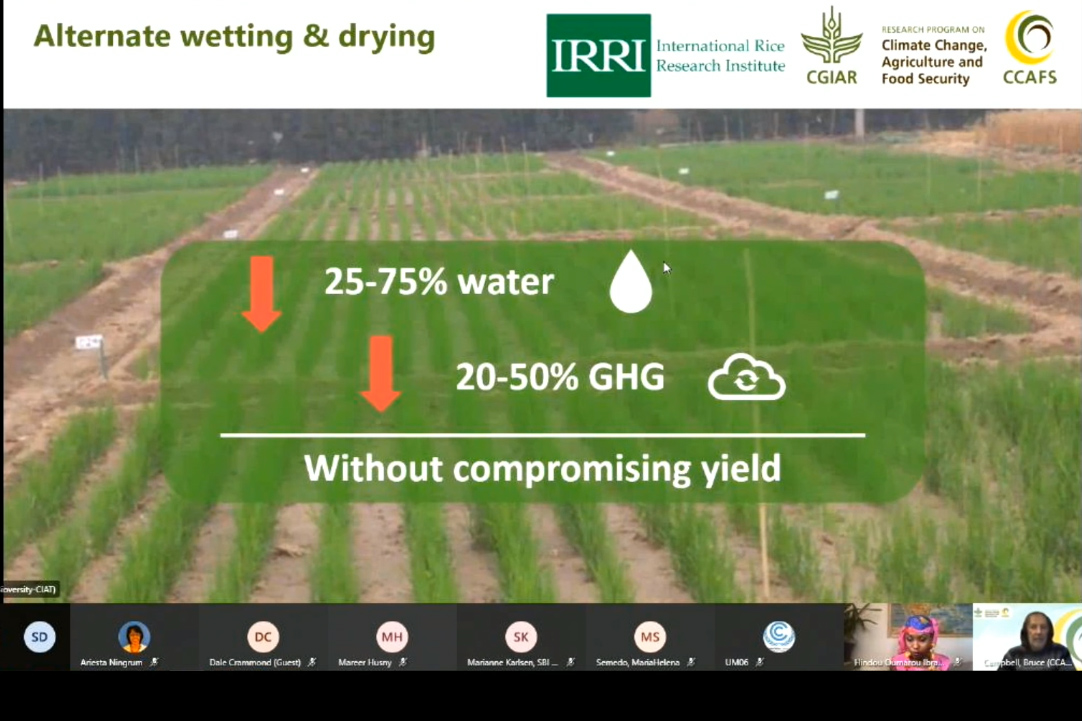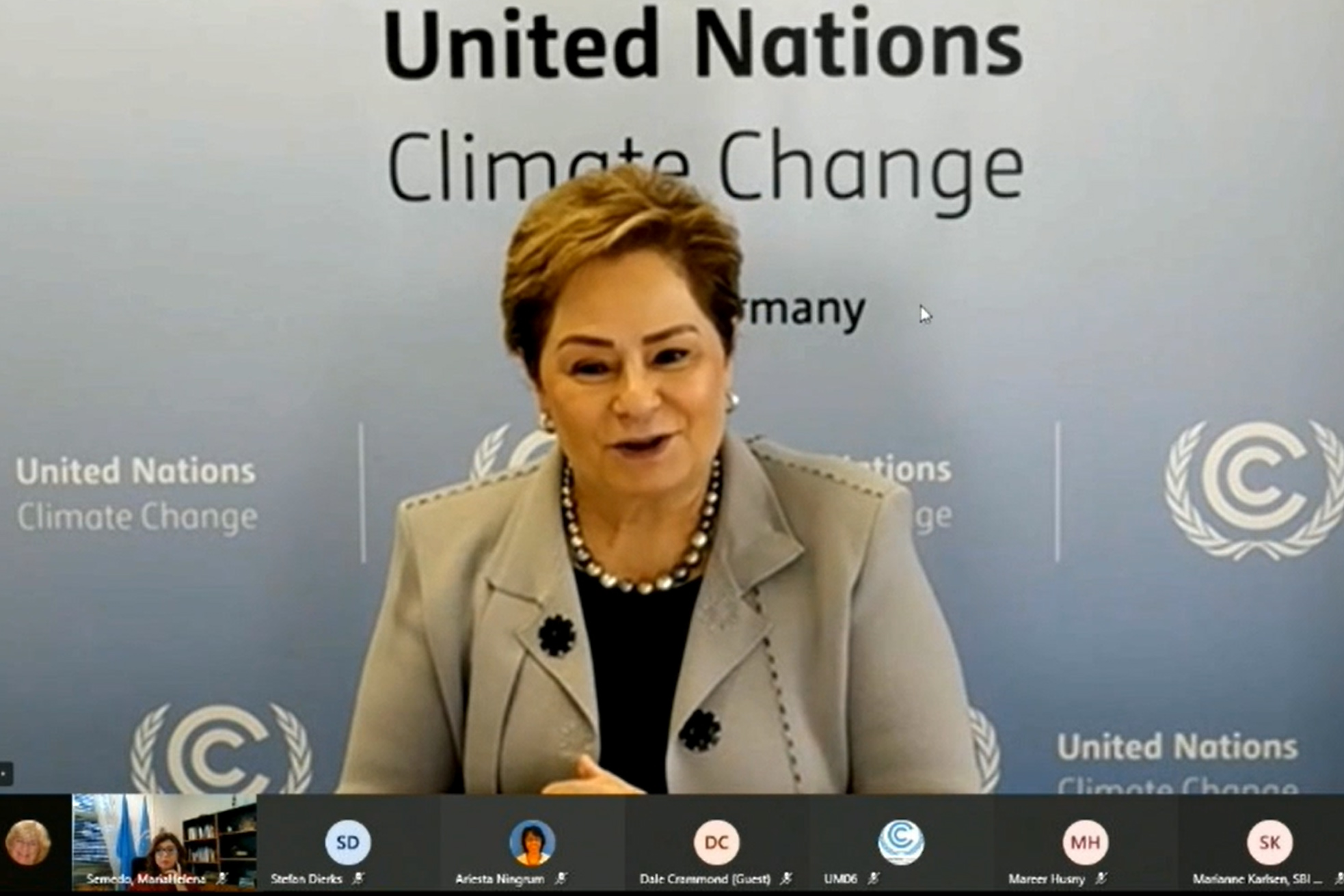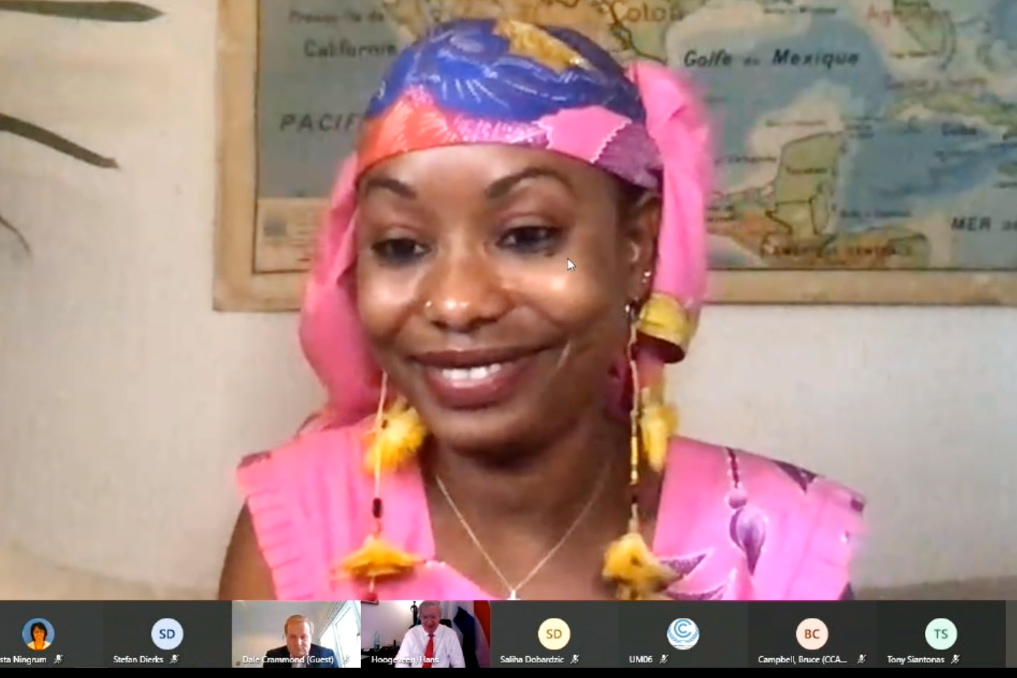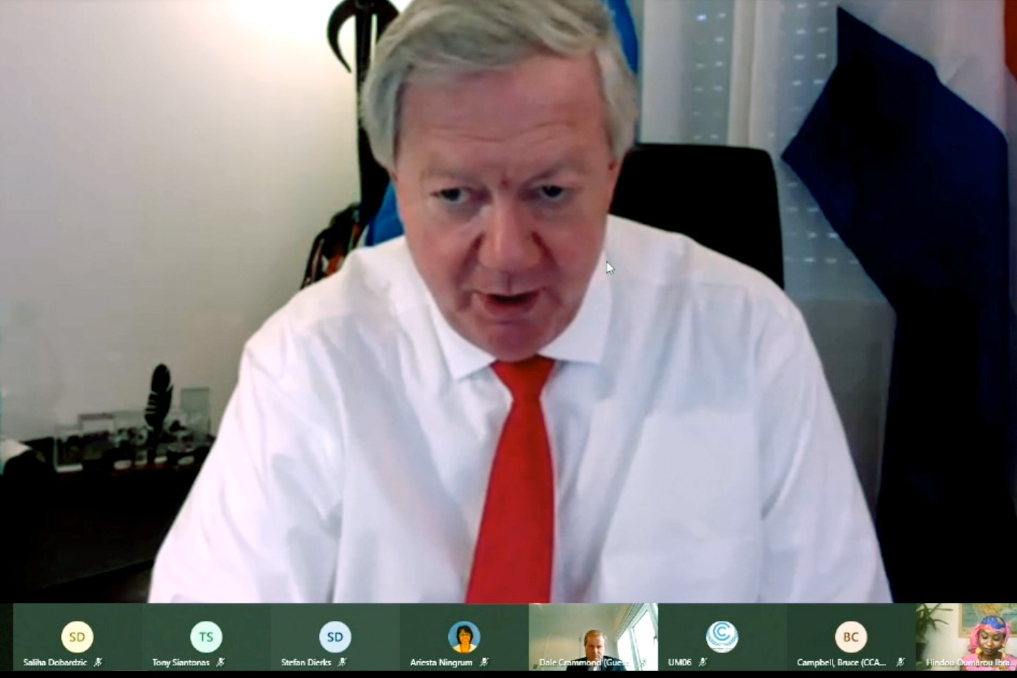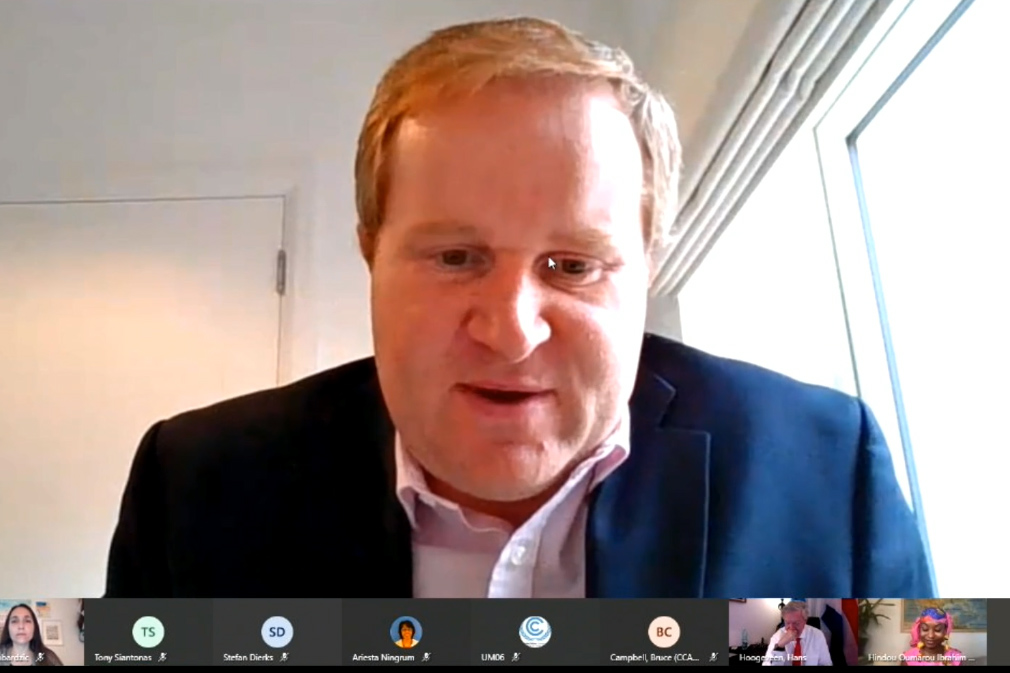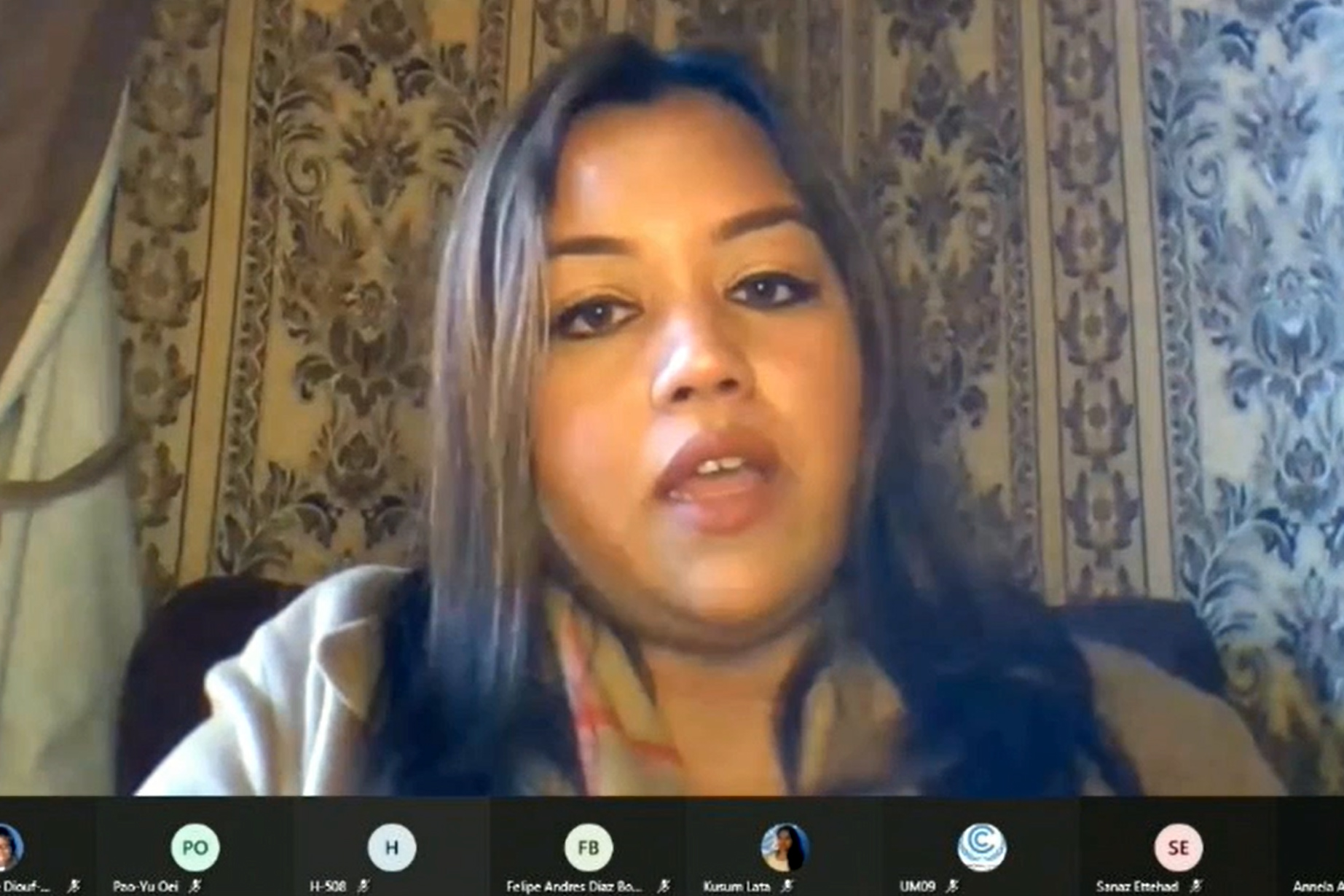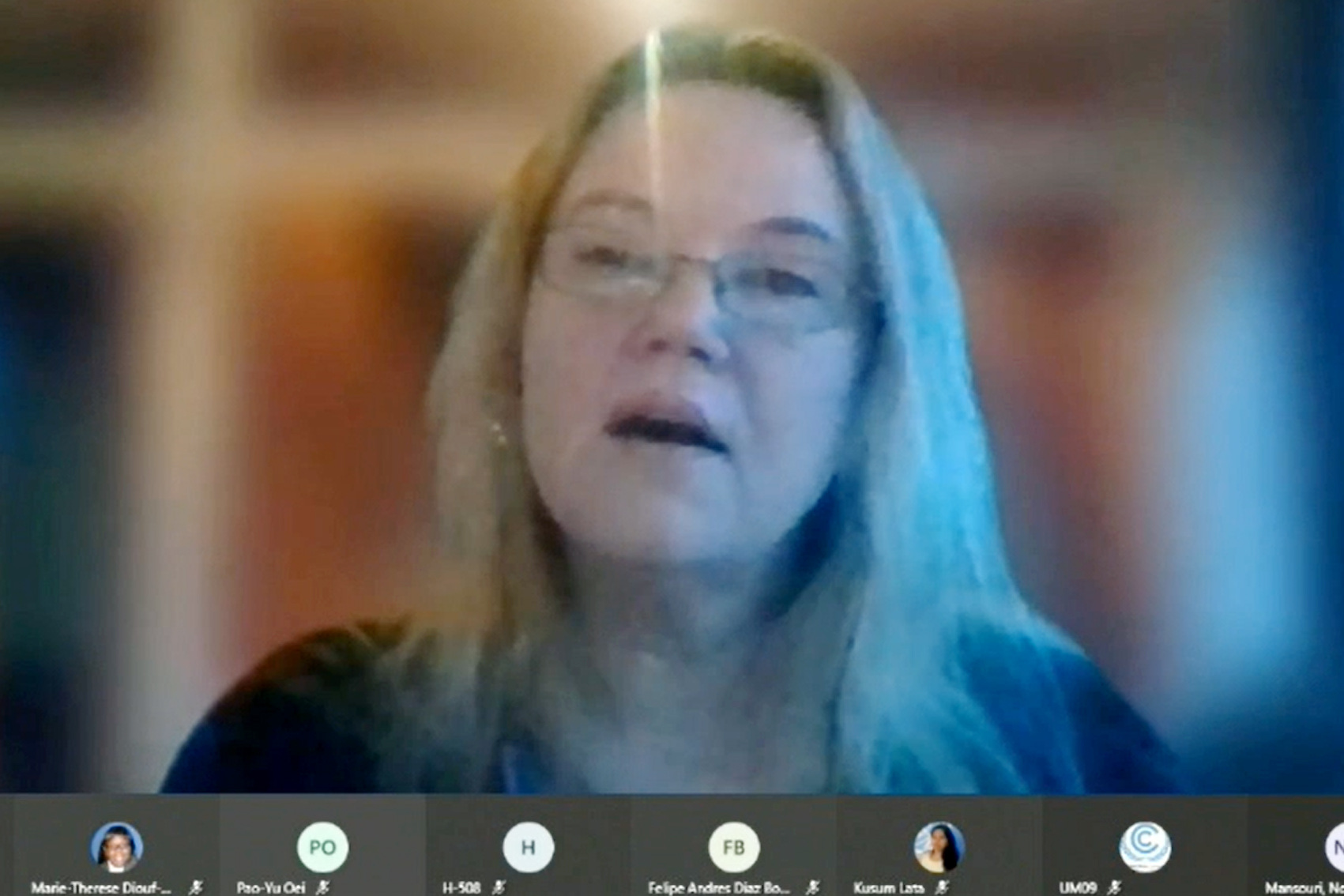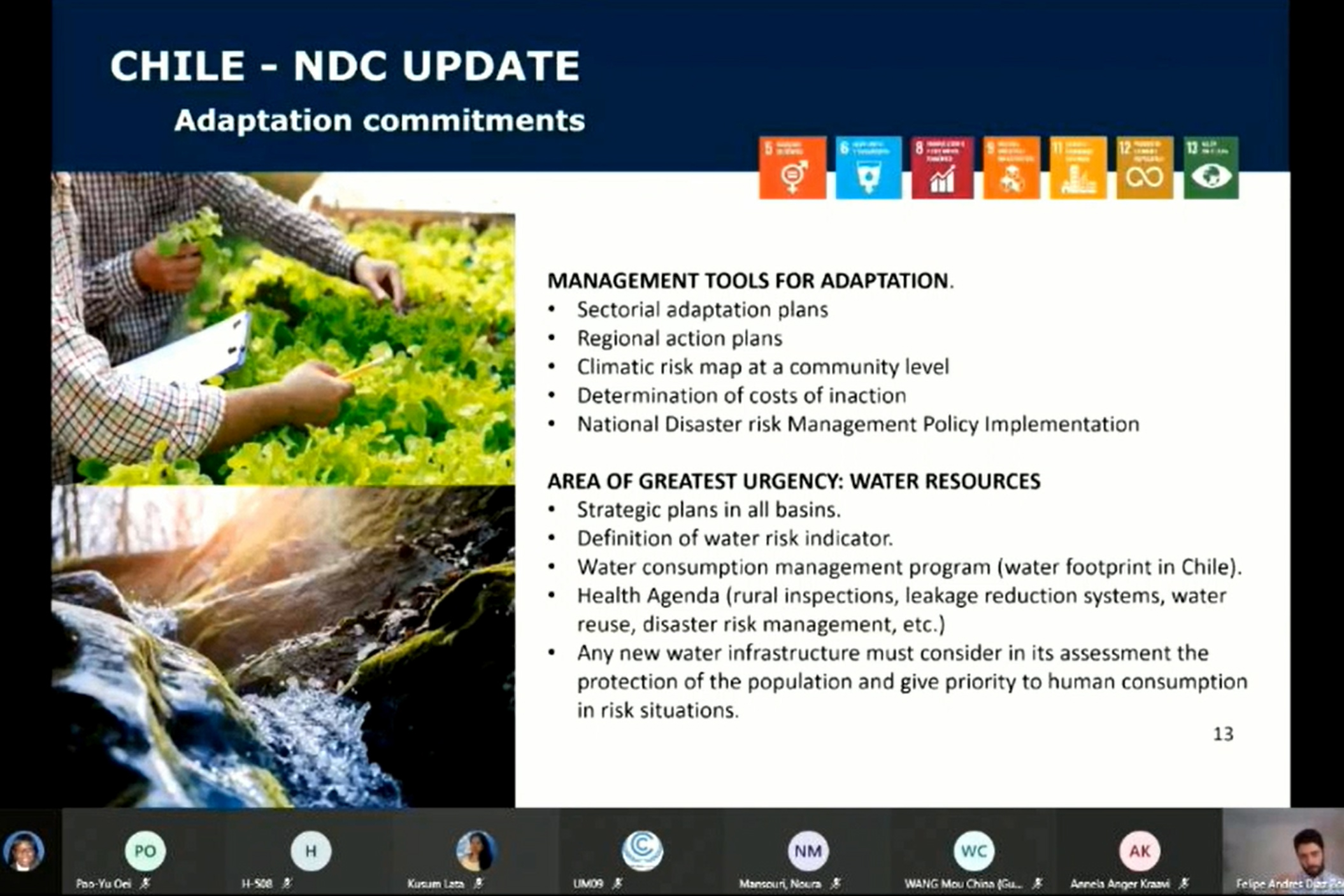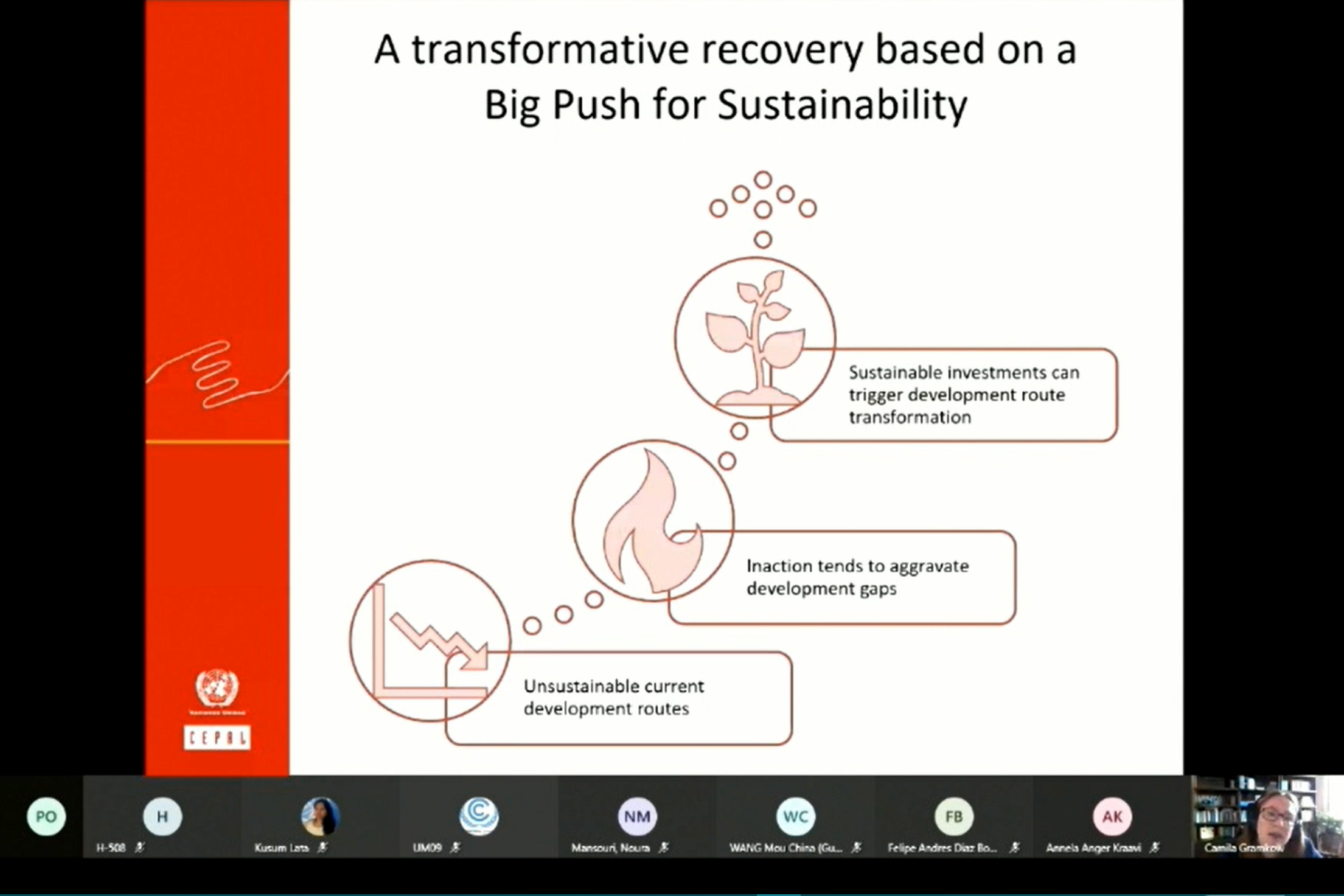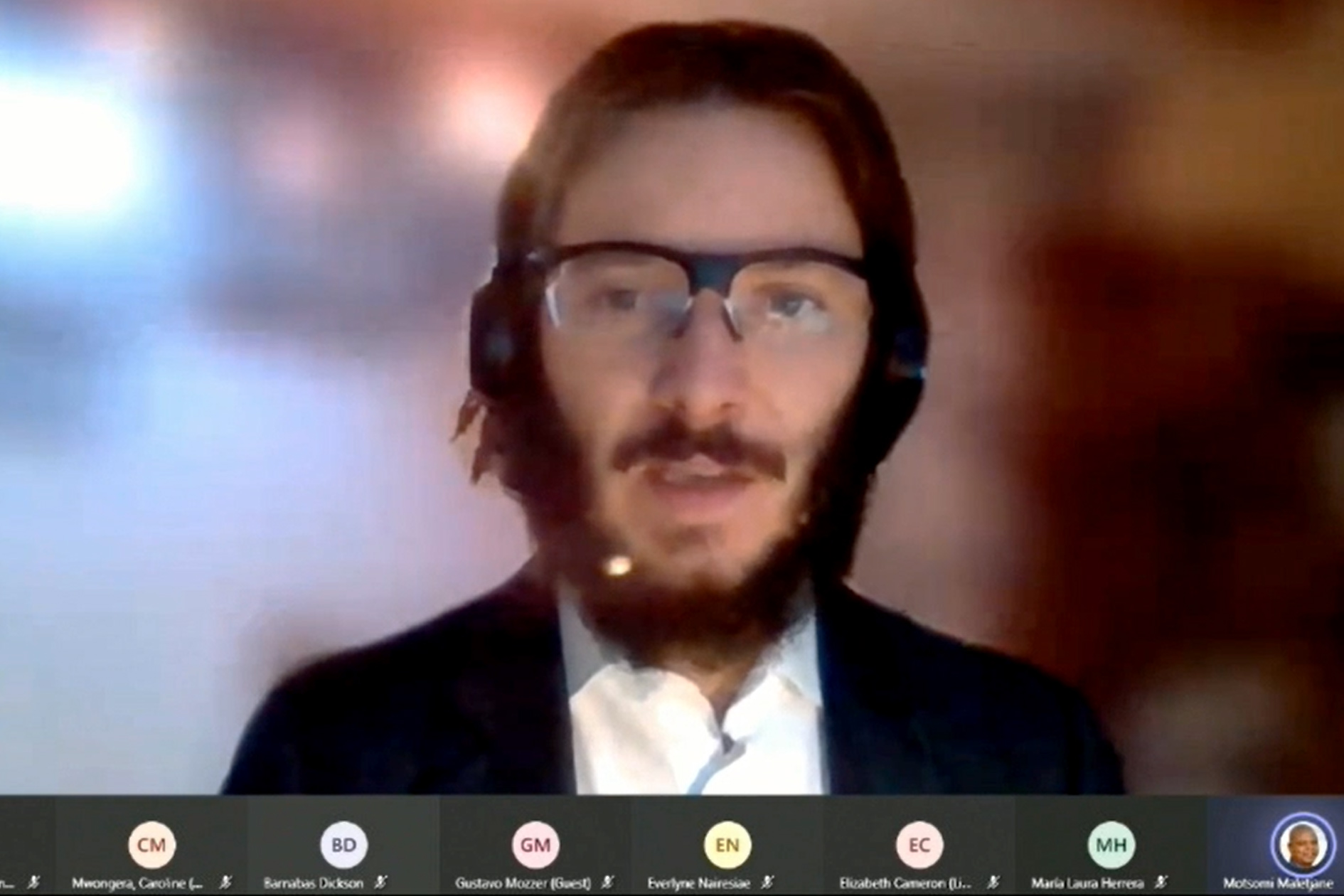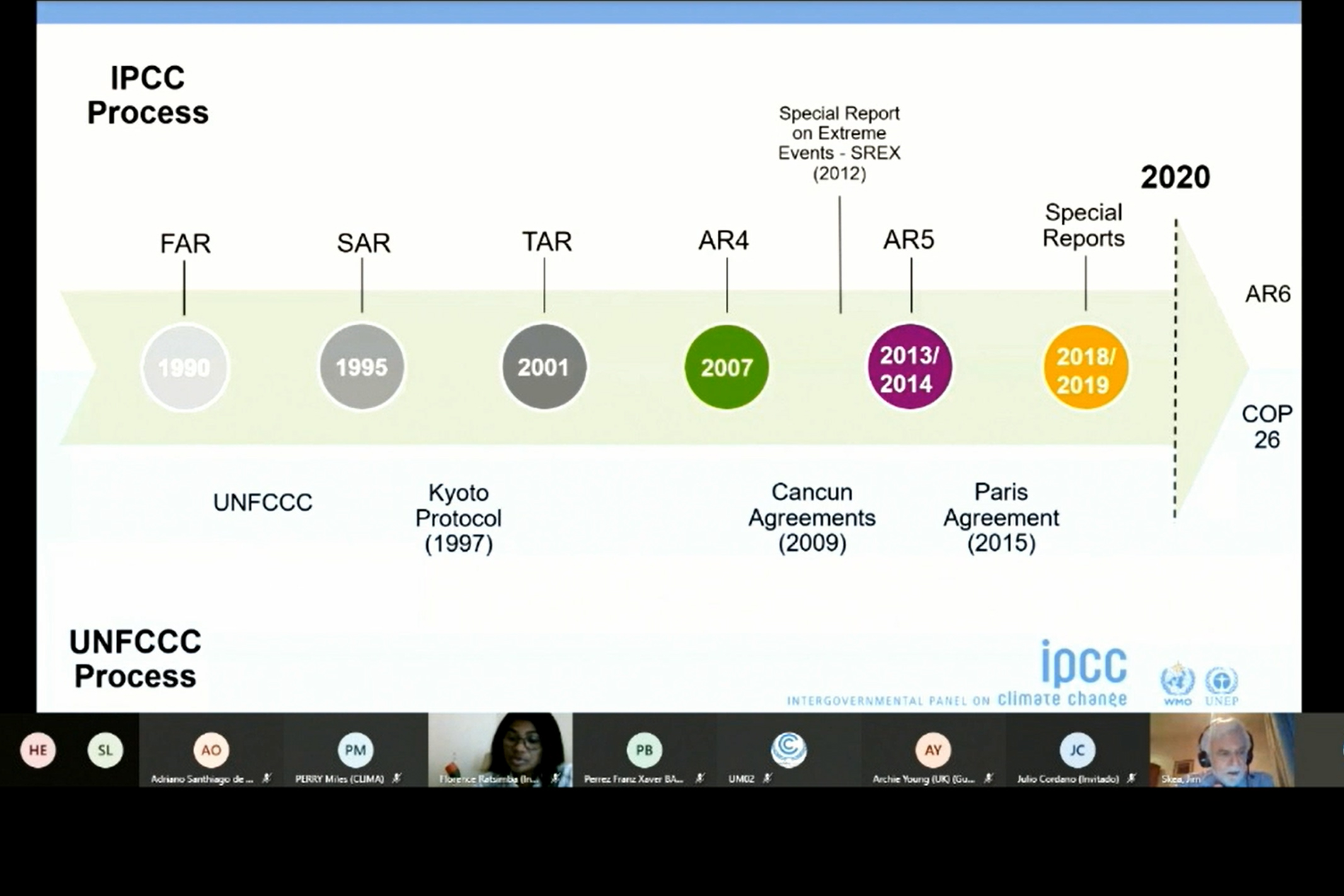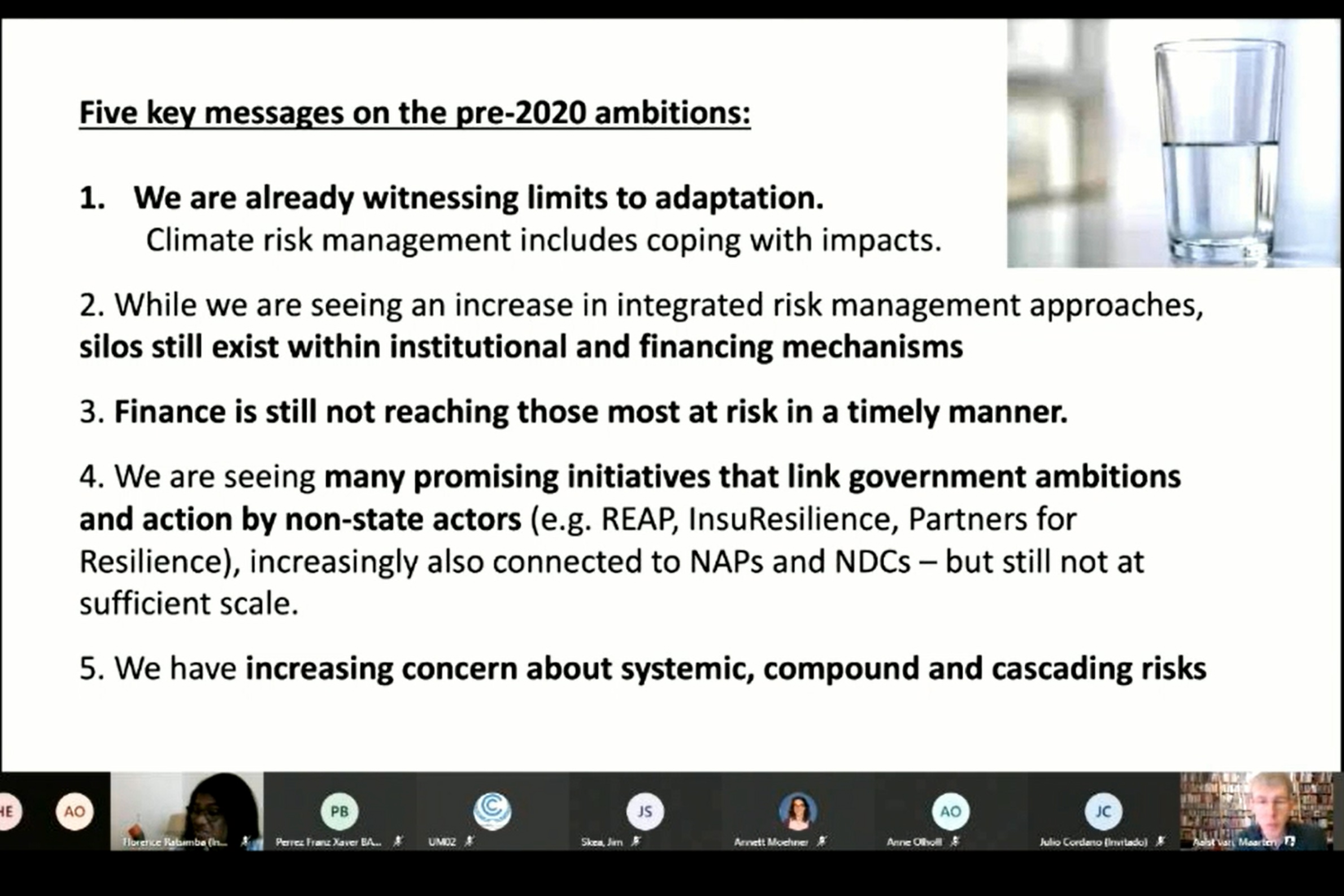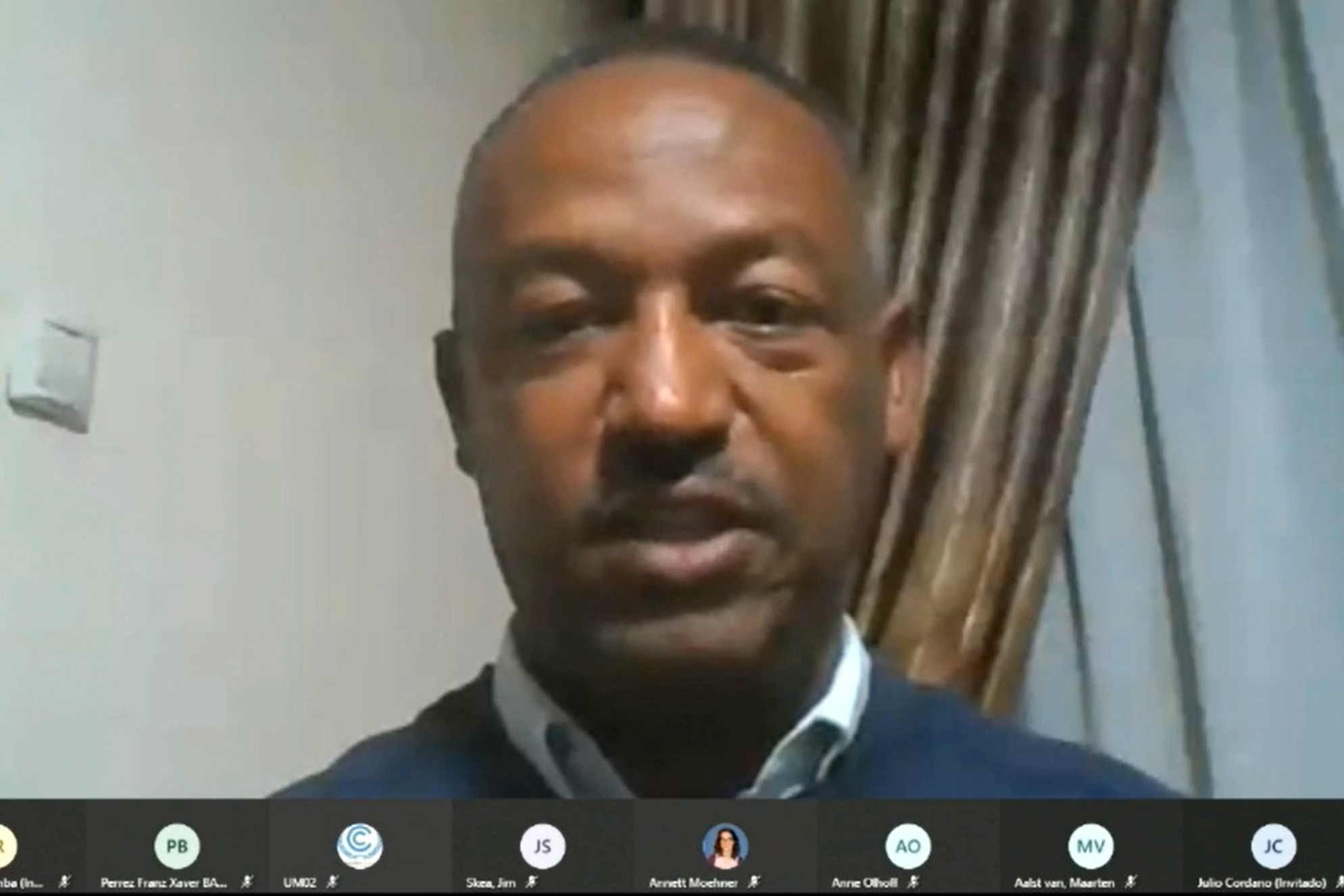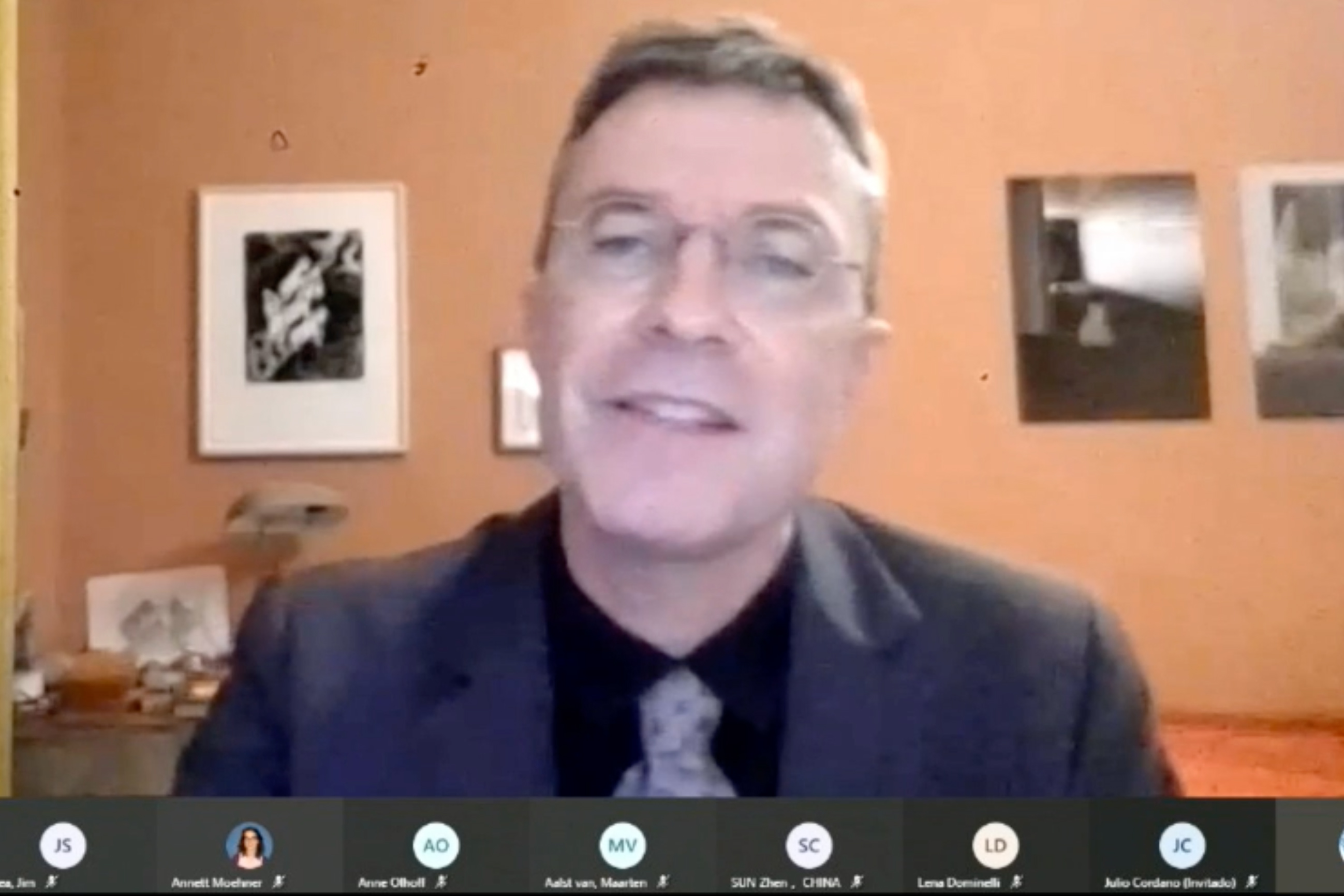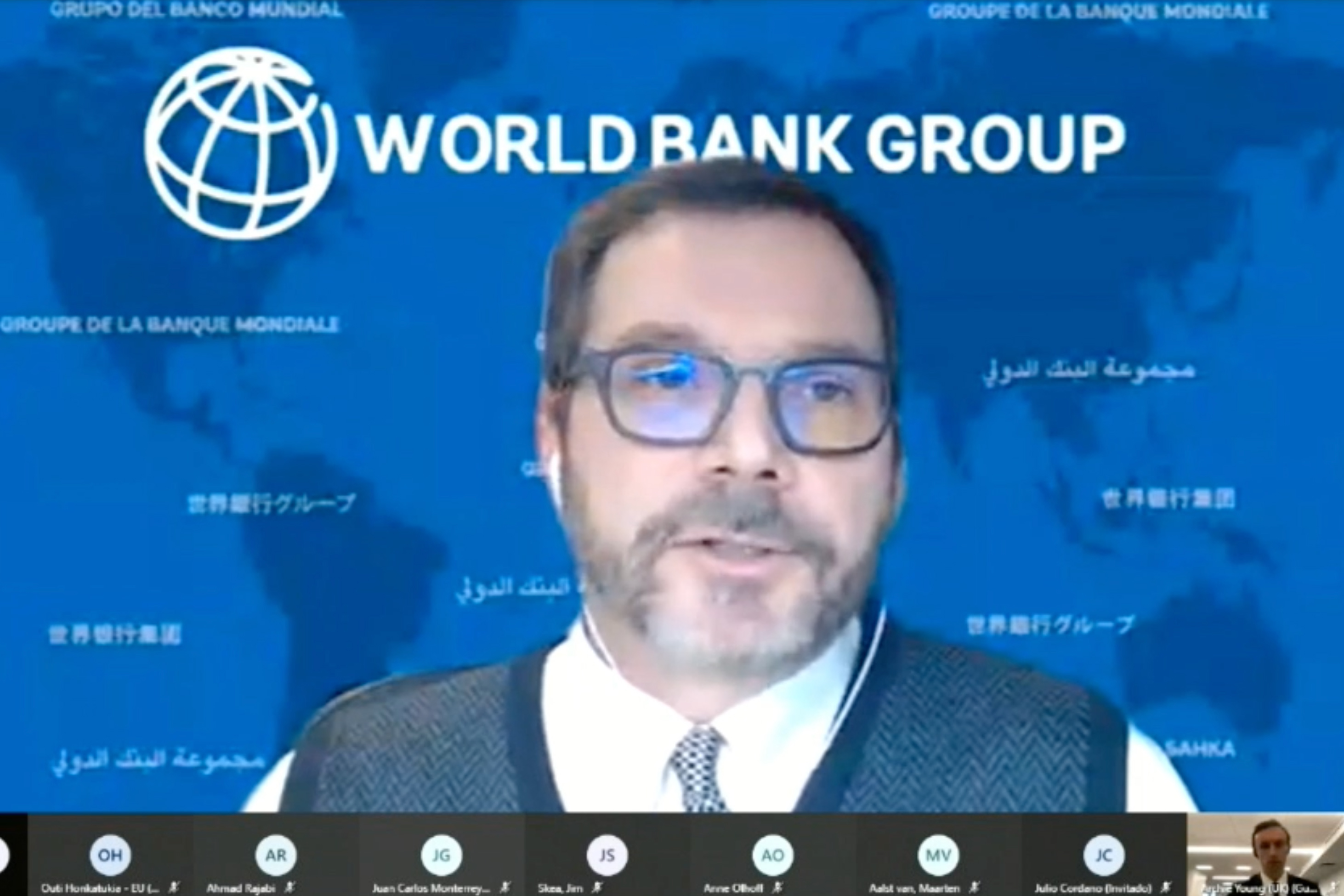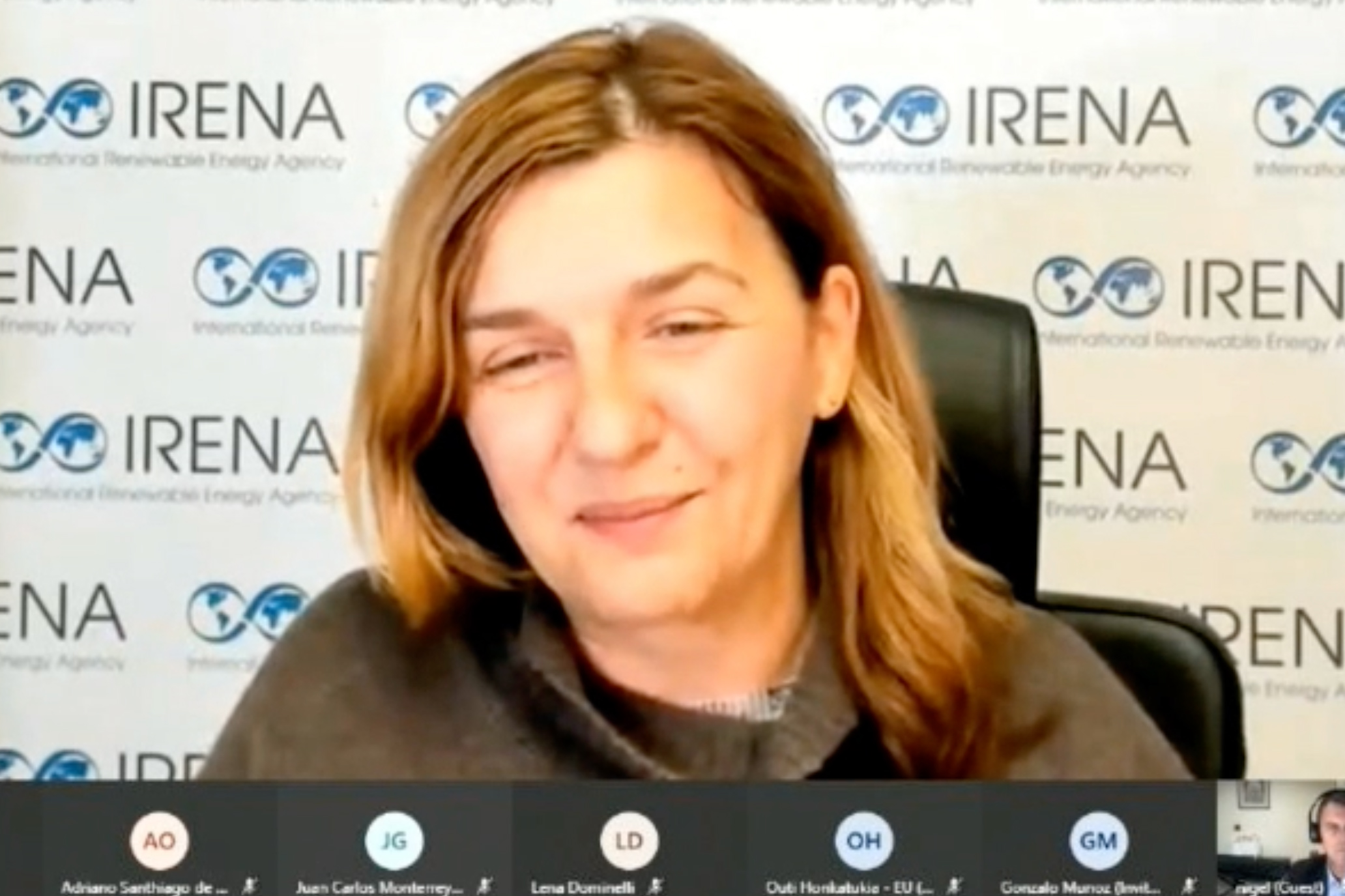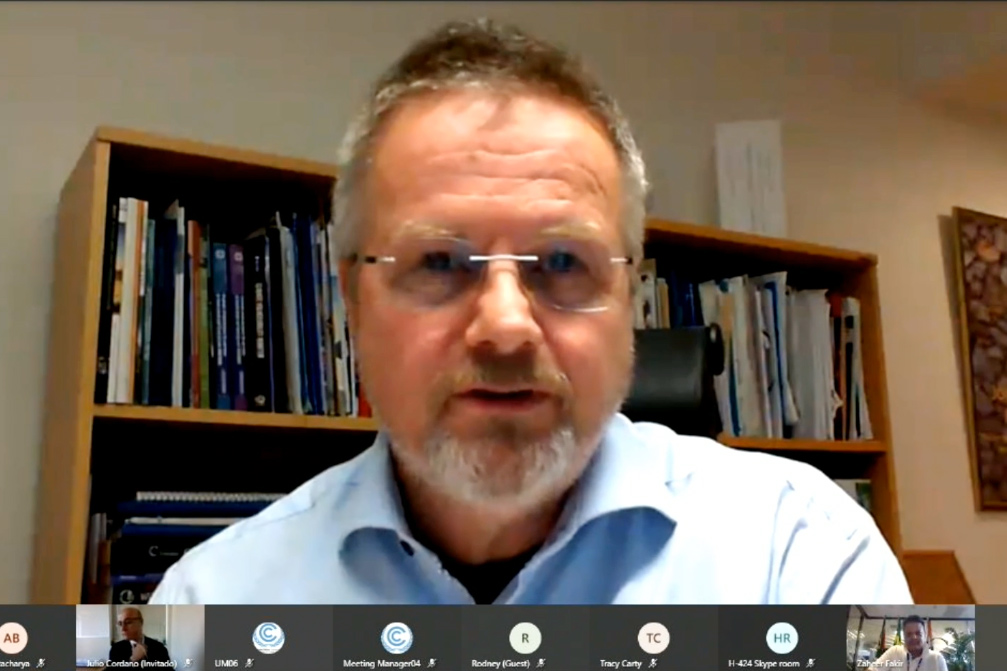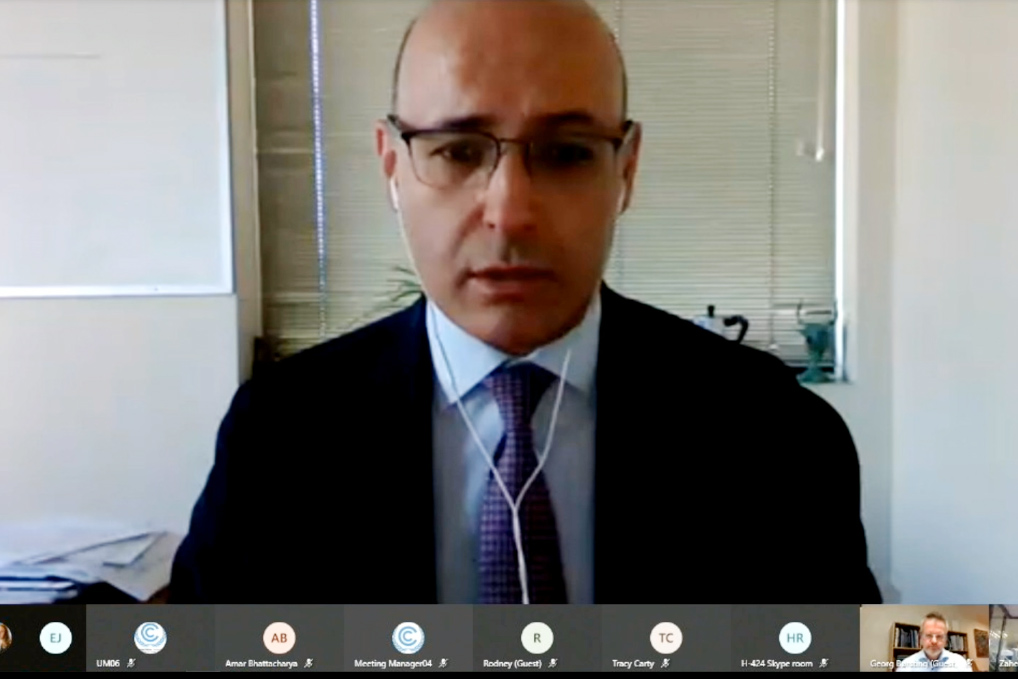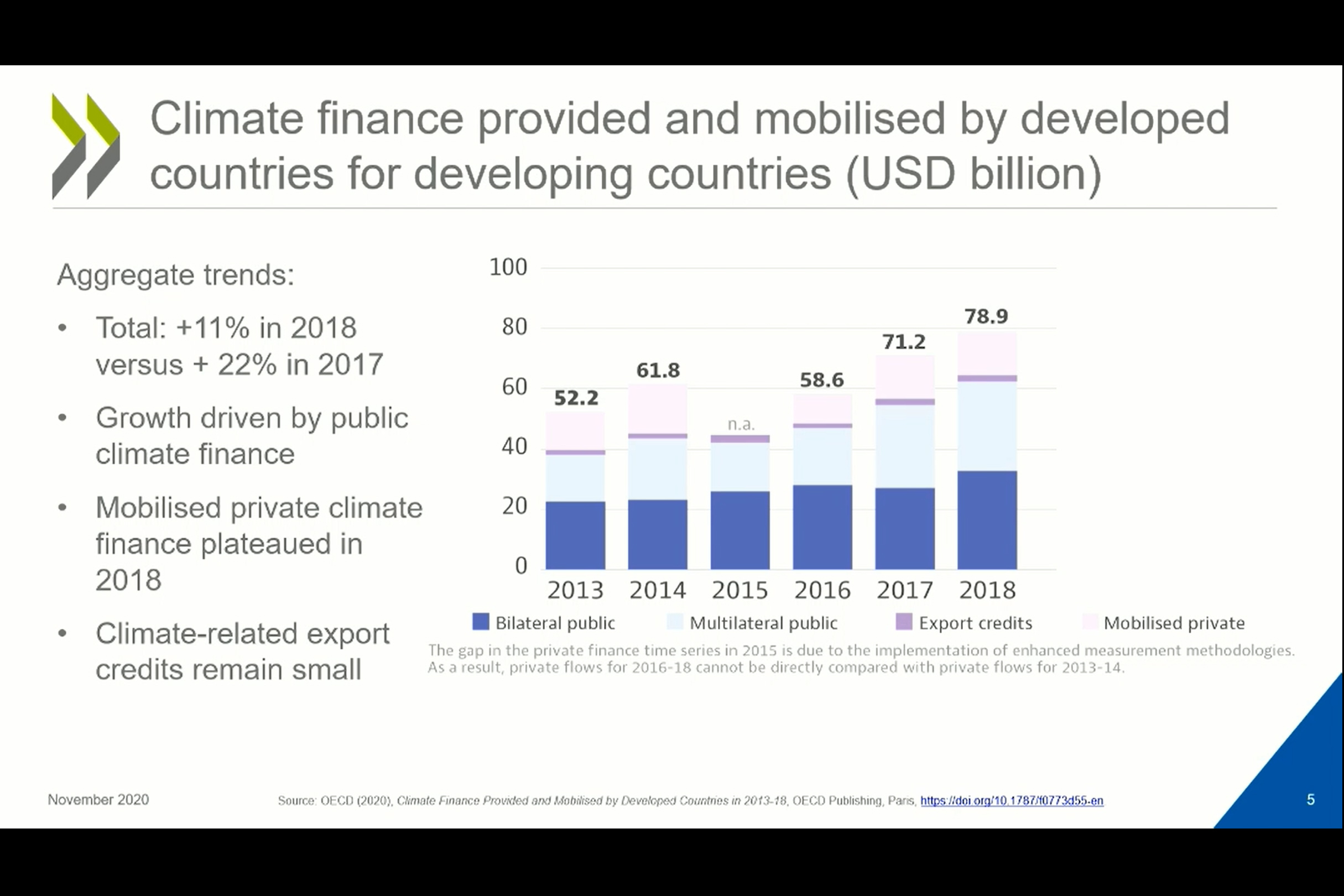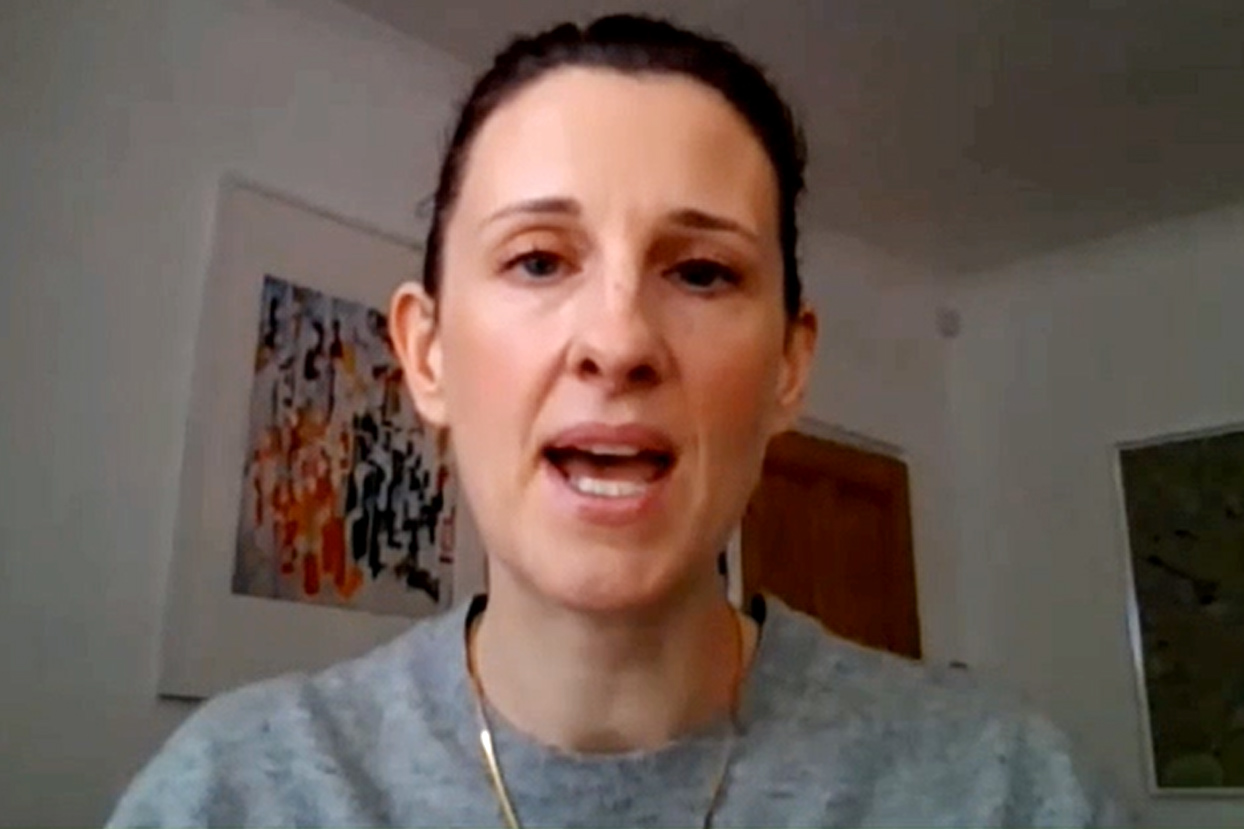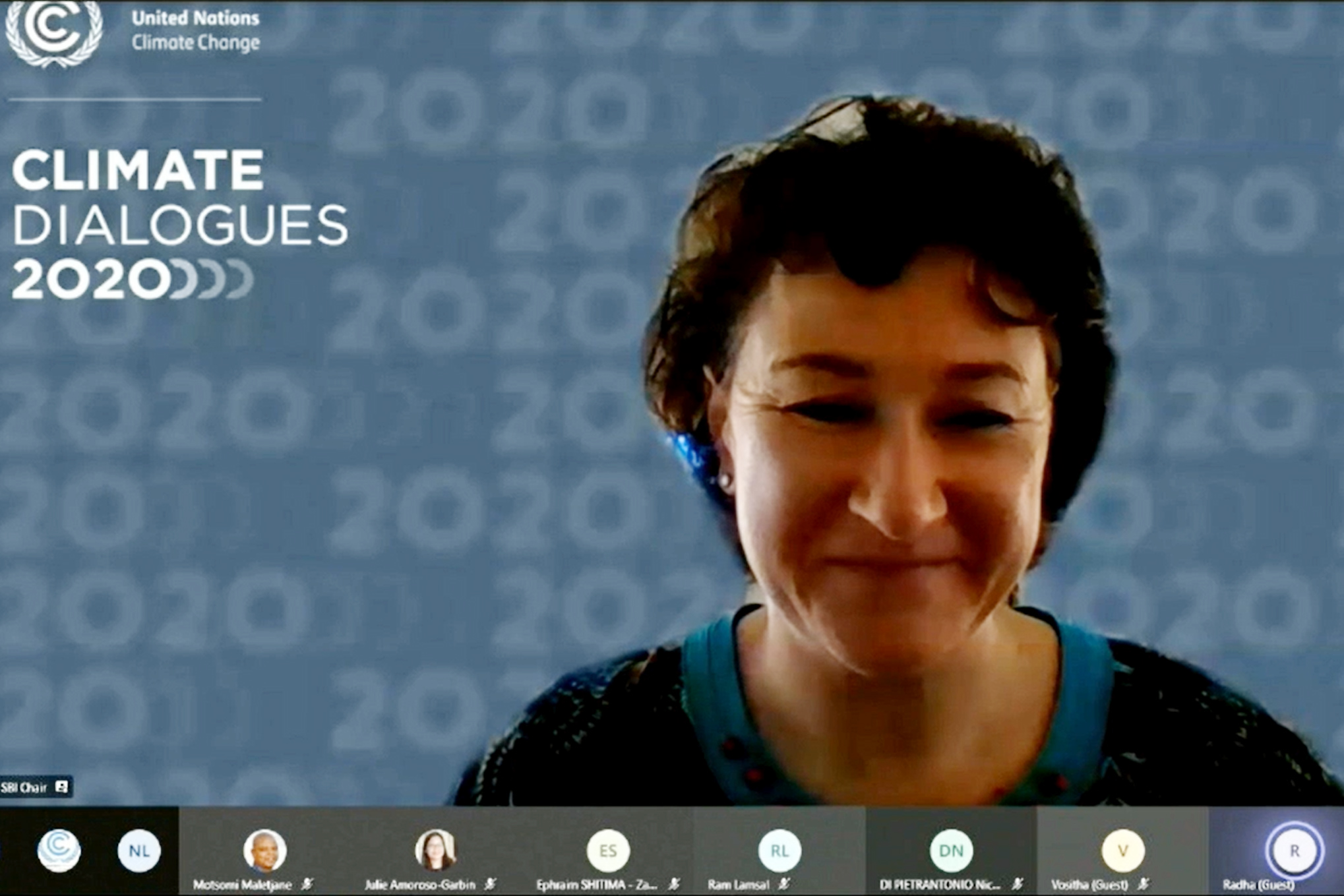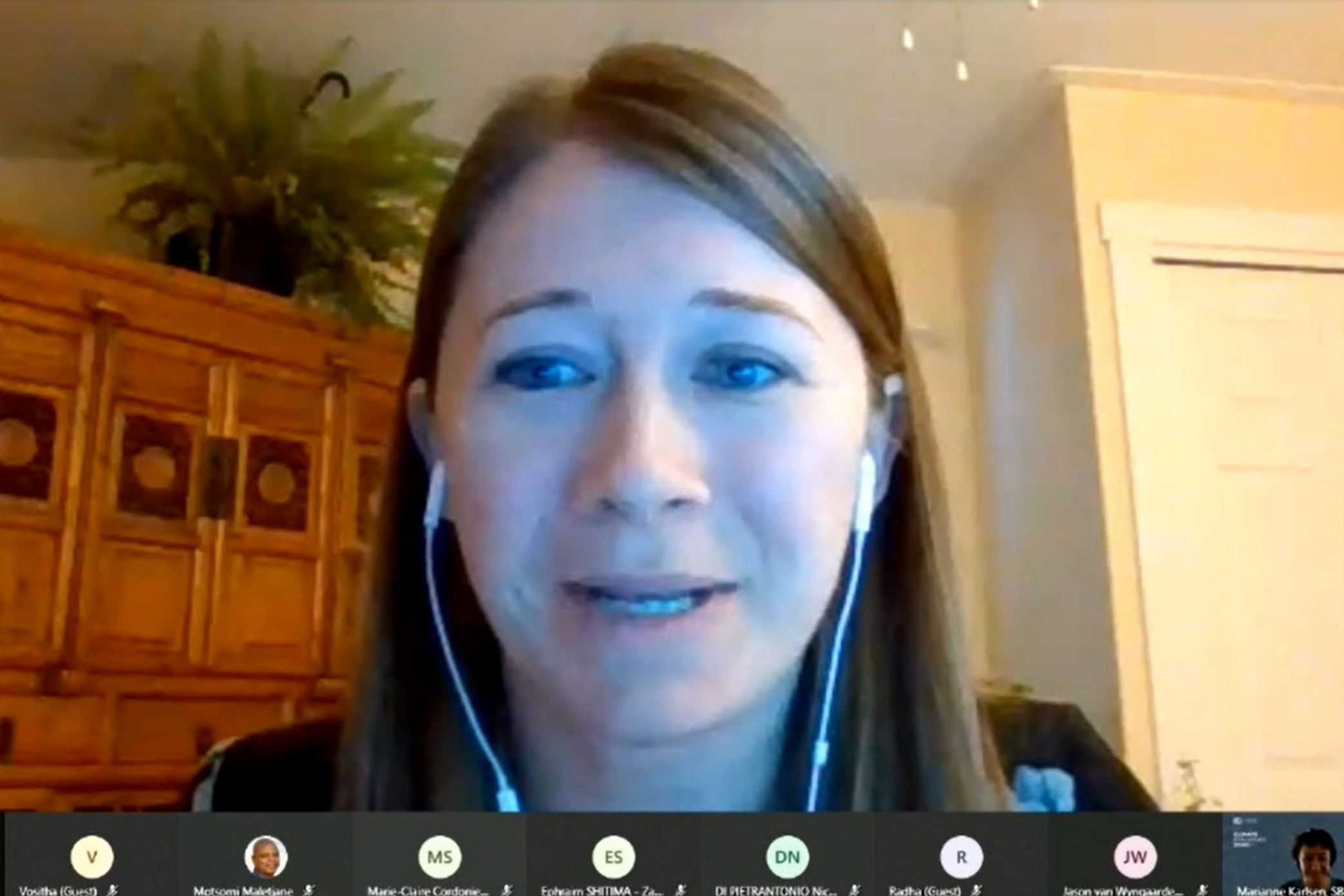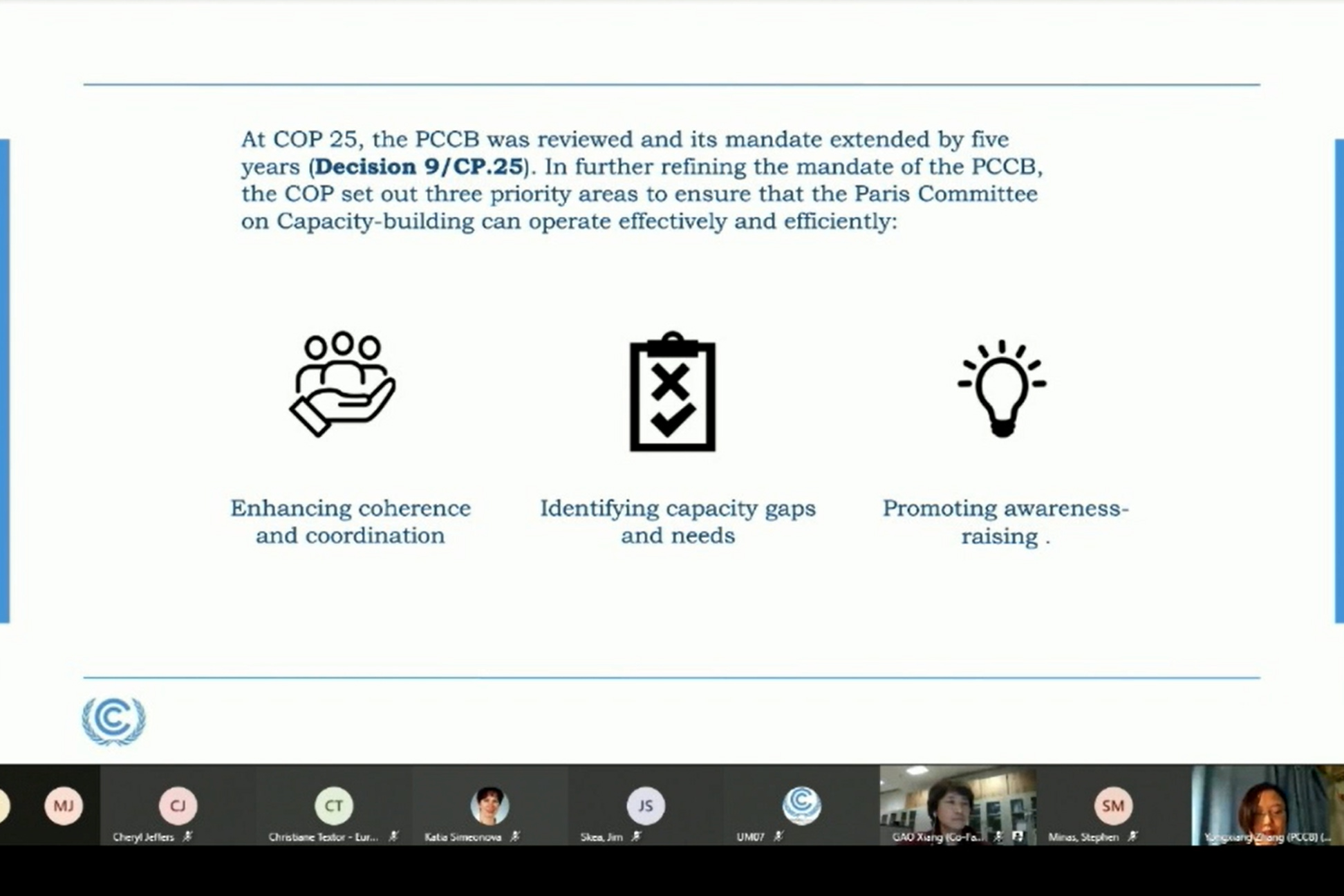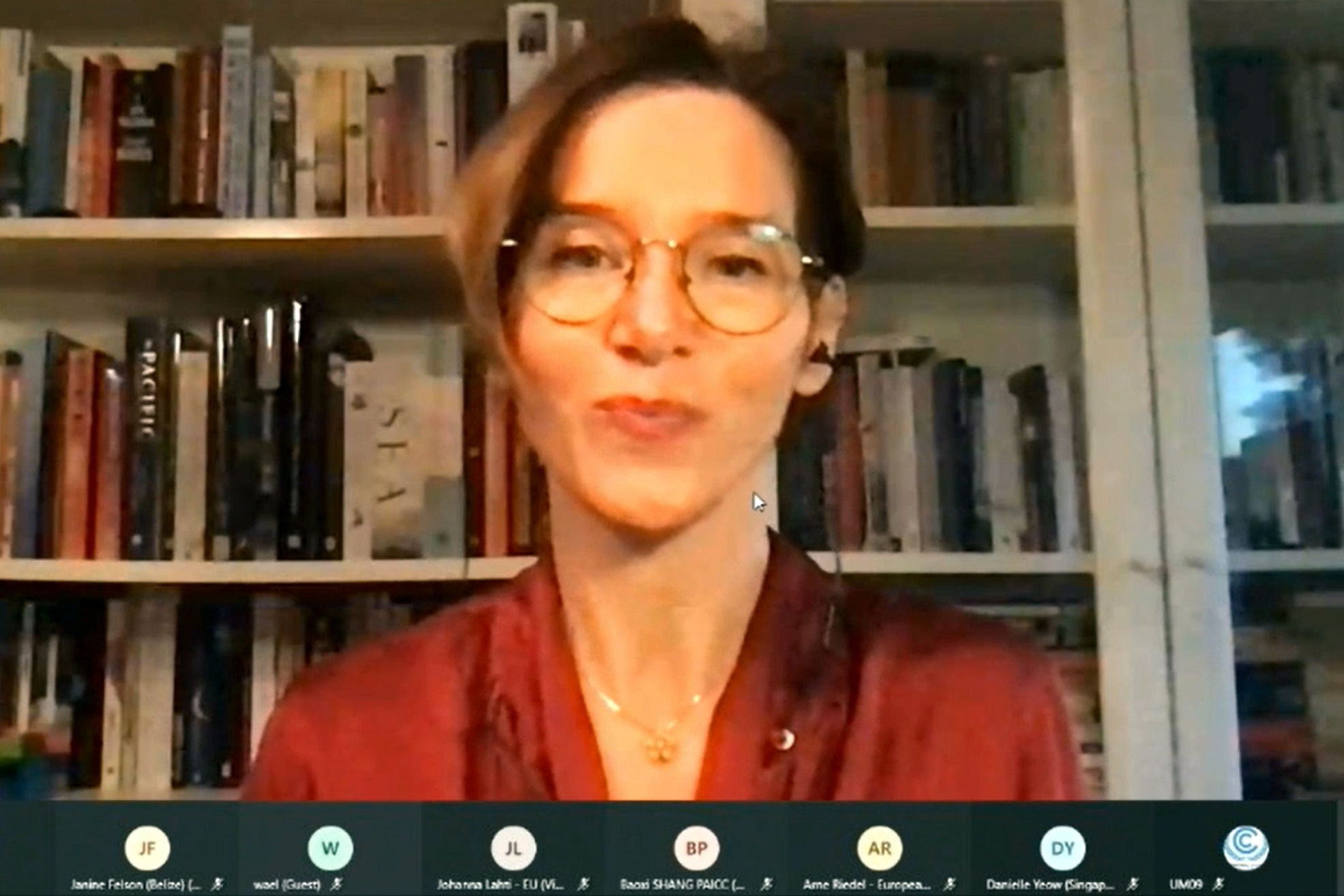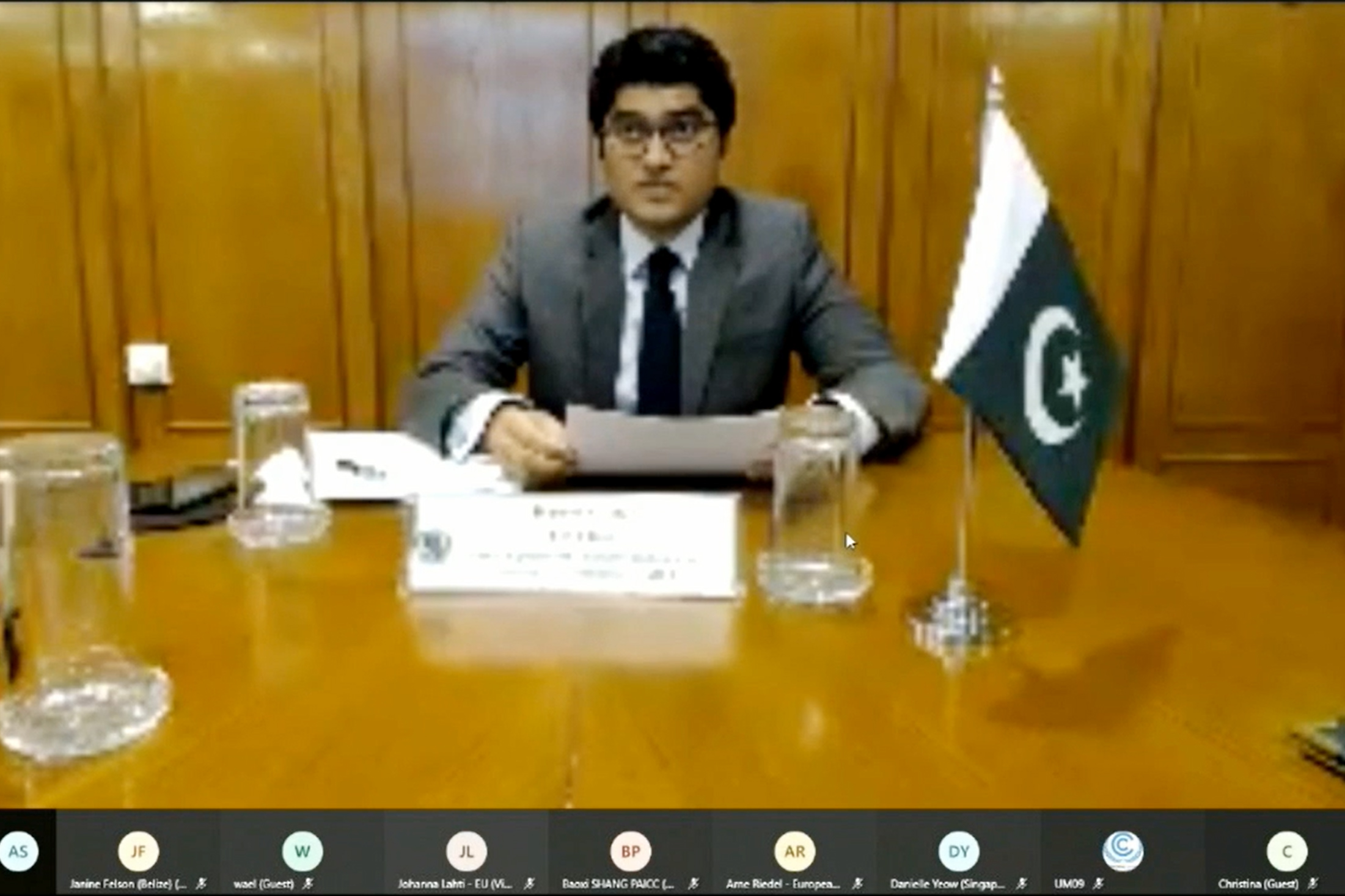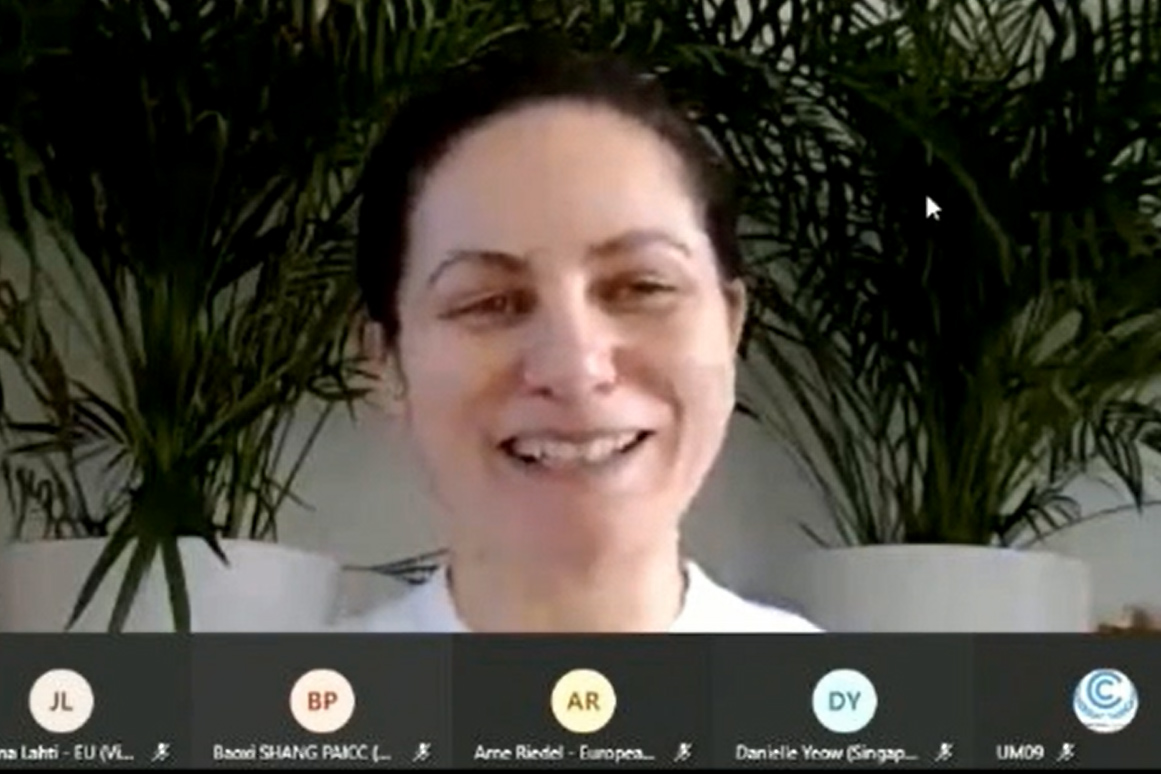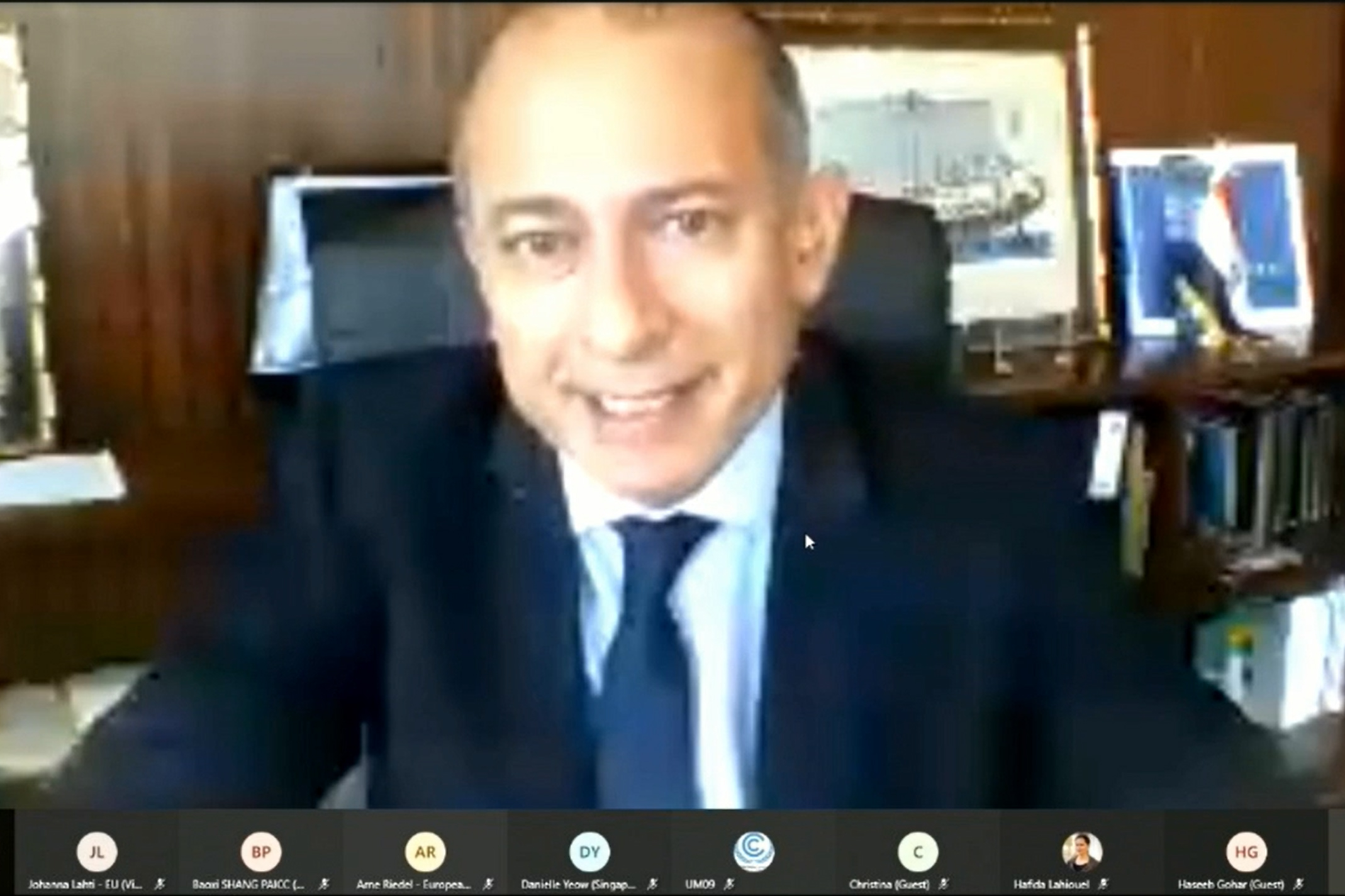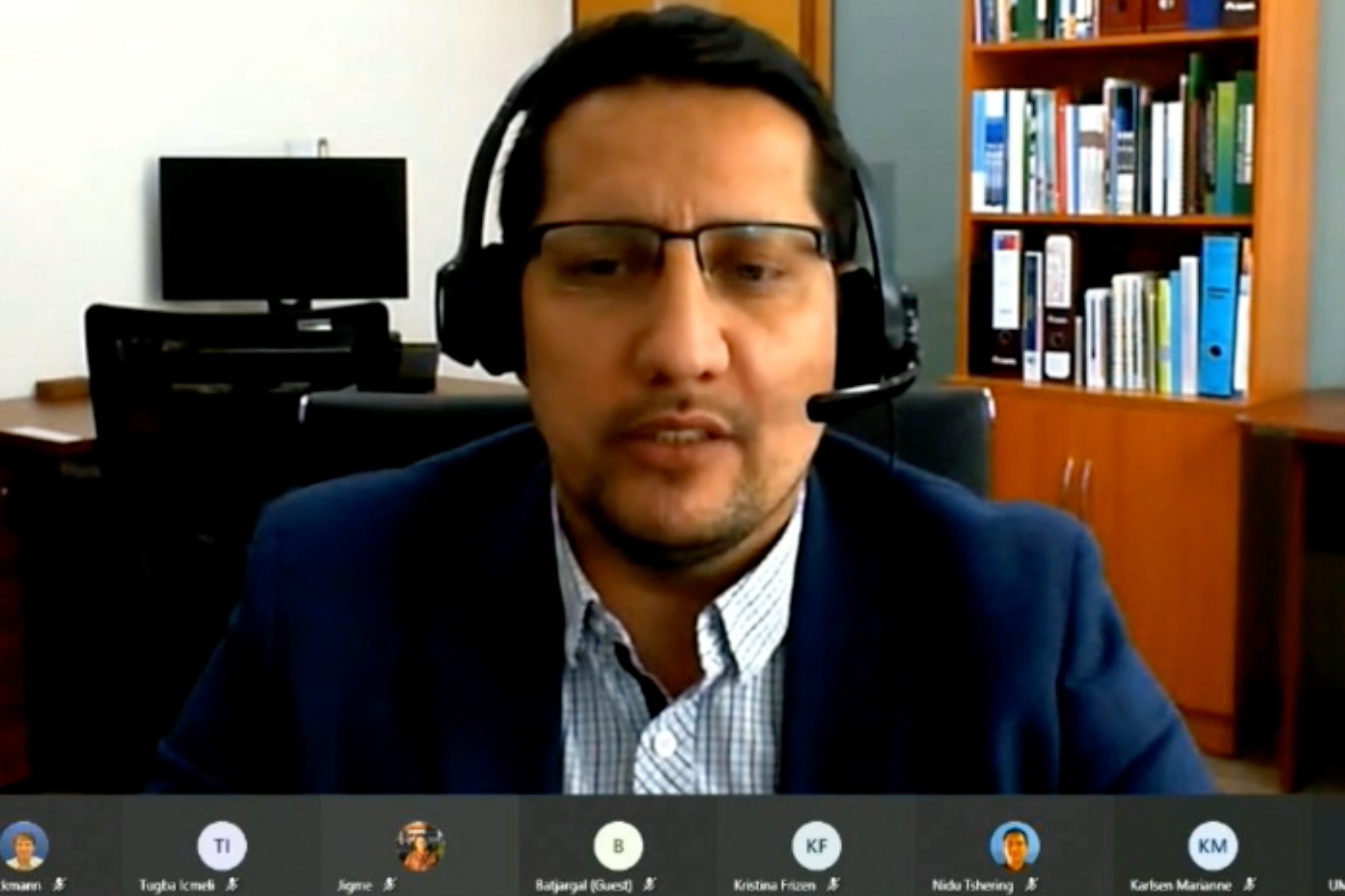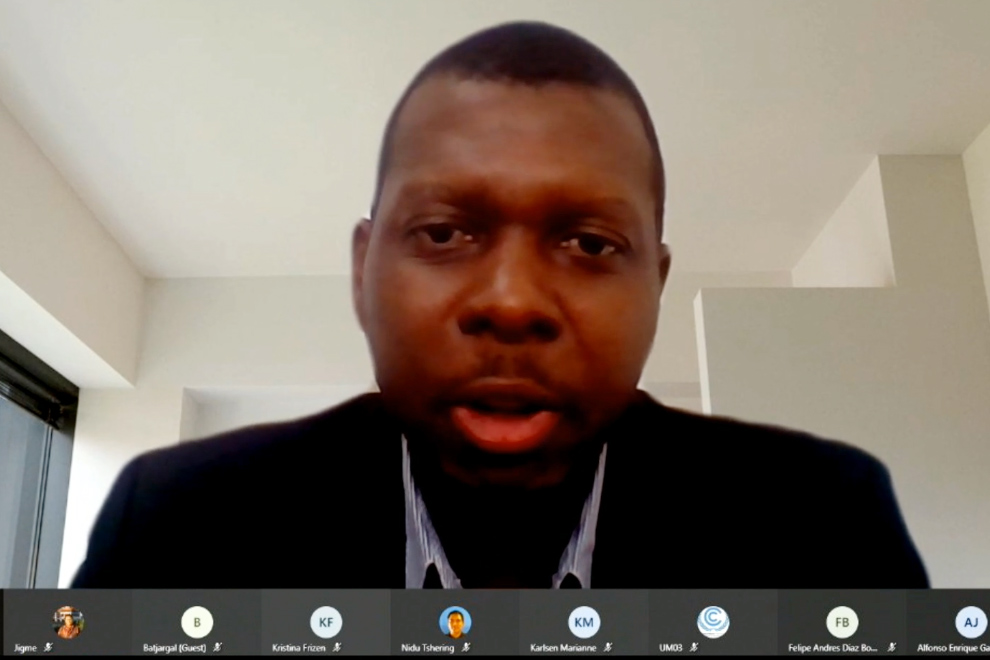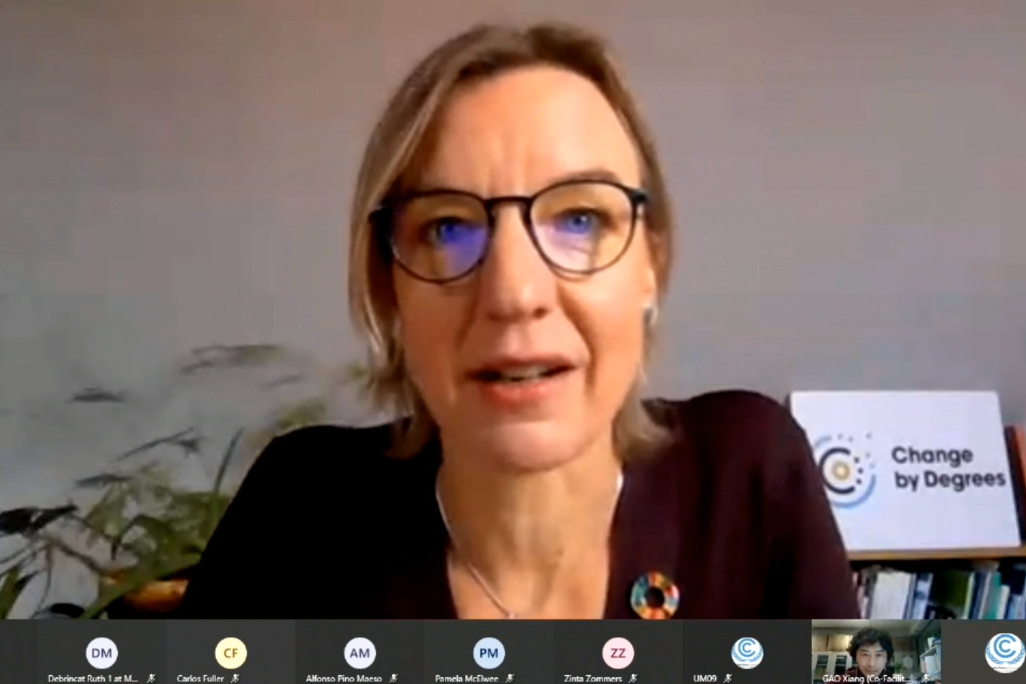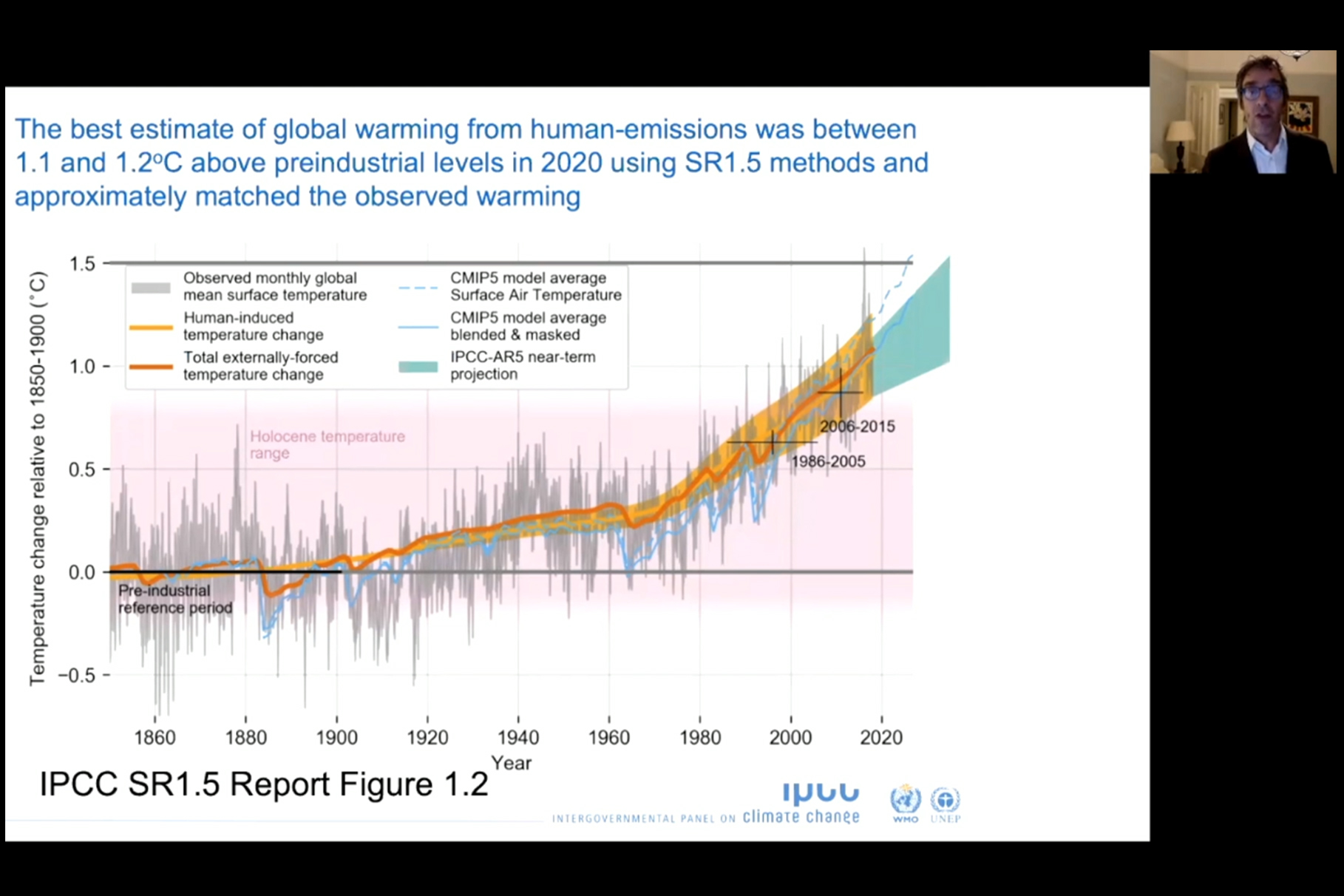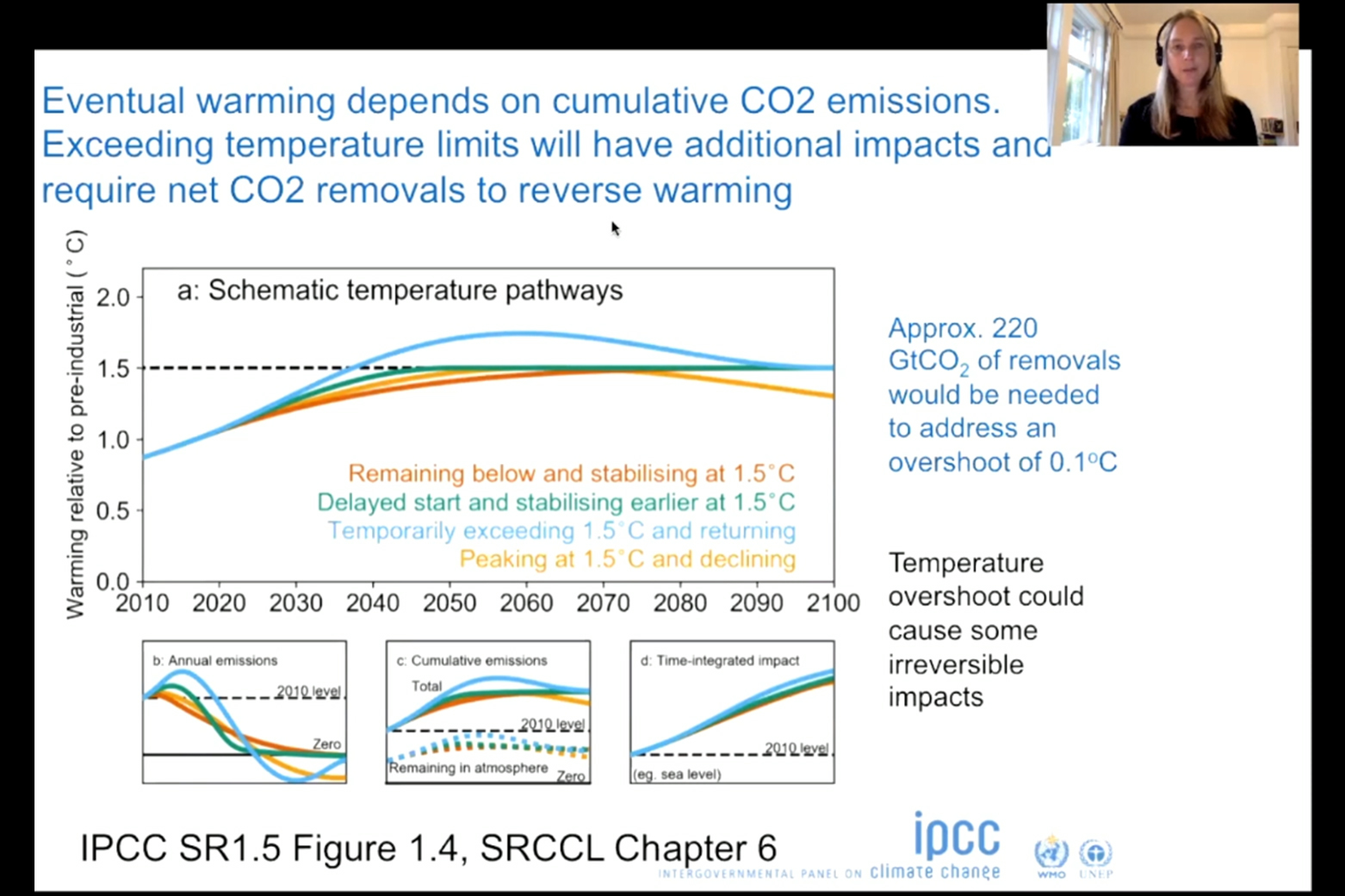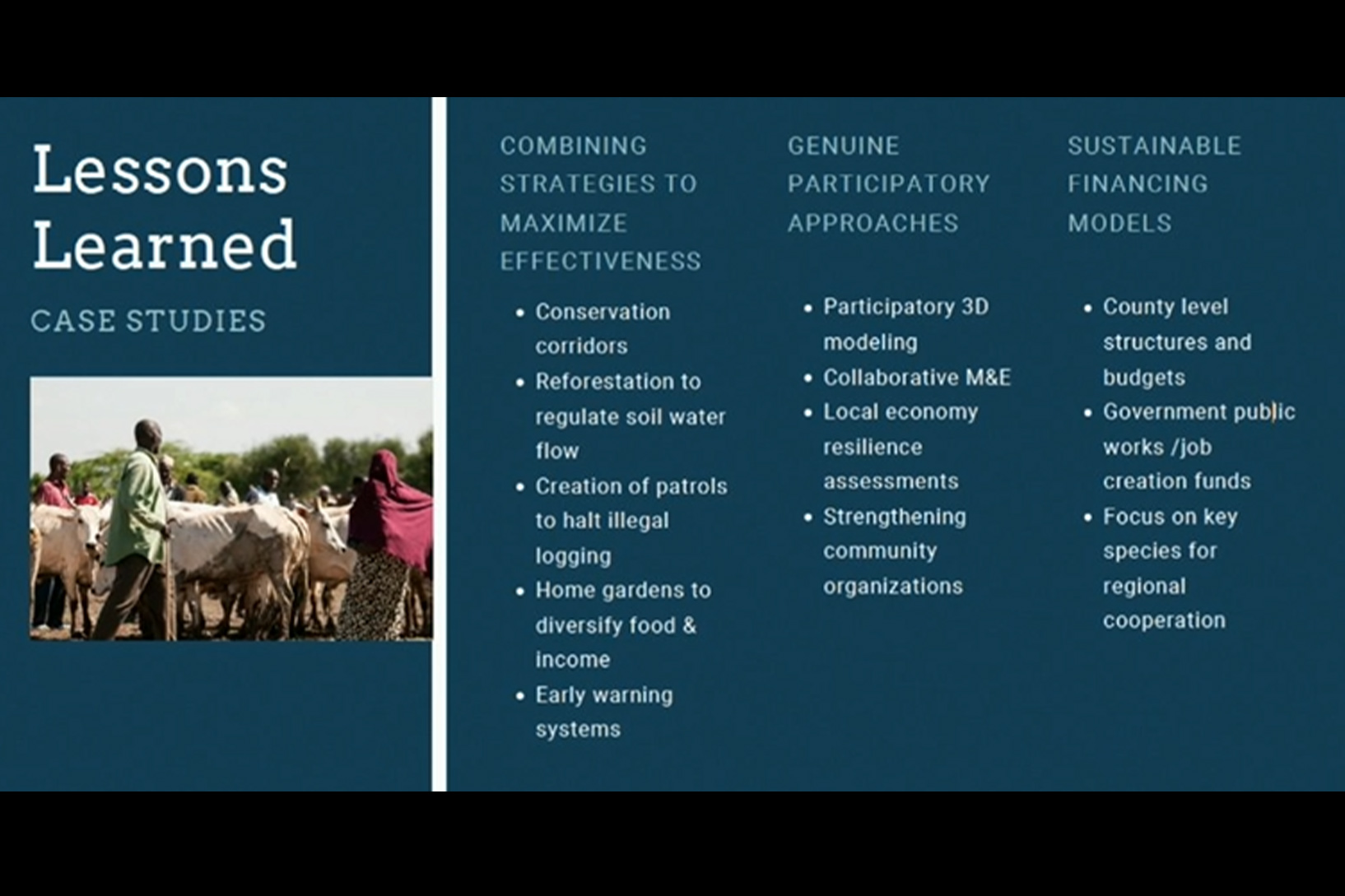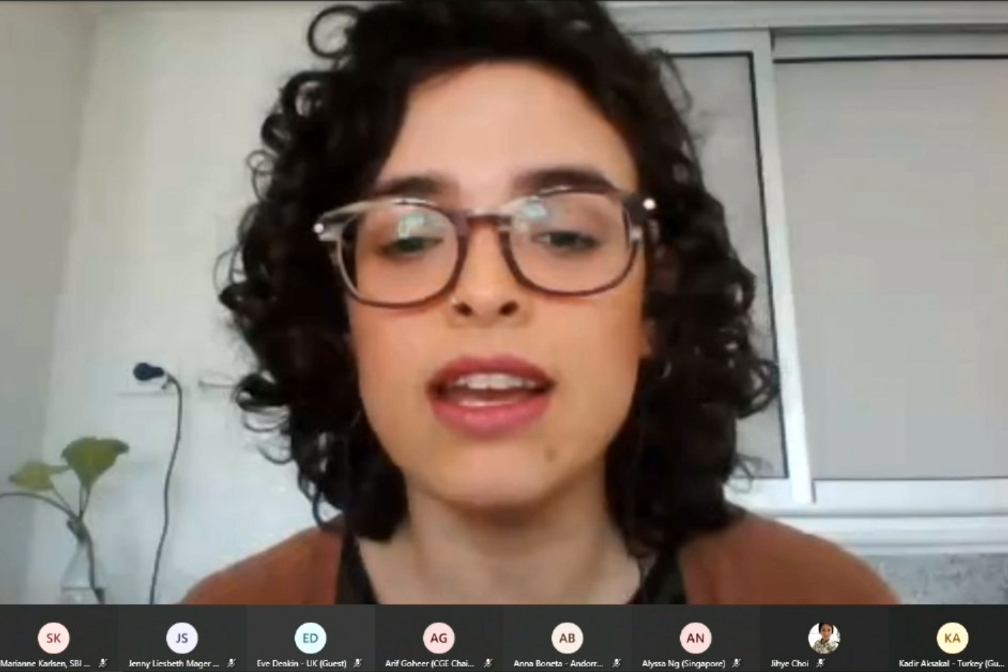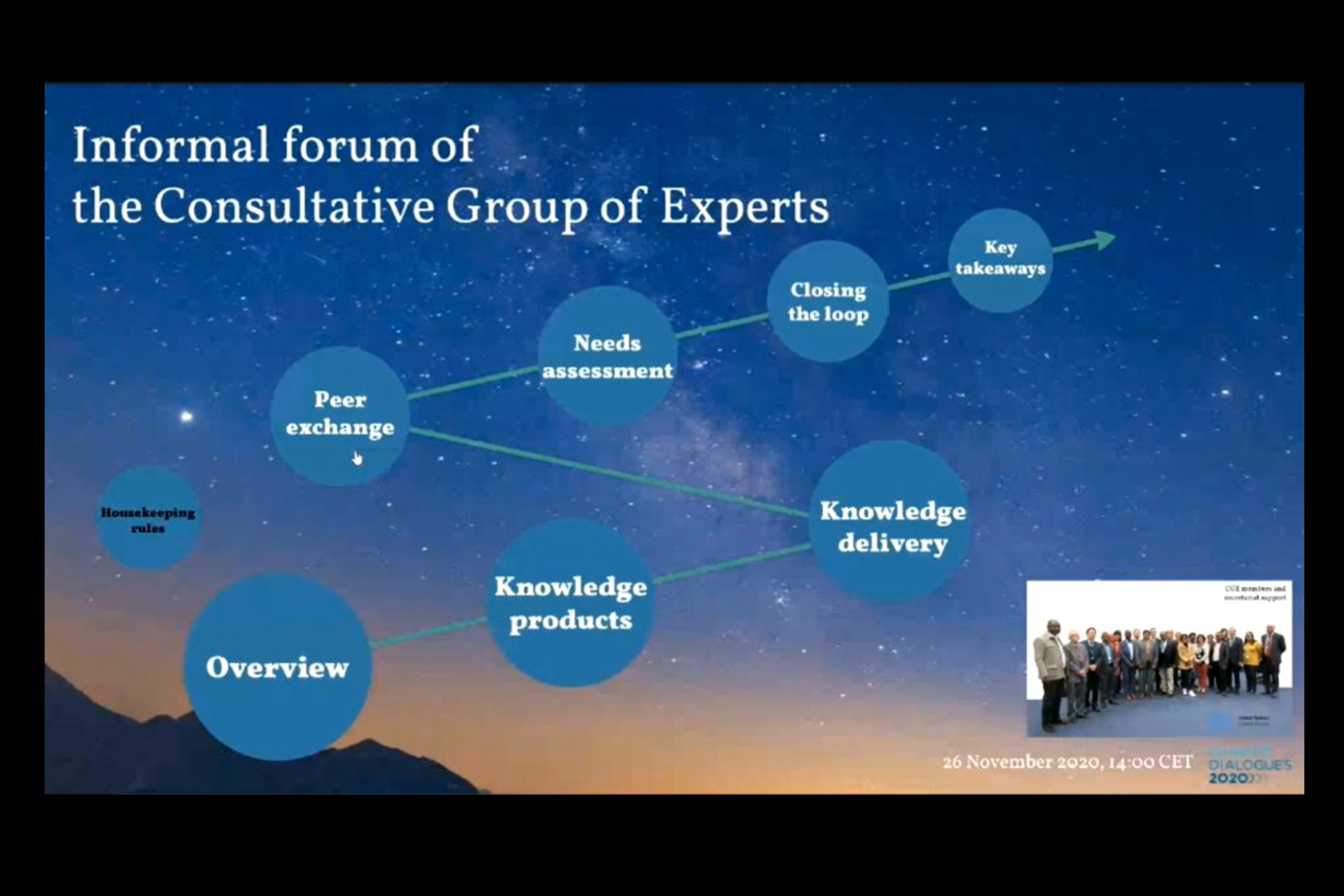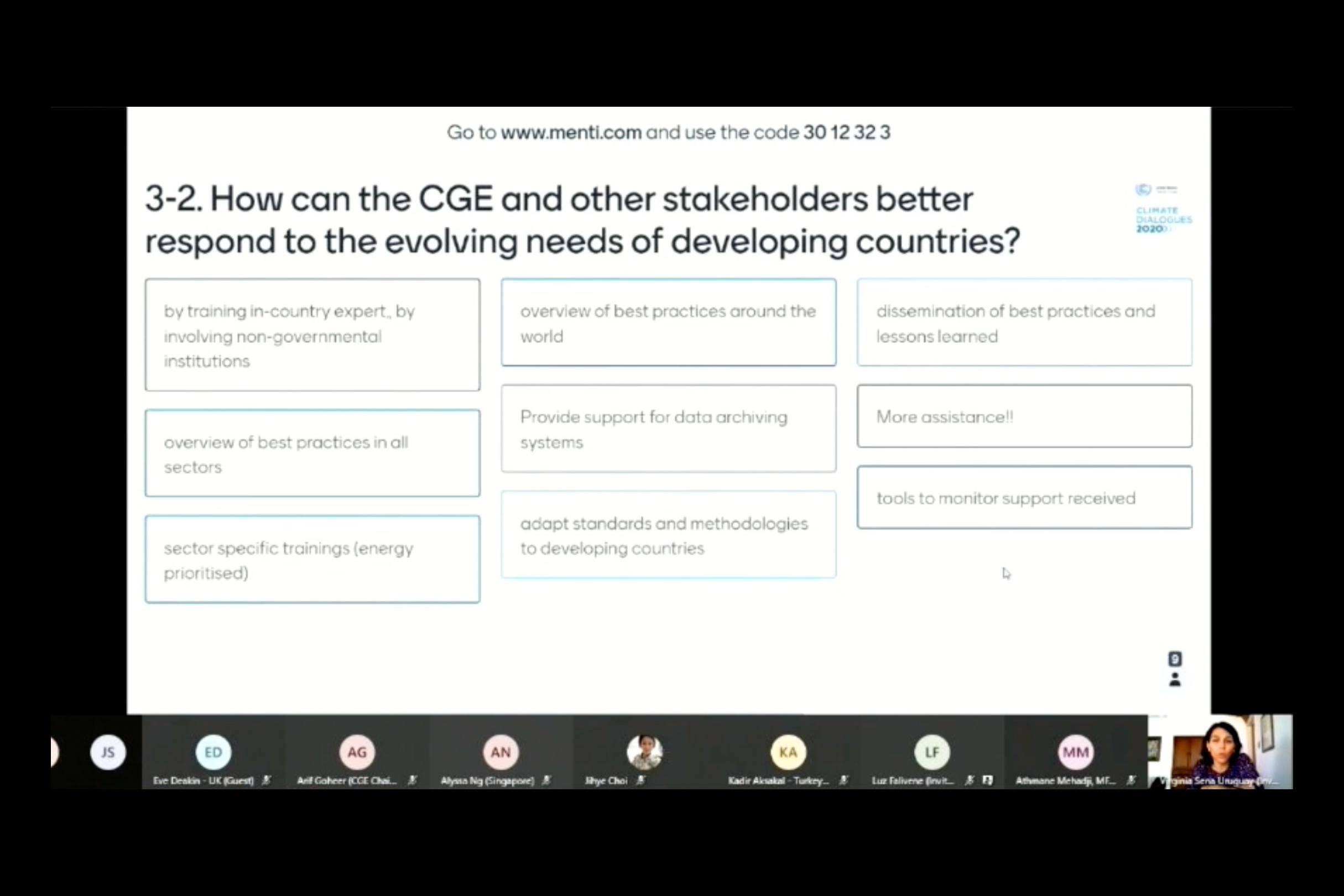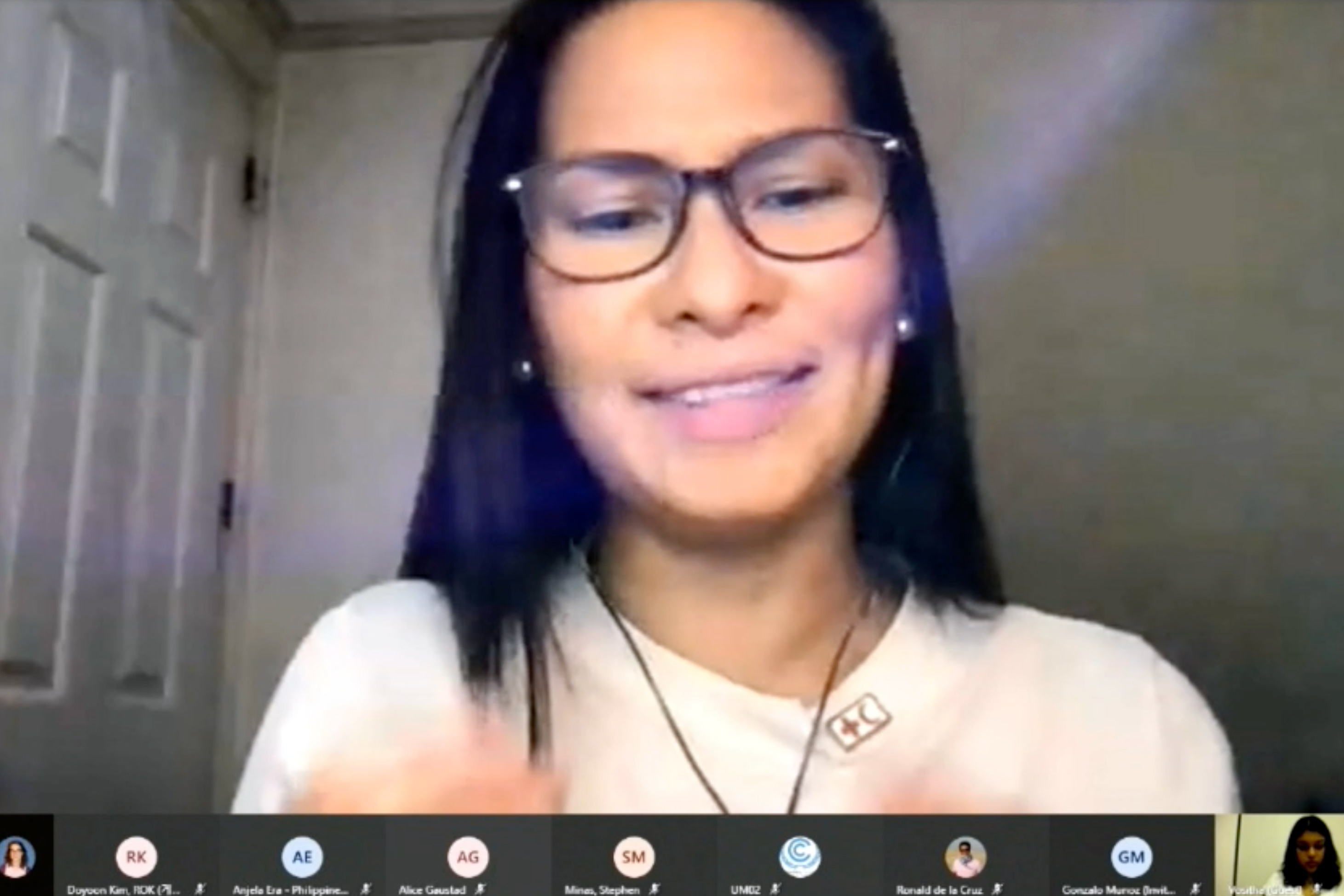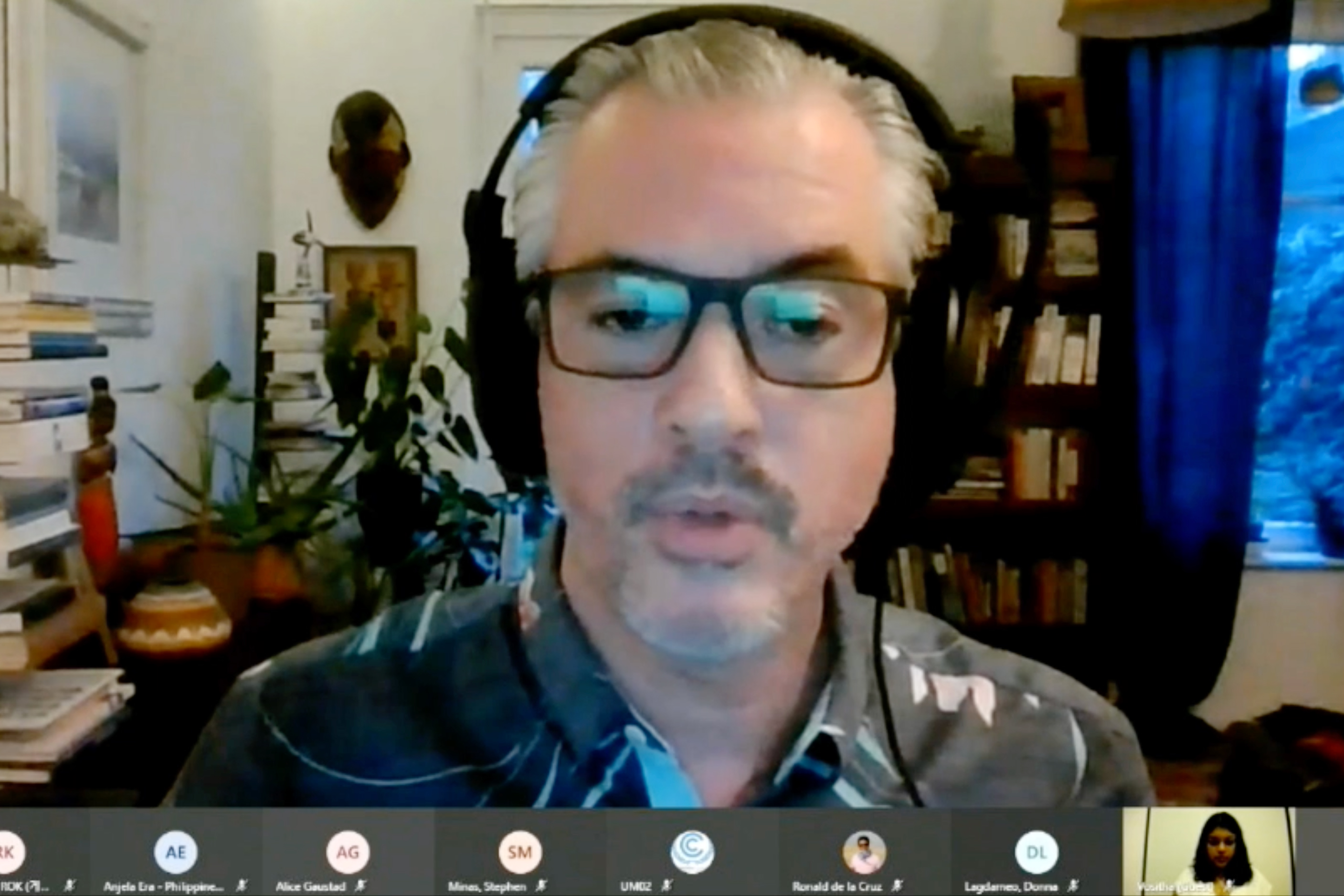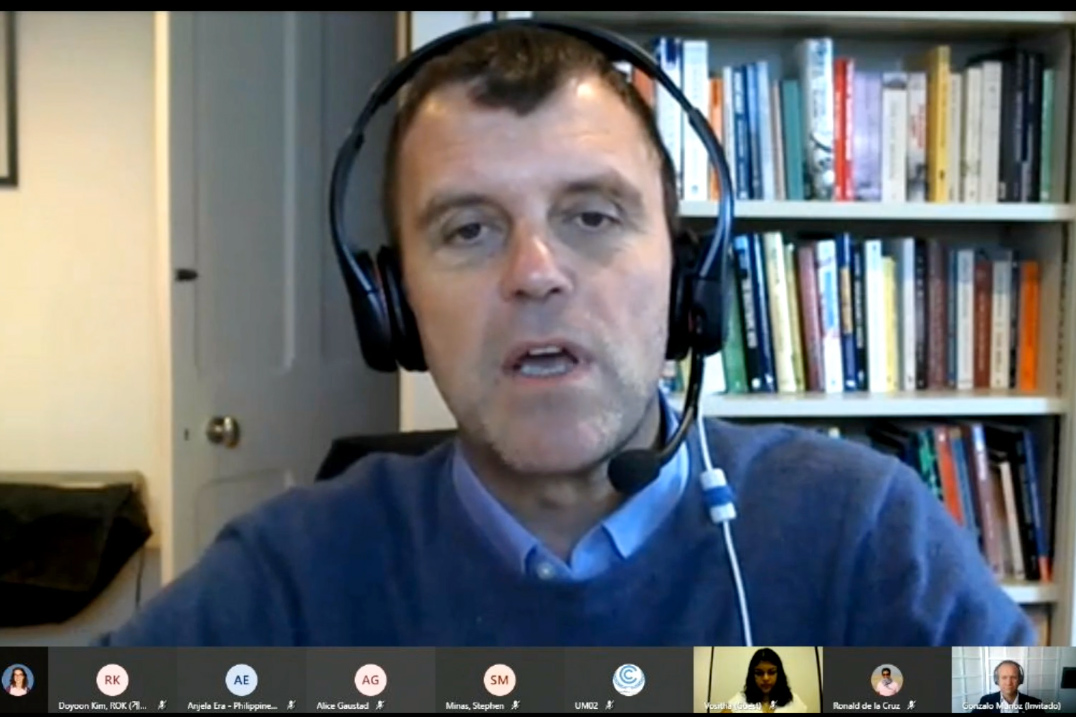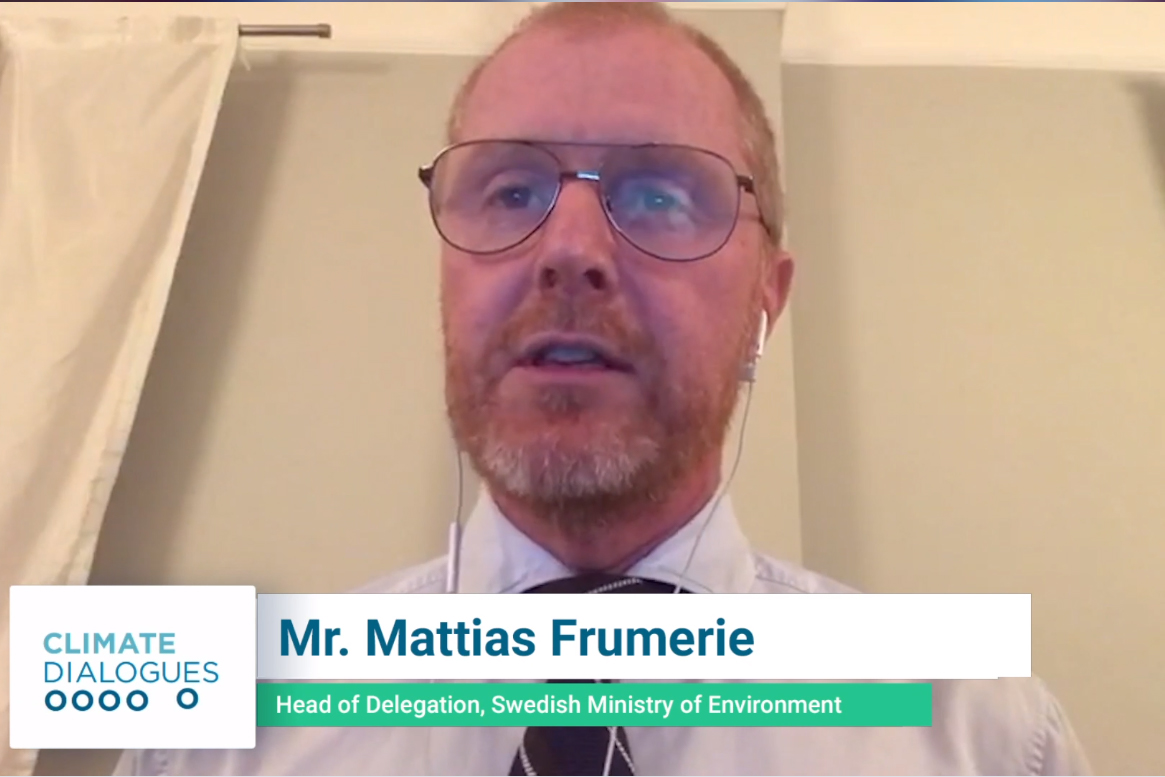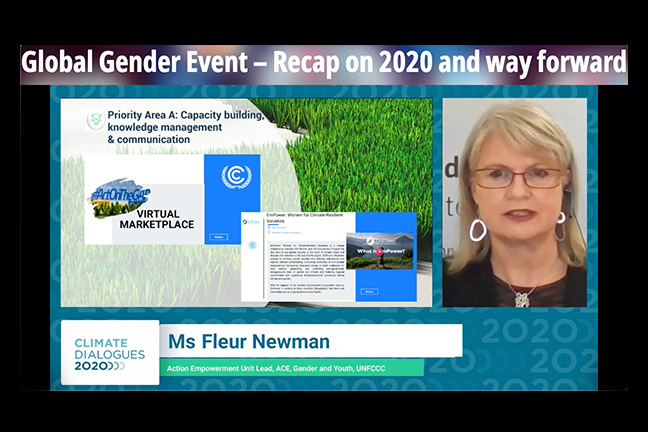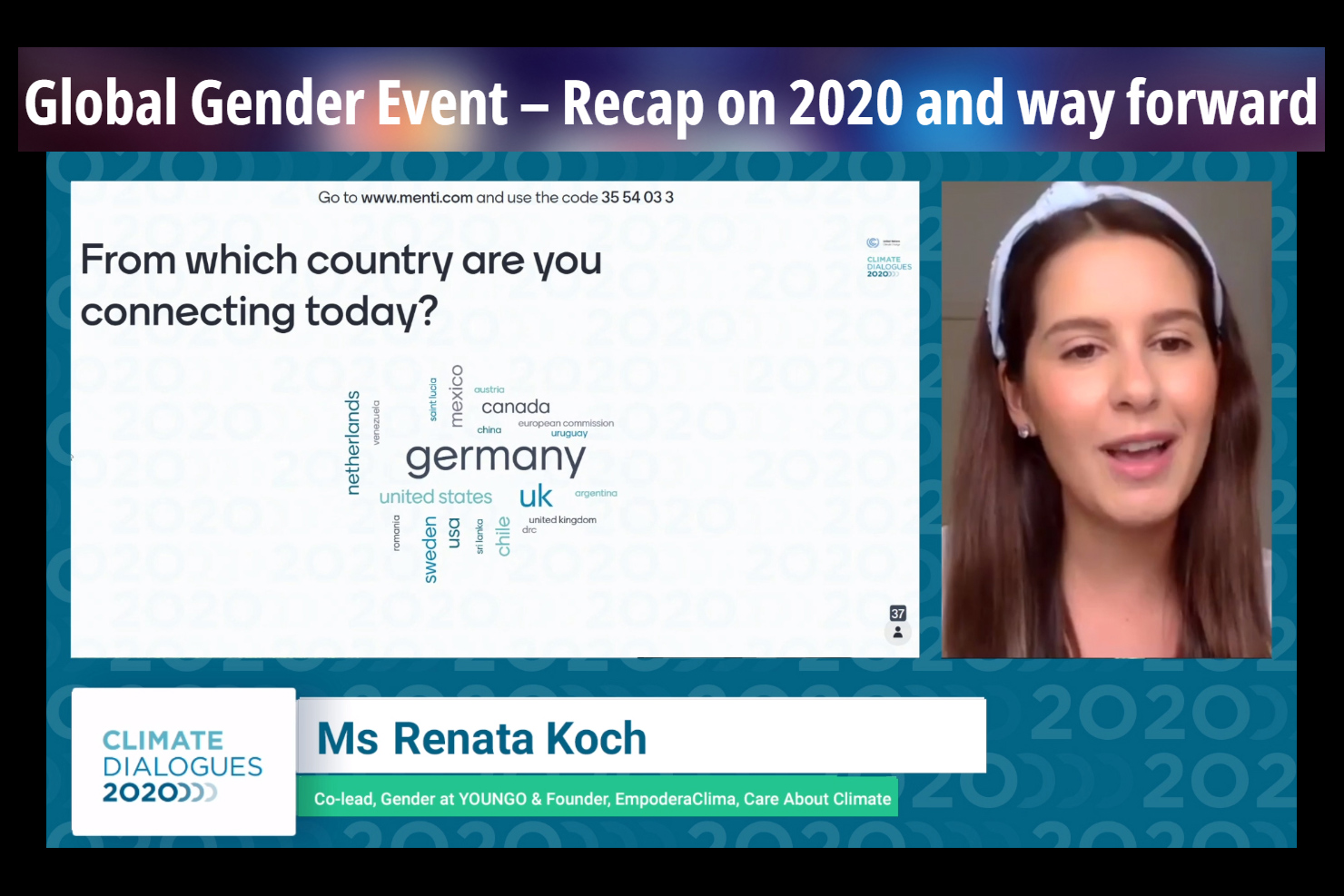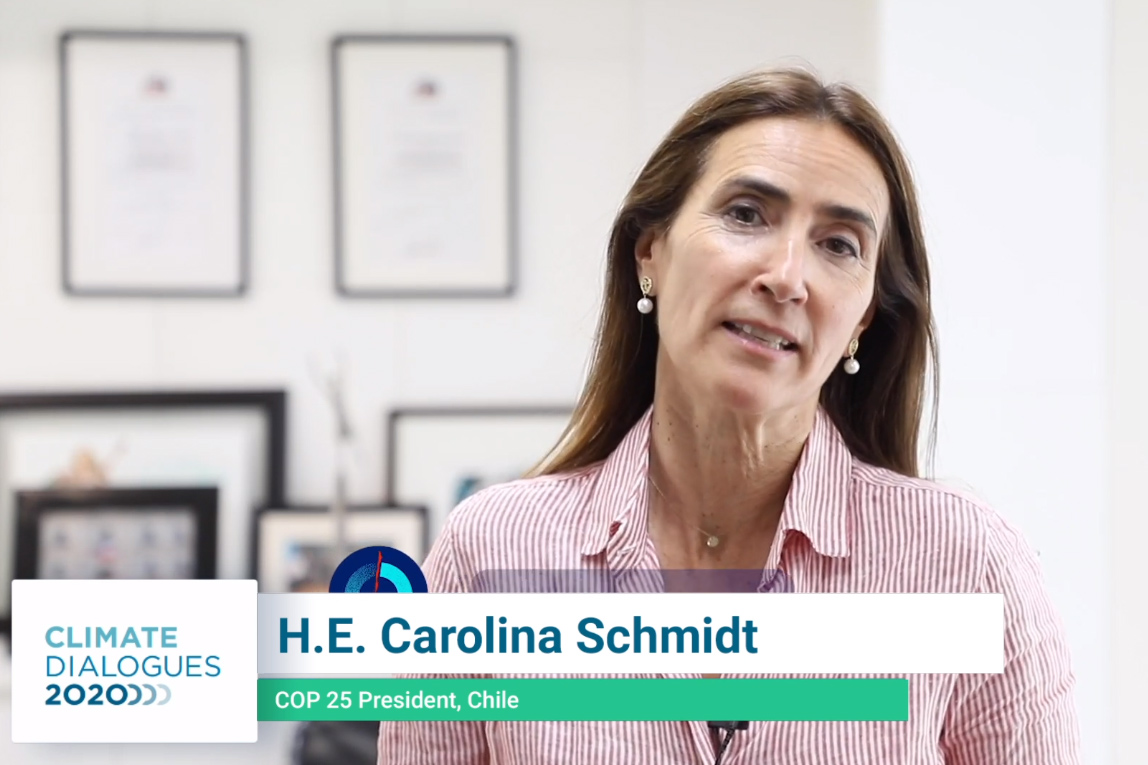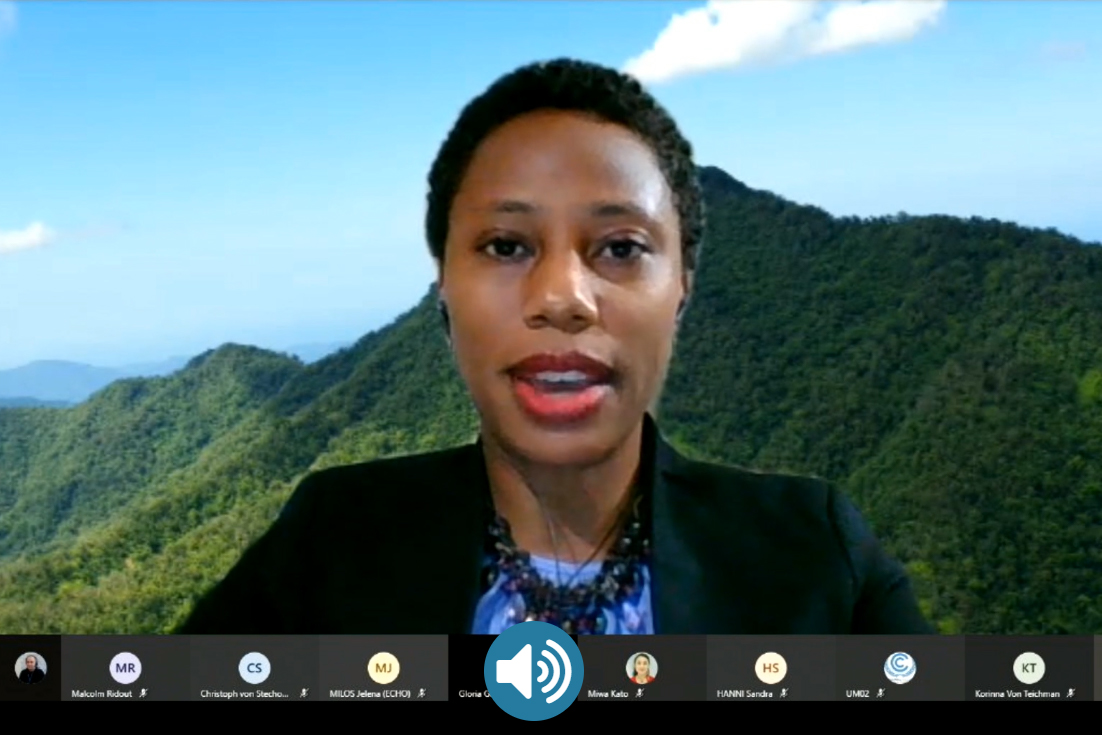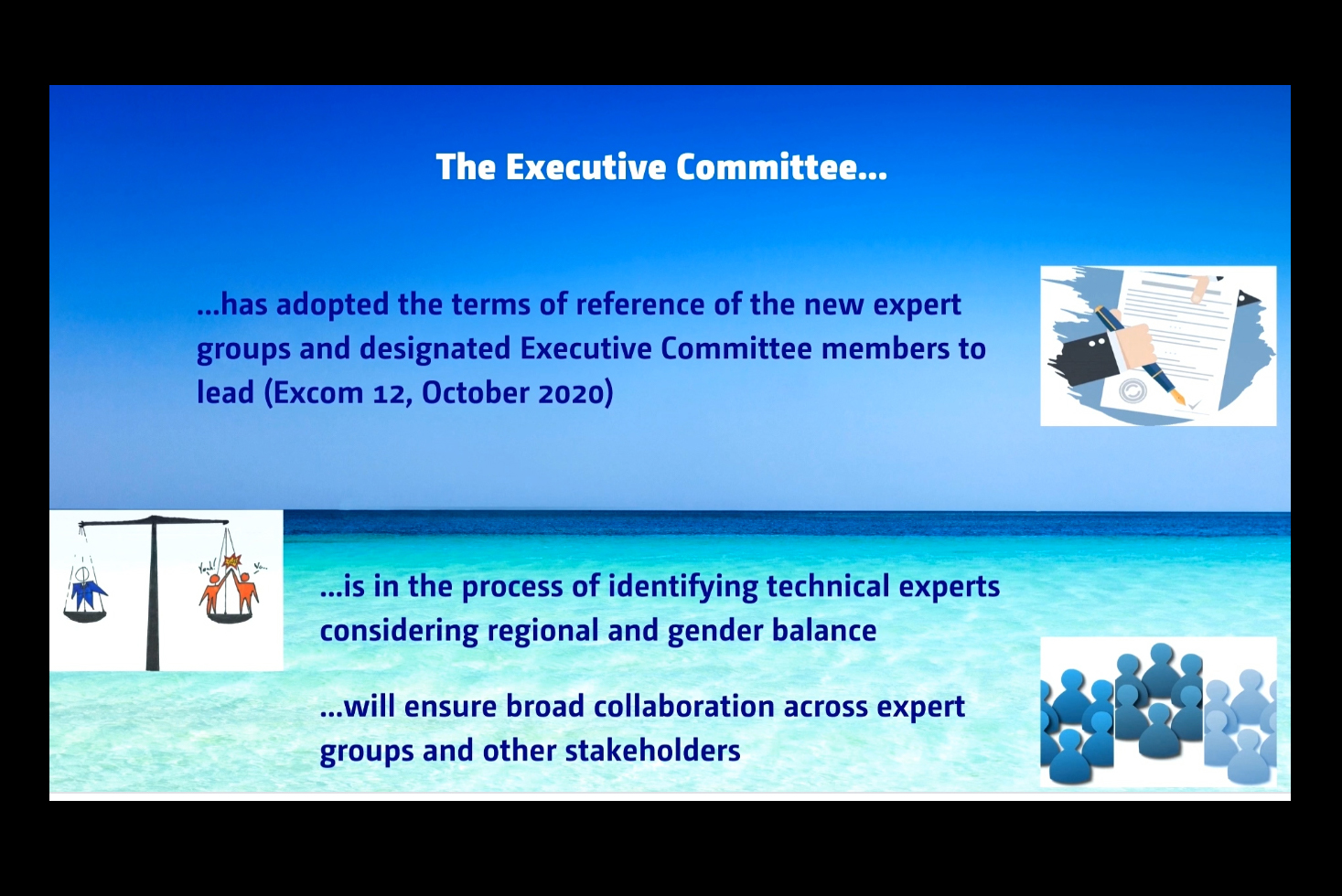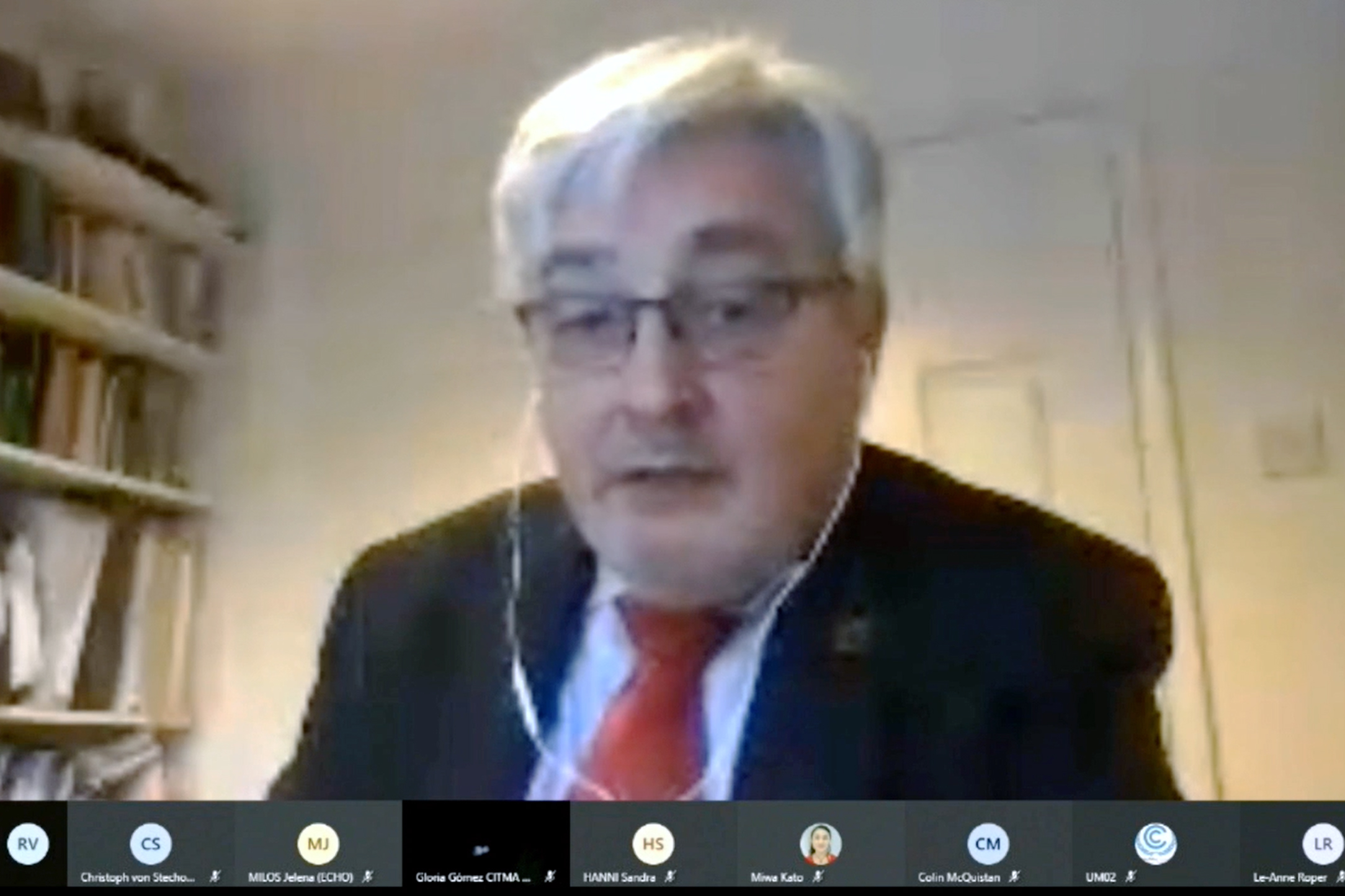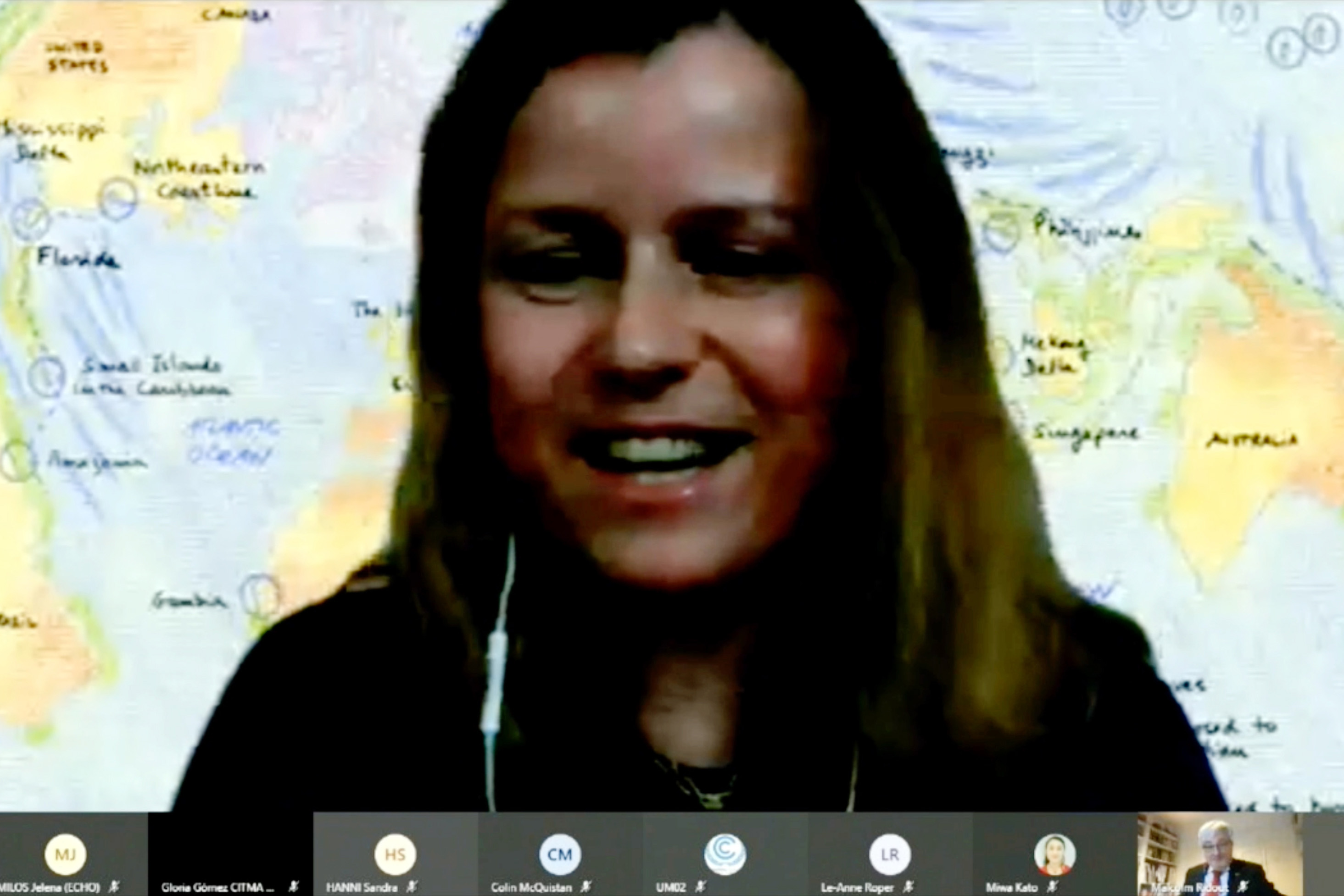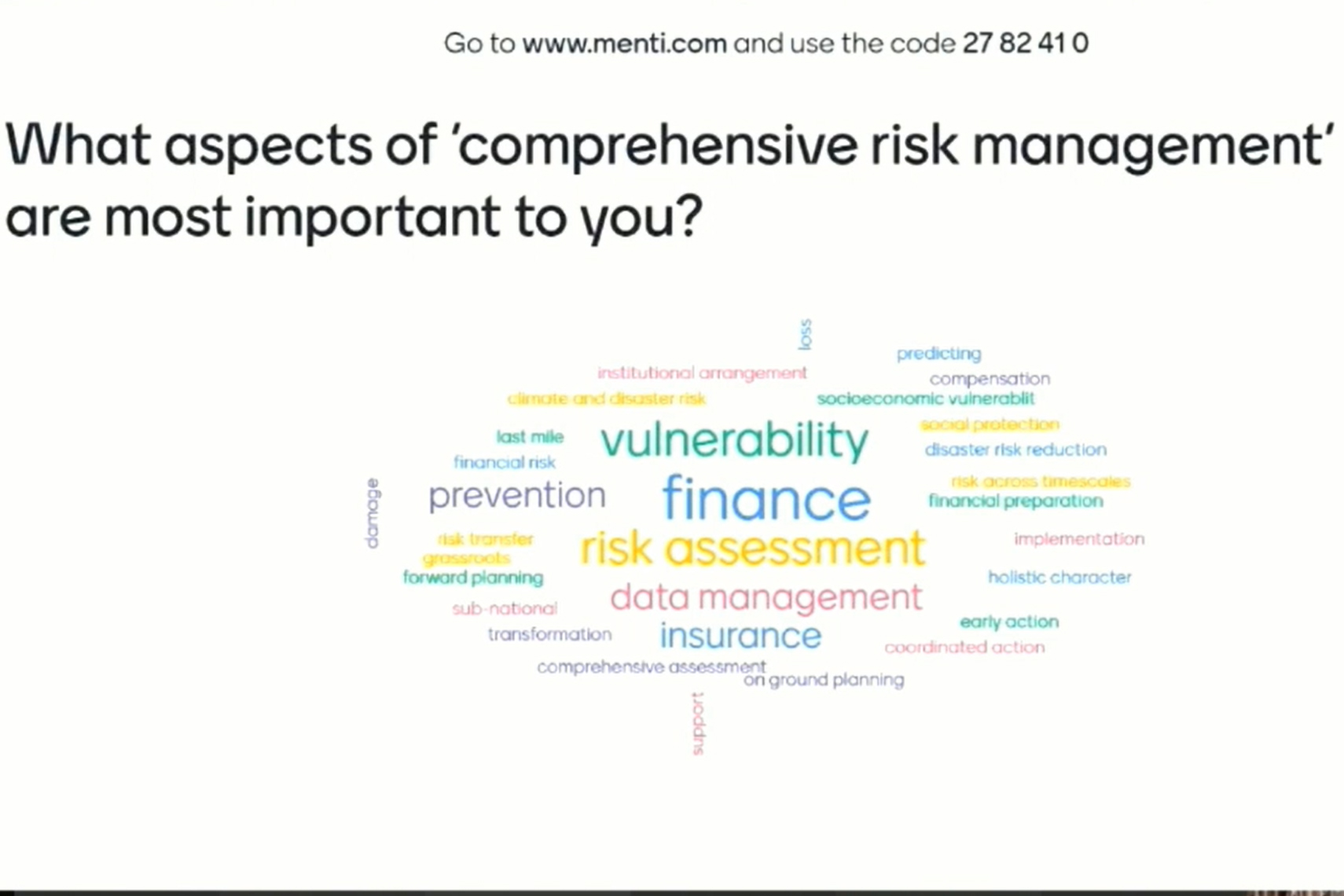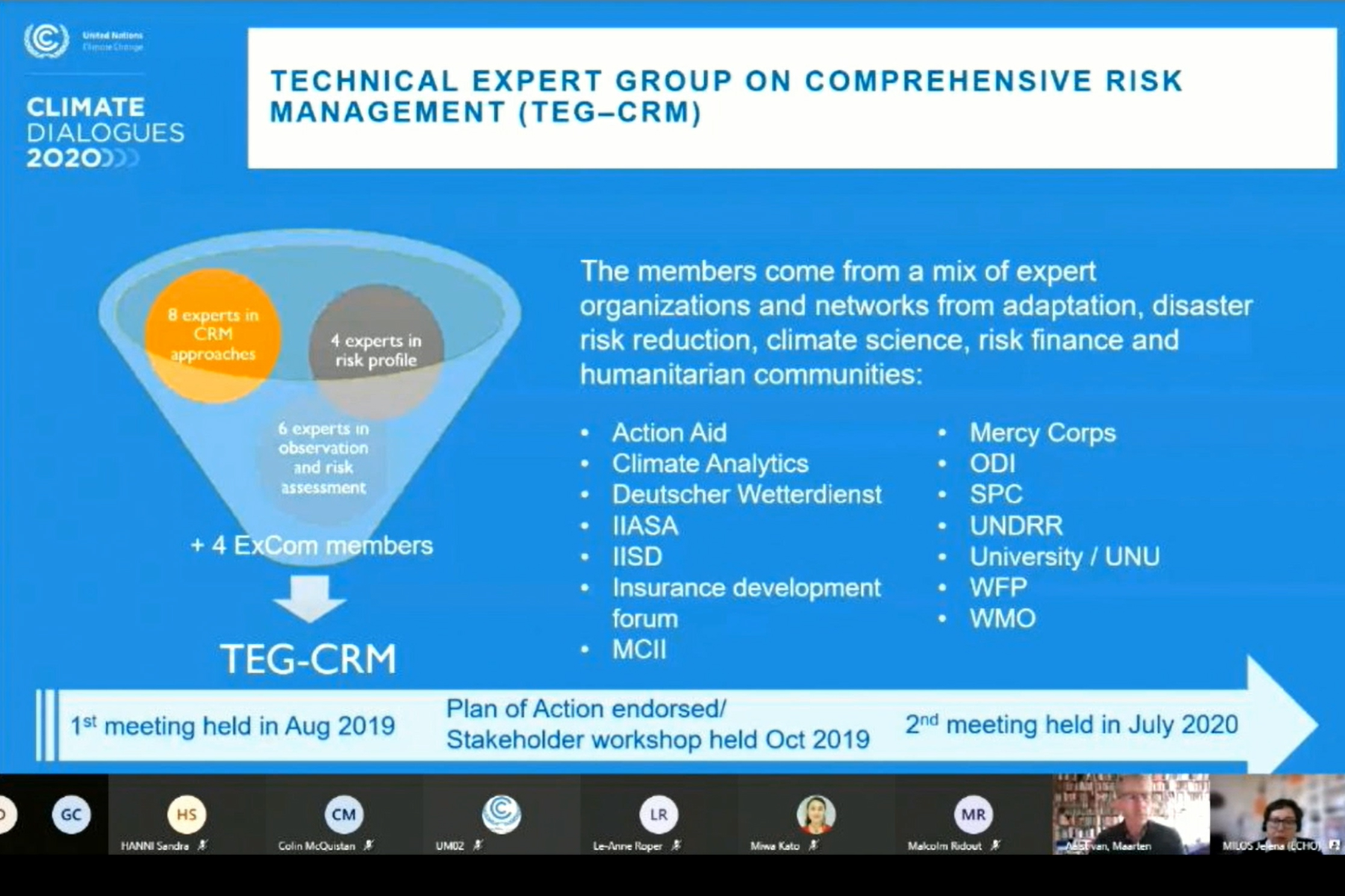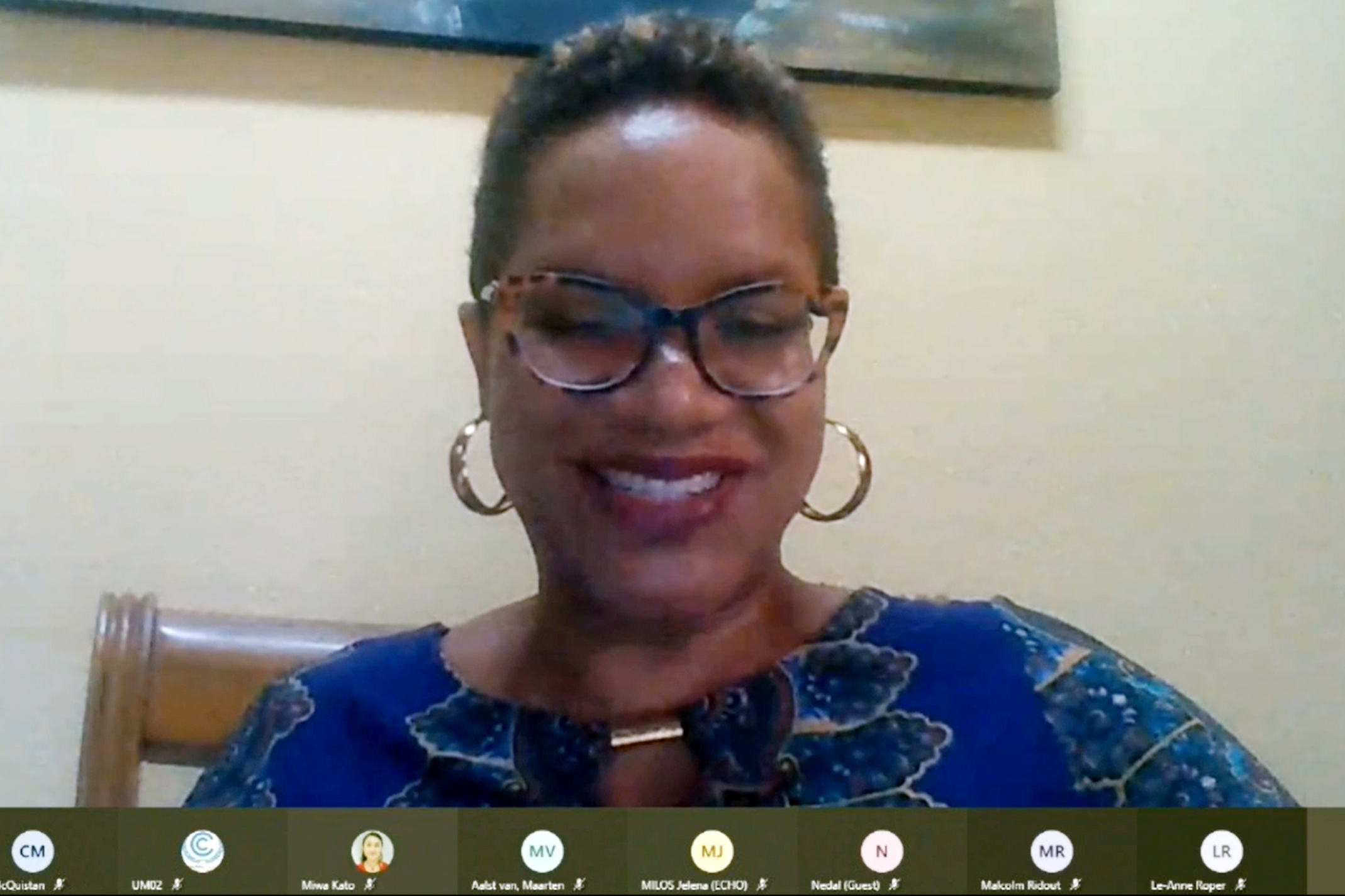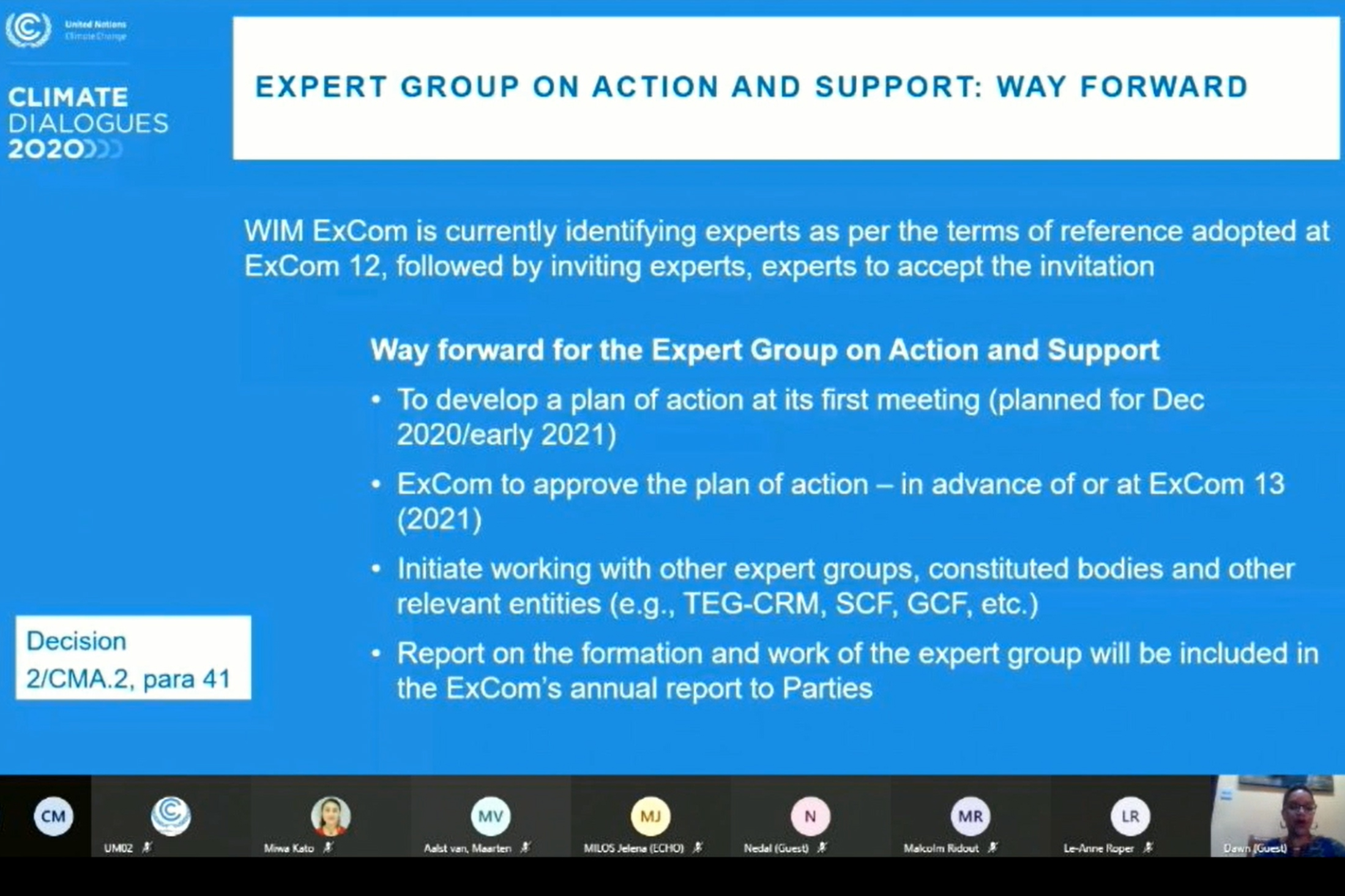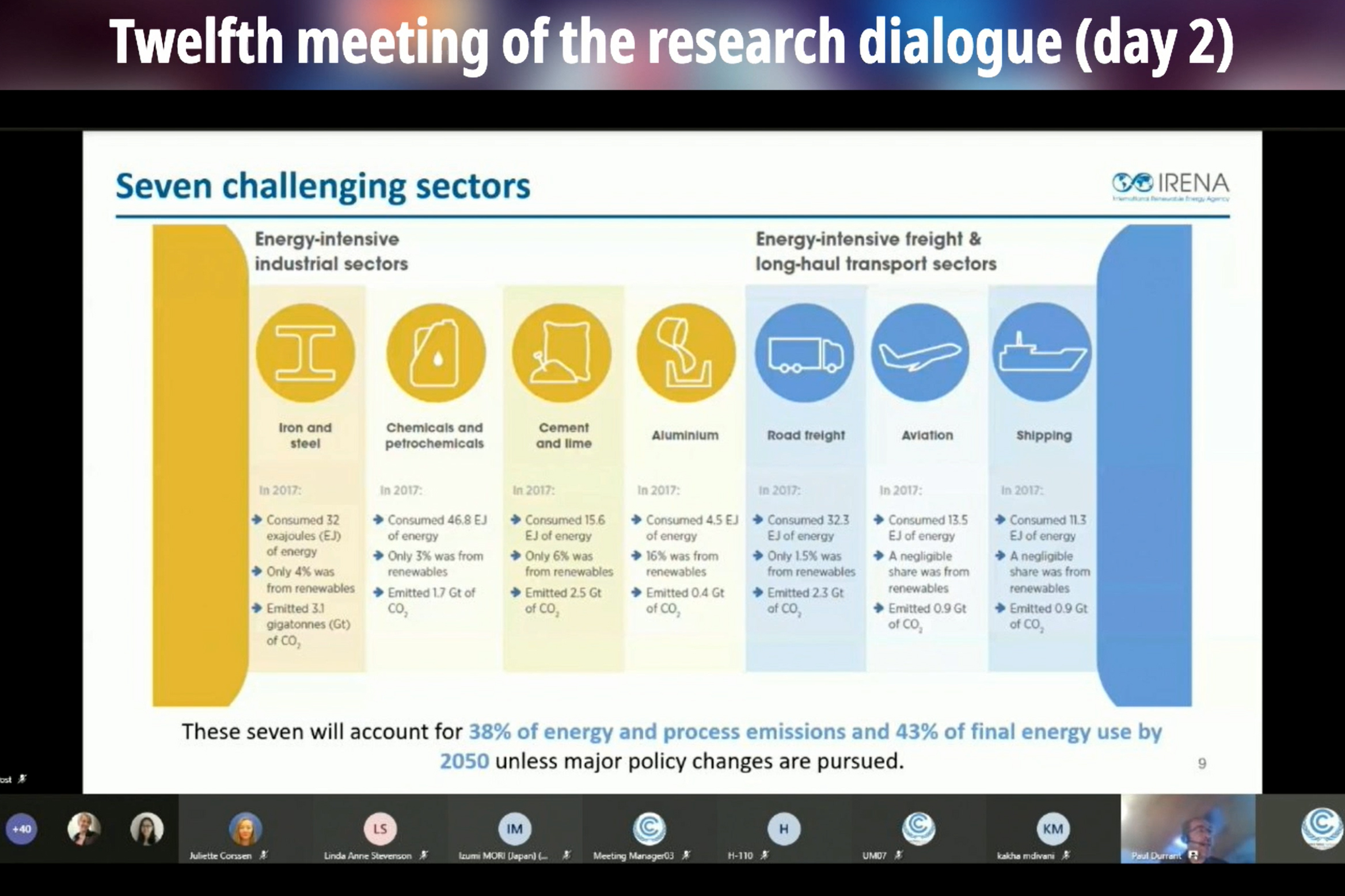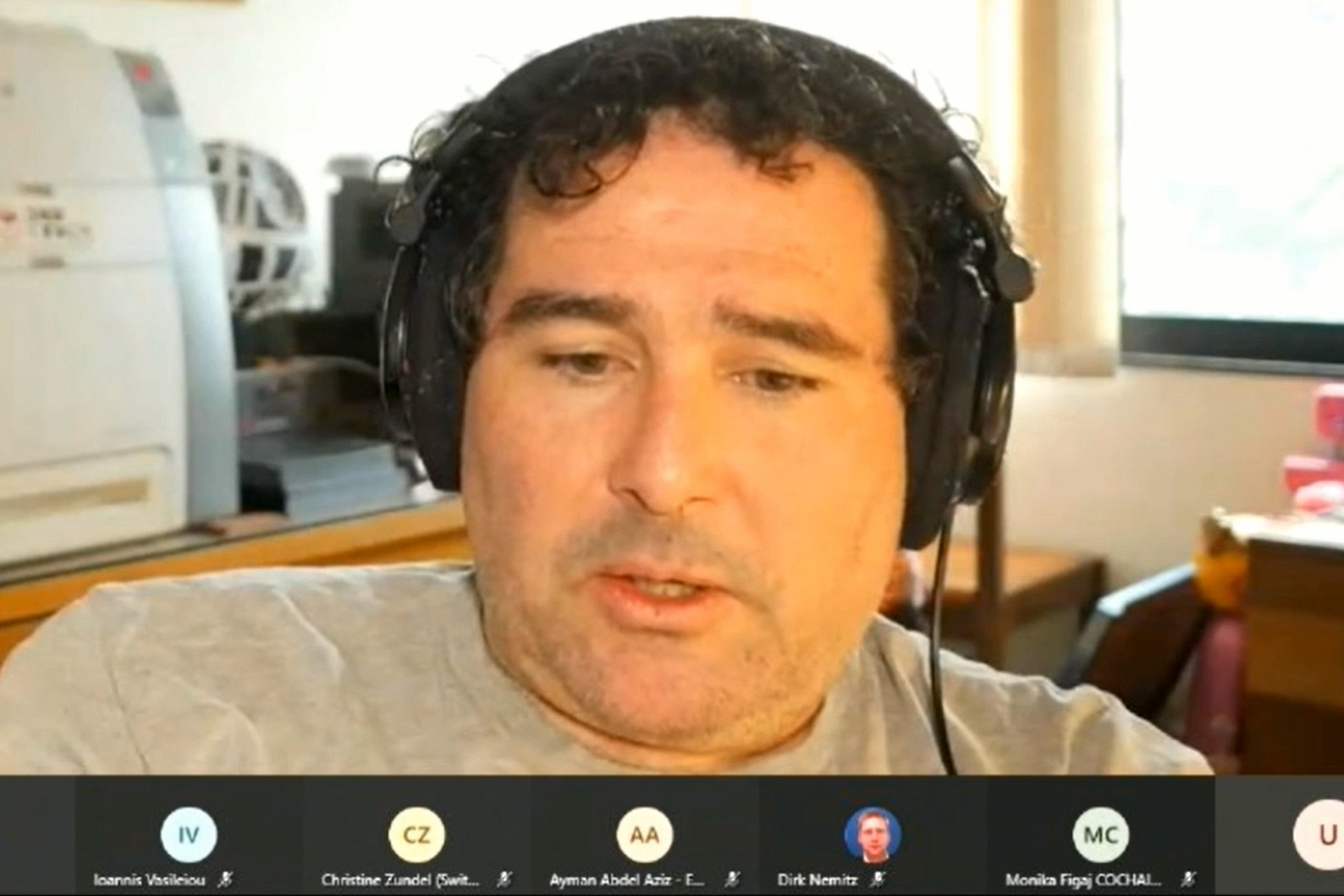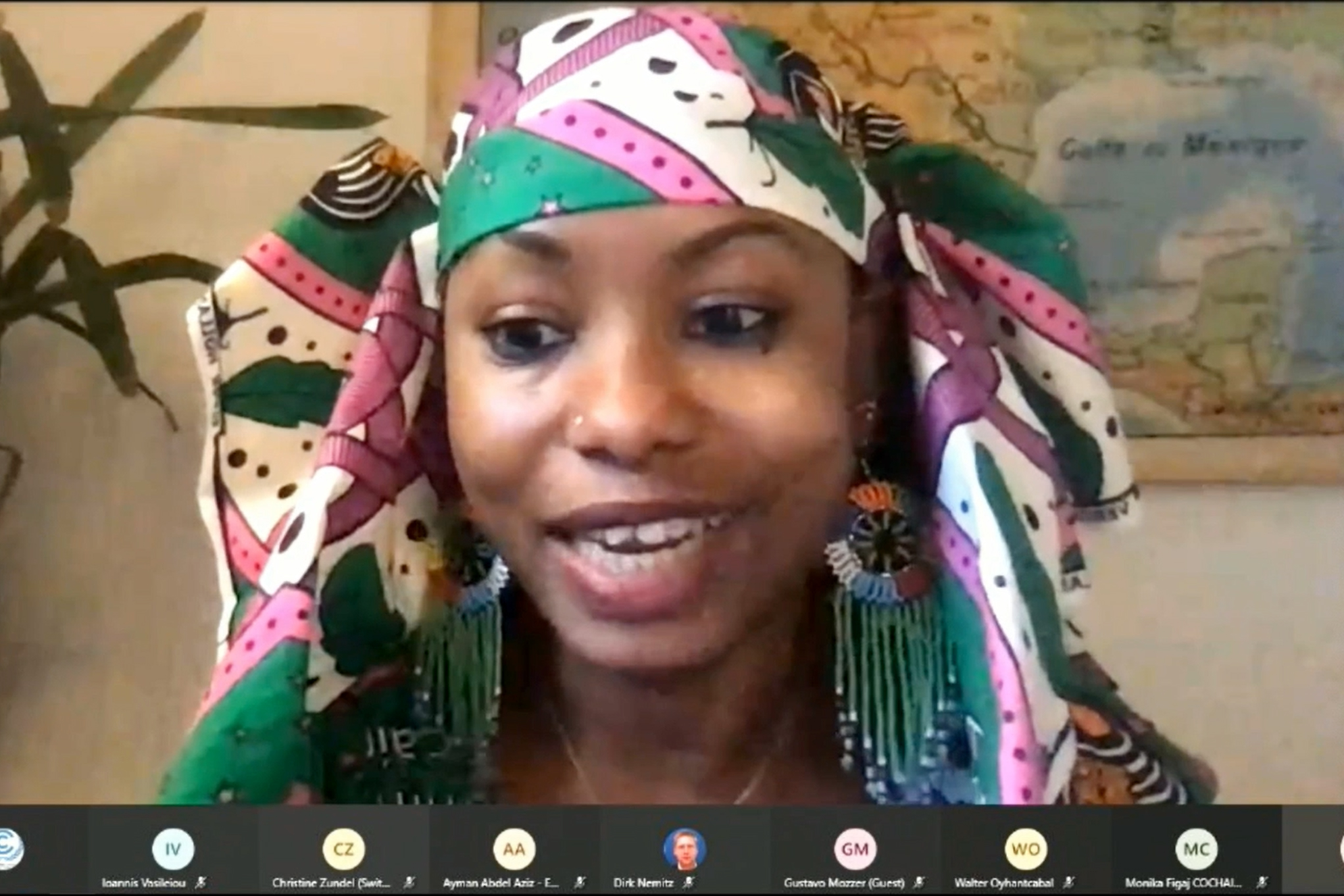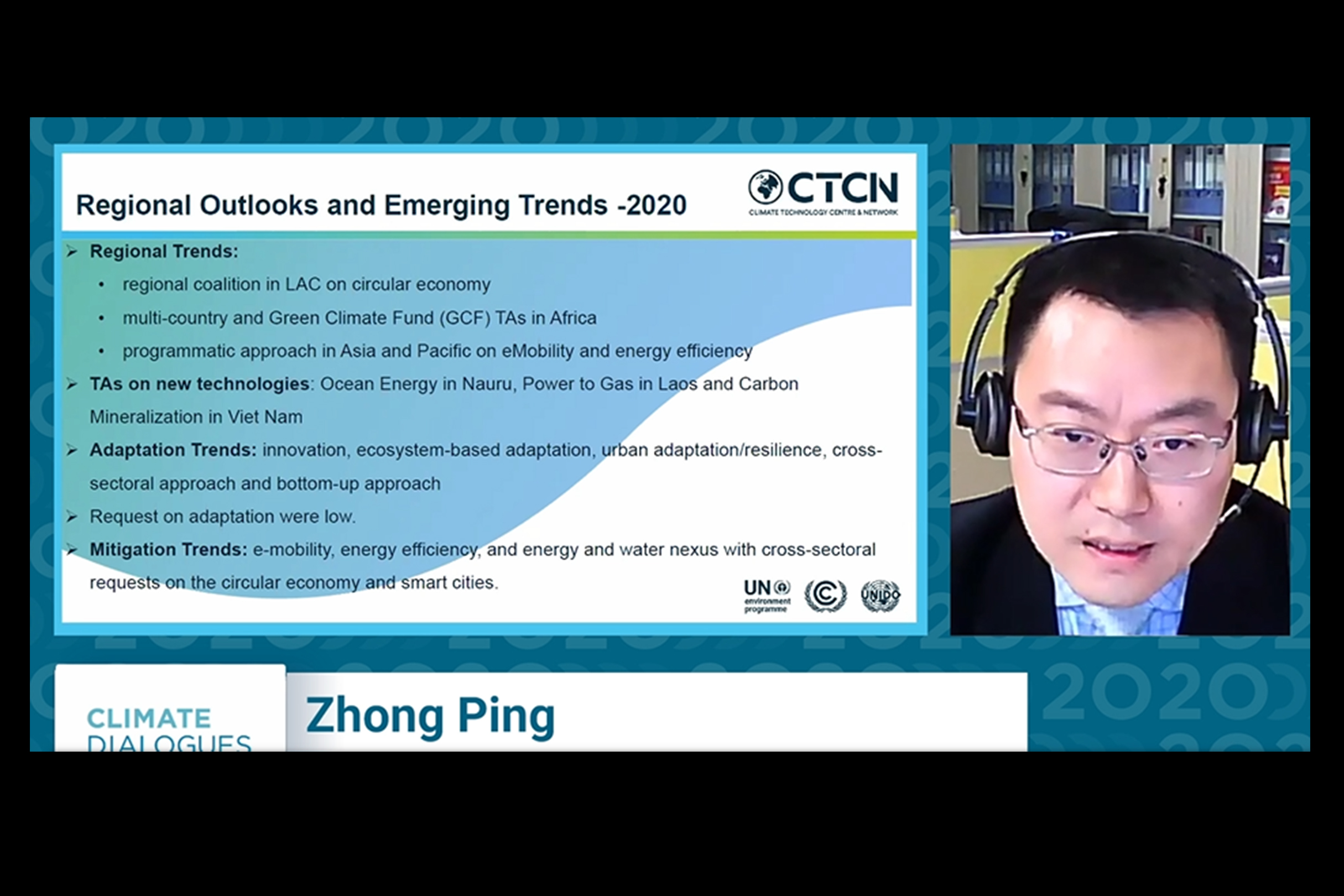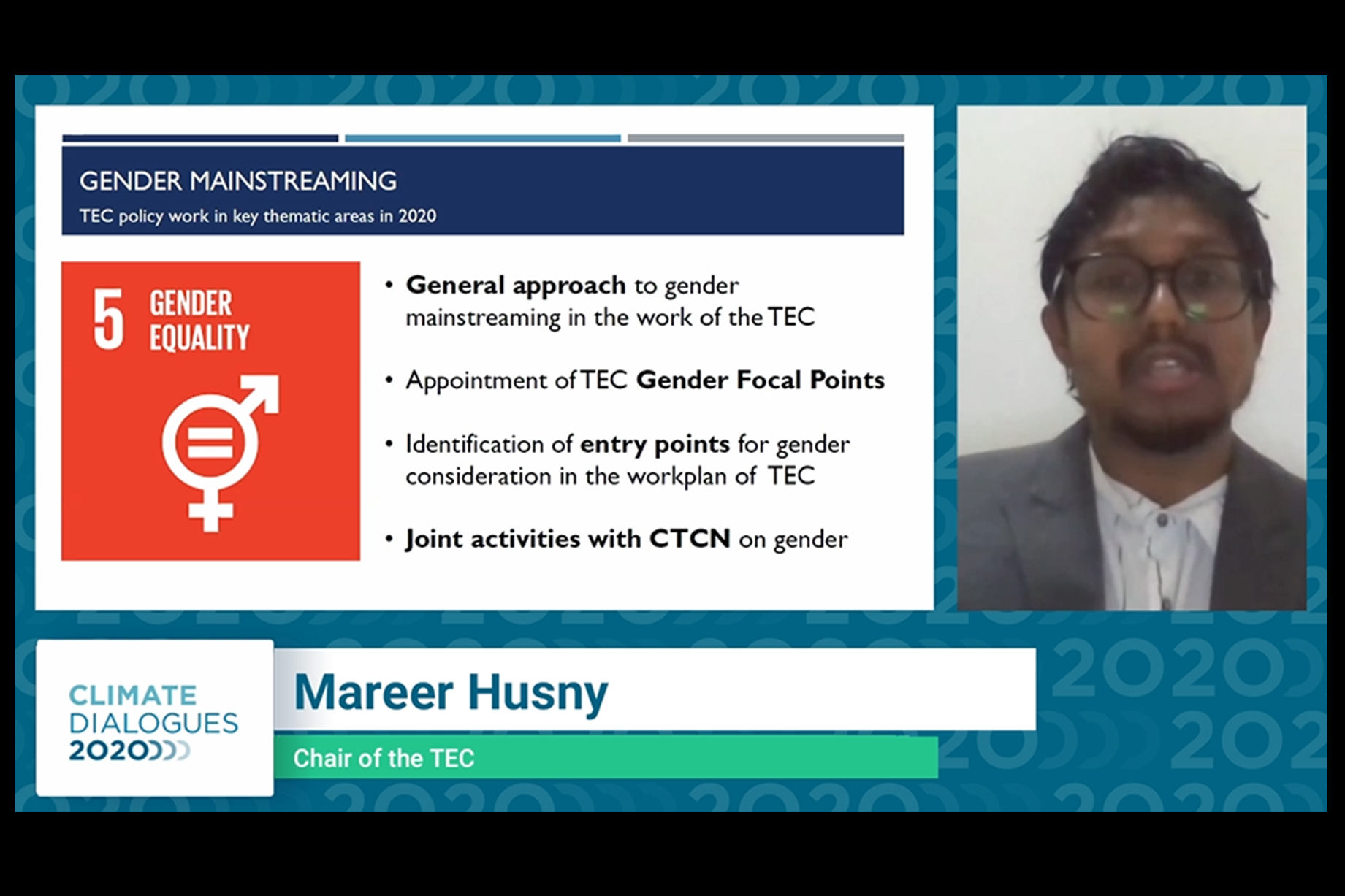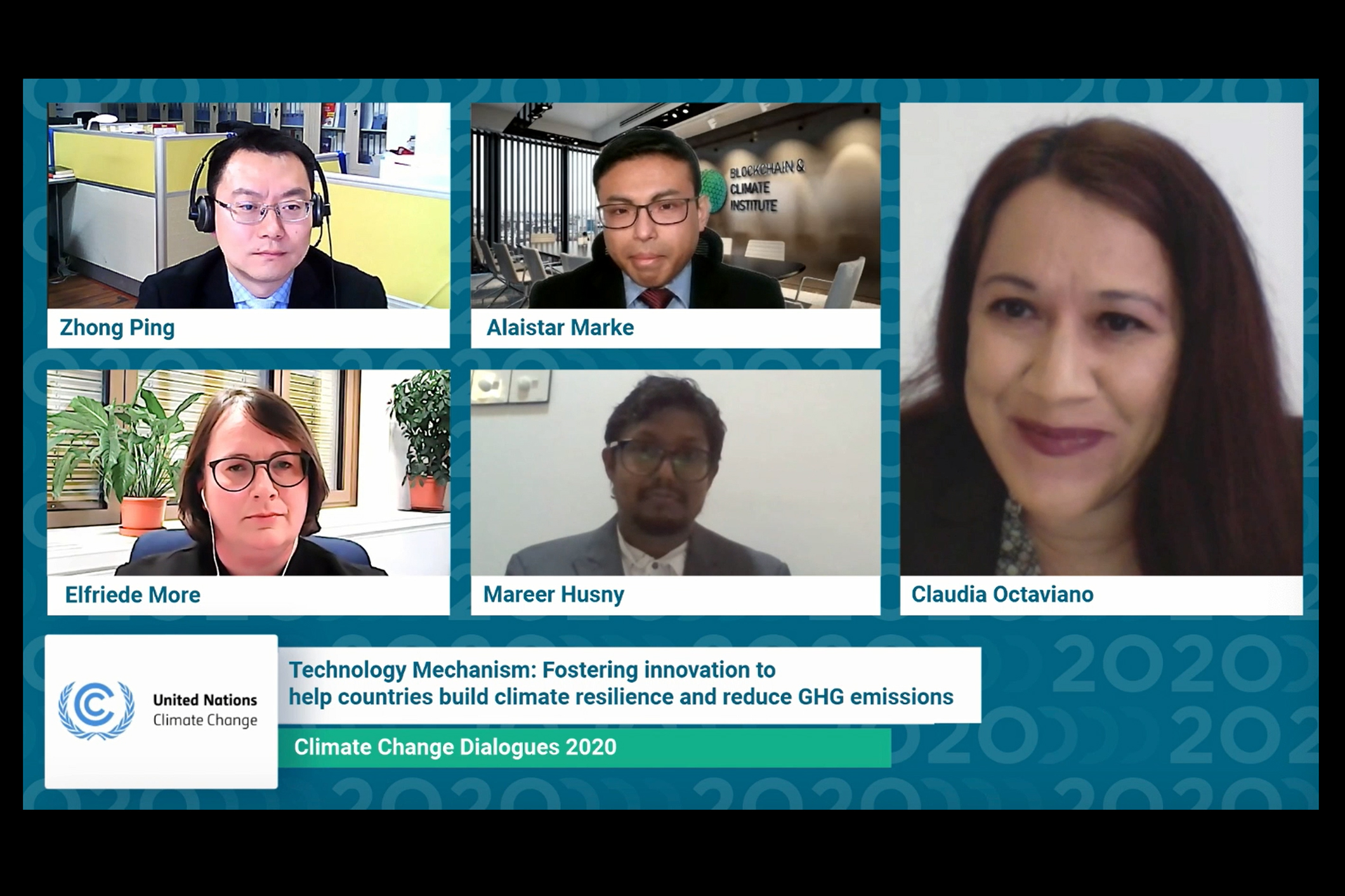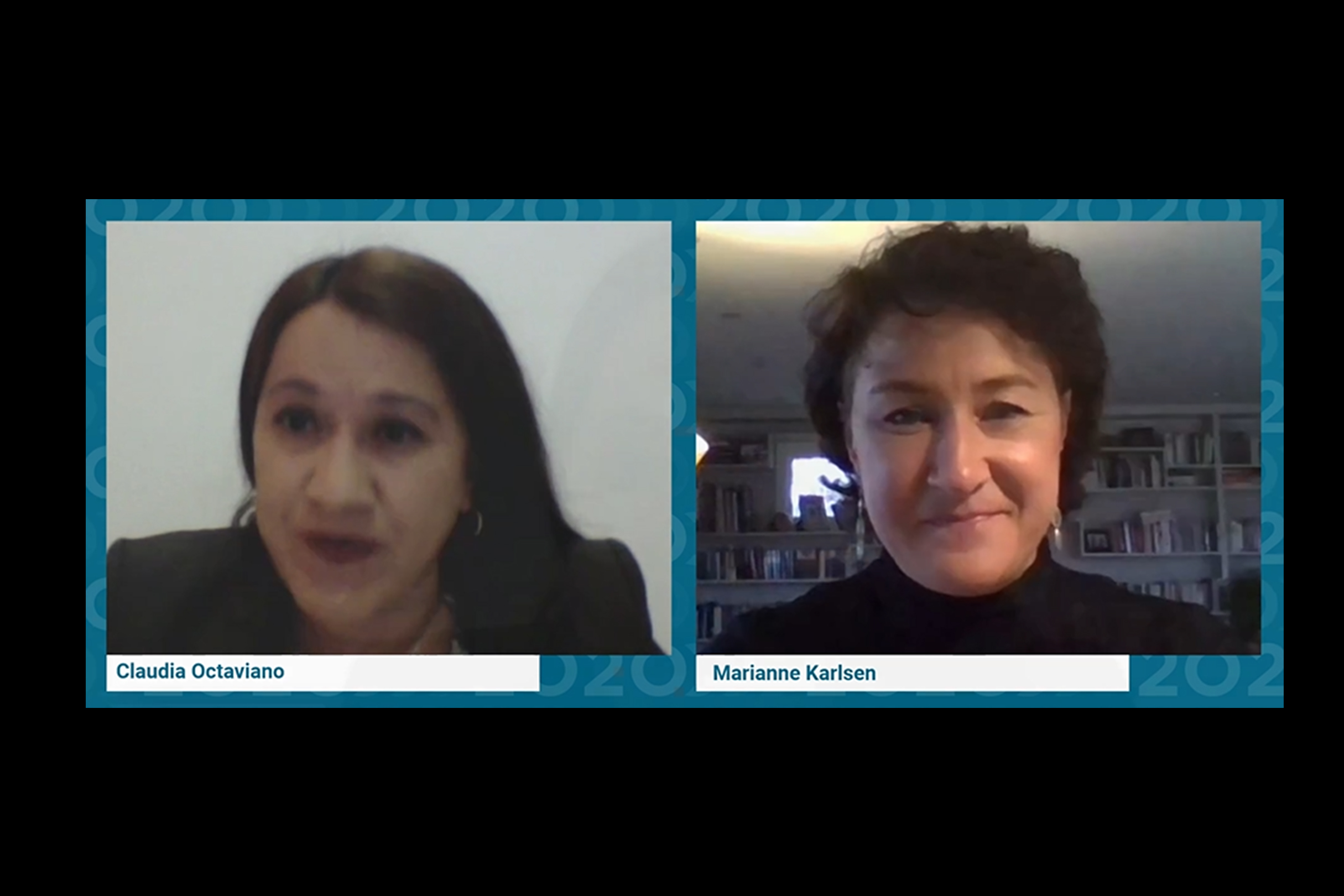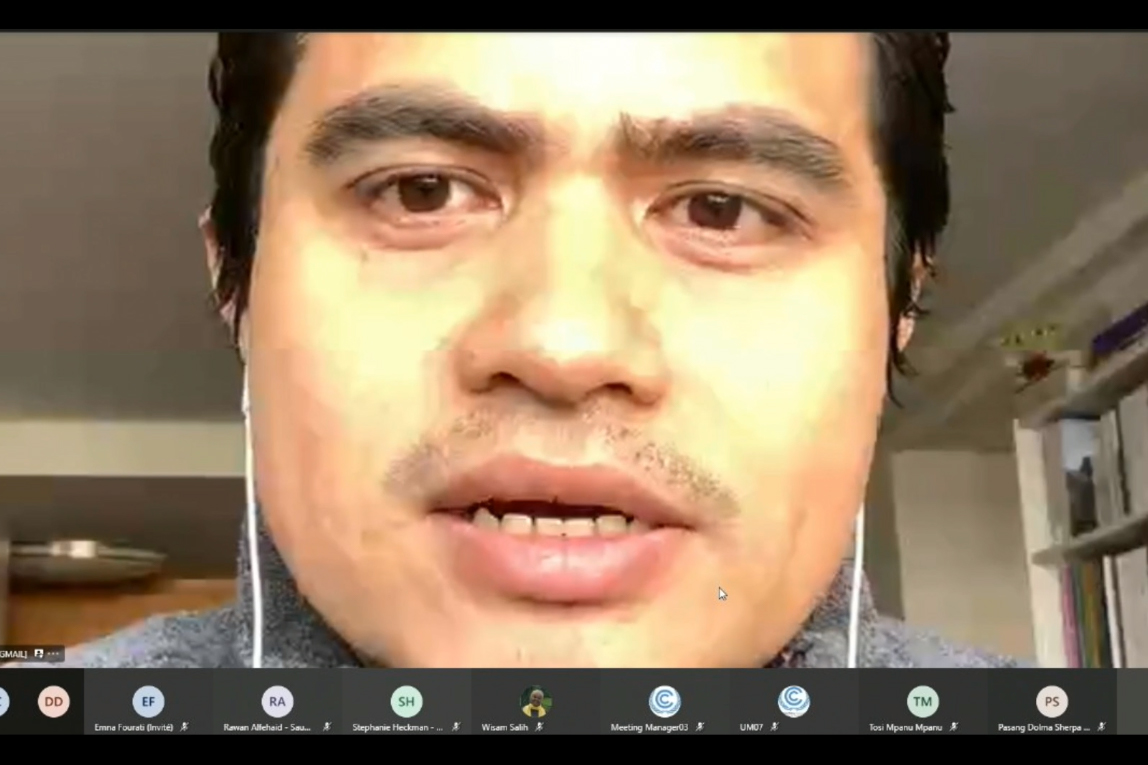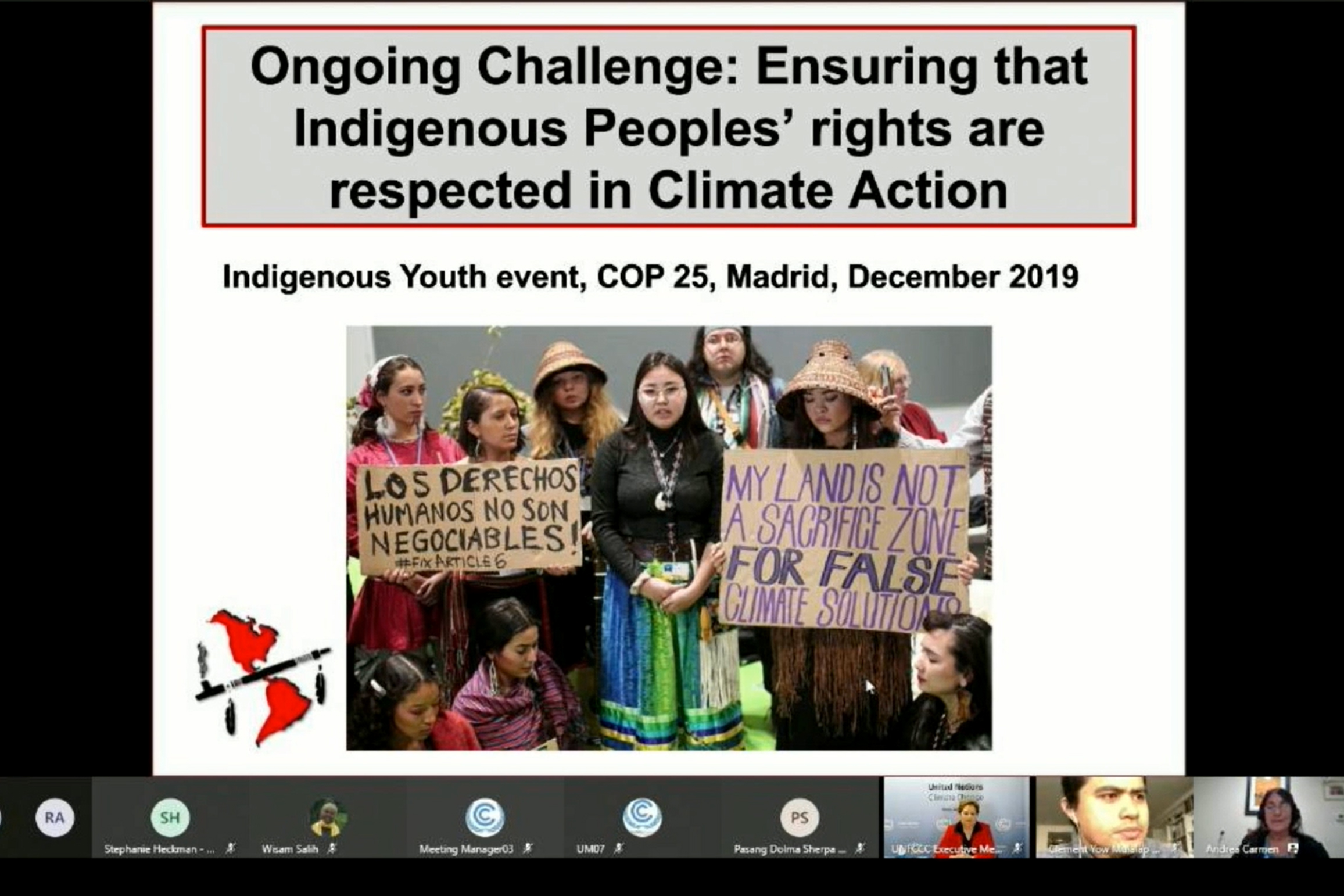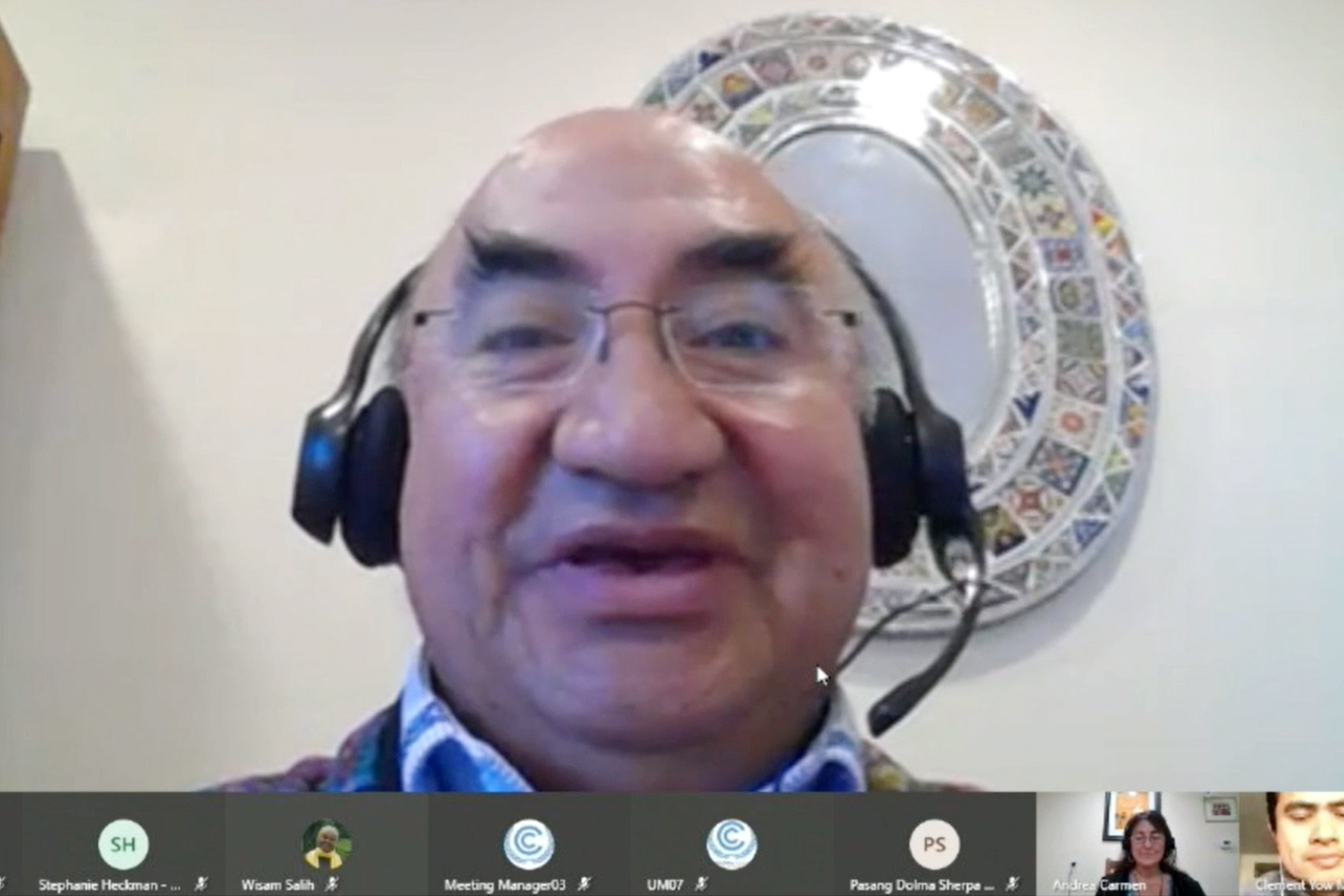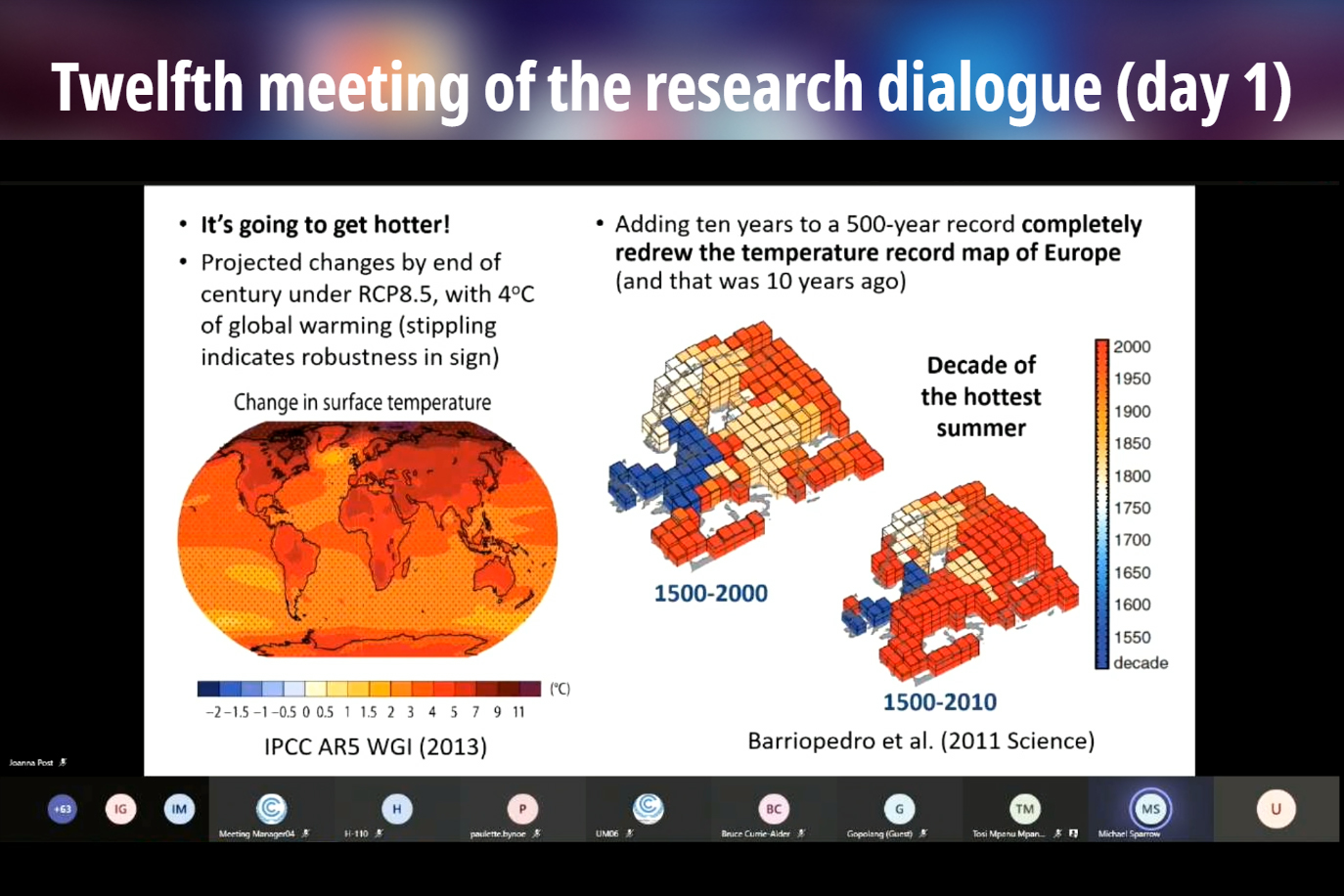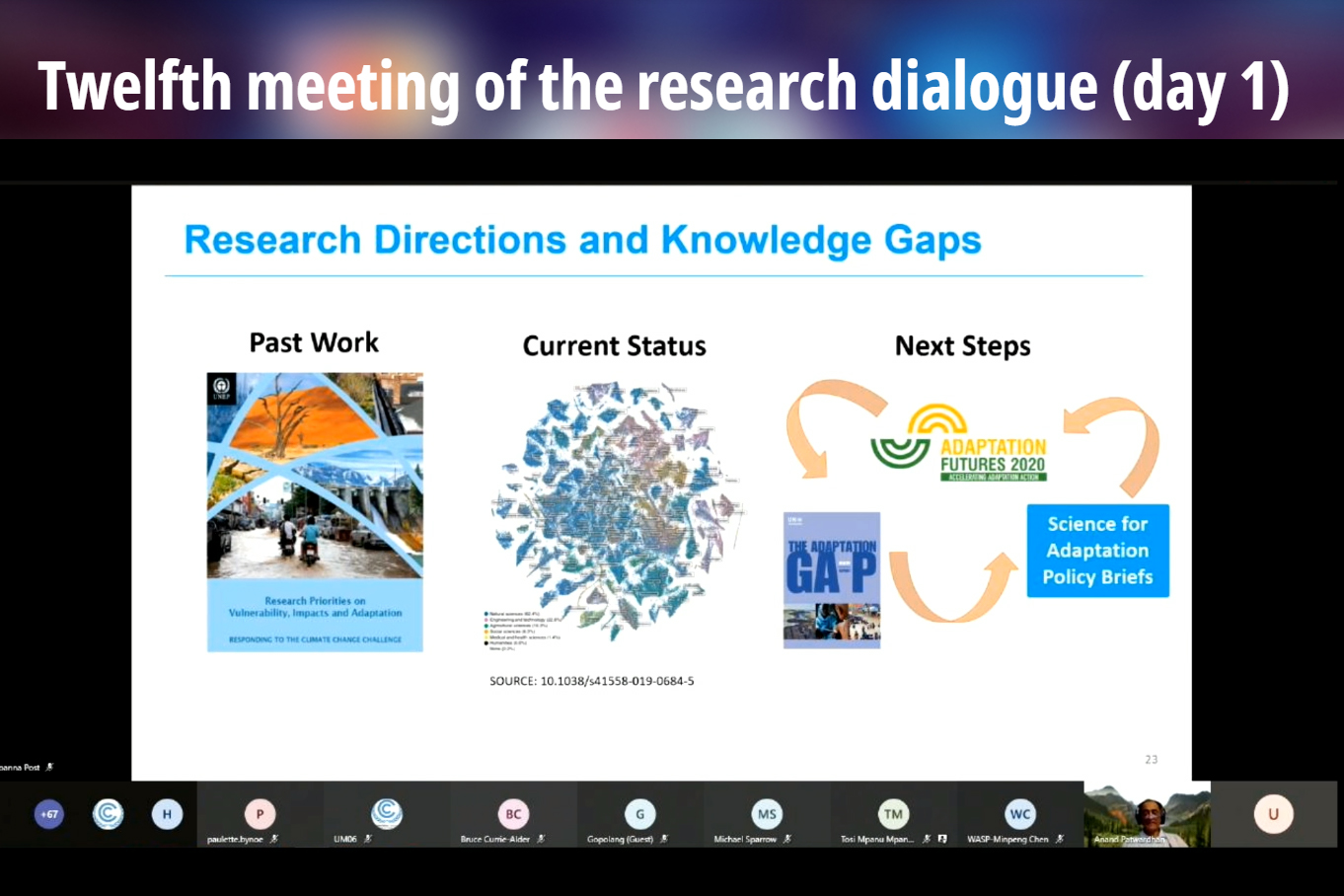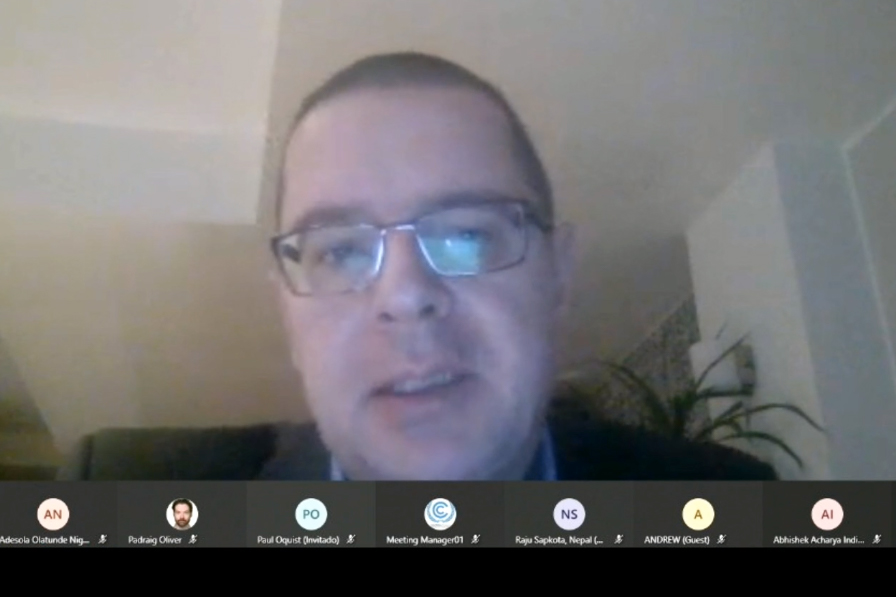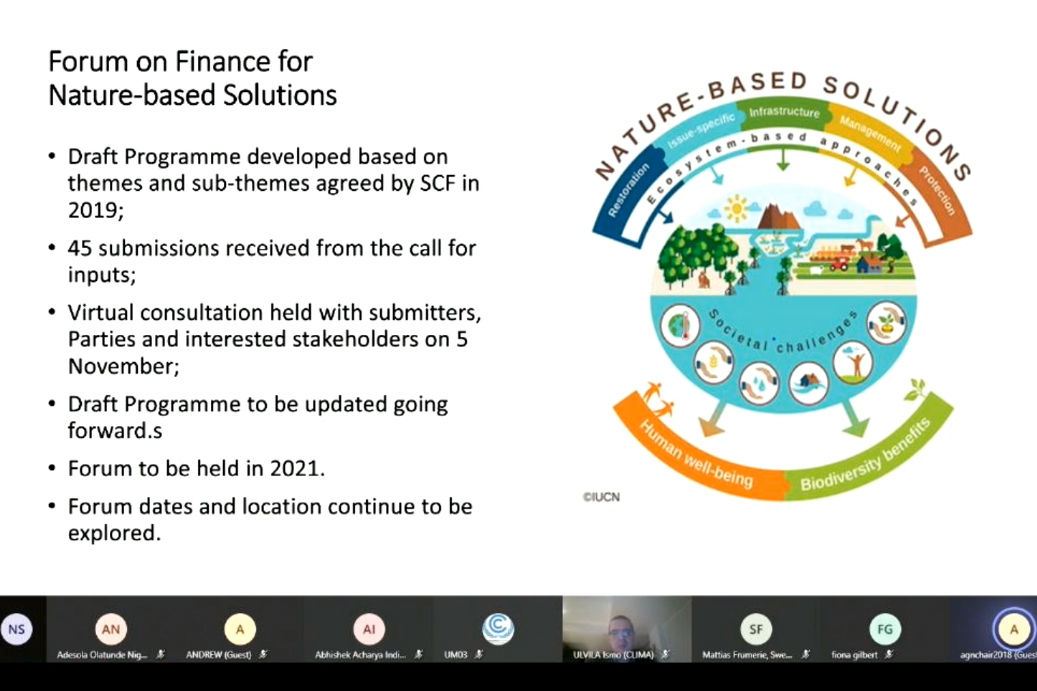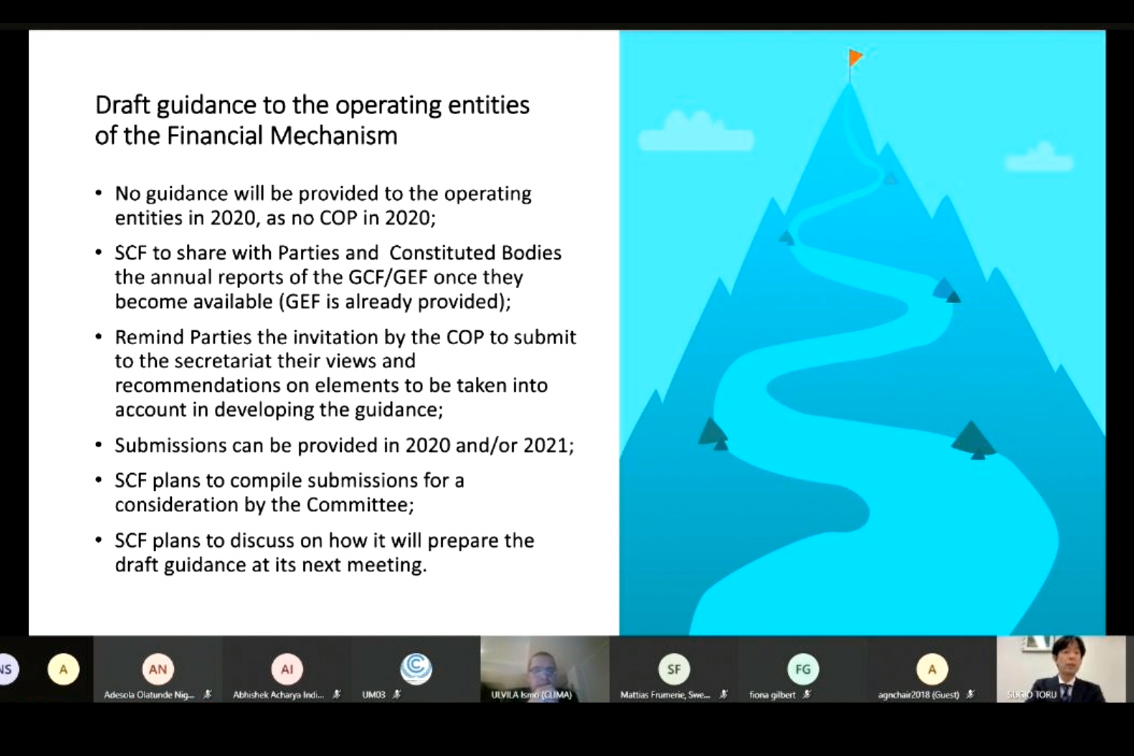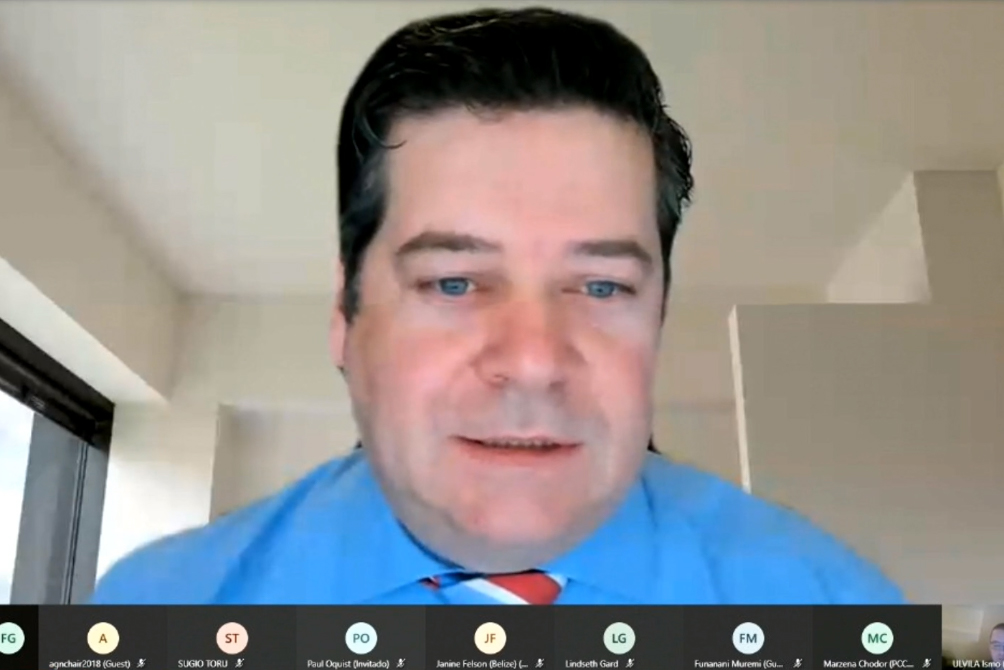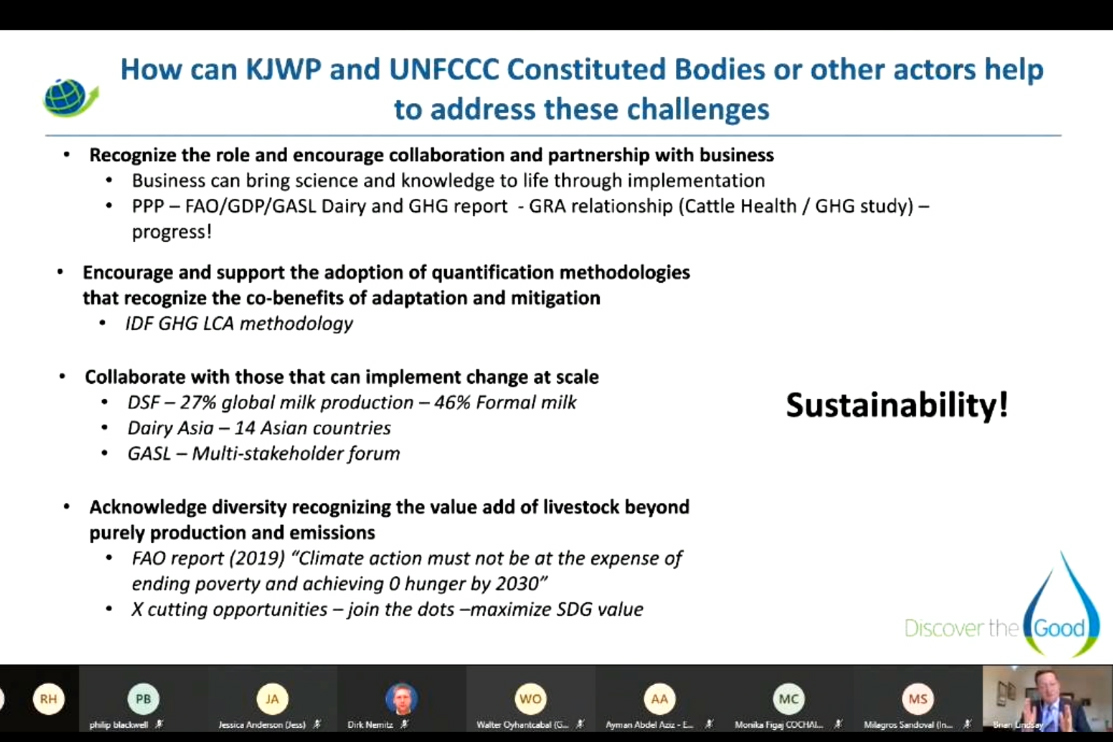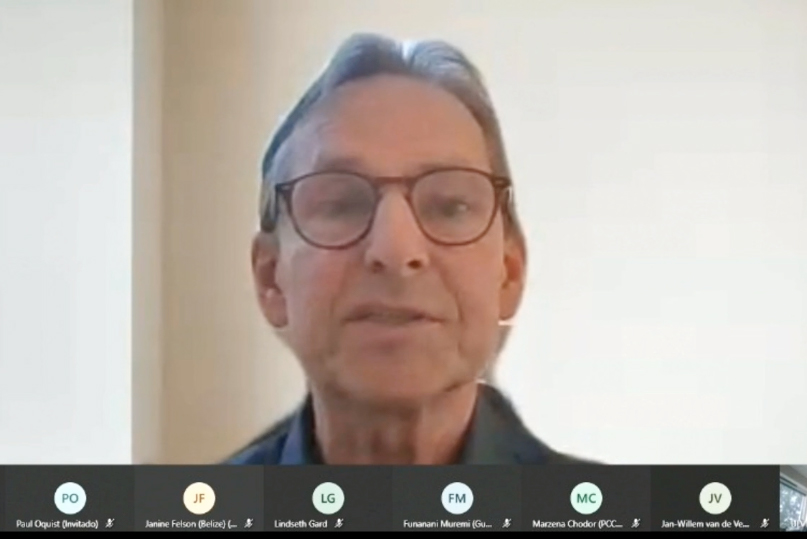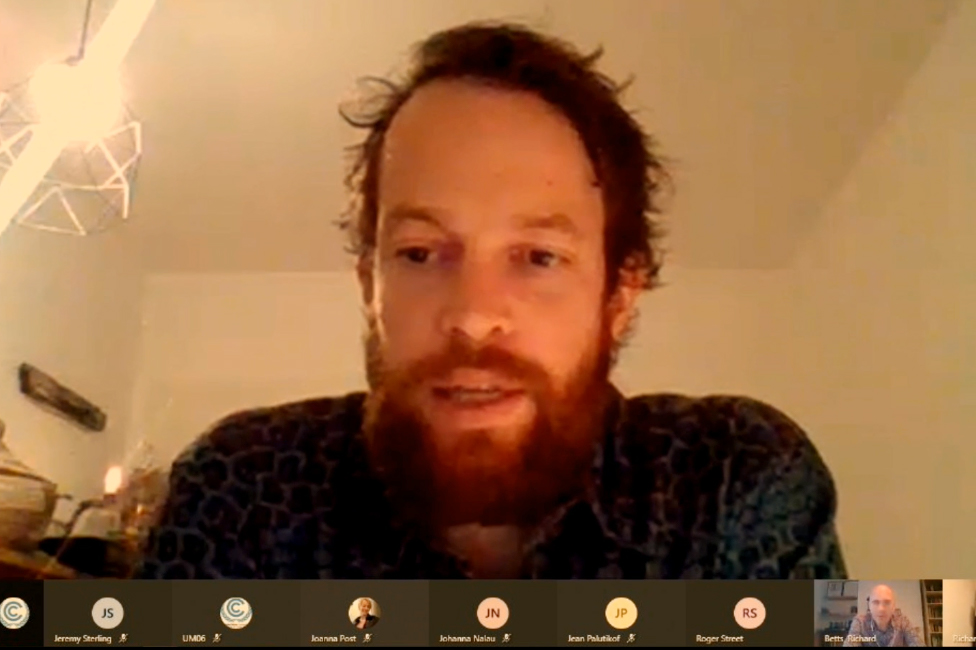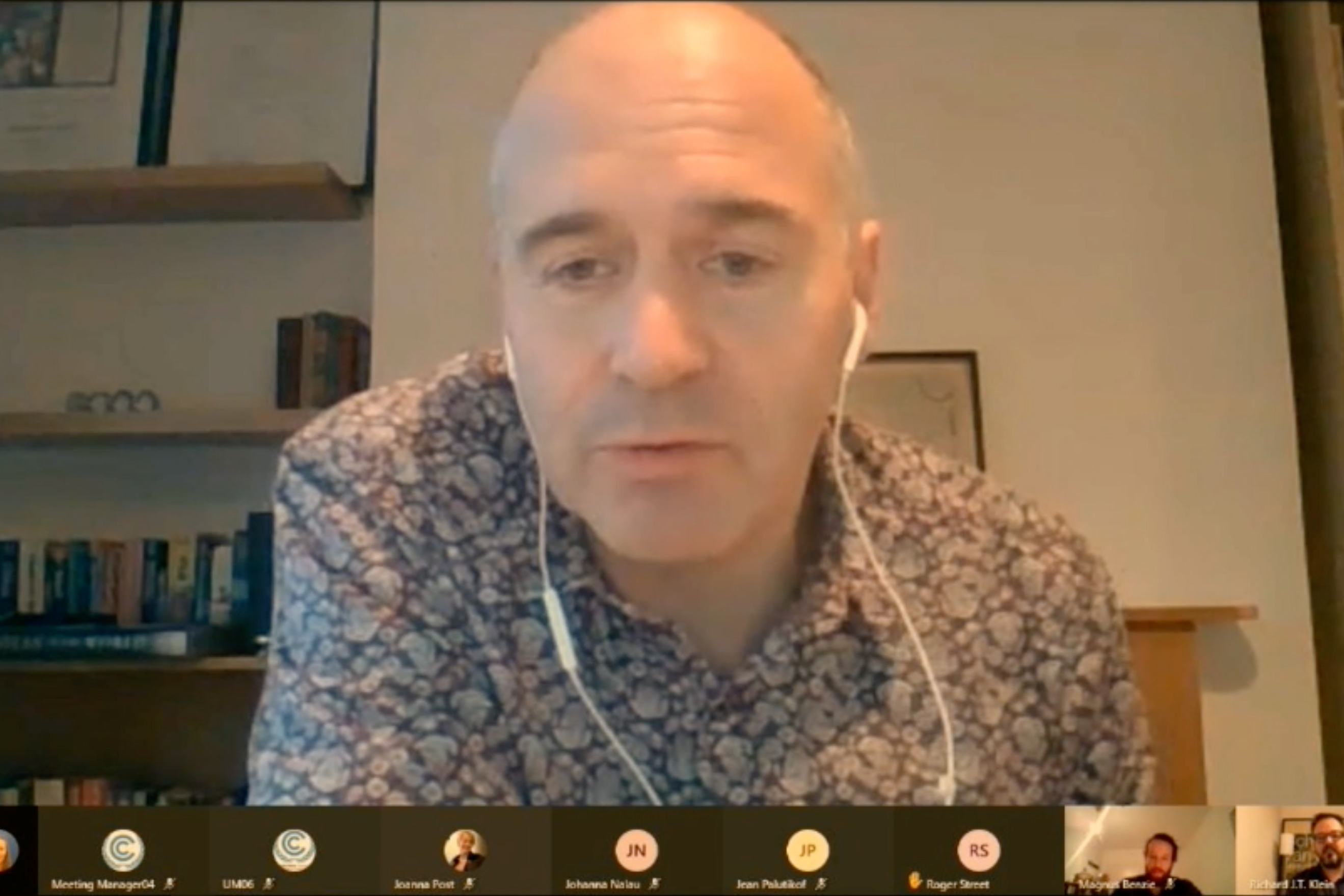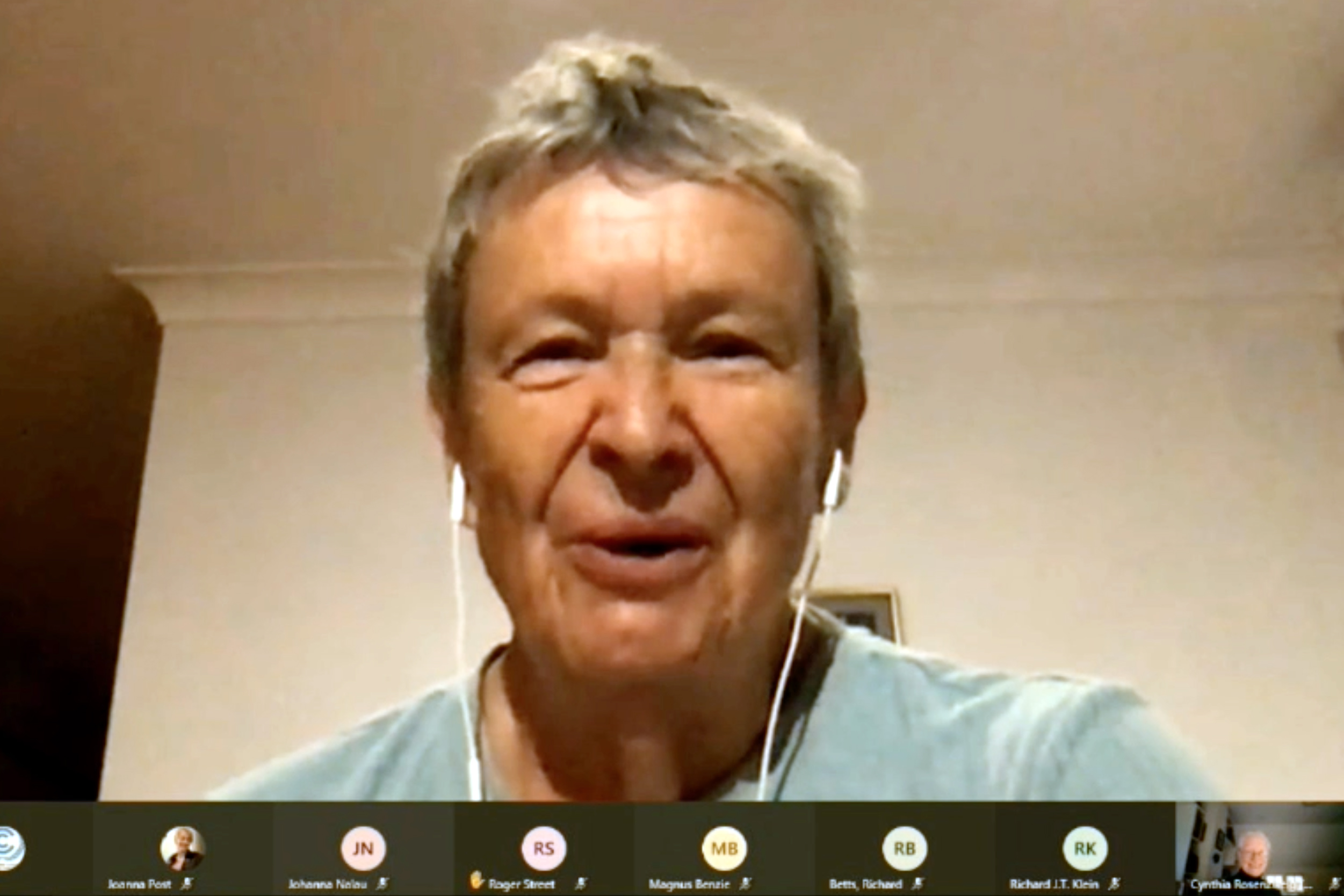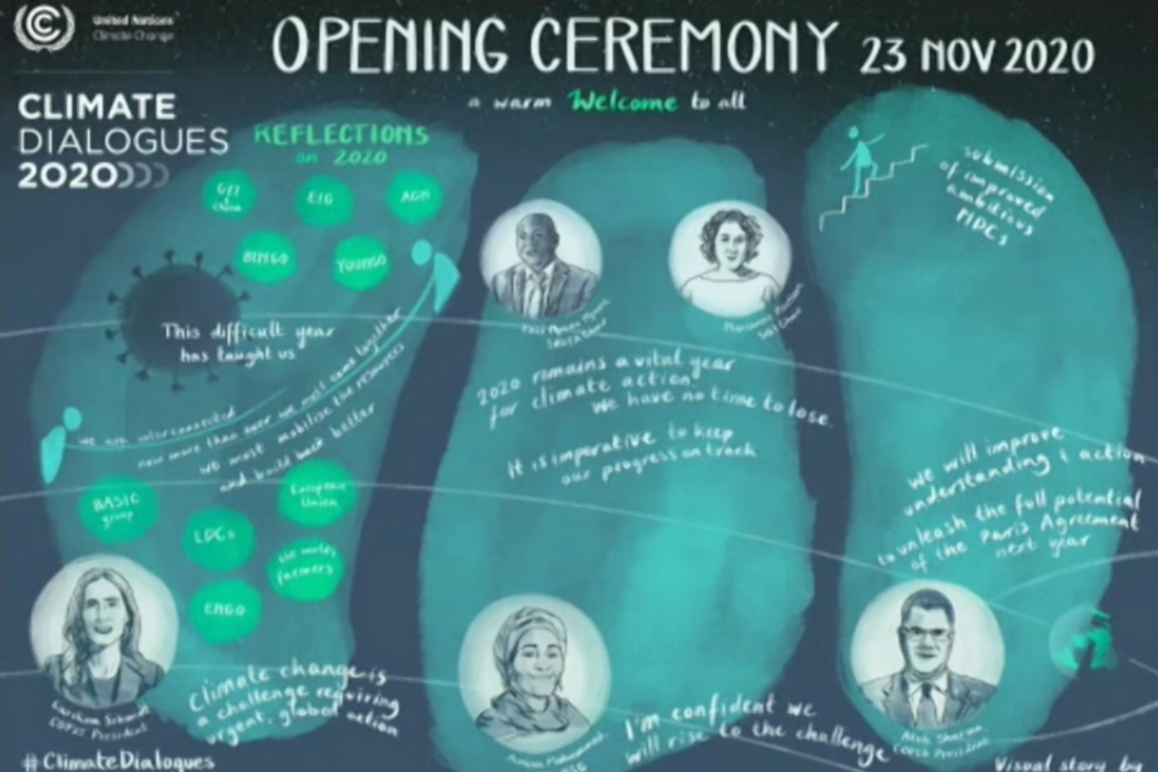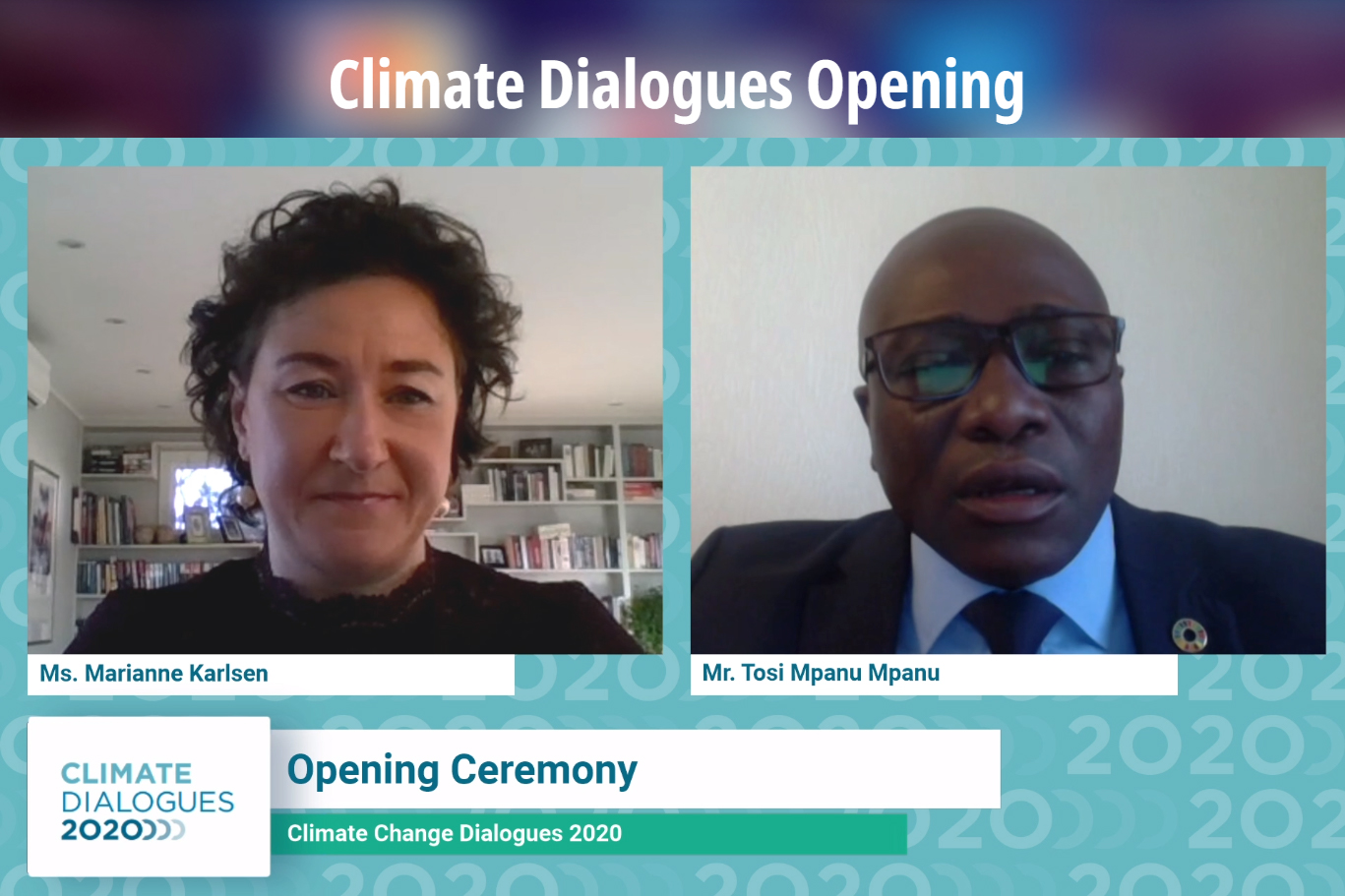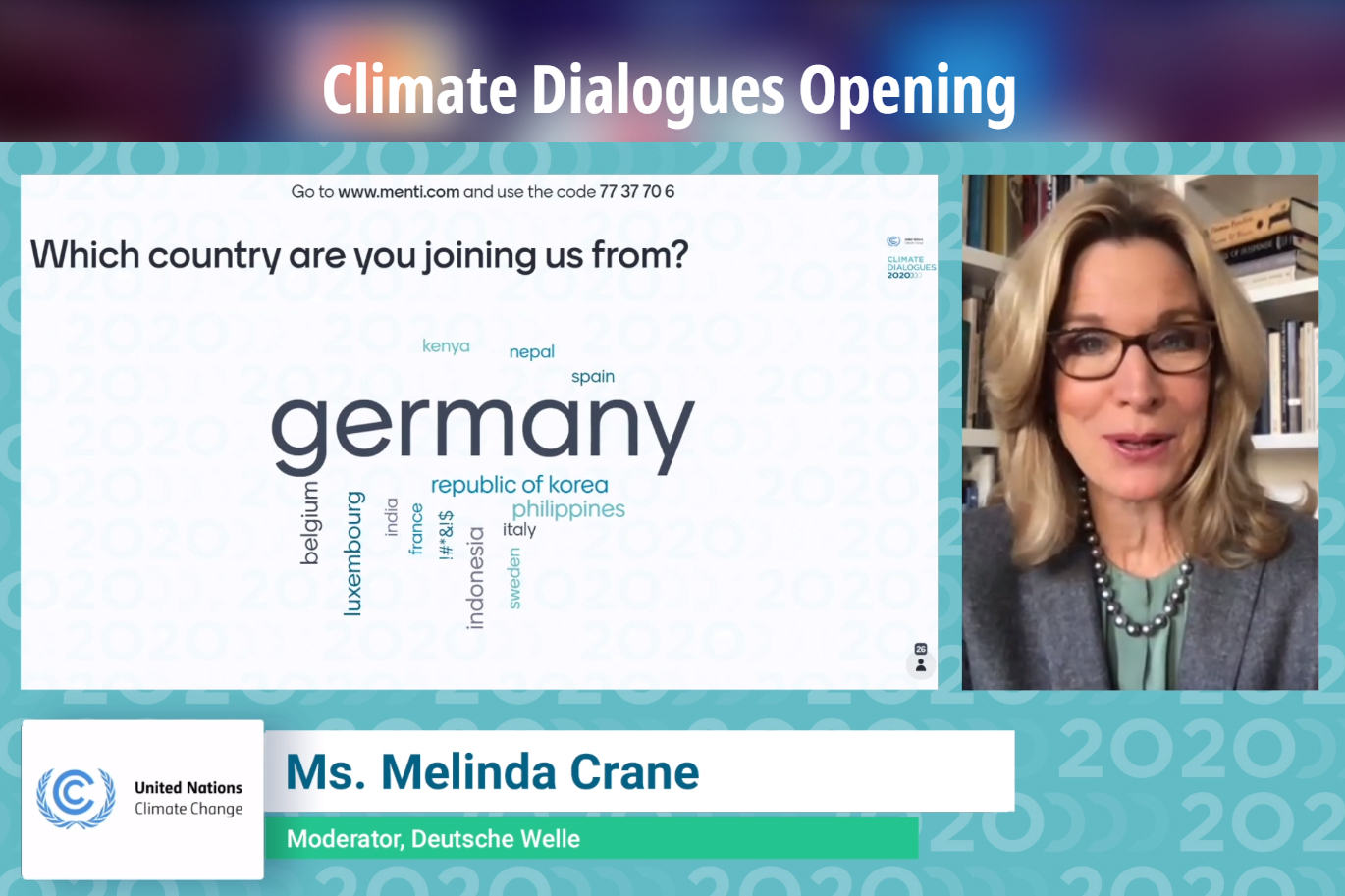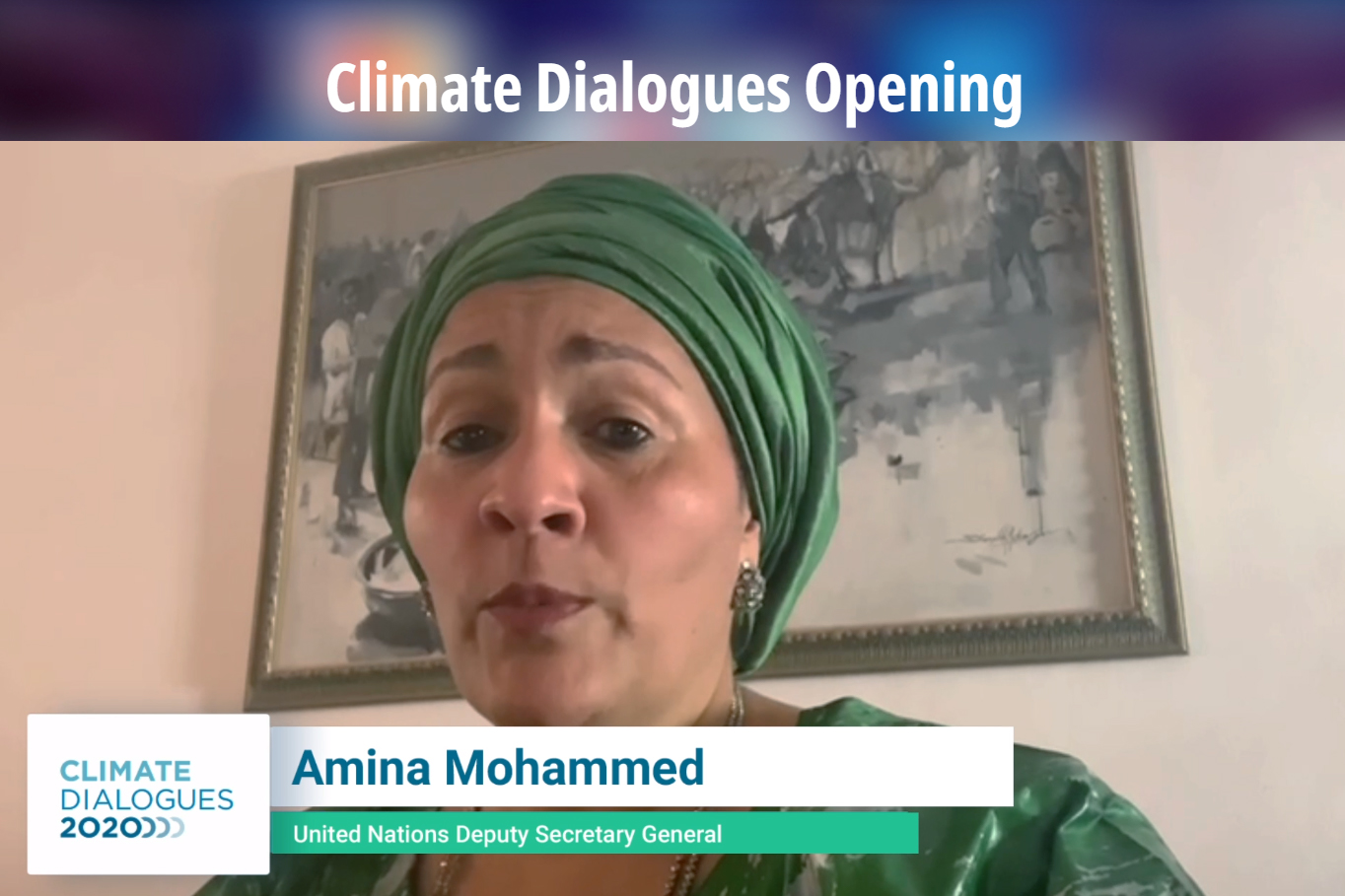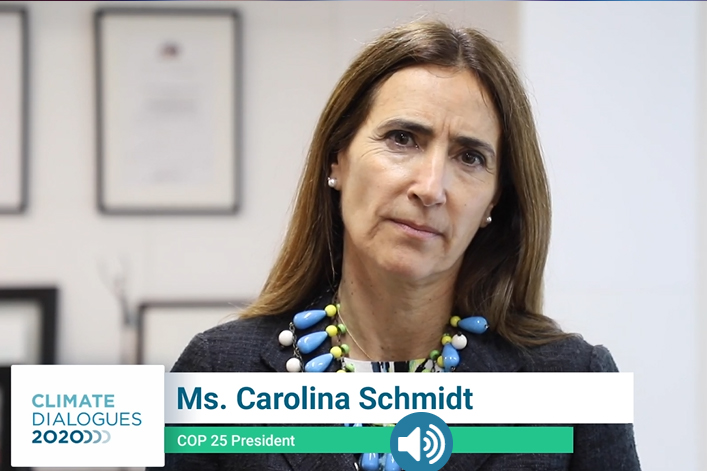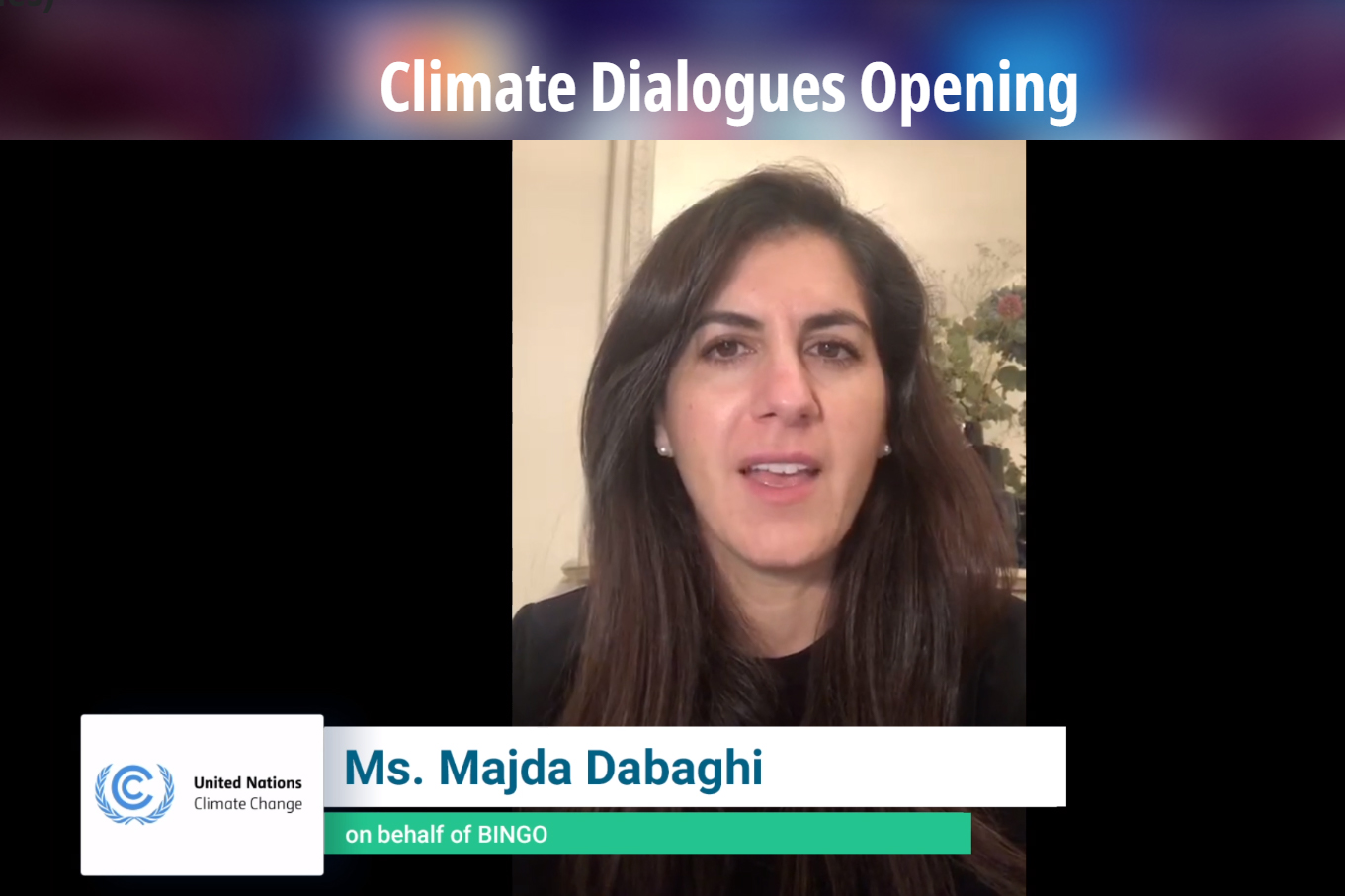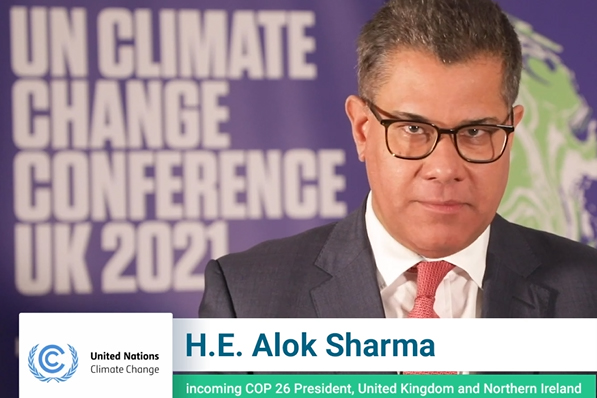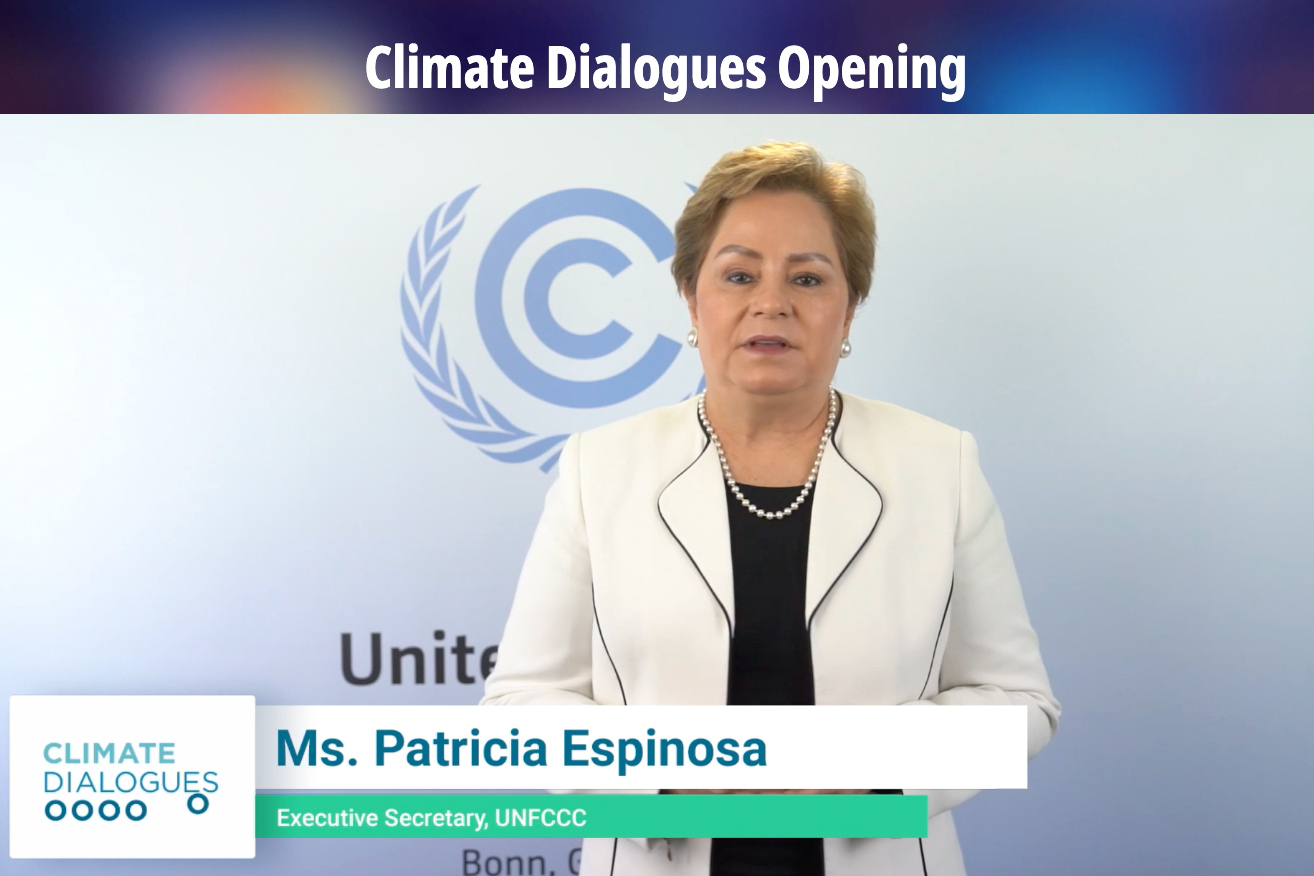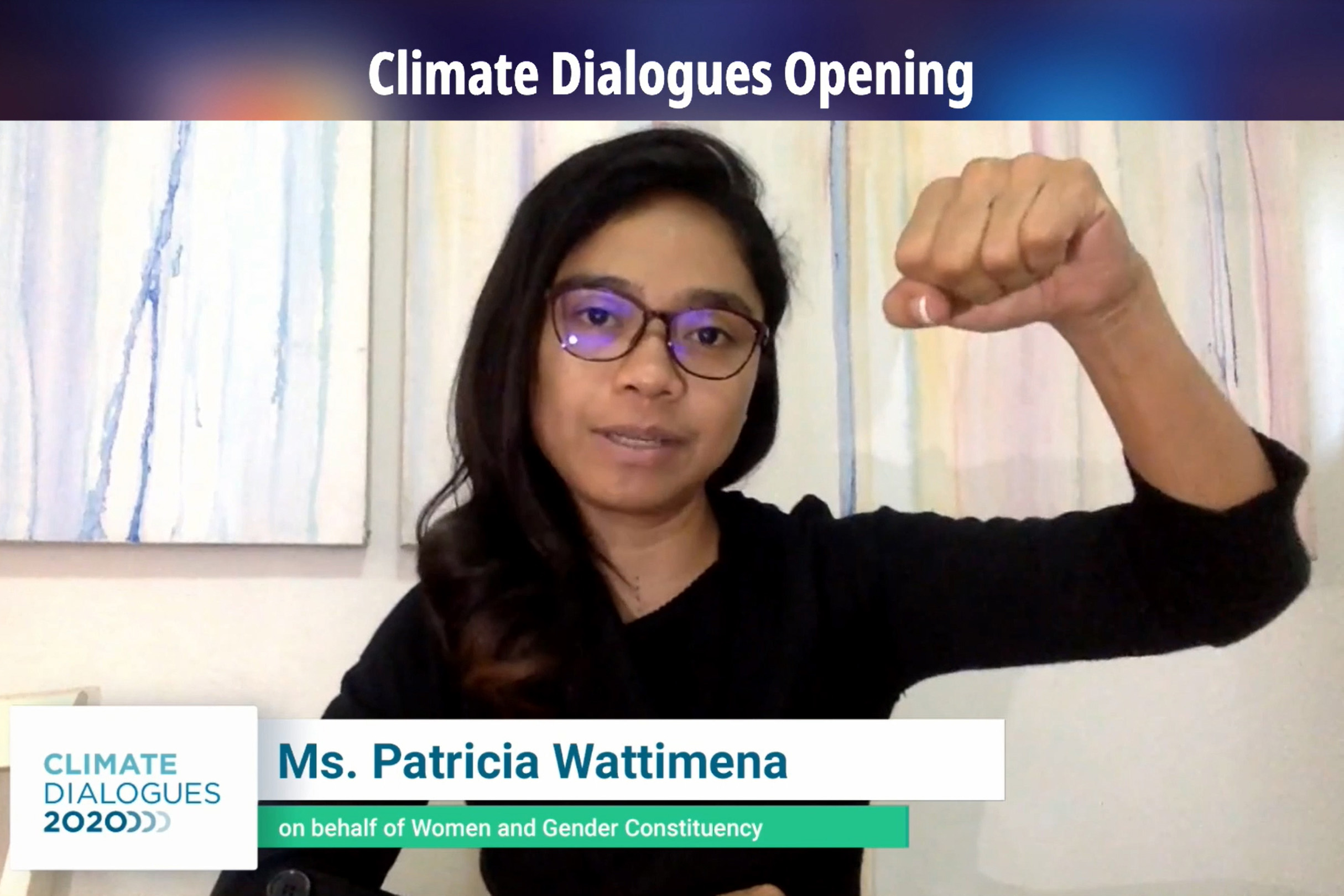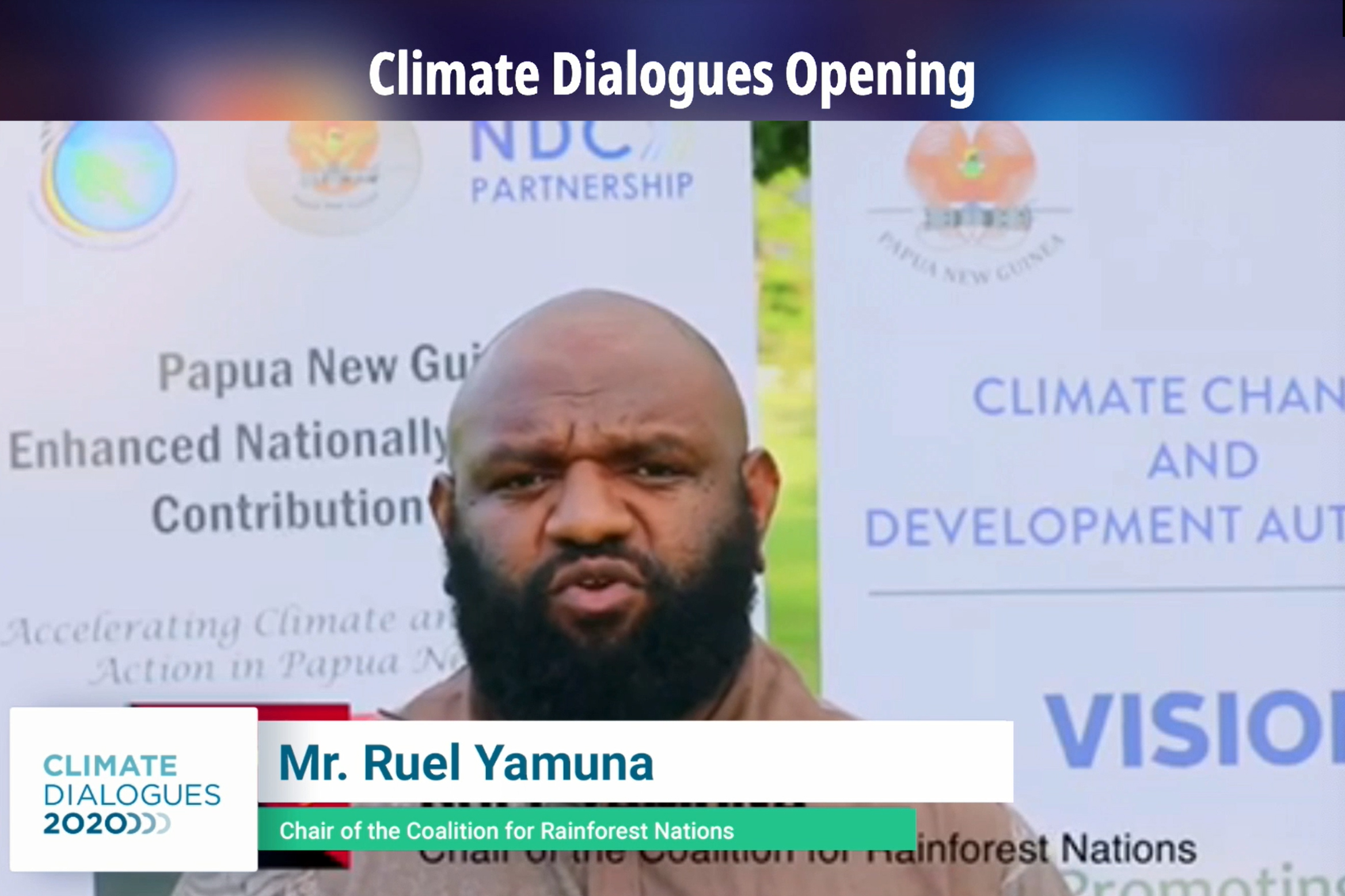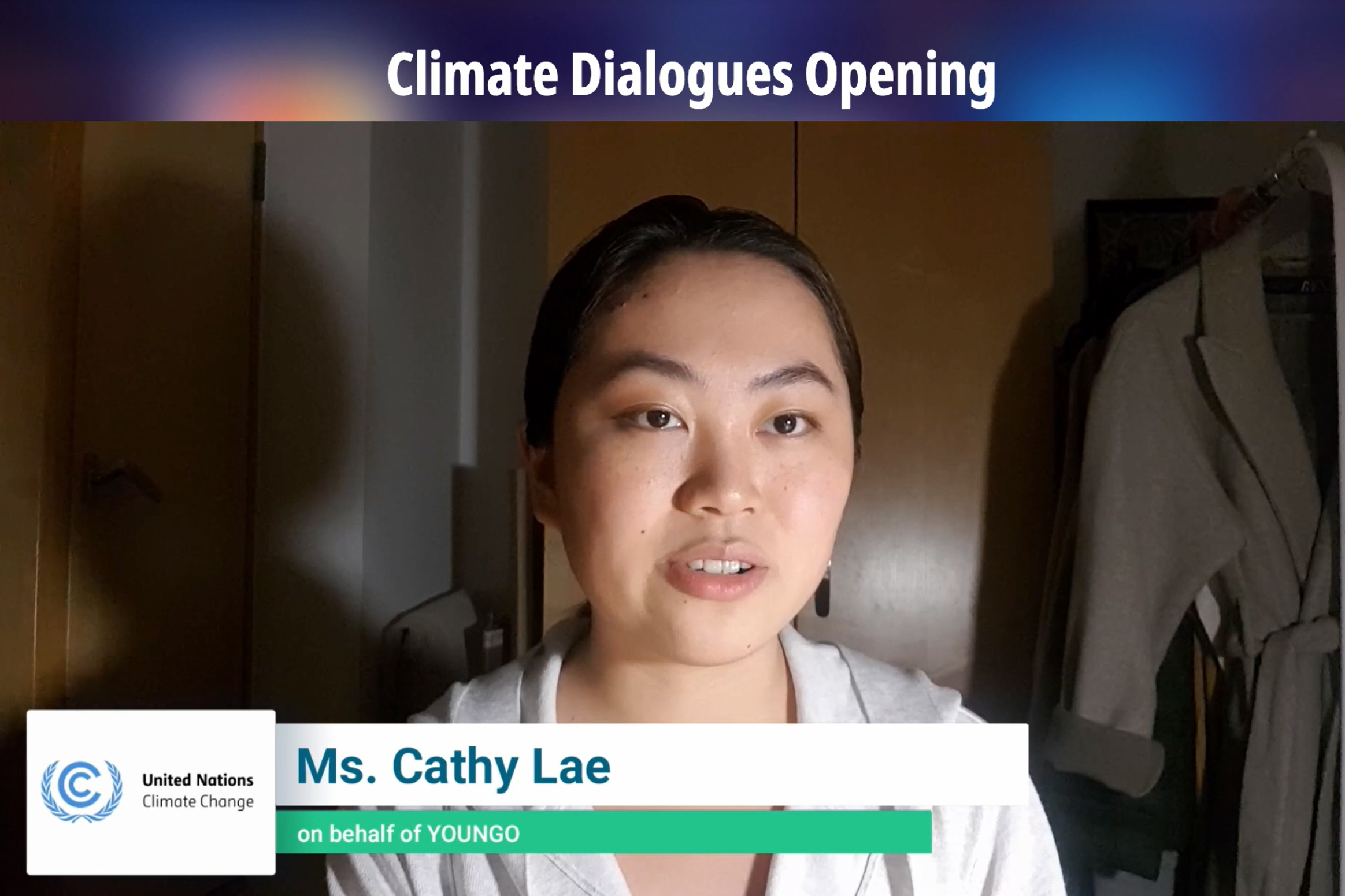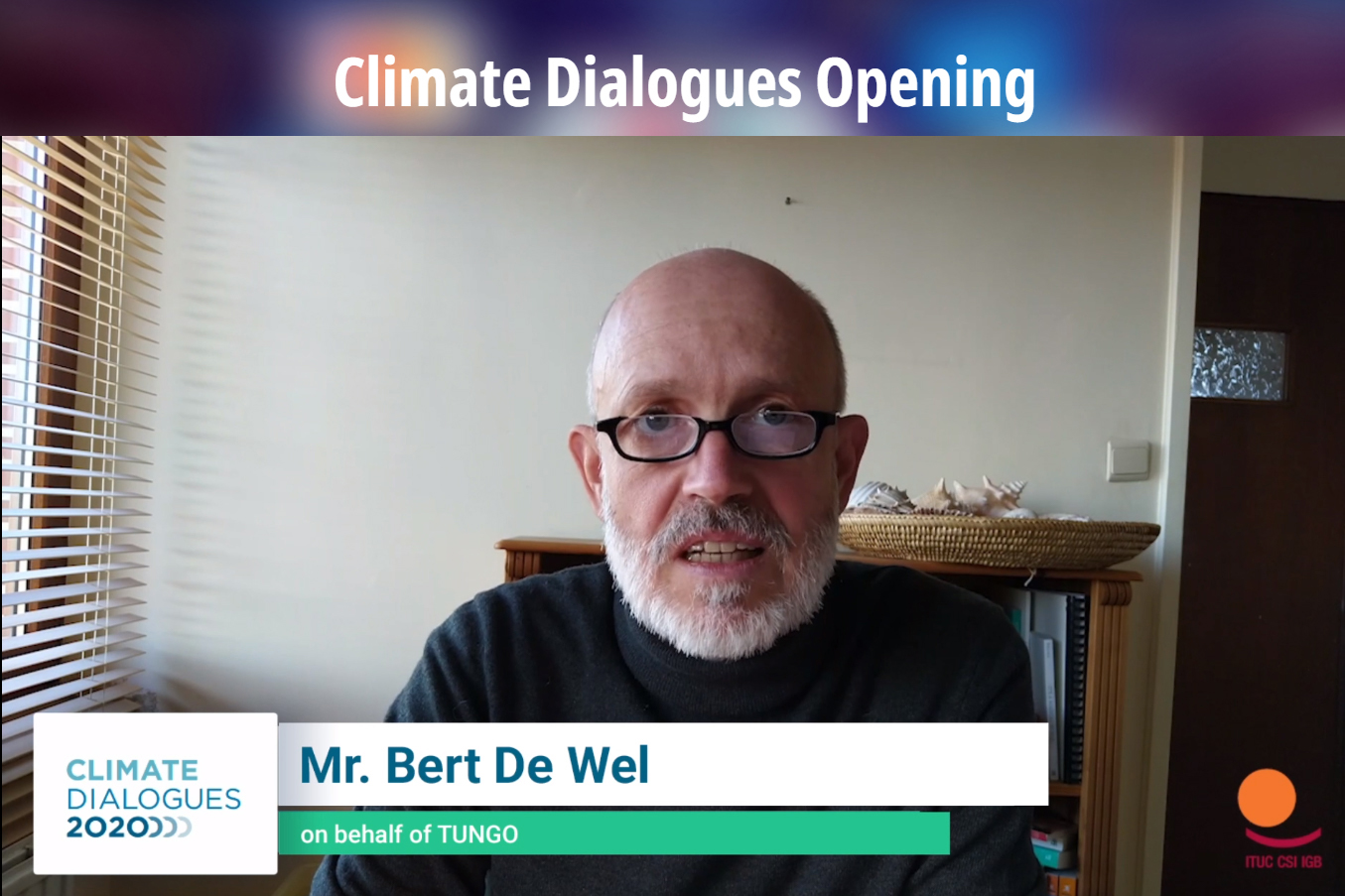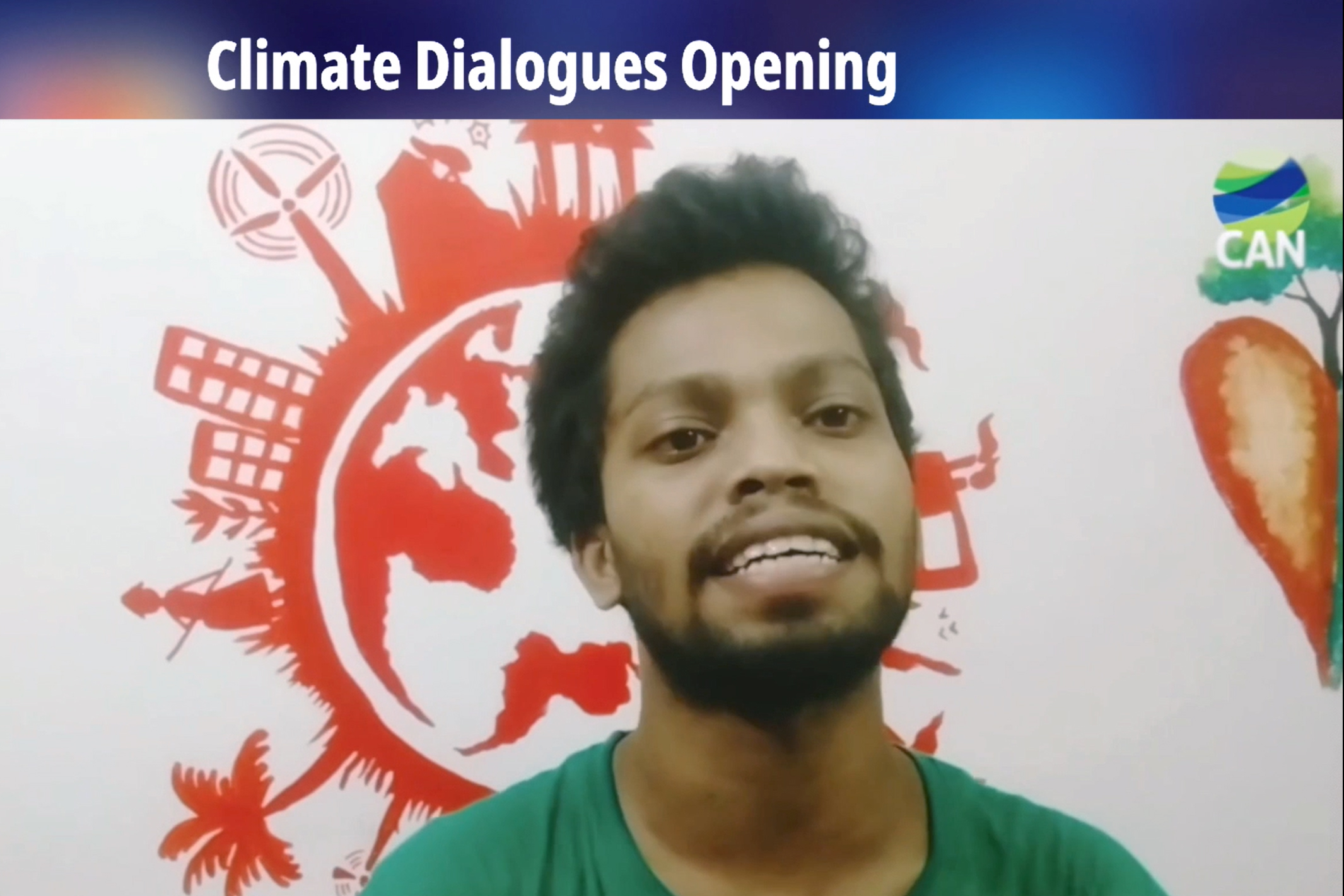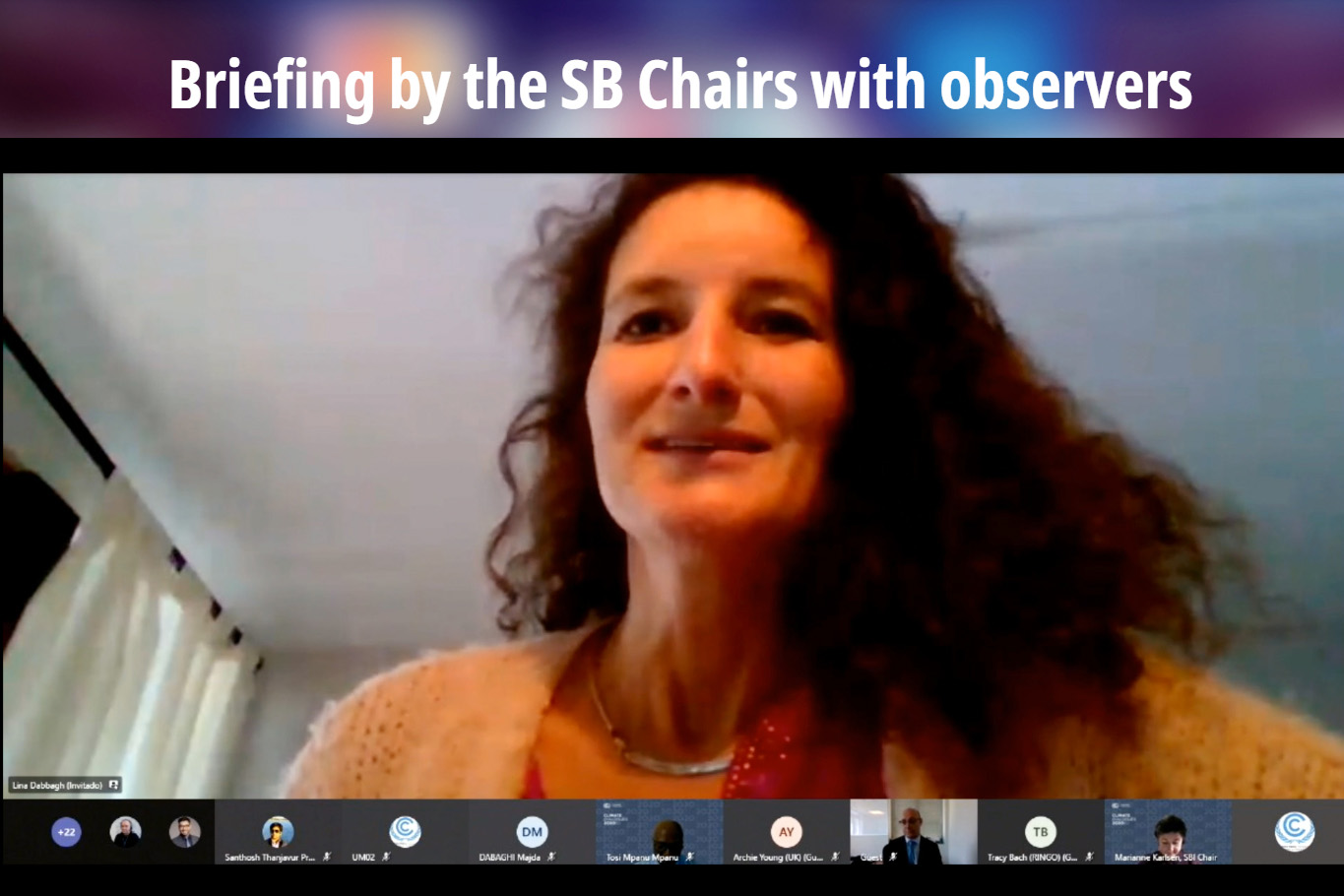UN Climate Change Dialogues 2020
23 November - 4 December 2020 | Online
Summary Highlights of the Dialogues
Parties to the United Nations Framework Convention on Climate Change (UNFCCC) and the Paris Agreement were planning to meet in Glasgow in November 2020 for the 26th meeting of the Conference of the Parties (COP 26). However, due to the COVID-19 pandemic, COP 26 was postponed to 2021. While a face-to-face meeting was not possible, the UNFCCC decided to hold a series of virtual events to keep climate action and momentum alive, implement mandated events for 2020, and discuss ongoing and emerging issues, such as a sustainable recovery from the pandemic.
Over the course of ten days, nearly 60 openly webcasted events took place and nearly 8,000 people tuned in. Several events related to the work of the constituted bodies, which are the bodies that focus on implementing various aspects of the Convention and the Paris Agreement. These technical bodies provided updates on their work and future plans and received feedback from parties and non-party stakeholders.
Highlights for Friday, 4 December 2020

Friday concluded the two-week long event and provided space for reflecting on progress made during the Dialogues and look ahead to the 26th session of the Conference of the Parties (COP 26) to the United Nations Framework Convention on Climate Change (UNFCCC).
Key insights from constituted bodies included:
- The pandemic prompted a move to virtual meetings which helped to broaden participation of stakeholders;
- Some bodies had troubles facilitating the secure sharing of draft documents with nominated observers;
- Innovations put in place in the pandemic context should inform practices even after in-person meetings become possible again; and
- In the absence of negotiations, expectations for progress under the constituted bodies is heightened, but resources remain limited.
Marianne Karlsen, Chair of the Subsidiary Body for Implementation (SBI), highlighted that despite the absence of formal negotiations, 2020 was not a “lost year” and thanked parties and stakeholders for engaging in the Dialogues. She nevertheless acknowledged that virtual events cannot replace in-person meetings, emphasizing the importance of informal discussions in the corridors for advancing negotiations.
Tosi Mpanu-Mpanu, Chair of the Subsidiary Body on Scientific and Technological Advice (SBSTA), noted that a sense of urgency and willingness to engage was apparent in the discussions of Article 6 (cooperative approaches) and transparency, and proposed organizing more expert meetings in 2021, particularly on Article 6.
Julio Cordano, for the COP 25 Presidency, said that 2021 should “build on lessons learned” from 2020 and use every possible way to improve on parties’ common understanding on critical issues.
Archie Young, for the COP 26 Presidency, highlighted the UK’s new Nationally Determined Contribution (NDC), which commits to a 68% reduction in greenhouse gas emissions from 1990 levels by 2030. Stressing the need for a “fair and inclusive process,” he announced that the UK Presidency intends to provide “maximum transparency” in the coming year, and announced that it will host a series of bilateral and multilateral conversations with negotiating groups and parties in 2021. He urged parties to do everything to avoid “looking back on 2021 and wishing we’d done more.”
Guyana, for the Group of 77 and China, stressed: the virtual format is not appropriate for negotiations; a "deficit of ambition" on pre-2020 commitments, which developed countries should address; and adaptation is lagging behind mitigation in the negotiations. She called for COP 26 to deliver concrete deliverables on action and support for loss and damage.
Belize, for the Alliance of Small Island States (AOSIS), and said more intersessional work on finance and on Article 6 will be critical, and emphasized that Article 6 is not just about markets, but also about ambition and scaling up finance for adaptation.
Germany, for the European Union, urged an inclusive, productive, and ambitious set of discussions between now and COP 26 on transparency and Article 6. She expressed openness to continuing informal work in 2021, and encouraged the presiding officers to capture the status of discussions prior to the next negotiations.
Panama, for the Independent Association of Latin America and the Caribbean (AILAC), underscored the need to take messages from science to inform action, and called for relating enhanced NDCs to the long-term goal of carbon neutrality. He welcomed further expert engagement on Article 6 in 2021.
Egypt, for the Arab Group, emphasized, among others: his group’s opposition to a formal output from the informal discussions on Article 6; and the importance of not imposing conditions on countries’ approaches to COVID-19 recovery. He underscored that discussions with non-state actors on finance and on the enhanced transparency framework need to be distinct from the intergovernmental work under the UNFCCC.
Switzerland, for the Environmental Integrity Group (EIG), called for: capturing discussions at the Dialogues, although not in an agreed outcome; and continuing discussions throughout 2021, noting the need to avoid parallel meetings and to hold discussions at a variety of time zones.
Bhutan, for the Least Developed Countries Group, urged for the recovery from COVID-19 to be consistent with the aims of the Paris Agreement and the Sustainable Development Goals.
Ecuador, for the Like-Minded Developing Countries, called for the new climate finance goal to effectively take into account the financing needs of developing countries; and pressed for operationalizing the long-term goal on adaptation.
Papua New Guinea, for the Coalition of Rainforest Nations, underscored that negotiations on Article 6 need to secure environmental integrity by, among others, avoiding double counting and including national greenhouse gas accounting by sector.
China, for Brazil, South Africa, India, and China (BASIC), stressed the limitations of virtual meetings and expressed dissatisfaction that the principle of CBDR-RC was taken into account to their liking in talks on adaptation finance.
Venezuela, for the Bolivarian Alliance for the Peoples of Our America (ALBA), highlighting that developed countries must adopt a more ambitious post-2025 finance goal to cover the gap in their commitment not achieved in the pre-2020 period, and that loss and damage should be treated equally with mitigation and adaptation.
Women and Gender stressed that women, youth, Indigenous peoples, and other marginalized groups are benefiting the least from economic recovery programs. They called on leaders to “stop bailing out corporations”, warning that “this is the time to act differently.”
Local Governments and Municipal Authorities (LGMAs) pressed for climate and social justice to be a central theme of COP 26 in Glasgow.
The Climate Action Network welcomed the sense of urgency to reach a decision on common time frames at COP 26 and reiterated that a 5-year common time frame is the outcome most compatible with leveraging the Paris Agreement's 5-year ambition cycle. She urged that no Clean Development Mechanism credits should be used to meet targets after 2020, and called for much stronger 2030 targets on mitigation and support.
SBI Chair Karlsen, reiterated the need for participants to come to future in-person meetings “with a new spirit” to ensure safeguarding the most vulnerable.
SBSTA Chair Mpanu-Mpanu said discussions on Article 6 and transparency have made progress, and the feedback received will help to engage constructively on these issues in 2021.
Cordano highlighted the humanizing, informal atmosphere created by the virtual setting. Noting parties have found new ways to communicate, he underscored the opportunity to accelerate work.
Young stressed the need to move from dialogue to negotiations, and from a round of interventions to more genuine discussion. He underscored the commitment of the COP 26 Presidency to reaching a positive, comprehensive, and inclusive negotiated outcome at COP 26, highlighting that no issue should be left behind.
In closing remarks, UNFCCC Executive Secretary Patricia Espinosa stressed success at COP 26 means "going beyond the hunt for one or two big decisions" and instead achieving a balanced package of decisions. She urged parties to "work like you never have before" to complete the necessary work at COP 26.
Images from the Day
Videos from the Day
Highlights for Thursday, 3 December 2020

On Thursday, the Climate Dialogues featured sessions on the least developed countries’ 2050 vision, the Adaptation Fund, loss and damage, and the relationship between climate change and the ocean, among others.
Closed sessions addressed common time frames for Nationally Determined Contributions (NDCs), and matters related to the review of the Doha work programme for Article 6 of the Convention (education and training).
Least Developed Countries 2050 Vision and Initiatives
Opening this session, Sonam Phuntsho Wangdi, Chair of the Least Developed Countries (LDC) Group, Bhutan, said LDCs have stepped forward with an ambitious vision and are leading initiatives, but need other countries to make deep cuts to domestic emissions and provide scaled-up support.
Fekitamoeloa Katoa 'Utoikamanu, UN Under-Secretary-General and High Representative for the LDCs, Land-Locked Developing Countries, and Small Island Developing States, highlighted the need to focus on adaptation and ensure funding is stepped up, calling for partnerships and coordinated efforts.
Phento Tshering, LDC Group Lead Negotiator, Bhutan, elaborated on three LDC initiatives: the LDC Initiative for Effective Adaptation and Resilience (LIFE-AR), the LDCs Renewable Energy and Energy Efficiency Initiative (LDC-REEEI), and the LDCs University Consortium on Climate Change (LUCCC).
A panel discussion considered the LDC Initiatives and synergies in delivering support to the LDCs. Key highlights included:
- LIFE-AR can help upscale implementation of good practices from previous projects;
- LDC-REEEI is intended to help countries leapfrog development steps by adopting renewable energy and improving access to energy; and
- Universities are often among the most stable institutions in LDCs, and can help build capacity at the local level through LUCCC.
In closing remarks, Wangdi said the LDC initiatives can support the green recovery from the COVID-19 pandemic, but need increased resources.
Adaptation Fund Event
In opening remarks, Marianne Karlsen, Chair of the Subsidiary Body on Implementation (SBI), noted that 2021 will mark the twentieth anniversary of the establishment of the Adaptation Fund (AF). She highlighted that it has developed into an important vehicle for supporting adaptation projects by using innovative funding modalities, including the pioneering of direct access.
Ibila Djibril, Chair of the AF Board, emphasized that direct access enhances country ownership and ensures funding is used where it is most needed.
Andrea Meza Murillo, Costa Rica, underscored the AF’s track record in implementing successful projects in a timely manner.
Huw Davies, for the COP 26 Presidency, said making adaptation finance more predictable, accessible, and effective is a priority. He assured participants that the UK will continue to call on donors to increase support for adaptation, especially in grant-equivalent terms. He pointed to the AF Contributor Dialogue, which will take place on 14 December.
Sonam Phuntsho Wangdi, Bhutan, Chair of the LDC Group, underscored the need to finalize negotiations on the Paris Agreement's Article 6 (cooperative approaches) to have shares of proceeds supporting the AF.
Speakers provided a strong endorsement of the Fund, highlighting features such as:
- Support for tailoring project to local needs;
- Flexibility for adjusting projects during the COVID-19 pandemic;
- A strong track record in funding projects that are later scaled up with support from, among others, the Green Climate Fund or the World Bank;
- A focus on women’s empowerment, and ensuring engagement of end users;
- The standing Dialogue with Civil Society Organizations at AF Board meetings; and
- The AF’s emphasis on self-assessment and continuous improvement.
Presidency’s Open Dialogue between Observers and Parties
This event focused on promoting an exchange of ideas, experiences, and lessons learned between observers and parties on facilitating ambition within a green recovery.
Alok Sharma, COP 26 President, stressed that achieving net zero and building resilience is only possible through joint efforts between parties and non-party stakeholders, noting the latter are vital for encouraging parties to raise ambition. He said a comprehensive agreement at COP 26 must be informed by "voices that have too often been marginalized."
Patricia Espinosa, UNFCCC Executive Secretary, highlighted the importance of exploring ways to enhance participation of non-party stakeholders.
Key insights from the ensuing discussion between observer constituencies and parties included:
- Governments must work with all stakeholders in formulating their enhanced NDCs;
- The need to address the COVID-19 recovery in a way that also advances the green transition and the necessary structural transformation of economies;
- Though the Production Gap Report 2020 states that fossil fuel production must decline by 6% per year until 2030 in order for Paris goals to be met, governments from the Group of 20 have committed over USD 230 billion to the fossil fuel industry since the start of the COVID-19 pandemic;
- It is beneficial for a host country to "have its own house in order," to better encourage others to raise ambition;
- The COVID-19 crisis and climate change are gendered crises, and both the recovery and climate action must be ambitious, inclusive, and gender-responsive;
- Multilevel action is key to raising national ambition, and efforts by subnational and regional governments should be formally recognized;
- Young people have continued to organize despite the pandemic, and call upon parties to give space and resources for youth to self-organize.
Developing the Santiago Network for Loss and Damage
This session provided an informal space for parties and observers to share ideas on how to continue the development of the Santiago Network to effectively catalyze technical assistance for developing countries to avert, minimize, and address loss and damage. Interventions focused on: what the Network should deliver for parties; and how the Network should be structured in order to deliver the identified functions.
Gladys Santis, for the COP 25 Presidency, recalled the decision adopted at COP 25 to establish the Santiago Network and noted the UNFCCC Secretariat had launched a web portal for the Network in June 2020. She highlighted there would be no formal outcome from the event.
Parties highlighted the Network needs to respond to a wide array of needs; with many emphasizing areas such as: data analysis, risk assessment, policy development, and accessing finance for implementing loss and damage projects. Many underscored the need to address the topics of slow-onset events and non-economic losses.
The interventions were heavy in analogies, with speakers calling for, among others: a “wedding planner” service which provides information tailored to countries’ specific needs; and a “match-making” service that would identify the most suitable experts & organizations to respond to parties' specific requests for support.
One group spoke of emulating dating-app/sharing economy modalities for reviewing quality of support received. Many referred to the Climate Technology Centre and Network as a good model, and some also pointed to the Fiji Clearing House for Risk Transfer. National contact points for loss and damage were highlighted as important.
Archie Young, for the COP 26 Presidency, highlighted discussions would continue throughout 2021, both on the function and structure of the Network.
Ocean and Climate Change Dialogue
This dialogue, which started on Wednesday and continued on Thursday, aimed for parties and non-party stakeholders to reflect on how to strengthen mitigation and adaptation in an ocean-context.
In the high-level opening segment on Wednesday, Peter Thomson, the UN Secretary-General’s Special Envoy for the Ocean, reiterated the call that there is “no healthy planet without a healthy ocean.” He underlined the ocean’s role in heat control and the capture of greenhouse gases, as well as the potential for an ocean-based economy to deliver a significant portion of emissions reductions.
Patricia Espinosa, UNFCCC Executive Secretary, called for parties to practice “inclusive multilateralism” and to include the voices of local communities and Indigenous peoples in considering ocean-related mitigation and adaptation in their NDCs.
Hans-Otto Pörtner and Elvira Poloczanska, Intergovernmental Panel on Climate Change (IPCC) Working Group II, presented key messages from the IPCC Special Report on the Ocean and Cryosphere in a Changing Climate, noting, among others, that:
- Shifting ocean physics and chemistry due to warming are affecting marine life, especially warm-water coral reefs;
- Current projections for sea-level rise by 2300 range from under 1 meter to several meters, depending on mitigation levels; and
- Ambitious mitigation is essential to avoid the worst effects of climate change for ocean ecosystems and livelihoods.
In breakout groups, participants discussed opportunities to strengthen ocean-climate action within the UNFCCC, and across UN agencies. Some participants called for an opportunity to formally present the summary of the Ocean and Climate Change Dialogue at COP 26.
The second day opened with a keynote from Jane Lubchenco, Co-Chair of the High Level Panel for a Sustainable Ocean Economy. She highlighted that ocean-based actions provide powerful, but mostly untapped opportunities for both mitigation and adaptation.
As promising solutions, she pointed to:
- Investing in ocean-based renewable energy;
- Protecting and restoring blue carbon ecosystems;
- Incentivizing the transition to decarbonized shipping;
- Shifting diets toward low carbon marine sources; and
- Supporting a global target to fully protect 30% of the ocean by 2030.
In breakout groups, participants discussed options for strengthening ocean-climate action at national level, and strengthening cross-cutting support for action.
Images from the Day
Videos from the Day
Highlights for Wednesday, 2 December 2020

On Wednesday, the Climate Dialogues considered agriculture, common time frames, climate change education, and finance, among others.
Koronivia Joint Work on Agriculture - Workshop on Socioeconomic and food security dimensions of climate change in the agricultural sector
In keynote remarks, Emile Frison, International Panel of Experts on Sustainable Food Systems (IPES-Food), stressed that transformational change is needed towards diversified agroecological systems, which he said are just as productive as conventional agricultural systems and usually generate more income, while also capturing carbon in the soil, improving biodiversity, and restoring degraded land. He said barriers to uptake of agroecological systems include the concentration of power in a small number of agrifood companies. On how to support the transition, he called for true cost accounting, facilitating young farmers’ access to land to start diversified agroecological farms, and supporting short value chains.
Highlights from the ensuing discussion included:
- The appropriateness of agroecological systems at all scales, not just small farms;
- The technology applied in agroecological farming will depend on the geographic location, climate, and level of mechanization, among other factors;
- Incremental steps, such as precision agriculture and replacing crops with drought-resistant varieties, are not sufficient;
- The soil microbiome is important for increasing carbon in the soil;
- Increasing communication on the needed food system transformation, going beyond addressing farmers; and
- The need to increase investment in research on agroecological practices, which is currently “ridiculously small.”
Participants then heard presentations from constituted bodies and financing entities.
The Adaptation Committee highlighted work on, among others: economic diversification, including in relation to the Nairobi work programme’s 2021-2022 focus on agriculture and food security; and engaging the private sector in adaptation action focused on small- and micro-sized enterprises in the agriculture sector.
The Green Climate Fund (GCF) highlighted three investment pathways for GCF action in the sector: promoting resilient agriculture; facilitating climate-informed advisory and risk management services; and reconfiguring food systems. Examples included: promoting agroforestry; financial literacy training; low-cost communication tools; and better food storage and transportation.
The Global Environment Facility highlighted a shift from a focus on production towards addressing value chains, noting this includes improving rural roads for better market access.
The World Bank highlighted, among others: incentivizing sustainable practices, including through payment for ecosystem services; and crowding-in private investment and de-risking green investment for small- and medium-sized enterprises.
Technical dialogue on common time frames for nationally determined contributions referred to in Article 4, paragraph 10, of the Paris Agreement
This session aimed to deepen parties' understanding of the technical aspects of the negotiating item. Emphasizing the technical nature of the discussion, facilitator Kishan Kumarsingh discouraged parties from repeating previously stated positions.
Yamide Dagnet, World Resources Institute (WRI), stressed that the outcome on common time frames can either assist or undermine the effective implementation of the Paris Agreement. If parties have different time frames, she said, the global stocktake (GST) cannot equitably reflect progress on action and support, and emissions trading would be more complex.
Benito Müller, Oxford Climate Policy, proposed, as a potential compromise solution, a rolling cycle whereby by 2025, parties should communicate a 2035 Nationally Determined Contribution (NDC), as well as updating their 2030 NDC; and that by 2030, parties should update their 2035 NDC and communicate a 2040 NDC. He argued this solution can retain all advantages of the options on the table, while avoiding their risks.
In the ensuing discussion, many parties repeated their positions on the issue of common time frames. Some, such as Switzerland for the Environmental Integrity Group (EIG), and Bangladesh for the Least Developed Countries, said 5-year common time frames would allow for parties to better adapt to new developments, align with the GST process, and avoid locking in low ambition. China, for the Like Minded-Group of Developing Countries (LMDCs), and Saudi Arabia, for the Arab Group, supported giving parties the option to submit a 5 year or a 10 year NDC, stressing the need to respect different national circumstances. The EIG and the African Group noted the option of a 5+5 year solution whereby parties could submit a 5-year firm NDC as well as an indicative 10-year NDC.
Belize, for Alliance of Small Island States (AOSIS), called for parties to meet in the middle and find a mutually agreeable solution, expressing willingness to "look at" the rolling time-frame approach suggested by Müller.
In closing remarks, Julio Cordano, for the COP 25 Presidency, said parties had reached a common understanding that this item has to be solved as soon as possible. Huw Davies, for the COP 26 Presidency, said resolving the issue will help to unleash the Paris Agreement's full potential. Marianne Karlsen, Chair of the Subsidiary Body for Implementation (SBI), stressed the need to "marry" the five-year dynamics of the Paris Agreement with national circumstances.
8th Dialogue on Action for Climate Empowerment
This event reviewed the results of the 8th Dialogue on Action for Climate Empowerment (ACE), which is meant to enhance work in the areas of climate change education, training, public awareness, public participation, public access to information, and international cooperation on these matters.
A moderated discussion brought together participants from the four regional ACE dialogues which took place earlier in 2020 in Europe and Central Asia; Asia and the Pacific; North America, Latin America, and the Caribbean; and Africa and the Middle East. Regional focal points discussed, among others, key lessons from the dialogues; remaining gaps and needs across regions; and the need for cross-sectoral collaboration.
Common threads across regions included, among others:
- The need to work towards carbon neutrality, empower stakeholders, and enhance political commitment toward ACE;
- A lack of public awareness of ACE and buy-in from high-level political players; and
- The need to link policy, science, and Indigenous and local knowledge in the ACE process.
Informal joint Presidency and incoming-Presidency Heads of Delegation Finance Event
Julio Cordano, for the COP 25 Presidency, and Archie Young, for the COP 26 Presidency, moderated this dialogue, noting its aim to gather views, understand priorities, and advance the preparation of negotiations at COP 26. Cordano highlighted that there will be no written output from the event.
Groups and parties shared their views on, among others: the pledge by developed countries to jointly mobilize USD 100 billion of climate finance per year by 2020; the definition of climate finance; modalities for accounting of climate finance; mobilizing private finance; modalities for accessing climate finance; and challenges and opportunities related to the COVID-19 pandemic.
Views differed on the level of progress made by developed countries towards reaching the USD 100 billion goal, with several developing groups pointing to the high proportion of loans compared to grants, and the question of additionality, among others.
Parties generally aligned in emphasizing the need for: more adaptation finance; aligning/making financial flows consistent with the Paris Agreement; and the recovery from the pandemic to foster the transition towards low-carbon economies.
Other points that were highlighted include: the need for a process under the UNFCCC to assess progress on the USD 100 billion per year goal; assessing the impacts of climate finance; and initiating discussions on a new post-2025 collective finance goal.
In closing, Young assured parties that the discussions led by the UN Special Envoy for Climate Action and Finance, which pertain to climate risk disclosure, among others, are complementary to, but separate from, the negotiations on finance within the UNFCCC.
Images from the Day
Videos from the Day
Highlights for Tuesday, 1 December 2020

On Tuesday, the Climate Dialogues featured sessions on food security, technology, pre-2020 implementation and ambition, and adaptation issues.
In closed events, parties discussed common tabular formats for reporting on financial, technical, and capacity-building support provided and mobilized, as well as support needed and received; and impacts of the implementation of response measures.
Koronivia Joint Work on Agriculture - Workshop on Socioeconomic and food security dimensions of climate change in the agricultural sector
The first day of this workshop opened with a keynote presentation by Maryam Rezaei, Food and Agriculture Organization of the UN (FAO). Noting that traditional food security programmes tended to adopt production-focused approaches, overlooking post-harvest aspects, she emphasized the need for holistic approaches that address the root causes of under-performance of food systems in delivering food security, addressing different governance levels and being mindful of trade-offs.
Prajal Pradhan, Lead Author of the Intergovernmental Panel on Climate Change (IPCC) Special Report on Climate Change and Land (SRCCL), emphasized that options to address food insecurity are available, and noted that many present mitigation and adaptation synergies and sustainable development co-benefits. As response options, he pointed to, among others: sustainable production practices, noting they can help reduce crop and livestock emissions, enhance carbon sequestration in soils and biomass, and decrease emission intensity; balanced diets as a consumption side option for reducing emissions and improving health outcomes; and reducing food loss and waste.
In discussions, participants addressed, among others: equity and justice issues underlying patterns of undernourishment and overconsumption; the role of trade in maintaining food security; the need to achieve net-zero emissions in food systems; and the need for stakeholders to be involved in a participatory manner, regardless of approaches to socioeconomic equity in food systems.
From technology needs to climate action
In opening remarks, Zitouni Ould-Dada, FAO, highlighted that technology needs assessments (TNAs) have been an important tool for countries in identifying their needs and the actors that can support them.
Key insights from presentations and a panel discussion included:
- The need to promote dialogues between specialists from different sectors;
- Some countries used Technology Action Plans as foundations to prepare successful project proposals to the Green Climate Fund (GCF) and Global Environment Facility (GEF);
- Increased coordination between focal points of different UNFCCC workstreams and the GEF replenishment is important in maximizing delivery of follow-up actions to TNAs;
- The Climate Technology Centre and Network (CTCN) can support countries in revising their TNAs; and
- The importance of sustainable local institutions that promote green technology innovation.
Dialogue on the relationship between land and climate change adaptation related matters
This session was moderated by Kakhaberi Mdivani, Vice-Chair of the Subsidiary Body on Scientific and Technological Advice (SBSTA).
In a keynote, Mohamed Handaine, Indigenous Peoples of Africa Co-ordinating Committee, stressed the need to act for and with Indigenous peoples, noting the challenge posed by non-recognition of Indigenous peoples by states.
Breakout-group discussions addressed assessing and monitoring land adaptation; and policy approaches for land management.
Back in plenary, participants discussed the potential contribution of existing processes under the UNFCCC in enhancing land adaptation. Among others, parties pointed to the importance of actively including stakeholders in developing national plans; increasing communications among different processes; and the importance of the land sector for food security. On linkages with other international frameworks and processes, parties highlighted the need to strengthen joint action with the UN Convention to Combat Desertification and the Convention on Biological Diversity, including by holding more joint events.
Roundtable on pre-2020 implementation and ambition
This session continued the previous day’s discussion on pre-2020 implementation of mitigation, adaptation, and financing actions. Archie Young, for the COP 26 Presidency, and Julio Cordano, for the COP 25 Presidency, co-facilitated the discussion.
Participants heard from four “icebreakers,” all speaking in their personal capacity, who reflected on progress made by parties so far and on the state of the Climate Dialogues.
Pointing to the widening gap between mitigation ambition and actual emissions reduction, Leon Charles, Grenada, emphasized that governments must focus on actually implementing policies.
Maryke van Staden, ICLEI - Local Governments for Sustainability, called for more effective multilevel governance, and highlighted: enhancing access to finance, particularly for local communities; and supporting climate reporting by subnational governments to feed back data to the national and global levels.
Reflecting on the objectives of the roundtable, Franz Perrez, Switzerland, emphasized the need to avoid “lenses of bifurcation and polarization” but rather foster an atmosphere of common understanding, where “we see each other as partners,” noting that all have to commit based on their capacity and responsibility.
Majda Dabaghi, International Chamber of Commerce, said that businesses have played a crucial role since COP 21 by taking on voluntary commitments, and raised the importance of “inclusive multilateralism” in the post-2020 period.
In the discussion following icebreakers, participants highlighted lessons learned to take forward in the post-2020 period. Among others, Mexico, for the Environmental Integrity Group, stressed the need to look at the wider social and economic contexts of implementing climate action. Sun Zhen, China, in a personal capacity, called for the “courage to be honest”, noting that “the reality of science is more important than the reality of politics.” Mark Lutes, for Climate Action Network-International, warned of the “alarming” trend in COVID-19 recovery that public money continues to go to high-emissions sectors.
Adaptation Committee - Achievements in 2020
This event aimed at providing an opportunity for the Adaptation Committee (AC) to seek input from participants on its ongoing work.
Participants heard presentations by AC members on: the upcoming technical report on data for adaptation at different spatial and temporal scales; the upcoming synthesis report on how developing countries are addressing hazards; the current state of the AC’s draft technical paper on approaches to reviewing the overall progress made in achieving the global goal on adaptation (AC18/TP/5A); and the current state of the AC’s work on methodologies for reviewing the adequacy and effectiveness of adaptation and support (AC‐LEG/INFO/1).
Feedback from participants included: prioritizing a qualitative synthesis of existing information; combining approaches so they complement each other; privileging approaches that do not create additional burdens for developing countries; taking into account adaptation to transboundary risks and impacts; examining the impacts of support received; leveraging assessment reports by the IPCC to assess changes in vulnerability; and using information provided in adaptation communications.
Informal joint Presidency and incoming-Presidency technical adaptation event
This event, chaired by Lorna Ritchie, for the COP 26 Presidency, focused on “rising to the challenge of climate risk.” Julio Cordano, in keynote remarks, highlighted that adaptation is far behind mitigation in terms of the state of technical knowledge, capacity building, and technology availability.
In a panel discussion, participants discussed how climate risk, and actions to reduce it, can be evaluated; how the international system can best act to assist in delivering and communicating adaptation progress; and how communities can ensure that adaptation activities are relevant and effective.
Christoph Gornott, Potsdam Institute for Climate Impact Research (PIK), stressed the need for: a comprehensive view of the risks and multi-criteria assessments, rather than using single indicators; local ownership to ensure solutions are sustainable; and bringing together stakeholders, donors, implementers and scientists to guide adaptation planning.
Srilata Kammila, United Nations Development Programme, highlighted the need for linking adaptation action to the Sustainable Development Goals; adaptation action driven by science; and de-risking investments in adaptation. She noted the lack of commonly agreed indicators to calibrate progress on adaptation, stressing that progress is context-dependent and requires a baseline.
Sharing insights from national perspectives, representatives from Uganda, Colombia, and the Netherlands highlighted that adaptation planning is a participative and iterative process. Participants also discussed the role of loss and damage in informing adaptation planning, despite its low profile in countries’ Nationally Determined Contributions.
In closing, Archie Young, for the COP 26 Presidency, noted that adaptation and loss and damage are important to the Presidency’s planning for the Glasgow conference.
Images from the Day
Videos from the Day
Highlights for Monday, 30 November 2020

Opening its second week, the Climate Dialogues featured sessions on transparency, science, and adaptation-related issues, among others.
In closed events, parties discussed reporting from parties not included in Annex I to the Convention, and reporting from and review of parties included in Annex I to the Convention.
Earth Information Day 2020 - Dialogue
Kakhaberi Mdivaini, Vice-Chair of the Subsidiary Body for Scientific and Technological Advice (SBSTA), Georgia, moderated the session, which provided an update on the state of the global climate in 2020 and its observation, and discussed recent advances in Earth observation technology and data processing to support decision making.
Insights included:
- 89% of the total global heat gain in the Earth system from 1971-2018 went into the ocean, 6% into land, 4% into the cryosphere, and 1% into the atmosphere;
- Due to COVID-19 measures, emissions are projected to decrease by 6-7% in 2020 relative to 2019;
- Countries need to significantly raise the ambition of their nationally determined contributions (NDCs) to close the emissions gap;
- There is a lack of long-term operational funding to sustain ocean observing systems; and
- Investment needs remain in elements of climate services such as data rescue and early warning systems.
Scaling up adaptation actions through partnerships: Addressing knowledge gaps
Opening the session, Stella Gama, Malawi, officially launched the new UN Climate Change and Universities Partnership, in the context of which the Nairobi work programme collaborates with universities and developing country partners to have Master’s students undertake demand-driven research as part of their theses. She noted the partnership will support closing knowledge gaps and that research findings will be shared within the UNFCCC process.
In a panel discussion, Sophie Morgan, Seychelles, highlighted the risk assessment maps produced by visiting students from the University of Michigan as valuable input for infrastructure planning, noting that the Seychelles lack capacity for data collection and analysis.
Neera Shrestha Pradhan, International Centre for Integrated Mountain Development (ICIMOD), highlighted that ICIMOD received the UNFCCC’s 2014 Momentum for Change Lighthouse Activity Award for its community-based flood early warning system, emphasizing that this helped disseminate lessons learned.
Evelin Eszter Tóth, UN Foundation, speaking from her experience participating in a research partnership, emphasized that students derive great motivation from linking their graduate research to projects on the ground and making a meaningful contribution to partners’ actions.
Technology Day: “Innovative approaches on adaptation technologies”
This event, part of the new annual Technology Day, sought to share best practices regarding climate-smart agriculture. In opening remarks, UNFCCC Executive Secretary Patricia Espinosa stressed that “the twin crises of COVID and climate change are crying out for technological solutions and innovation.”
Participants heard from a panel of presenters. Highlights included:
- The importance of reducing methane emissions in the livestock sector;
- The need for farmers to be included and empowered in meeting the challenges of climate change, and in building a “just agricultural transition” through public-private partnerships;
- The benefits that may emerge from smallholder farmers using more resilient crop varieties and livestock breeds;
- Scaling climate-smart technologies would require transformative thinking in digital services, policymaking, and finance;
- The Adaptation Fund’s “enhanced direct access” funding modality, which devolves decision making on adaptation grants to national implementing entities; and
- The need for farmers to have access not only to technology, but also to financial means with which to implement it.
Informal event of the forum on the impacts of the implementation of response measures
Annela Anger-Kraavi, Co-Chair of the Katowice Committee of Experts on the Impacts of the Implementation of Response Measures (KCI), Estonia, gave an overview of the KCI's work at its third meeting, held virtually in October 2020, highlighting that the KCI considered a strategy to implement its 2020-2025 workplan.
Peter Govindasamy, KCI Co-Chair, Singapore, highlighted that: economic diversification and just transitions are “two sides of the sustainable development coin”; and the response measures mandate must be robustly addressed.
In a panel discussion, participants heard from Saudi Arabia, Chile, the Economic Commission for Latin America and the Caribbean, and the European Commission on climate change mitigation strategies that maximize positive and minimize negative impacts.
A second panel discussion focused on enhancing capacity and understanding on assessment of implementation of response measures to facilitate economic diversification and just transition. Pao-Yu Oei, Technische Universität Berlin, stressed that coal regions that start the coal exit first will likely receive the most support and encounter the best results, while those ignoring the trend risk economic collapse with low chances for recovery.
Diann Black-Layne, Antigua and Barbuda, underscored the gender aspects of just transitions, noting that men represent 90% of the workforce that needs to “be transitioned” in Antigua and Barbuda, and outlined efforts to “bring the men along” by articulating a positive vision.
Kate Hughes, United Kingdom, outlined plans for a COP 26 Energy Transition Council, which will bring together the global political, financial, and technical leadership in the power sector, and help to ensure that every country considering the energy transition can access needed support.
Noting that informal workers are among the first to be impacted both by climate change and by response measures, Dunja Krause, UN Research Institute for Social Development, outlined how the low-carbon transition can reach the informal sector.
Dialogue on the relationship between land and climate change adaptation related matters
Zac Goldsmith, UK Minister for Pacific and the Environment, for the COP 26 Presidency, said it is critical to address land degradation, highlighting the need to provide incentives for sustainable land management and secure land tenure rights. He emphasized nature-based solutions’ potential for addressing climate change and helping to minimize the threat of loss and damage.
In a keynote presentation, authors of the Intergovernmental Panel on Climate Change (IPCC)’s Special Report on Climate Change and Land shared key insights, including:
- As more land is degraded, more people are being exposed to climate risks, such as water scarcity, soil erosion, increased fire frequency, and crop yield decline;
- While increased CO2 is projected to be beneficial for crop productivity at lower temperature increases, it is also projected to lower nutritional quality;
- Many responses throughout the food system are ready to be deployed and scaled up, and several have co-benefits for mitigation, adaptation, and sustainable development;
- Response options are often linked, and while there are options that do not increase competition for land, some responses are more feasible than others;
- Promising options include agro-forestry, improved cropland management, agricultural diversification, and integrated water management;
- Non-land-based approaches include risk management options such as index-based weather insurance; and
- Indigenous and local knowledge can contribute to enhancing food system resilience.
Breakout group discussions addressed lessons learned on land and climate change adaptation practices, and lessons learned in delivering support for land and climate change adaptation actions.
Noting that the format of parallel breakout groups is not conducive for small delegations, SBSTA Vice-Chair Kakhaberi Mdivani, who moderated the event, said recordings of the sessions will be available online and parties will be able to send further comments through a dedicated email account over the next few weeks. He said the SBSTA Chair will prepare a summary report.
Roundtable on pre-2020 implementation and ambition
This roundtable aimed to discuss progress made on pre-2020 implementation and ambition on submissions by Parties. Julio Cordano, for the COP 25 Presidency, and Archie Young, for the COP 26 Presidency, co-chaired the event.
Jim Skea, Co-Chair of IPCC Working Group III, gave an overview of relevant IPCC findings on mitigation. He highlighted the need for rapid transitions away from fossil fuel-based energy systems, as well as links between response options and the Sustainable Development Goals.
Anne Olhoff, UN Environment Programme (UNEP), presented on the “emissions gap” between parties’ pledges to reduce greenhouse gas (GHG) emissions and the actual reductions, noting that Group of 20 (G20) countries are not collectively on track to fulfill their NDC commitments. She also noted a gap in adaptation finance, meaning that current costs of adaptation exceed international public finance.
Maarten van Aalst, International Federation of Red Cross and Red Crescent Societies (IFRC), urged actors to consider systemic, compound, and cascading risks, saying that it appears now that “the disasters are collaborating better than we are.”
Stephen Hammer, World Bank, described some macro-trends in implementation, including a focus on NDC efforts to follow whole-of-government approaches, and the growing interest of private investors for risk disclosure.
Elizabeth Press, International Renewable Energy Agency (IRENA), explained that, while the number of UNFCCC parties with renewable energy policies is increasing, only 66% of parties have quantified targets for renewable energy.
In Q&A sessions, participants considered, among others, the different commitments and responsibilities of developed and developing countries; lessons learned in the renewable energy sector; and the need to put exponential transformation at the heart of every transition pathway.
Images from the Day
Videos from the Day
Highlights for Friday, 27 November 2020

The fifth day of the Climate Dialogues considered transparency, finance, the Least Developed Countries Expert Group, and Nationally Determined Contributions, among other topics.
In a closed event, parties continued the consideration of administrative, financial, and institutional matters, such as the UNFCCC budget.
Technical dialogue with parties and observers by the SBI Chair on experiences, good practices, and lessons from LEG work to inform LEG review
This session focused on emerging needs for supporting least developed countries (LDCs) with a view to informing the review of progress and terms of reference for the LDCs Expert Group (LEG). Opening the session, Marianne Karlsen, Chair of the Subsidiary Body on Implementation (SBI), highlighted that a dynamic process in designing the LEG's work is essential to ensure effective delivery of support to LDCs.
Nikki Lulham, LEG Member, Canada, presented outcomes of the stocktake on the work of the LEG and related report, including that while the LEG has effectively carried out its work so far, it will require enhanced resources in a subsequent mandate and cannot fully meet LDCs' needs by itself.
Discussions related to: possible elements of a future LEG mandate; LDCs’ needs for effectively implementing the Convention and the Paris Agreement; enabling factors to more effectively engage with and support national stakeholders in implementing climate change activities; and expected outcomes of support to LDCs.
Parties highlighted, among others: support for institutional capacity building; support for developing national policy linkages between the Sustainable Development Goals, disaster risk reduction, and adaptation; engaging with customary and Indigenous practices; involving all stakeholders from the beginning of formulating NAPs; and transparency.
In-session workshop on long-term climate finance
In opening remarks, Julio Cordano, for the COP 25 Presidency, noted that increased climate finance is critical for enhanced ambition; and emphasized the need to achieve a balance between finance for mitigation and for adaptation.
Noting that the scale of investments required to deliver on the Paris Agreement is in the trillions, UNFCCC Executive Secretary Patricia Espinosa highlighted fulfilling the pledge by developed countries to jointly mobilize USD 100 billion of climate finance per year by 2020 as a “vital signal” that will strengthen political trust between developing and developed countries. Seeing as trillions were unleashed for recovery from the COVID-19 pandemic, she said there is “no justification” for not meeting this goal.
Jane Ellis, Organisation for Economic Co-operation and Development (OECD), presented insights from analyzing climate finance provided and mobilized by developed countries in 2013-18, including:
- Total climate finance provided and mobilised per year reached USD 78.9 billion in 2018, up by 11% from 2017;
- Bilateral public climate finance accounted for the largest share of the 2018 total, rising by 21% from 2017;
- Mitigation represented 70% and adaptation 21% of the 2018 total, with adaptation finance rising by 29% per year on average;
- The share of loans in total public finance provided grew from 52% to 74%;
- Private climate finance mobilized in 2016-18 was 93% focused on mitigation and was mostly aimed at middle-income countries; and
- LDCs and Small Island Developing States (SIDS) accounted for 14% and 2%, respectively, of total climate finance provided in 2018.
Tracy Carty, Oxfam, emphasized that “how” the USD 100 billion goal is met is as important as “whether” it is met. With loans and other non-grant instruments accounting for an estimated 80% of reported public climate finance and 40% of all reported finance estimated as non-concessional, she said the increase in climate finance largely comes from “finance provided on harder terms.” She noted that the rise of non-grant instruments increases countries' debt and jeopardizes transformative action, especially in LDCs and SIDS. She emphasized the need for a grant-equivalence system of reporting to better reflect donors’ real financial effort.
In rounds of reflections, participation discussed, among other things: concern of the stagnation of grants; pathways for mobilizing private finance; and the dominance of a small set of accredited entities impedes country ownership.
In closing remarks, Archie Young, for the COP 26 Presidency, said the USD 100 billion goal is of “titanic importance.” Recognizing parties’ wish for increased focus on finance issues, he said the discussion would continue in a Heads of Delegation event in the second week of the Dialogues as well as in the Climate Summit on 12 December.
First meeting of the structured expert dialogue of the second periodic review
In its second day, the meeting focused on the overall effect of steps taken by parties regarding mitigation, adaptation, and means of implementation.
Participants heard presentations from a number of constituted bodies, including the UNFCCC secretariat; the Katowice Committee of Experts; the Adaptation Committee; the Standing Committee on Finance; and the Paris Committee on Capacity-building (PCCB).
Highlights of the presentations included:
- There is a clear declining trend in emissions from developed countries in the past twenty years, but total emissions are only projected to decline by 2% between 2020 and 2030; this is because, although many countries have announced ambitious action, implementation is lacking;
- Developing countries are increasingly moving toward wider-scope policy to slow emissions growth, but significant capacity gaps remain which do not allow emissions data to be quantified at an aggregated level;
- While long-term adaptation planning can reduce vulnerability to climate impacts, there remain gaps in planning, including in translating climate scenarios to local contexts; accessing data in developing countries; and including Indigenous peoples and local communities in the second Periodic Review;
- Integrating adaptation with the Sustainable Development Goals and the Sendai Framework is critical for long-term resilience, and coordination between different bodies must be improved in order to do so; and
- There is an increasing trend in the availability of climate finance, especially with regard to multilateral development banks; more research is needed, however, in understanding how that financing is implemented in practice.
Paris Agreement Implementation and Compliance Committee
This session focused on lessons learned and best practices from other compliance committees as input to the Paris Agreement Implementation and Compliance Committee (PAICC). Opening the session, Christina Voigt, Co-Chair of the PAICC, said the Committee is on track to deliver its mandate to develop its rules of procedure for adoption at CMA 3.
Among other representatives, Juliette Kohler, Basel Convention Implementation and Compliance Committee, highlighted lessons learned, including: the combination of representative and expert membership; the balance between transparency and confidentiality; consensus decision making; and the need to secure the engagement of the party concerned.
In the question and answer period, discussions focused on: the PAICC's consideration of systemic issues; how to engage with experts; managing interactions with parties; and the possibility for non-party stakeholder participation in the PAICC.
In concluding remarks, PAICC Co-Chair Haseeb Gohar stressed the need for a trust-based approach.
Preparing new/updated NDCs in 2020 – experiences and lessons learned
This session aimed to showcase the preparation and update activities for Nationally Determined Contributions (NDCs) across different regions, and to share experiences around guidelines for information to facilitate clarity, transparency, and understanding (ICTU).
In opening remarks, Felipe Andrés Díaz Bórquez, for the COP 25 Presidency, outlined that Chile had submitted an updated NDC which worked towards being more ambitious, less uncertain, more robust, and as transparent as possible.
Participants heard from Jamaica, Mongolia, Norway, and Tonga on their countries’ experiences in updating their NDCs, and the role of ICTU guidelines in supporting this process. Points raised included the need to involve all ministries in government as well as other stakeholders from the start.
In a question-and-answer session following the panel, participants discussed the following issues: the impact of science and public consultations on enhancing NDCs; the interaction between mid- and long-term strategies for emissions reductions; collaborations with local and regional governments; and the role of nature-based solutions in NDCs.
Jamaica encouraged those parties who have not yet submitted an enhanced NDC to do so, noting that “we do not have the convenience of time.”
In closing remarks, Felicity Morrison, for the COP 26 Presidency, noted that these discussions on transparency will help build global ambition by creating a better understanding of how the Paris rulebook can be implemented.
Images from the Day
Videos from the Day
Highlights for Thursday, 26 November 2020

The fourth day of the Climate Dialogues considered the Long-Term Global Goal (LTGG), biodiversity and climate change adaptation, transparency, and gender, among other topics.
Closed events focused on: common tabular formats for reporting on progress made in implementing and achieving nationally determined contributions, Article 6.4 of the Paris Agreement (mechanism to contribute to the mitigation of greenhouse gases and support sustainable development), and financial and administrative matters.
First meeting of the structured expert dialogue of the second periodic review
During the first day of the first meeting of the structured expert dialogue (SED), participants heard from various authors of the Intergovernmental Panel on Climate Change (IPCC) working groups (WGs) on the latest scientific knowledge relevant to the LTGG of holding global average temperature change to well below 2°C above pre-industrial levels, and pursuing efforts to limit the increase to 1.5°C.
Insights included:
- parts of the world are already experiencing higher temperatures than the LTGG;
- to meet the LTGG, humanity must rapidly reduce emissions to net-zero CO2, and deeply reduce non-CO2 greenhouse gases (GHGs);
- while some “overshoot” scenarios exist, whereby the LTGG is exceeded and CO2 is subsequently removed from the atmosphere, the impacts of overshoot will potentially take centuries to reverse;
- reliance on carbon dioxide removal (CDR) is more pronounced the more emissions reductions are delayed, and relying on CDR may negatively affect sustainable development and land use; and
- for both land and ocean systems, the impacts and risks of climate change are disproportionately borne by the most vulnerable, who have contributed least to GHG emissions.
Questions and comments from participants considered, among others, the importance of climate literacy and the critical importance of reducing emissions in the next ten years.
Addressing knowledge gaps - Biodiversity and climate change adaptation
Tosi Mpanu-Mpanu, Chair of the Subsidiary Body for Scientific and Technological Advice (SBSTA), noted the Nairobi work programme (NWP) is the UNFCCC’s knowledge-to-action hub on adaptation and resilience, and highlighted that its engagement with adaptation and biodiversity experts has strengthened knowledge on nature-based solutions (NbS).
In a keynote presentation, Veronica Lo, NWP Expert Consultant, provided examples for technical, social and institutional, hybrid, and ecosystem-based adaptation options. She emphasized combining strategies to maximize effectiveness, noting the use of vegetated buffer zones to increase the longevity of seawalls as an example. Looking forward, she highlighted: gathering evidence on hybrid options and NbS; safeguards to ensure the rights of Indigenous peoples; and considering trade-offs, such as benefits from NbS being unevenly distributed among stakeholders.
In discussions, Balkisou Buba, Network of Indigenous and Local Communities for the Sustainable Management of Forest Ecosystems in Central Africa, highlighted the challenges of overcoming the view, held by many, that traditional knowledge is “primitive” and cannot produce effects at scale. Houria Djoudi, Center for International Forestry Research, emphasized biodiversity as a safety net for the most vulnerable in times of crises, pointing to Sahelian women’s increased reliance on forest products during the COVID-19 pandemic. Ali Raza Rizvi, International Union for Conservation of Nature, called for greater coherence between global targets. Participants also highlighted the need not to “oversell” NbS.
In closing remarks, Andrés Landerretche Moreno, for the COP 25 Presidency, emphasized that healthy ecosystems are critical to the objectives of all three Rio Conventions. Jonathan Stern, for the COP 26 Presidency, lauded the timeliness of the NWP’s work on forests’ contribution to adaptation, and pointed to the incoming Presidency’s campaigns on nature, and on adaptation and resilience.
Informal forum of the Consultative Group of Experts on the measurement, reporting, and verification, and the enhanced transparency framework
This session, moderated by Arif Goheer, Chair of the Consultative Group of Experts (CGE), focused on gathering feedback on the CGE’s work.
Jenny Mager, for the COP 25 Presidency, stressed the need to complete the CGE's terms of reference, and highlighted the importance of the CGE's work in providing technical advice and support on the implementation of the enhanced transparency framework (ETF).
Eve Deakin, for the COP 26 Presidency, said the transition to the ETF will raise new challenges for parties. She called for easier access to existing support, further capacity building and support, and a clearer understanding of how the ETF will be implemented.
CGE Chair Goheer described the CGE’s mandate; its vision, mission, and strategic priorities for 2020-2026; and its 2020 workplan. CGE members then presented on different aspects of the group’s work related to: knowledge products; knowledge delivery activities; engagement with parties and peer exchange; and needs assessment.
Many points were raised in the discussion sessions, including: the need for additional trainings and case studies, as well as more guidance on differences between biennial update report and biennial transparency report (BTR) guidelines; developing countries’ constraints related to data gaps and software; training in-country experts; and providing sector-specific trainings.
As key areas for the CGE’s work in 2021 and beyond, participants highlighted, among others: the preparation of BTRs; verification; quantifying mitigation benefits; and support for designing transformative climate policies.
In closing remarks, CGE Chair Goheer stressed that much work lies ahead to assist developing countries to improve their capacities to implement the existing measurement, reporting, and verification (MRV) arrangements and prepare for the ETF.
Achievements of the Technical Examination Processes
SBSTA Chair Mpanu-Mpanu recalled that the technical examination process (TEP), with its mitigation and later its adaptation components, consists of regular in-session thematic technical expert meetings complemented by regional technical expert meetings and is aimed at facilitating the sharing of good practices and lessons learned. He noted the process is scheduled to end in 2020.
Nigel Topping, UK High-Level Champion for Climate Action, emphasized the value of “radical models of collaboration” such as the TEP or the Race-to-Zero events held in November 2020, and noted the importance of addressing both mitigation and adaptation/resilience.
Speakers lauded the TEP, pointing to: its inclusiveness, noting it is a space for stakeholder empowerment and has demonstrated the value of expert-driven discussions; its regional activities; and its role in highlighting key issues and sectors, and in connecting experts and decision makers.
In closing remarks, Marianne Karlsen, Chair of the Subsidiary Body for Implementation (SBI), highlighted that the TEP shows that we have solutions available and noted that it provides an important platform for linking the “action space” with the formal negotiations. She expressed confidence that parties would find an appropriate way to recognize the TEP’s achievements at COP 26.
Global Gender Event – Recap on 2020 and way forward
This event reviewed efforts to implement the enhanced Lima Work Programme on Gender (LWPG) and its Gender Action Plan (GAP).
Patricia Espinosa, UNFCCC Executive Secretary, opened the event by applauding the efforts of those working on the LWPG. She expressed hope that the convergence of the climate crisis and a global health crisis has opened opportunities to “work forward” on gender-responsive climate action.
Fleur Newman, UNFCCC Secretariat, gave a high-level overview of the implementation of the LWPG and the GAP. She noted that 81 parties have already nominated at least one National Gender & Climate Change Focal Point (NGCCFP), and that work remains to be done on balancing gender composition in the Constitutive Bodies of the UNFCCC as well as in negotiations generally.
On regional workshops on the GAP, participants shared that major lessons learned included the need to focus on an intersectional perspective; the benefits of countries sharing information and capacity-building tools; and the need to generate sex-disaggregated data in climate policy and research.
Reflecting on their roles, NGCCFPs highlighted challenges, including: limited resources; insufficiently clear guidance on the role’s scope and responsibilities; working out how best to engage across multiple parts of a system; and building capacity in a flexible and adaptable way.
In closing remarks, Carolina Schmidt, COP 25 President, commended parties on nominating 29 national focal points in 2020.
Images from the Day
Videos from the Day
Highlights for Wednesday, 25 November 2020

The third day of the Climate Dialogues considered capacity building, loss and damage, technology, least developed countries (LDCs), and the Local Communities and Indigenous Peoples Platform (LCIPP), among others.
Keeping momentum on capacity-building - the work of the Paris Committee on Capacity-building in 2020
This meeting was the final virtual event in the series on “Capacity-building Momentum to Recover Better” that took place throughout November 2020. Yongxiang Zhang, Co-Chair of the Paris Committee on Capacity-building (PCCB), highlighted that despite setbacks such as the postponement of the 3rd Capacity-building Hub, the PCCB advanced in several areas, including: holding its annual meeting virtually; the development of the PCCB's second workplan; and the launch of the PCCB Network.
After updates on the PCCB’s work, the session featured a roundtable discussion. Shehnaaz Moosa, Climate and Development Knowledge Network (CDKN), underscored lessons learned from shifting to a virtual format, including: that the manner, frequency, and time period of engagements is more important than the information being shared; and that virtual formats are useful for connecting Global South experts to the global stage for capacity building.
Mattias Frumerie, Standing Committee on Finance (SCF), highlighted that the majority of financial flows go through multilateral development banks or bilateral agencies, rather than the Global Environment Facility (GEF) and Green Climate Fund (GCF).
Pointing to the challenges posed by high turnover in the public service, Espen Ronnenberg, Secretariat of the Pacific Regional Environment Programme (SPREP), stressed the need for the Pacific region to keep building up a cadre of climate professionals.
The Executive Committee of the Warsaw International Mechanism for Loss and Damage event
Le-Anne Roper, ExCom Co-Chair, opened the session with an overview of the Executive Committee (ExCom) of the Warsaw International Mechanism for Loss and Damage (WIM) in 2020. She noted that the 2019 WIM review and decisions adopted in Madrid raised significant expectations of the ExCom.
Among other updates on the ExCom’s work, Dawn Pierre-Nathoniel, WIM ExCom, spoke about the new expert group on action and support, noting the group will develop its plan of action at its first meeting in December 2020 or early January 2021. She recalled that decisions adopted in Madrid call for enhanced collaboration between the WIM and the SCF and GCF, and highlighted the expert group would play a key role in this regard.
Ismo Ulvila, SCF Co-Chair, noted the SCF’s 4th Biennial Assessment and Overview of Climate Finance Flows will address loss and damage, and pointed to the mandate for the SCF to engage with the ExCom on input to the draft guidance to the operating entities of the financial mechanism.
Among other reflections by parties, Colombia, for the Independent Alliance of Latin America and the Caribbean (AILAC), called for a strict application of the agreed timeframe to advance the work of the new expert group on action and support, ensuring its plan of action is still adopted in 2020. Supported by ENGOs, AILAC also noted that virtual meeting formats increased the participation of observers, and encouraged the ExCom to continue supporting this trend. Timor-Leste asked about party involvement in the development of the plan of action, and highlighted the need for support on methodologies for risk assessments.
In closing remarks, Ridout emphasized that the ExCom’s work is best when it is technical in nature and enables practical action. He underscored the importance of collaboration, both to understand demand and to receive technical input that increases the quality of WIM products.
Twelfth Meeting of the Research Dialogue - Science for Global Net-zero
The second day of the 12th meeting of the Research Dialogue, moderated by Kakha Mdivani, Regional Environmental Centre for the Caucasus, focused on factors for enhancing understanding to accelerate adaptation and mitigation.
Discussing options for decarbonizing hard-to-decarbonize sectors, Paul Durant, International Renewable Energy Agency (IRENA), said priorities for action include support for further innovation, improved business models,and enabling conditions.
Joyashree Roy, Asian Institute of Technology, pointed to the need for more research on sustainable consumption, including on macroeconomic effects of large-scale switches to sufficiency lifestyles.
Silvia Kreibiehl, FS-UNEP Collaborating Centre for Climate and Sustainable Energy Finance, said misallocation of capital remains a key barrier and public stakeholders are still massively underestimating climate-related financial risk.
The session continued with presentations on: regional action on climate adaptation and mitigation in the Asia-Pacific region; complexity in adaptation research, policy, and action; and engaging with the practical, political, and personal spheres of transformation; followed by a round of discussion and concluding remarks by SBSTA Chair Mpanu-Mpanu.
Koronivia Joint Work on Agriculture - Workshop on Improved Livestock Management Systems, including Agropastoral Production Systems and others
The second workshop day started with a keynote address by Harry Clark, New Zealand Agricultural Greenhouse Gas Research Centre, who noted that while almost a quarter of the Earth’s warming is due to livestock-related emissions, potential benefits from sustainably managed livestock systems include enhanced nutrient cycling and carbon storage, preserving biodiversity, and supporting livelihoods. Clark also explained that current metrics on global livestock emissions are subject to high uncertainty because certain countries have difficulty in measuring emissions from the sector.
In an extensive question-and-answer session, participants discussed, among others, potential challenges of directing dietary change away from livestock-produced food; and considered the potential co-benefits between mitigation, adaptation, livelihood security for those who raise livestock, and food security measures.
A further segment focused on work undertaken by constituted bodies, such as LCIPP, and financing entities. Among other presentations, Mahamat Assouyouti, Adaptation Fund, discussed the Fund’s work in the livestock sector, noting challenges due to, among others, unpredictable funding; shifting priorities due to COVID-19; and the need for management at all levels in the livestock sector complicating funding distribution. Pierre Gerber, World Bank, underscored that investing in adaptation and mitigation in livestock operations makes economic sense, for both the private and public sector.
In a question and answer session, participants addressed, among others: co-financing requirements; the GEF’s System for Transparent Allocation of Resources (STAR); debt-for-nature swaps; constituted bodies and financing entities taking into consideration outcomes of the Koronivia Joint Work on Agriculture; and coherence and collaboration between the financial mechanisms.
Technology Mechanism - Fostering innovation to help countries build climate resilience and reduce GHG emissions
In opening remarks, SBI Chair Karlsen said the “Race to Zero” event held earlier in November demonstrated that investors, banks, and businesses are increasingly allocating resources to the development of technologies aligned with a low-emission and climate-resilient future. She noted governments play a crucial signalling role to these actors, and emphasized the importance of technology transfer to fully realize the goals of the Paris Agreement.
Mareer Husny, Chair of Technology Executive Committee (TEC), recalled the five areas of work identified in the TEC’s rolling workplan: innovation, implementation, support, capacity building and enabling environments, and stakeholder engagement. He highlighted regional workshops on climate-smart cooling solutions, and collaborative work with the Climate Technology Centre and Network (CTCN) on gender mainstreaming.
Zhong Ping, CTCN, pointed to webinars on environmentally sound management of COVID-related waste as a response to immediate needs. He said the CTCN launched a program targeting small and medium enterprises and delineated collaborative action with the operating entities of the financial mechanism, including work on GCF readiness proposals.
Claudia Octaviano, National Institute of Ecology and Climate, Mexico, moderated a panel discussion during which the presenters were joined by CTCN Director Rose Mwebaza, Elfriede More, Austria, and Alastair Marke, Blockchain and Climate Institute. Daniele Violetti, UNFCCC, provided closing remarks.
Local Communities and Indigenous Peoples Platform special event
This session focused on advancing safeguards, protocols and good practices for knowledge sharing and exchange of experiences for climate change adaptation, resilience and mitigation. It opened with a ceremonial song from Roberto Borrero, Taíno Tribal Nation.
SBSTA Chair Tosi Mpanu-Mpanu said that without safeguards and protocols, sharing Indigenous and traditional knowledge can infringe on the rights of knowledge holders and see diverse knowledge systems misappropriated.
Executive Secretary Patricia Espinosa stressed the importance of sharing knowledge to “save the planet,” and of respect for that knowledge. She said Indigenous peoples and local communities will play a key role in building a more sustainable and resilient planet.
Andrea Carmen, Co-Chair of the LCIPP Facilitative Working Group (FWG), stressed ensuring Indigenous Peoples' rights are respected in climate action is an ongoing challenge.
José Francisco Calí Tzay, UN Special Rapporteur on the rights of Indigenous peoples, said climate impacts are detrimental to Indigenous peoples' life systems, identities, languages, spirituality, housing, education, and traditional knowledge, among others.
Hindou Oumarou Ibrahim, LCIPP FWG member representing Indigenous peoples from Africa, spoke about the necessary safeguards around land rights and preserving Indigenous peoples’ intellectual property rights.
Dalee Sambo Dorough, LCIPP FWG member representing Indigenous peoples from the Arctic, stressed that merely understanding Indigenous knowledge as knowledge to be “extracted” would be a deep misunderstanding of the relationship between its holders and their environment.
Images from the Day
Videos from the Day
Highlights for Tuesday, 24 November 2020

The second day of the Climate Dialogues considered transparency, science, agriculture, and finance. It started with the first session of the Facilitative Sharing of Views, one of the foundations of the enhanced transparency framework (ETF) under the Paris Agreement, in which developing countries share information on their achievements and experiences contributing to emission reductions, as well as on their needs and support received to implement these actions. Another foundation of the ETF, the Multilateral Assessment, also had its first session, with a number of developed countries sharing information on their achievements and experiences in meeting their 2020 climate targets.
Though not broadcasted, also on the schedule was an informal dialogue on transparency, which addressed possible approaches for further consideration of common reporting tables for greenhouse gases emissions inventories.
Twelfth Meeting of the Research Dialogue - Science for Global Net-zero
The first dialogue session of this meeting, moderated by Tosi Mpanu-Mpanu, Chair of the Subsidiary Body for Scientific and Technological Advice (SBSTA), focused on advancements in research and modelling. Participants heard a number of presentations, including from Bas van Ruijven, International Institute for Applied Systems Analysis, who presented insights from studies on integrated assessment models. He highlighted that only a small fraction of global pandemic recovery stimulus investments have gone towards advancing the clean energy transition, and underscored that best practice policies can help bridge the emissions gap towards a low-carbon future.
Andy Reisinger, Ministry for the Environment, New Zealand, said carbon dioxide removal (CDR) is necessary both for net-zero CO2 emissions and for net-zero GHG emissions although the timing and scale differ. He highlighted reliance on CDR grows with every tonne of emissions, and current investments in research and development, pilots, upscaling, institutions, and governance do not match our level of reliance on CDR.
Hesiquio Benitez Diaz, Chair of the Subsidiary Body on Scientific, Technical and Technological Advice, Convention on Biodiversity, said the 5th Global Biodiversity Outlook shows that despite progress, none of the Aichi Targets have been met; and that putting nature on a path to recovery towards the 2050 Vision for Biodiversity requires transformative change through a portfolio of actions.
All presentation slides are available on the event’s webpage.
The special event, moderated by Johanna Nalau, Griffith University, featured a range of presentations, starting with a presentation by Jean Palutikof, National Climate Change Adaptation Research Facility (NCCARF), Australia, introducing the Science for Adaptation Policy Brief Series, an initiative of the World Adaptation Science Programme (WASP).
Roger Street, University of Oxford, said successful tools to support decision-making on adaptation are characterised by being relevant, comprehensive, reliable, accessible, authoritative, attractive, and engaging. He outlined challenges to creating successful tools, including misalignment between user expectations and developer capabilities, and lack of resources.
Magnus Benzie, Stockholm Environment Institute (SEI), highlighted that very little is currently known about future exposure to transboundary climate risk, and adaptation is not necessarily benign but rather can redistribute vulnerability and create or magnify risk for others. He said adaptation science should support policymakers to adopt a transboundary lens.
Richard Betts, University of Exeter, highlighted projected climate impacts including heat stress, drought, river flooding, and coastal flooding. He said 4˚C global warming by 2100 would lead to severe impacts and risks worldwide, and underscored that limits to adaptation mean transformational changes may be needed.
In a question and answer session, Benzie stressed that co-production is not a silver bullet, and that “demand should not always define the supply of research”, especially for areas such as transboundary risks, which are not as well understood by institutions. On community adaptation, Street argued for the importance of support platforms which address local needs.
Cynthia Rosenzweig, WASP, closed the session by highlighting the WASP’s objective to advance both knowledge and action in adaptation, and to strengthen multinational support tools.
Koronivia Joint Work on Agriculture - Workshop on Improved Livestock Management Systems, including Agropastoral Production Systems and others
Marianne Karlsen, Chair of the Subsidiary Body for Implementation, introduced the session by noting the role of improved livestock systems to address the negative impacts of agriculture on ecosystems, to mitigate against climate impacts, and to reduce the risk of global pandemics.
After keynote presentations, participants heard perspectives from parties. Bhutan, for Least Developed Countries (LDCs), explained his country’s policy strategy of improved livestock management systems, which aims to build food self-sufficiency and nutrition security. He pointed out the need for, among other things, strengthening national capacities for managing genetic resources. The European Union, which is responsible for 5% of global methane emissions, summarized its methane strategy. New Zealand stressed using existing financial mechanisms to support agriculture activities and enable access to finance. Uruguay delineated work on addressing overgrazing, and emphasized technology transfer to small family farmers as a challenge. Indonesia highlighted lack of both capacity and capital as challenges, noting this impedes adoption of technologies such as digestion tanks that serve to reduce emissions. Egypt emphasized water scarcity as a key challenge, and delineated a strategic focus on poultry to expand local meat production and meet the needs of a growing population concentrated around the River Nile.
Among observer comments, Business and Industry (BINGO) emphasized the role of collaboration with businesses, especially those that can implement measures at scale, citing the Dairy Sustainability Framework as an example; Environmental NGOs (ENGOs) urged for support to shift away from industrial agriculture towards promoting agroecological practices; Women and Gender called for developed countries to shift towards more plant-based diets; and Youth NGOs (YOUNGO) emphasized land tenure challenges and the need to account for the true costs of food.
Progress Update on the Work of the Standing Committee on Finance
Standing Committee on Finance (SCF) Co-Chair Ismo Ulvila (European Commission) moderated this event, which heard presentations by a number of SCF members. He reported on the preparation of the 4th Biennial Assessment and Overview of Climate Finance Flows, noting that the mapping of information relevant to Article 2.1(c) of the Paris Agreement (making finance flows consistent with a pathway towards low greenhouse gas emissions and climate-resilient development) is a new task stemming from COP 24 in Katowice. The first report on the determination of the needs of developing country Parties related to implementing the Convention and the Paris Agreement, expected for mid-2021, will present needs from four topical perspectives: mitigation/adaptation; sectoral breakdown; means of implementation (finance, technology, and capacity building); and a geographical perspective. Other presentations addressed the next SCF Forum on Finance for Nature-based Solutions (NbS); and the preparation of Draft Guidance to Operating Entities of the Financial Mechanism, which will be adopted at COP 26.
The session then featured discussants’ perspectives on future SCF work. Among others, Janine Felson, Belize, emphasized the need for the SCF not to take a one-size-fits-all approach with regard to the needs report; Lindseth Gard, Norway, welcomed the Forum on Finance as an arena to “dive into specific topics” such as NbS; Funanani Muremi, Adaptation Committee, pointed to work on methodologies for reviewing the adequacy and effectiveness of adaptation and support; and Marzena Chodor, Paris Committee on Capacity-building (PCCB) Co-Chair, pointed to the creation of an informal coordination group on capacity-building.
A question and answer session addressed, among others: finance for loss and damage; the need to define NbS; and making draft SCF reports accessible to observer constituencies.
Images from the Day
Videos from the Day
Highlights for Monday, 23 November 2020

The Climate Dialogues, a series of virtual events organized by the UN Framework Convention on Climate Change (UNFCCC) Secretariat, opened Monday.
In welcoming remarks, Marianne Karlsen, Chair of the Subsidiary Body on Implementation (SBI), and Tosi Mpanu-Mpanu, Chair of the Subsidiary Body on Scientific and Technological Advice (SBSTA), said the Climate Dialogues aim to ensure that key tasks scheduled for 2020 are conducted; to reflect progress made throughout the year; and to share views and experiences.
Melinda Crane, Chief Political Correspondent, Deutsche Welle, moderated the opening session, during which participants heard high-level video interventions and messages from groups of parties and observer constituencies, followed by live interventions and a dedicated question and answer session.
Amina Mohammed, UN Deputy Secretary-General, highlighted recent "encouraging signs", including a growing number of commitments to the target of net zero emissions by 2050. Carolina Schmidt, President of the 25th Conference of Parties (COP), stressed that a sustainable economic recovery from the pandemic can help accelerate the transition to a low carbon economy. She called for boosting investments to generate large numbers of jobs while at the same time advancing the green transition. Alok Sharma, COP 26 President, highlighted that the Dialogues will help improve mutual understanding of parties’ positions and serve to identify what can be done before COP 26 to secure agreement. He noted the Climate Ambition Summit on 12 December will provide a platform for leaders to make announcements on mitigation, adaptation, and support, and called for long-term strategies towards net-zero emissions.
Questions in the interactive segment focused on, among others: how to balance the wishes of some parties for the Dialogues not to input into the work of the SBI, SBSTA, and COP, with the wishes of other parties for the dialogues to count and not duplicate future work; and how to ensure that the Dialogues are comprehensive, balanced, and meaningful. They also pertained to advancing discussions on long-term finance; options for continuing negotiations in the coming months; and lessons learned on virtual deliberations from other UN processes.
In answer to the questions, Executive Secretary Espinosa committed to addressing the situation of poor internet connectivity experienced by some countries. She stressed the need to achieve as much progress as possible regardless of conditions to reach success at COP 26. SBSTA Chair Mpanu-Mpanu said that while no substantive negotiations are taking place at the Dialogues, some of the mandated events scheduled to take place will generate a report. SBI Chair Karlsen stressed the Dialogues’ informal nature and reiterated that no reports would be generated from informal discussions between parties.
Later in the day, the Secretariat held an information event on the compilation and synthesis of the 4th biennial reports of Annex I parties, to present an update on Annex I parties’ progress towards their 2020 emission reduction targets, and the provision of financial, technological, and capacity-building support to developing country parties up to 2018. The report’s key messages include: developed countries are progressing towards achieving their 2020 emission reduction targets, but gaps remain for some countries; climate finance provision continues to increase; and support for technology development and transfer and capacity building have significantly increased in recent years. Presenters also noted that the largest share of policies and measures target the energy and transport sectors and that the share of climate-specific finance for adaptation is growing.
The third event of the day was an interactive dialogue with the UNFCCC’s observer constituencies. SBSTA Chair Mpanu-Mpanu underlined that 2020 has put significant strain on intergovernmental meetings, but clarified that the perspectives of observers are important to the SBI and SBSTA Chairs. Julio Cordano, for the COP 25 Presidency, pointed to the work of High-Level Champions in rallying people around examples of climate action. He stressed that transformation will take place at the level of observers and society, at that their needs must therefore be taken into account.
Observer organizations raised a number of questions related to ensuring stakeholders are “meaningfully engaged” in the process, with some noting that observers are not included evenly across all sessions. SBI Chair Karlsen pointed out that anyone can listen into the open sessions, despite a technical limit of 250 active participants. She reported that two seats per observer constituency had been allocated for the roundtable on pre-2020 ambition. Regarding the status of discussions on human rights within the Article 6 discussions, Mpanu-Mpanu stressed the process is driven by parties. He also said that the Dialogues would favour technical discussions, which are “more conducive to engagement,” and underlined the need for political guidance on other issues such as Article 6.2 (internationally transferred mitigation outcomes). In response to a question on common time frames, Karlsen said the negotiations are now at the stage where the options are quite clear, and the next step is to find a solution. To a question about COVID-19’s impact on climate negotiations, Archie Young, for the COP 26 Presidency, noted an “opportunity amongst the devastation” in “future-proofing” a “just transition” to renewable energy and adapting to climate impacts.
Executive Secretary Espinosa underlined the importance of the Dialogues in maintaining momentum, stressing that “we need a success” at COP 26 in Glasgow. She called on all participants to “be generous” in building decisions which “reflect the needs, aspirations, and concerns of everyone involved”.
Images from the Day
Videos from the Day
UNFCCC Resources
IISD/ENB Meeting Coverage
- High-level Roundtable on Climate Action, 24 September 2020, Online
- June Momentum for Climate Change, 1-10 June 2020, Online
- 52nd Session of the Intergovernmental Panel on Climate Change (IPCC-52), 24-28 February 2020, Headquarters of the UN Educational, Scientific and Cultural Organization (UNESCO), Paris, France
- Chile/Madrid Climate Change Conference, 2-15 December 2019, Madrid, Spain
- ENB Coverage of Climate Change Meetings
IISD Resources
- Subscription Page for ENB Update, SDG Update, and Peer-to-Peer Community Mailing Lists (including Climate News, SDG News, Biodiversity News, Ocean News, Forests News, Trade and Sustainable Development News, and Regional Updates)
- SDG Update Newsletter - A compilation of news, commentary and upcoming events published on the SDG Knowledge Hub
- SDG Knowledge Hub - An Online Resource Center for News and Commentary Regarding the Implementation of the United Nations’ 2030 Agenda for Sustainable Development, including all 17 Sustainable Development Goals (SDGs)

